EAST RUTHERFORD, N.J. – Judge's Chambers, Giants.com's weekly interview with Giants head coach Joe Judge:
Q: COVID is back, unfortunately. You see what's happening with teams like the Rams and the Browns and you have seven players on the Reserve/COVID-19 list as of this conversation. What extra precautions are you taking this week? What are you doing differently?
Judge: "We've gone virtual with our meetings once we started having the tests pop up. We've spread the team out. We're thinning out how many guys are in the locker room at a time. Everybody is masked up around the building. Outside, we'll continue with practice, we'll see how (Thursday) goes, and we'll see how we're going to handle Friday and Saturday, but I would anticipate it again being more virtually based at this moment. So, probably the constant has been consistent reports with trainers of multiple guys getting tested. It's COVID along with the flu coming on through the building, so there's a mix of what the different tests are bringing back."
Q: I imagine you've talked about this with the players all along. It's never really gone away. Do you just keep reminding them that they must be careful, watch what they're doing and who they're with?
Judge: "I think it's important for everyone to follow the protocols that the league has set forth. You've got to keep in mind, especially this time of year, with what the NFL has warned guys about with the holidays and things of that nature, who you're around and things. But I think the thing we're all finding out and learning is how this stuff spreads so unpredictably and how fast it spreads. Sometimes, it can be assumed how somebody got it, and when you're all together in the same room at the same hotel for a short time, and one guy gets it, and five guys don't get it, who were all in the same spot. It's funny how it spreads."
Q: You have (three) defensive backs – and another who is a close contact - two receivers, and two linebackers with it. How does it affect you constructing a game plan, and do you have to have more contingencies based on who may or may not play this week?
Judge: "We're going through a lot of gymnastics right now with all the depth charts in terms of as we lose players or get players back, how does that affect what we do schematically and making sure we everybody is prepared. We're doing some bonus extra time with a lot of the younger guys and practice squad guys to make sure they're thorough on the game plan. We're anticipating having some movement going all the way up to the game. We've told every player it's their job and responsibility to be in-tune and prepared for the game. It's our job as coaches to make sure we give all the information and get everyone prepared."
Q: You've never really been in this situation before, four games to play and effectively out of the playoff race. You've coached on winning teams. You've won championships. Your coaches have won championships. Is this difficult for you and for them to go through this?
Judge: "Our focus remains the same: get our team prepared every week and go out there and compete for 60 minutes to be successful. That doesn't change. Look, I know there's a lot of progress that we want to go ahead and make as an organization. There's a lot of foundational pieces that are being put in place that can carry over into the future, so the emphasis is on continuing to build where we're going. But every team I've ever been a part of, I don't care if it's years we've won world championships or years we come up short, the focus has to be on what you're doing that week and keeping the focus narrow on what the task at hand is. At no point have I ever been part of a team that's been successful where you even thought about hypothetical games, or you even thought about some kind of big picture that doesn't exist yet. It's all about the steps at hand and making sure you improve week-by-week as a team."
Q: As you just said, the goal remains to win every game, and you've talked several times about the foundation you're building within trying to win the game. Is part of your objective in this last month to identify more of the pieces of the foundation or at least get a better idea?
Judge: "Yeah, absolutely. That's what has to happen continuously throughout the year anyway. We've got a lot of young players. A lot of them who have started playing more throughout the back end of the year. It's important that they gain experience, and it's important for us as a team to keep gaining continuity with each other. As we talked with (quarterback) Daniel (Jones) the other day, Daniel's been limited with what he's been able to do with the team. He's practicing, but he hasn't been able to play. It's important that he continues to stay involved and throw with the skill group. These are going to be his teammates next year. These will be the guys he's throwing to next year. It's important to keep on building with the chemistry and rapport, and build toward not only what we're doing with remaining four games, but also in the future as a team."
Q: We see him throwing in practice, interacting with teammates, staying engaged. How is he on game day? Is he good with suggestions? Does he talk to the coaches? Would you prefer he just step back and watch? What do you want him doing on game day, and how is he on game day?
Judge: "He's a phenomenal teammate on game day. He's very supportive of his teammates. Whether it's him with (quarterbacks coach) Jerry (Schuplinski), (senior offensive assistant) Freddie (Kitchens), (offensive quality control coach) Nick Williams or myself at times, he's very clear about something he may see. You talk with the quarterbacks, and those guys always kind of ping out ideas of things they like. They'll say, 'Hey, this is what they're playing. This could have a chance.' So, it's good to get that feedback from the player's perspective. Bouncing ideas off each other, coaches and players, that's just a natural process of what happens throughout a game, but he's done a great job for us as far as staying in-tune to the game plan and tuned into the game. He's being a very supportive, helping teammate, and that's where his leadership is really showing up strong right now."
View photos from practice as the Giants prepare for their NFC East matchup against the Cowboys.
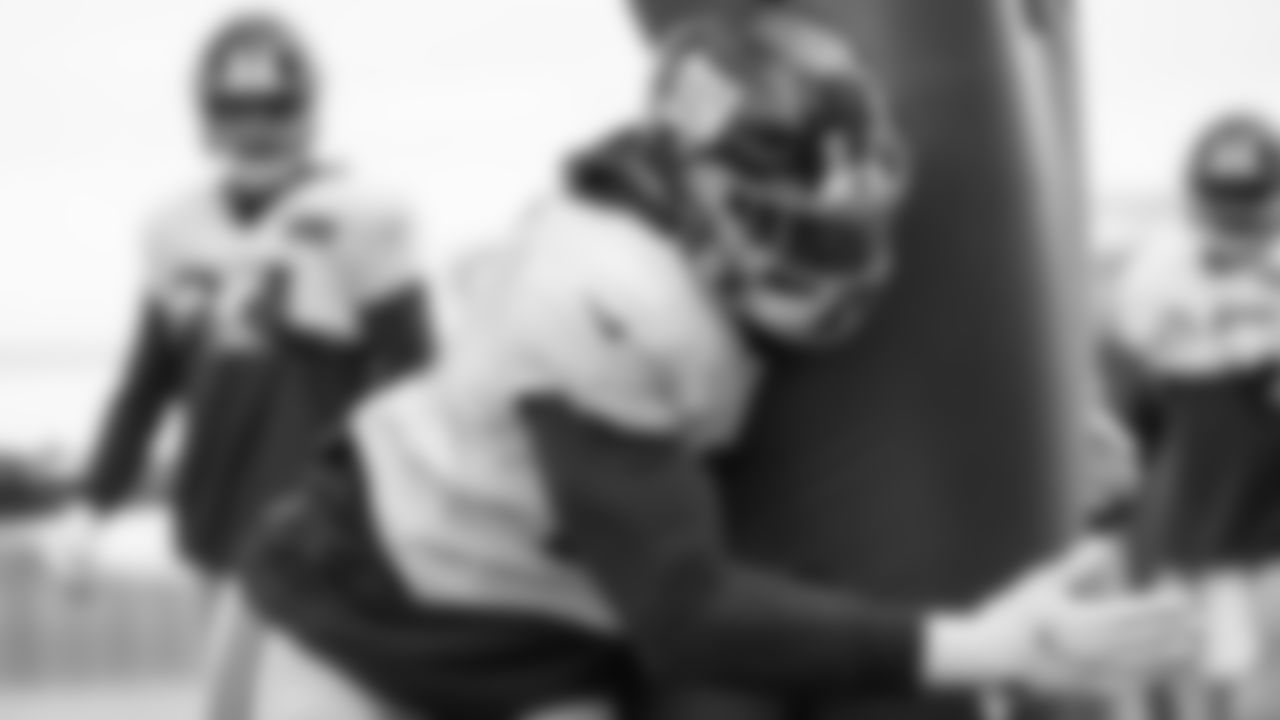
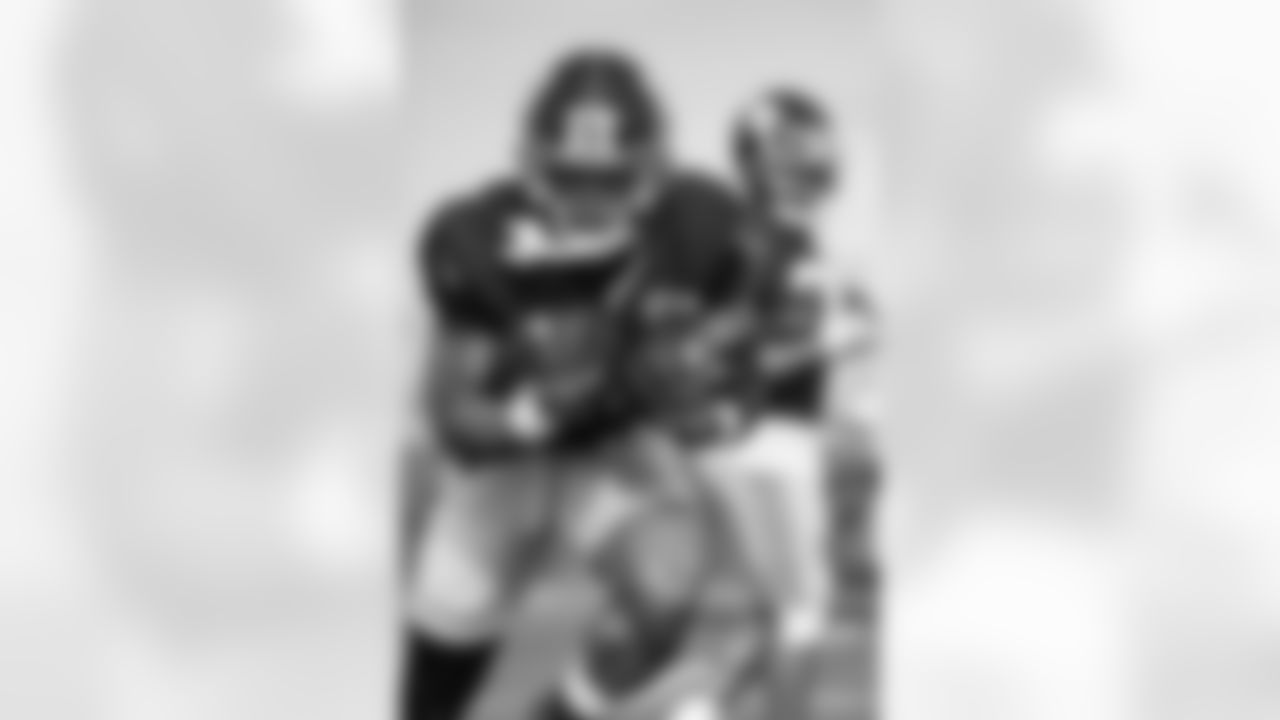
Saquon Barkley (26)

Julian Love (20)
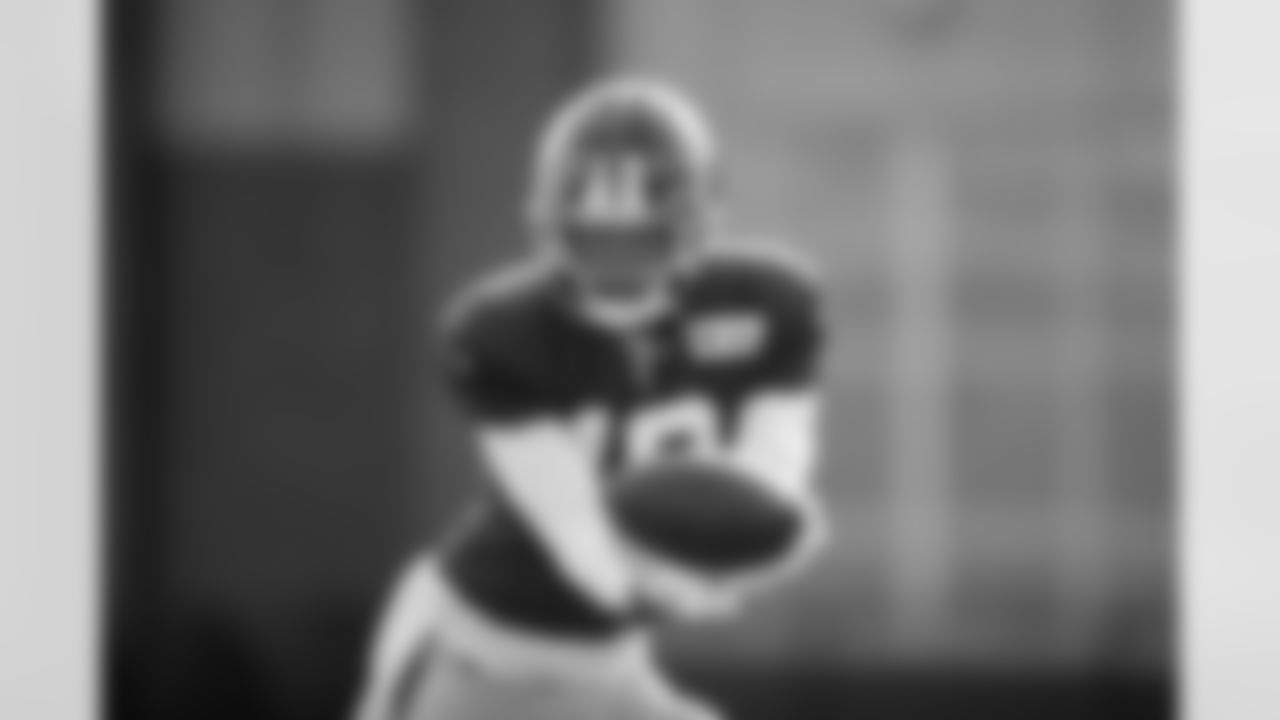
Kenny Golladay (19)
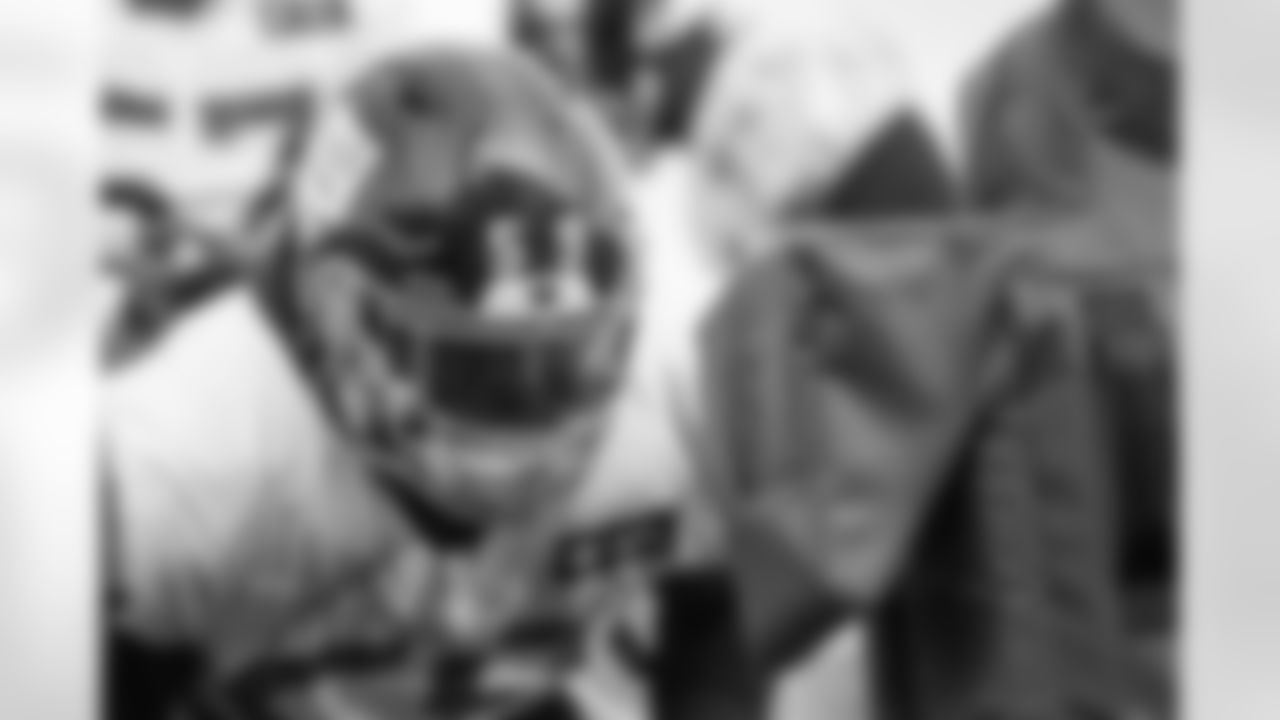
Lorenzo Carter (59)
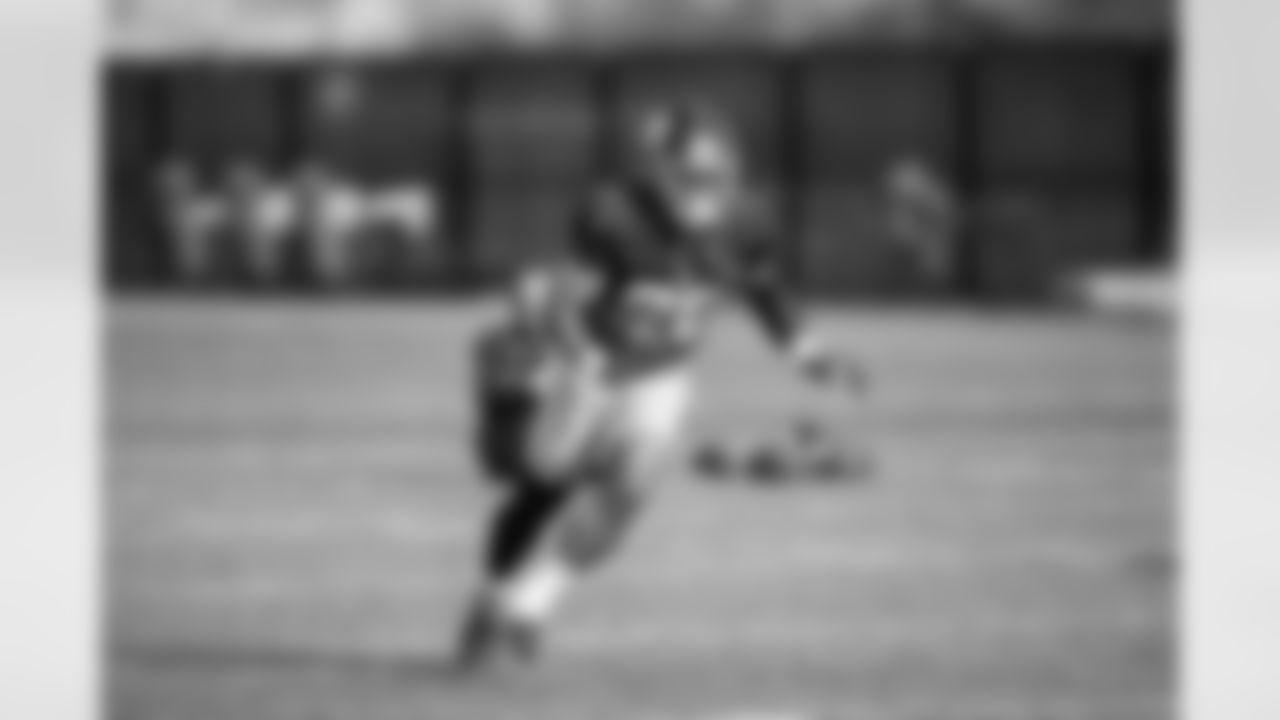
Saquon Barkley (26)

Quincy Roche (95)
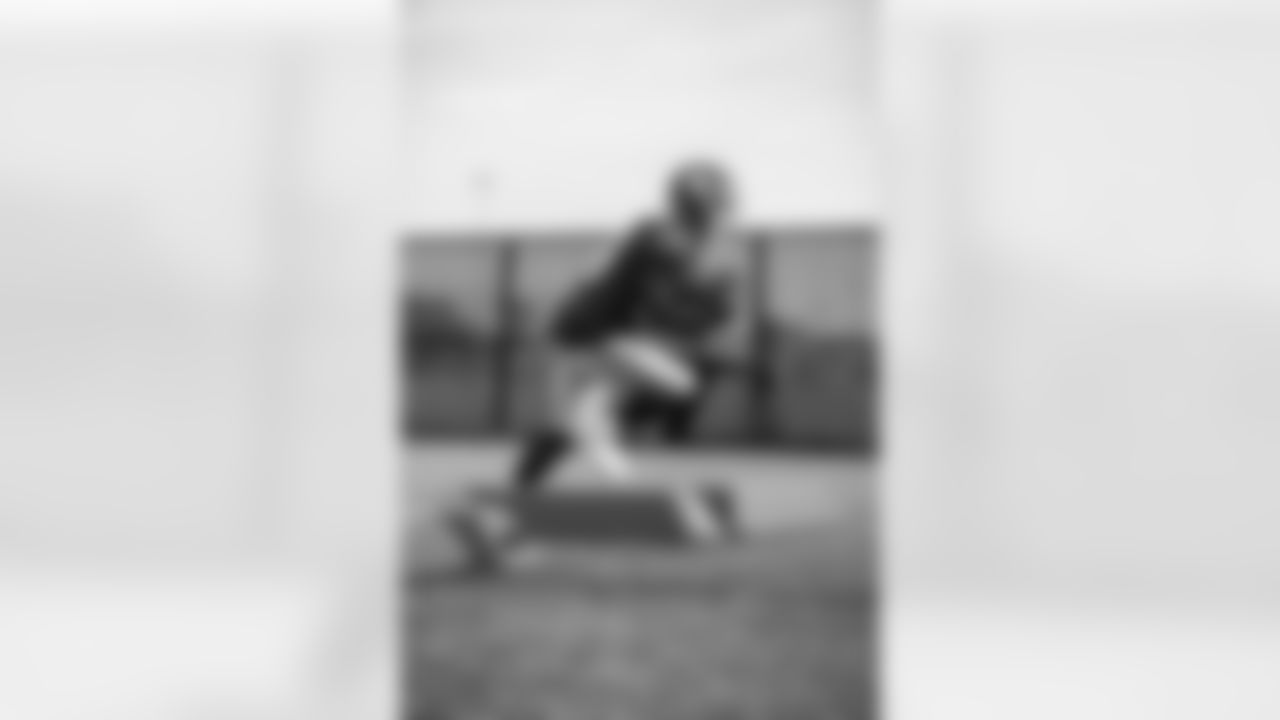
Sandro Platzgummer (34)
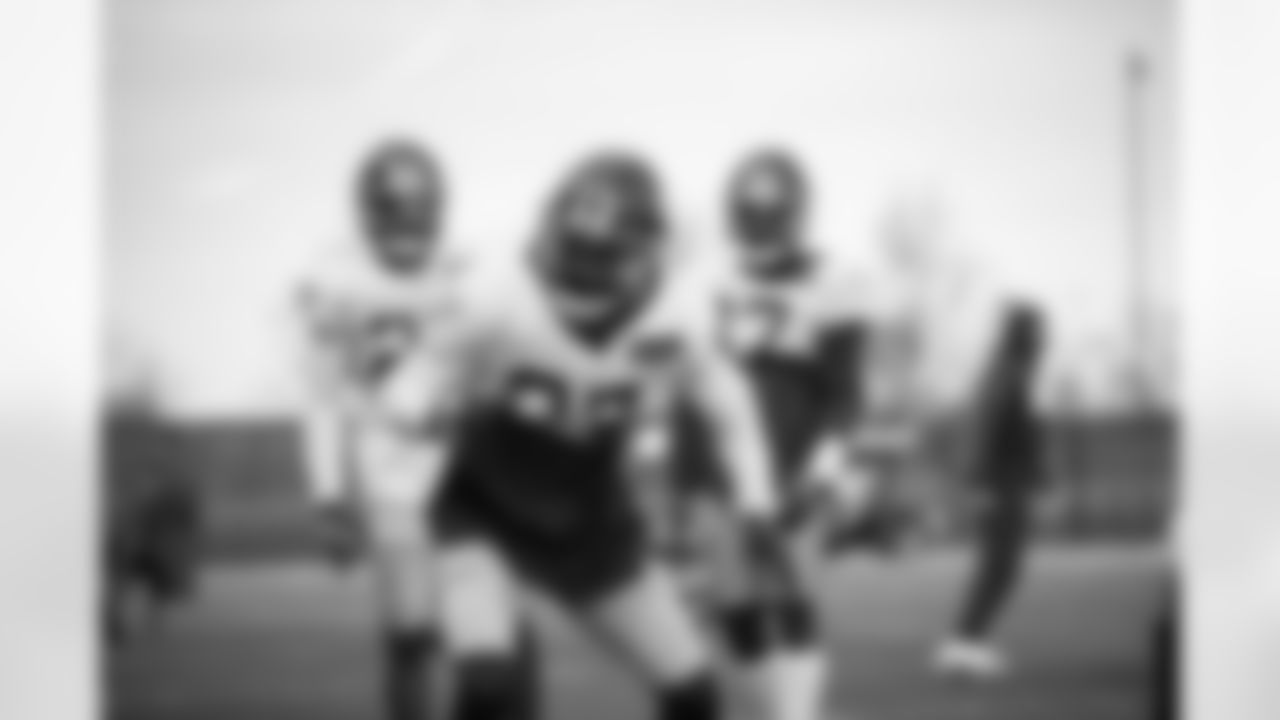
JR Reed (27)
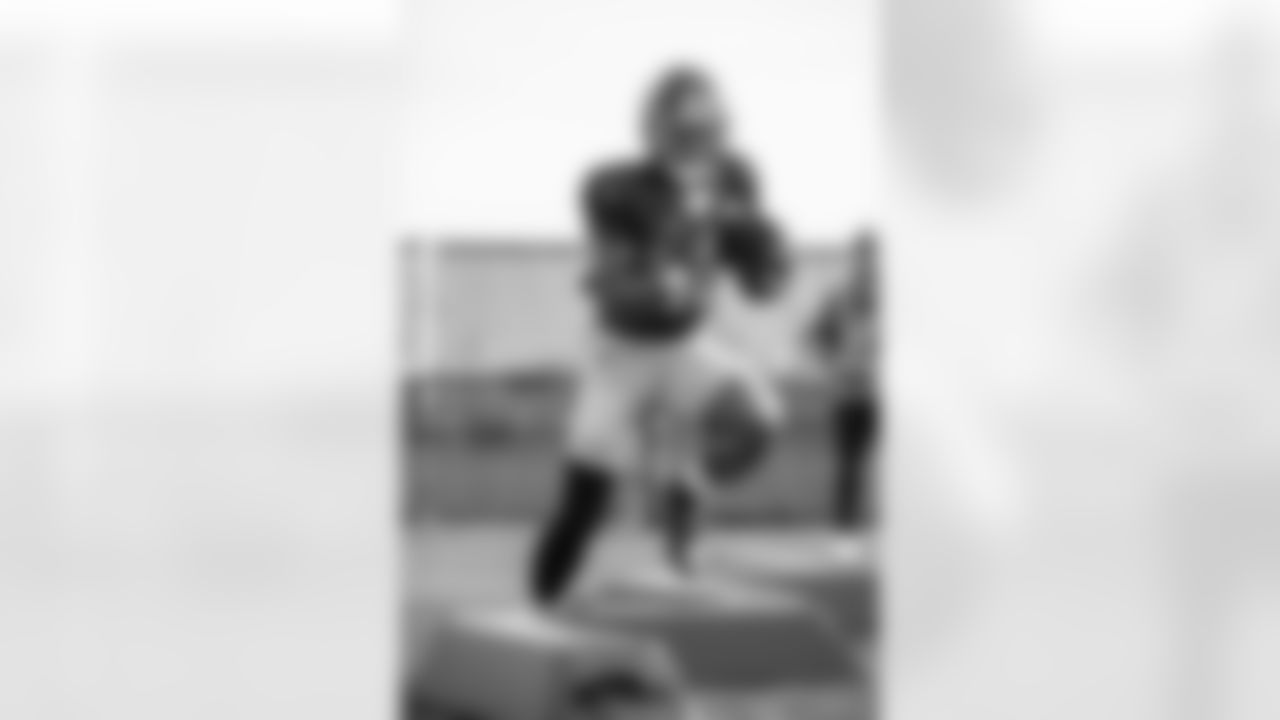
Saquon Barkley (26)
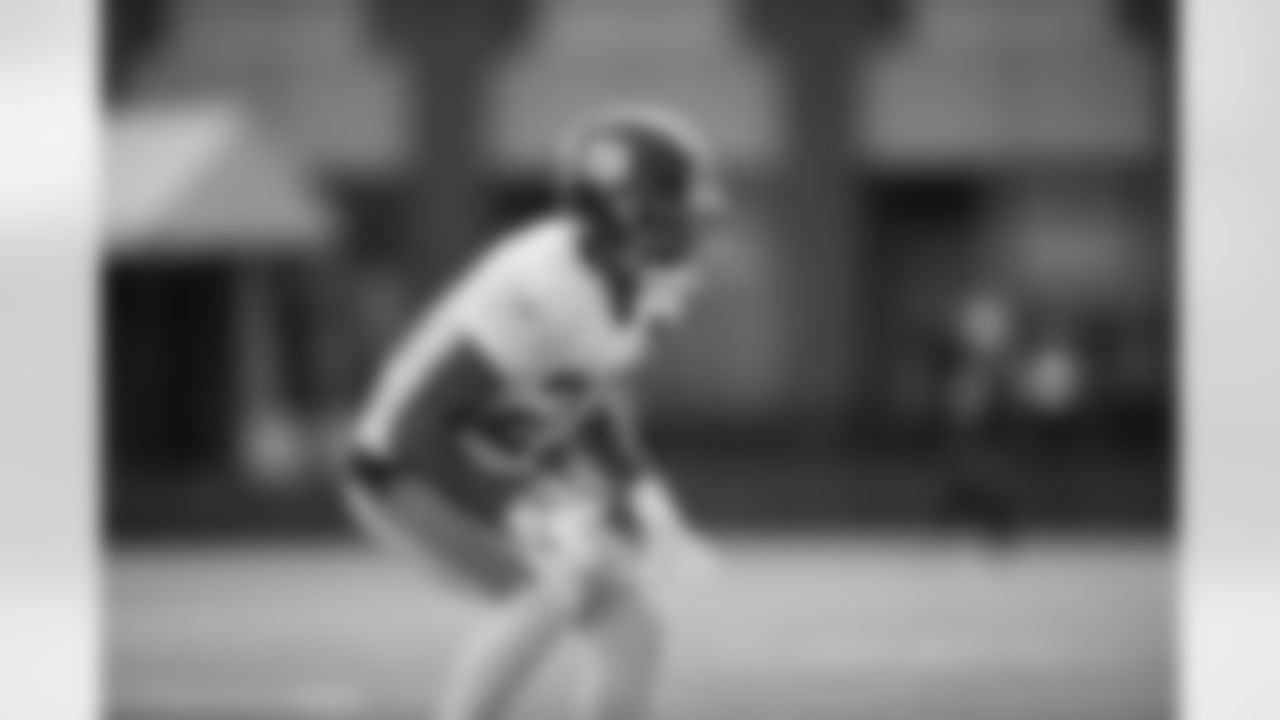
Logan Ryan (23)
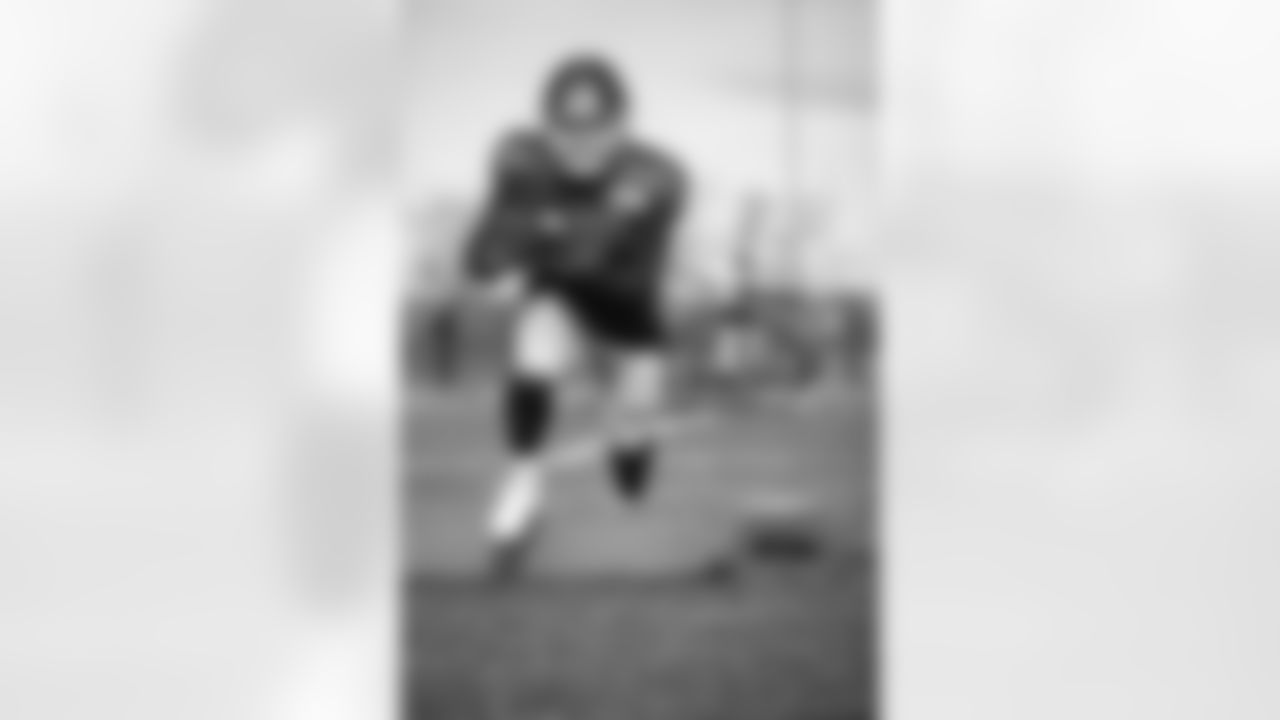
Sandro Platzgummer (34)

Saquon Barkley (26)
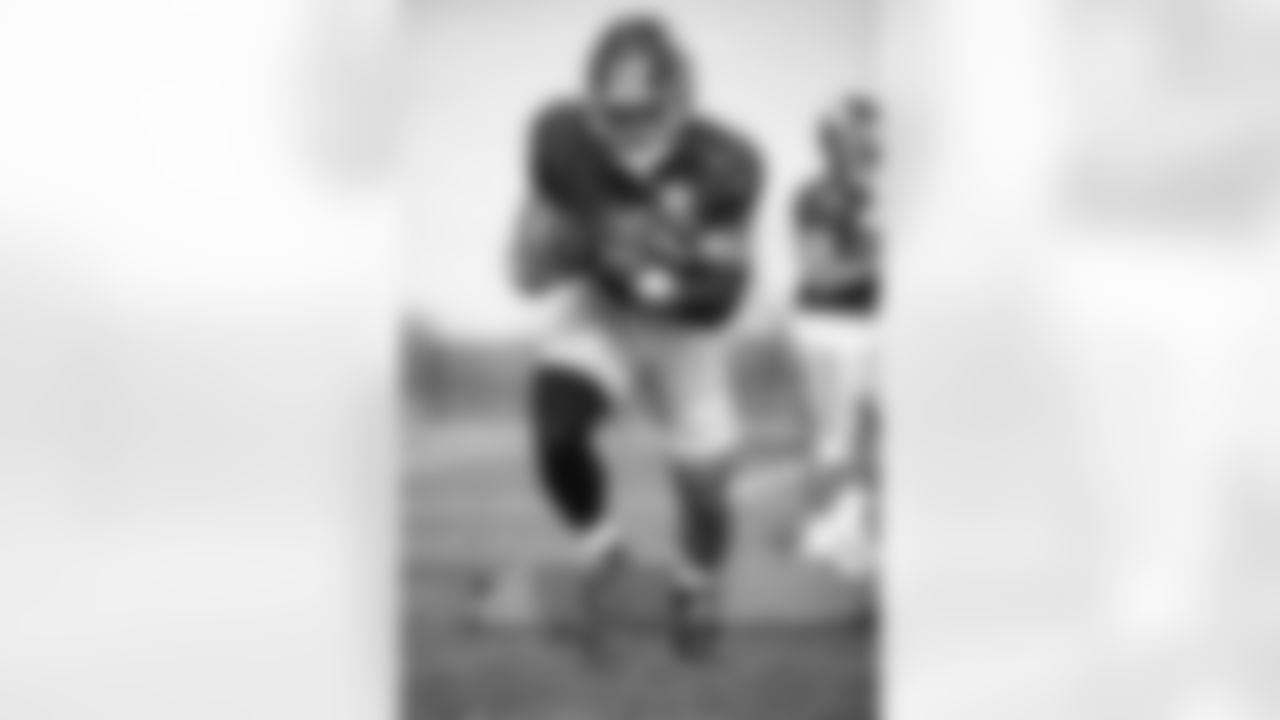
Saquon Barkley (26)
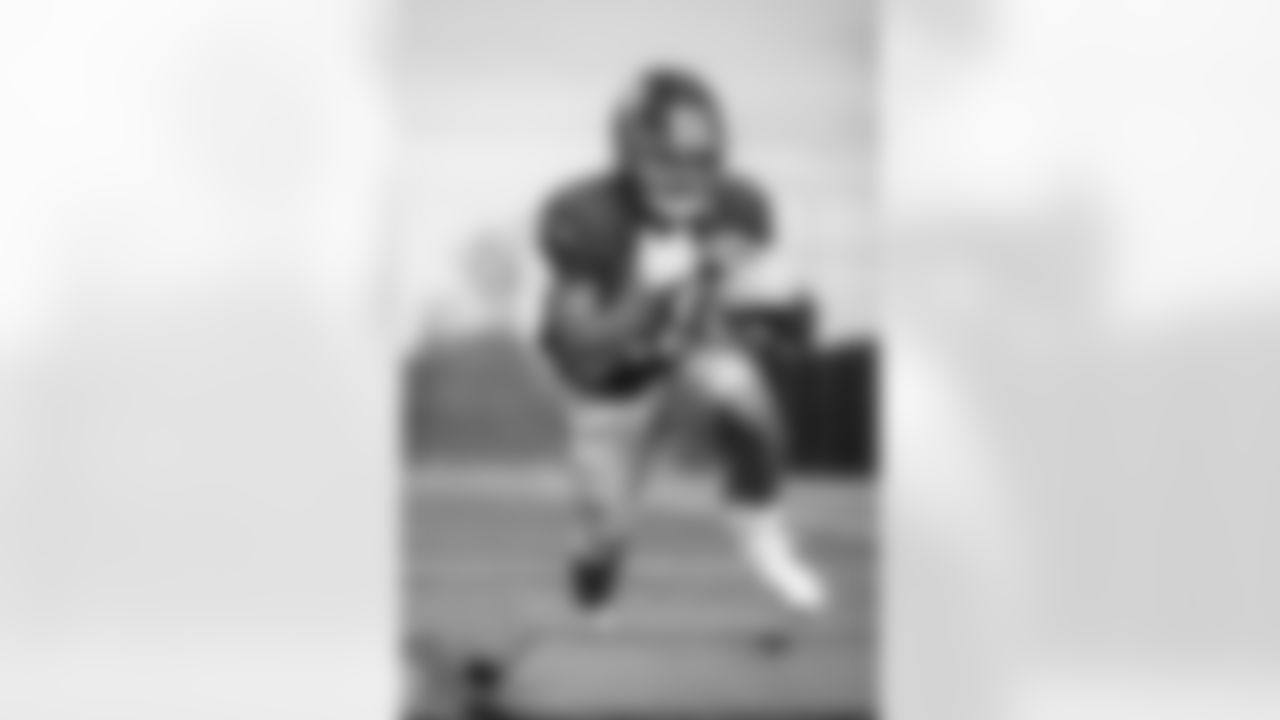
Devontae Booker (28)
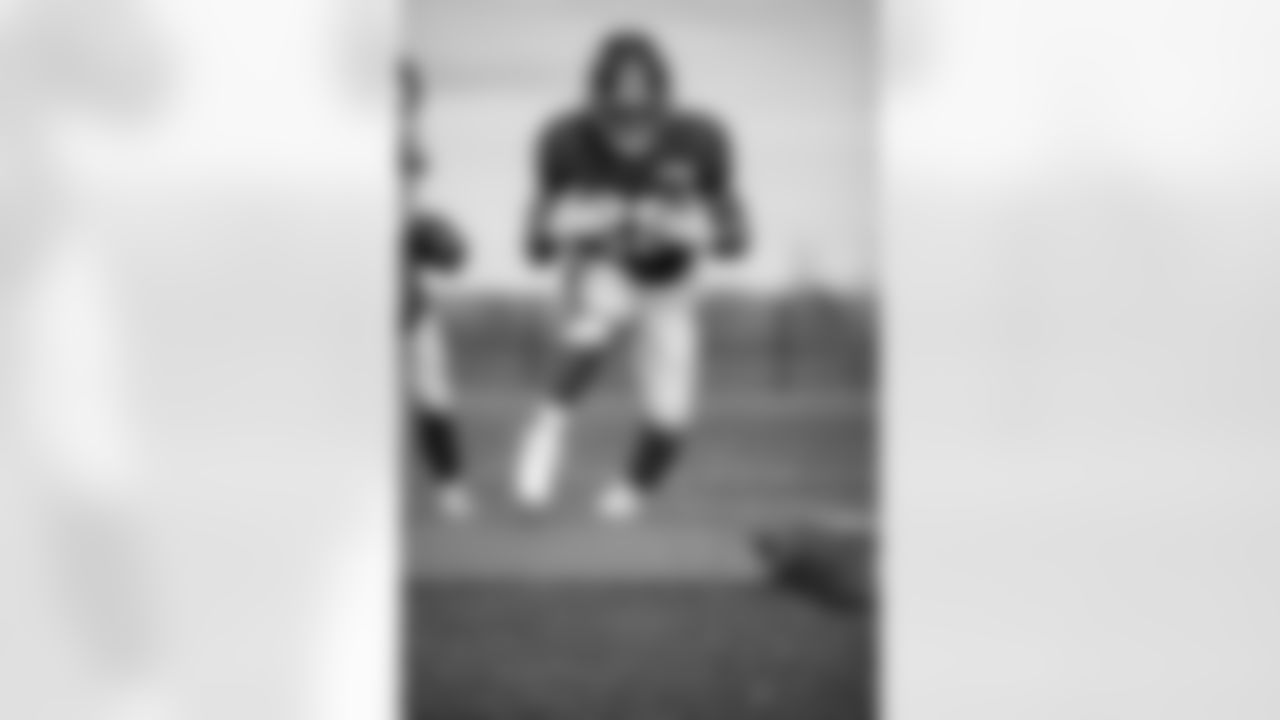
Devontae Booker (28)
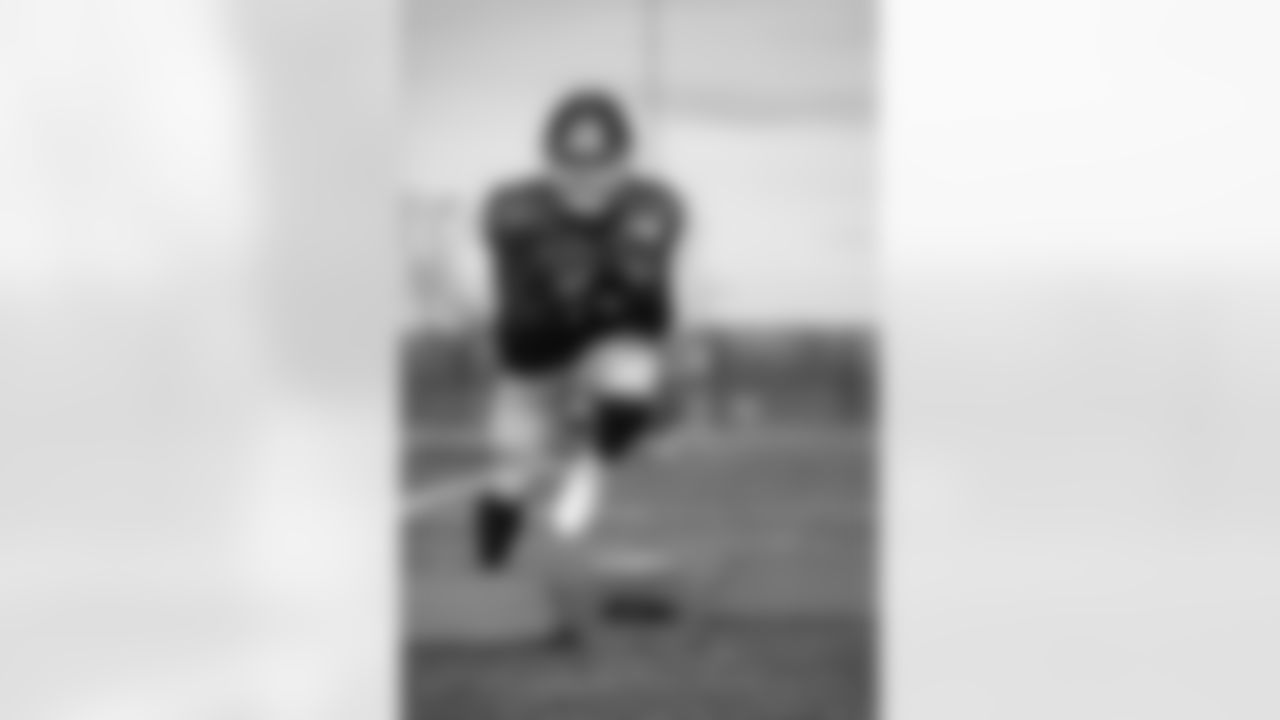
Sandro Platzgummer (34)
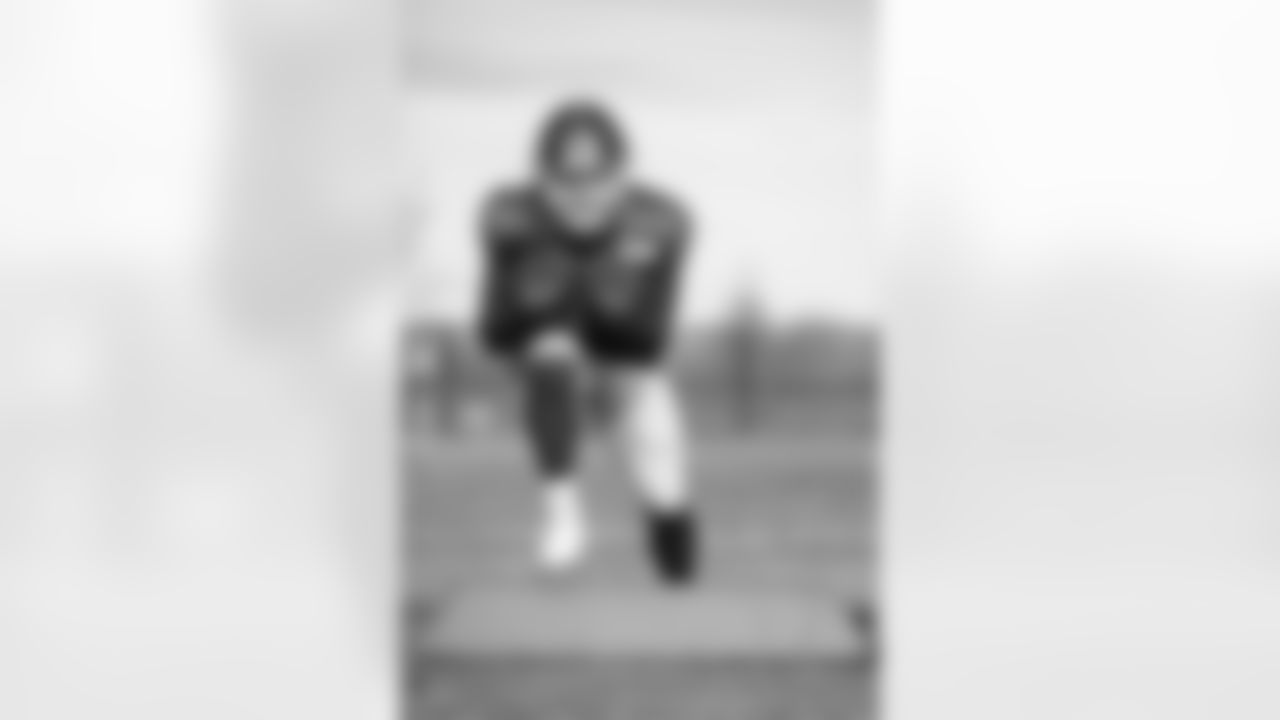
Sandro Platzgummer (34)
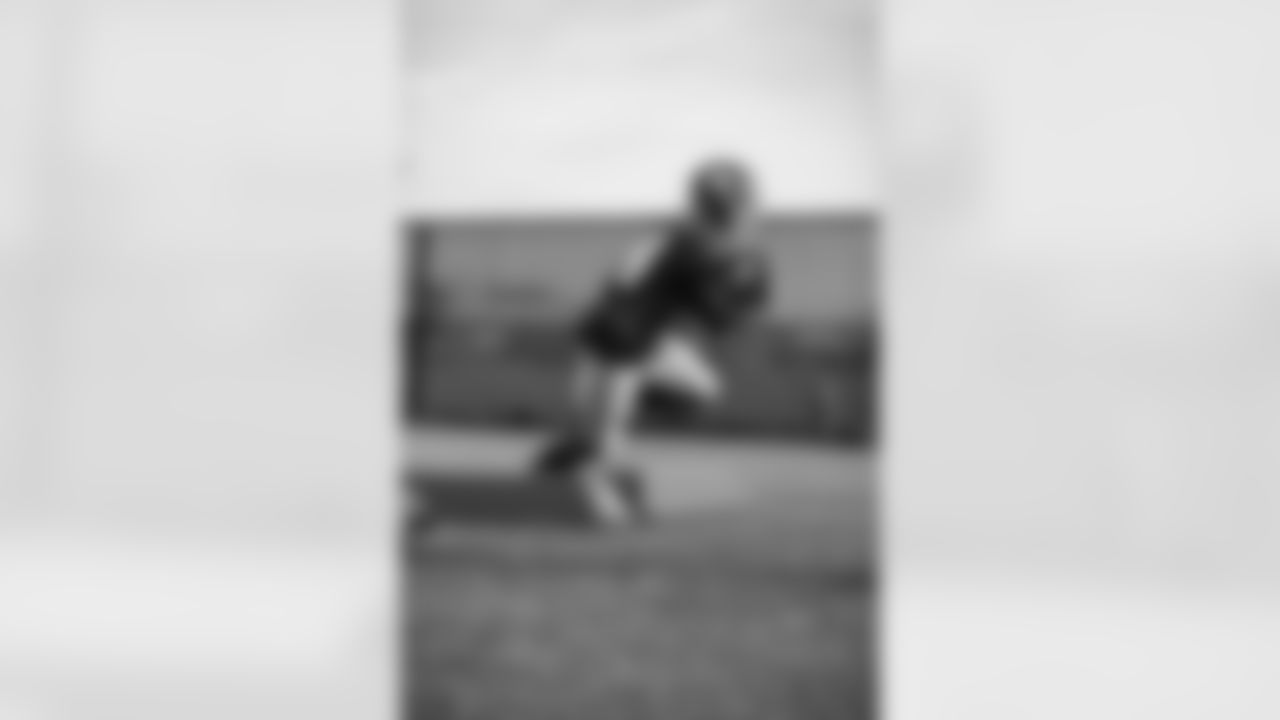
Sandro Platzgummer (34)
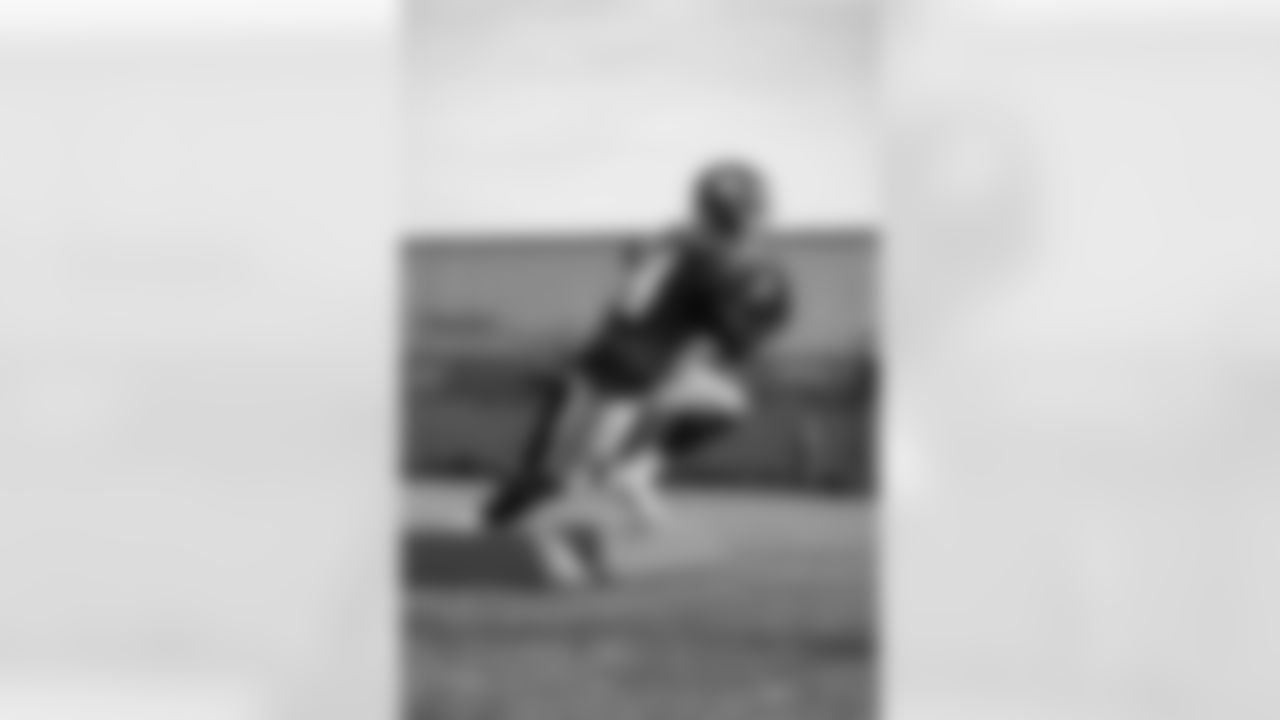
Sandro Platzgummer (34)
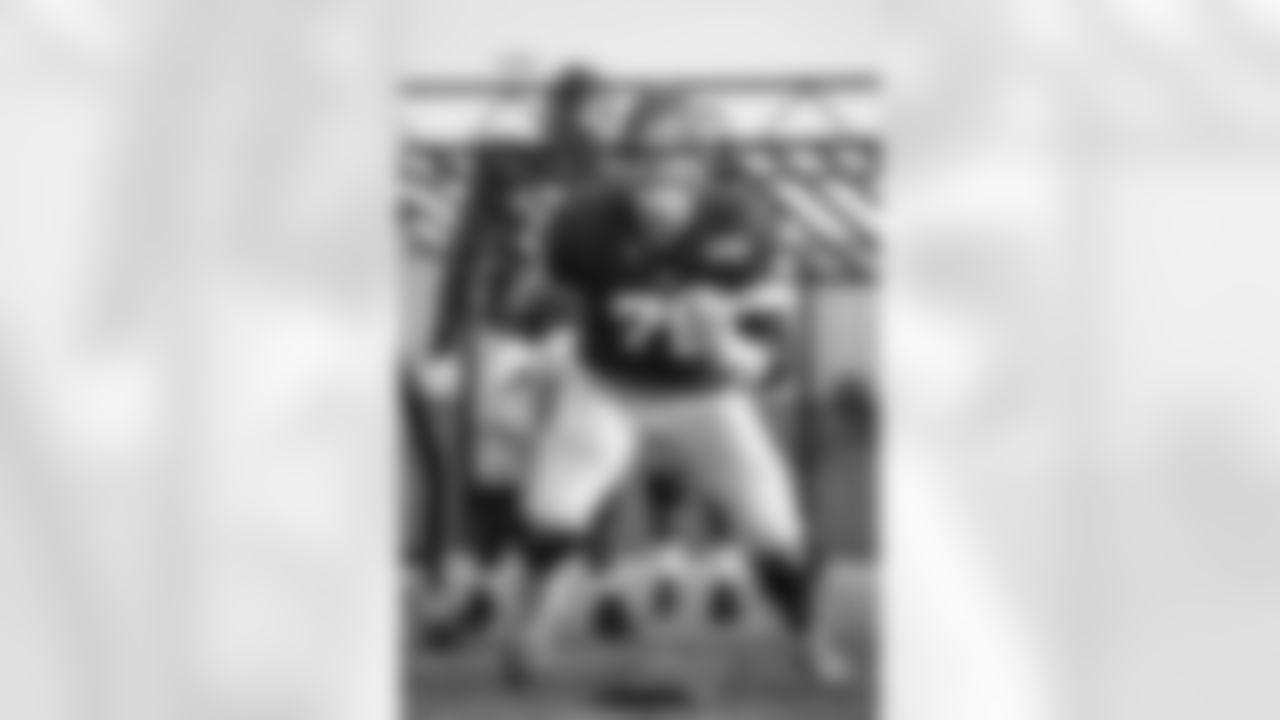
Nate Solder (76)
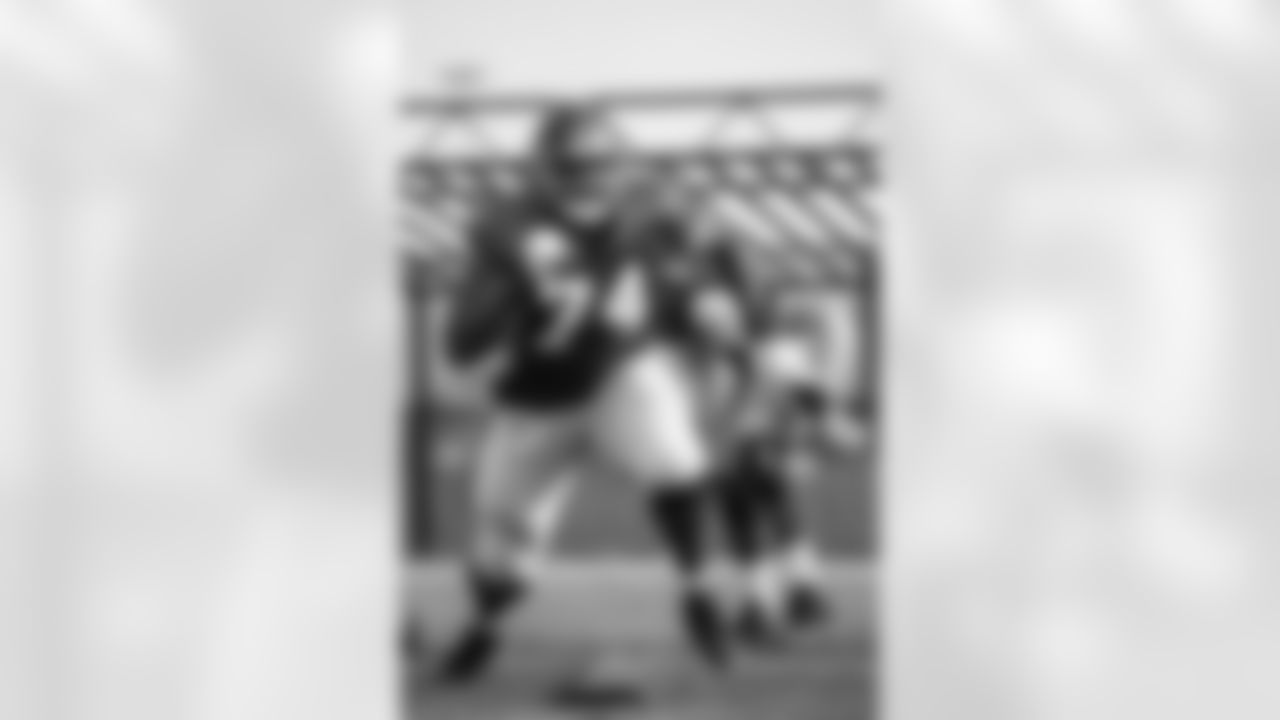
Matt Peart (74)
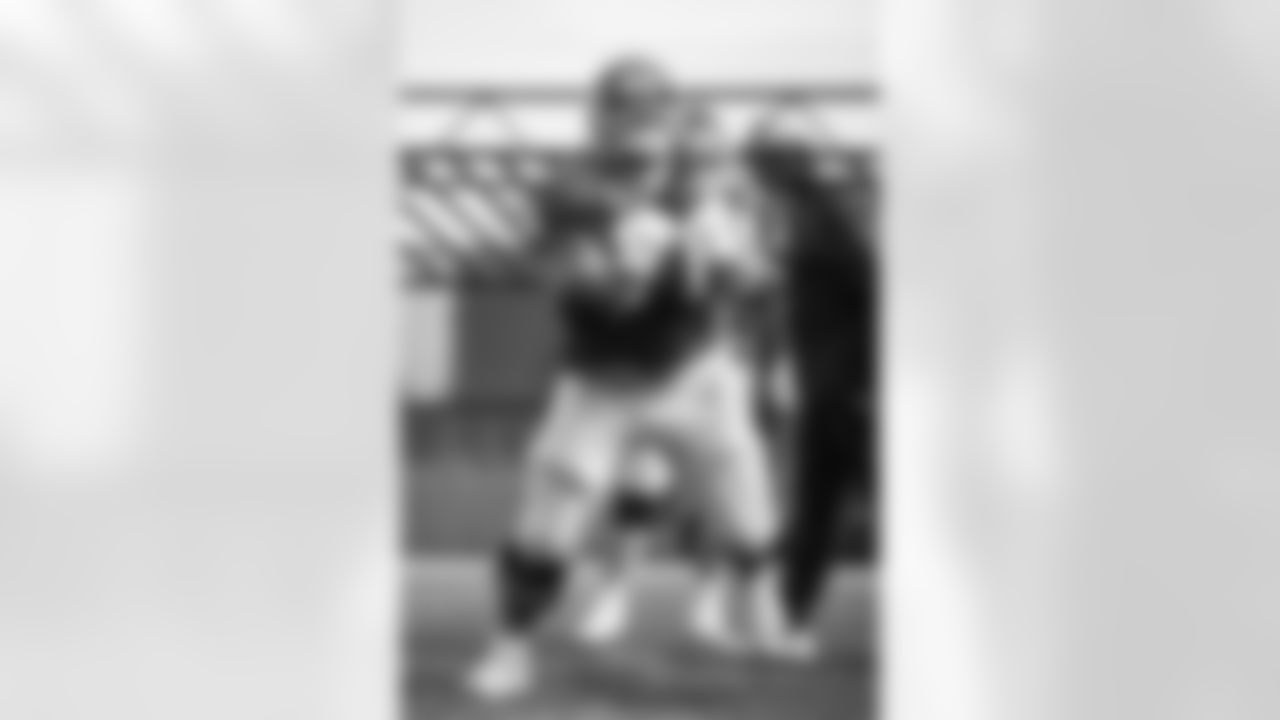
Will Hernandez (71)
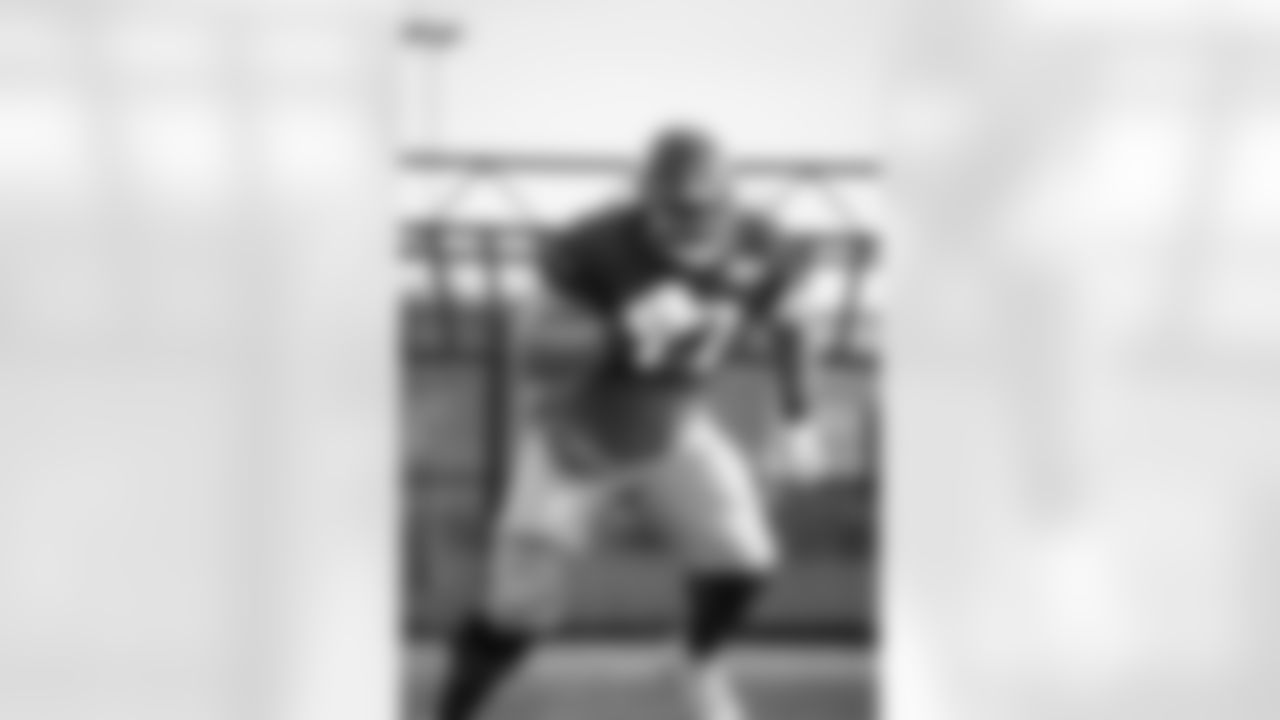
Isaiah Wilson (77)
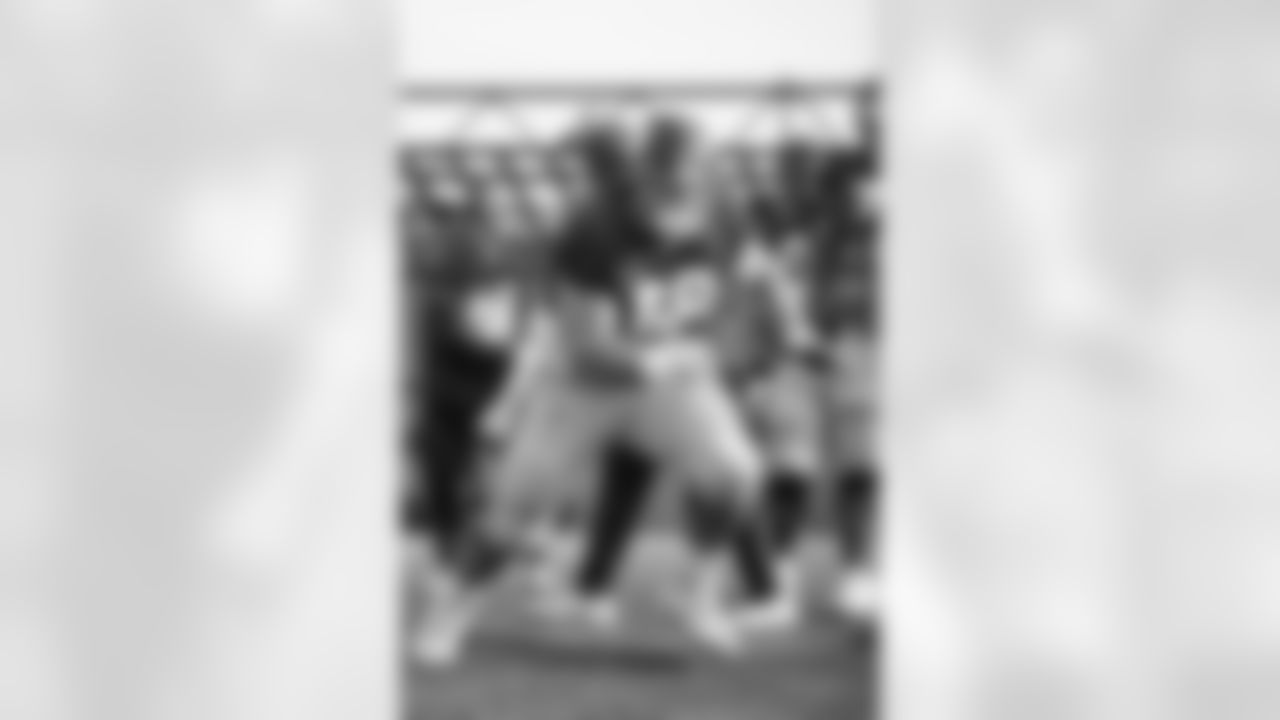
Billy Price (69)
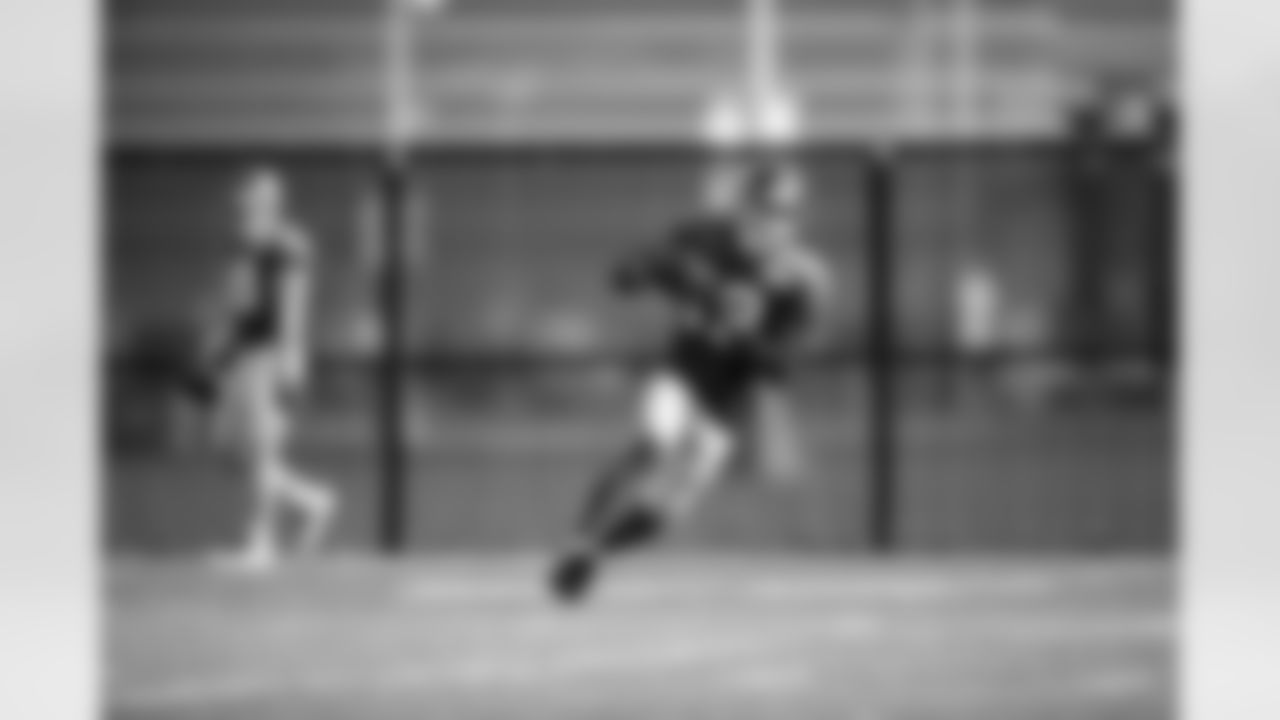
Travis Toivonen (13)
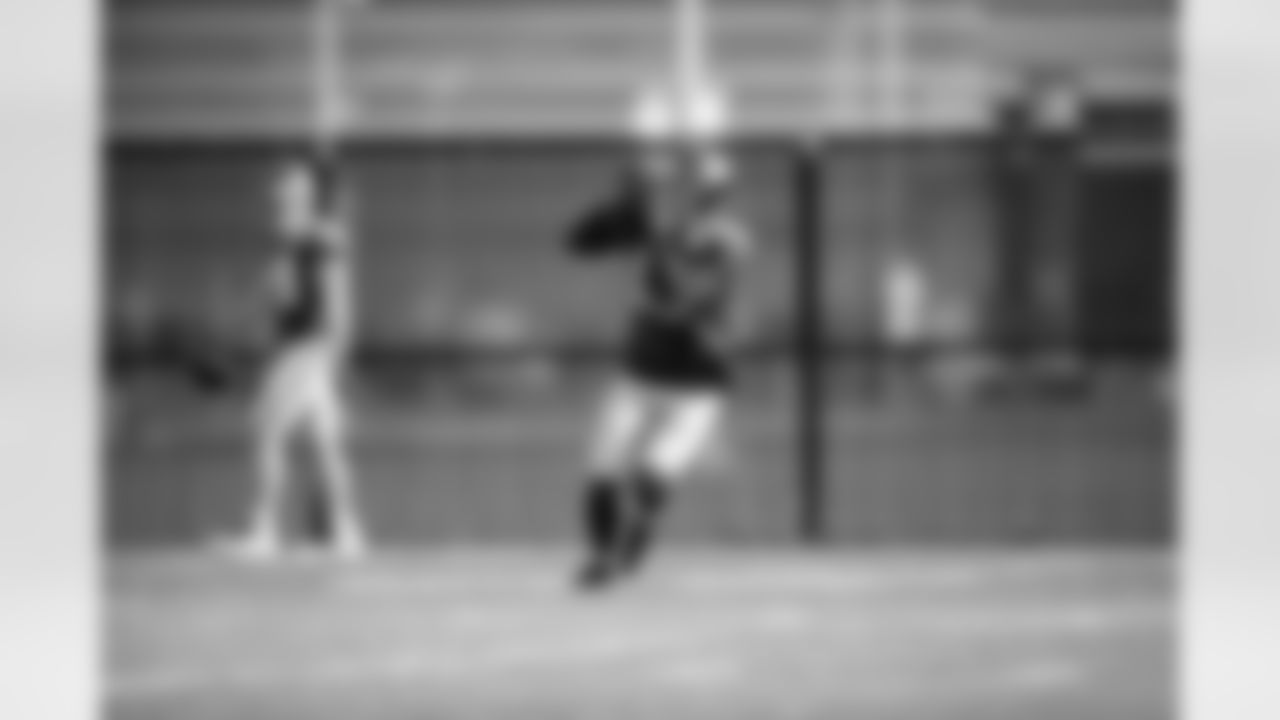
Travis Toivonen (13)
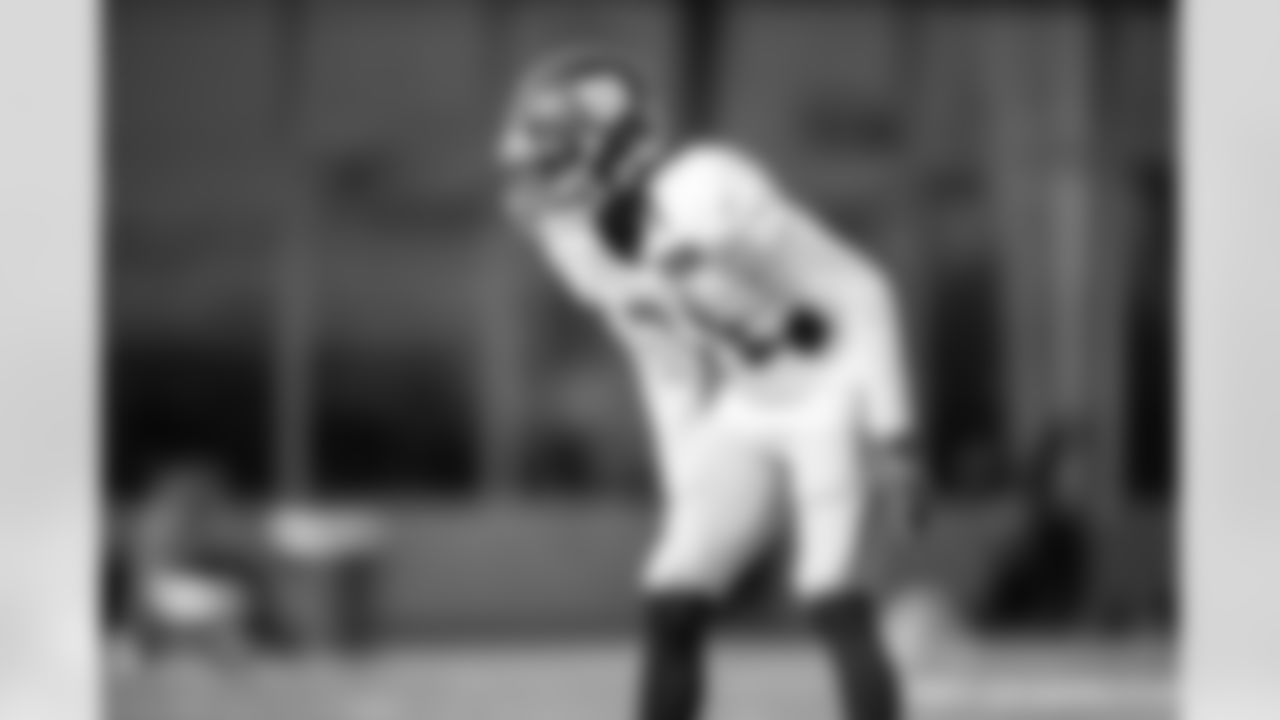
Keion Crossen (31)
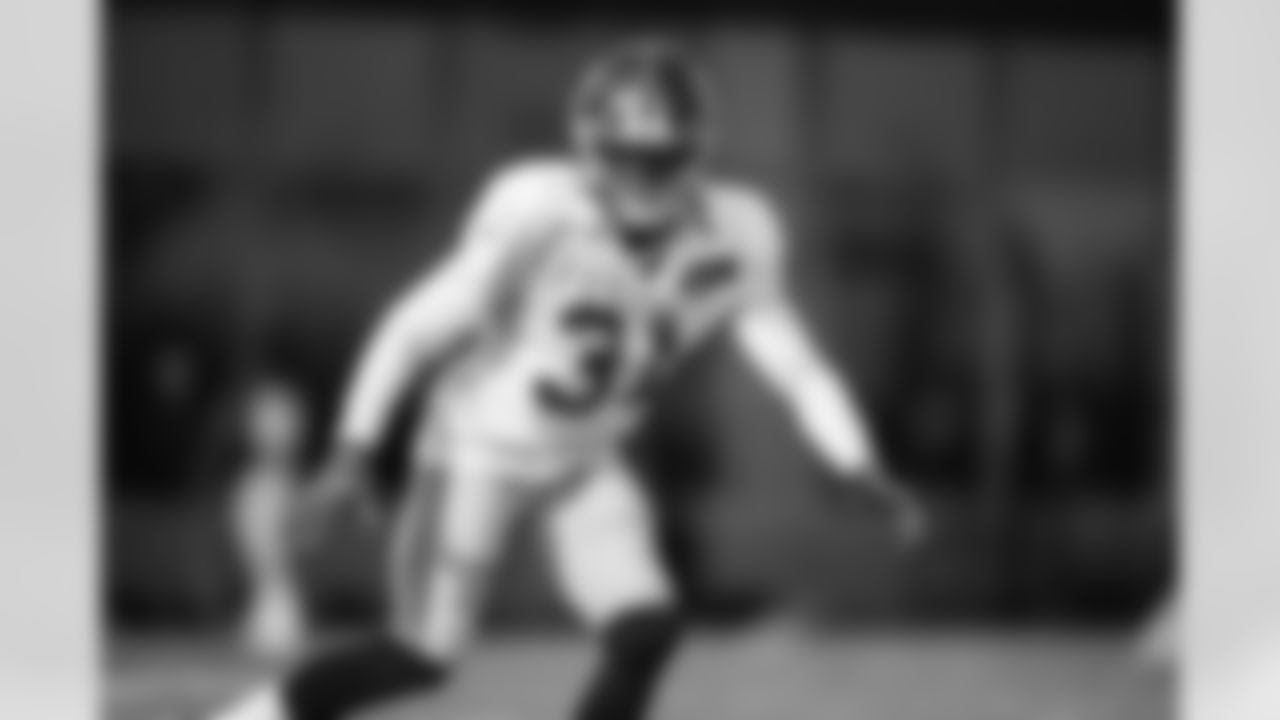
Keion Crossen (31)
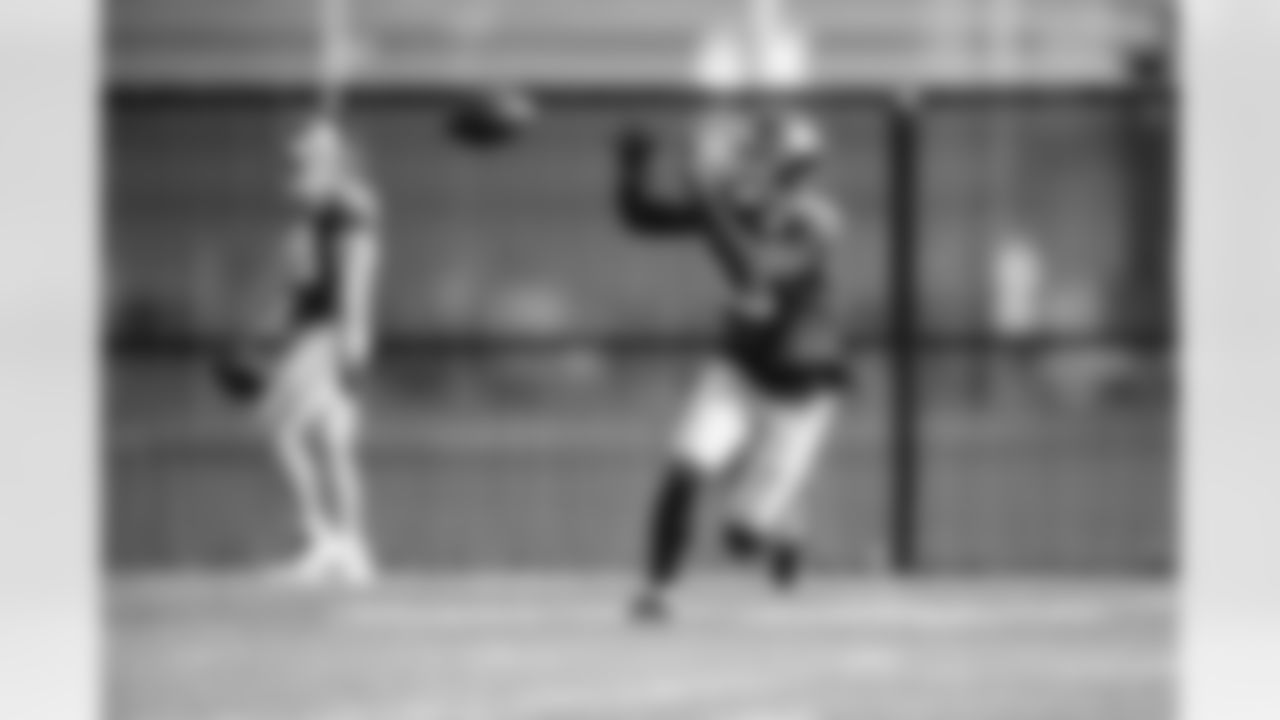
Travis Toivonen (13)
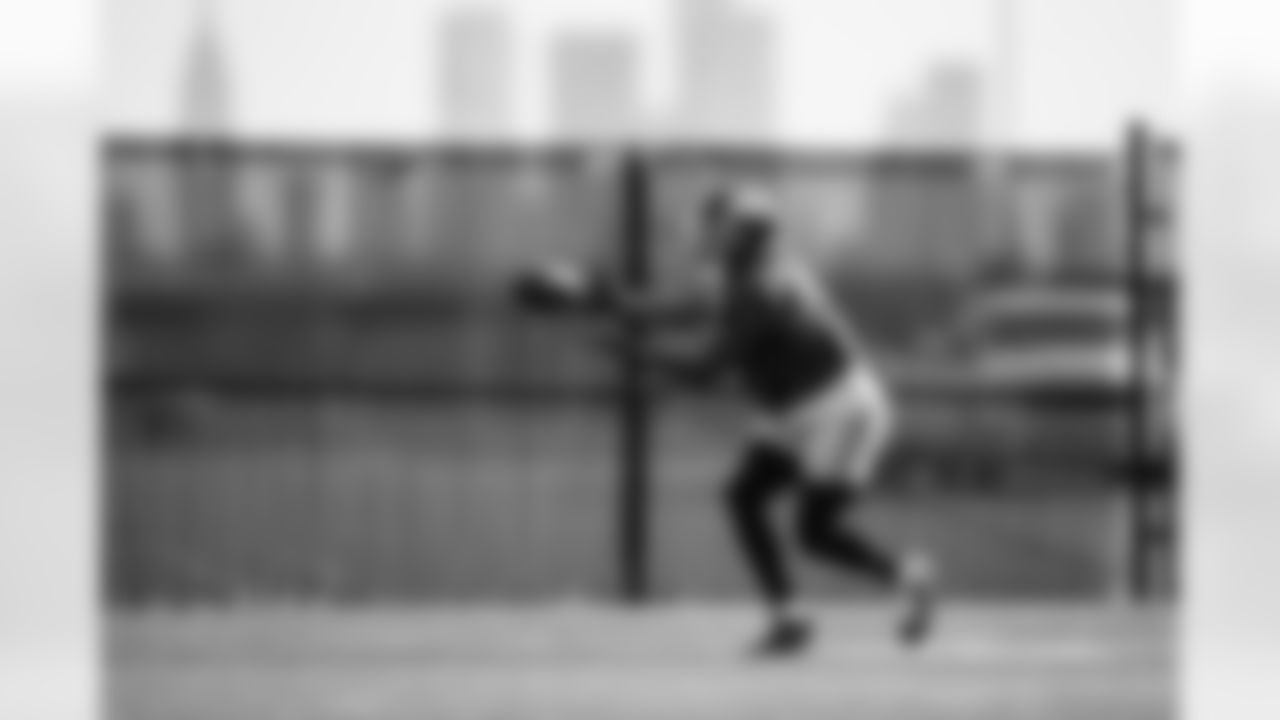
Sterling Shepard (3)
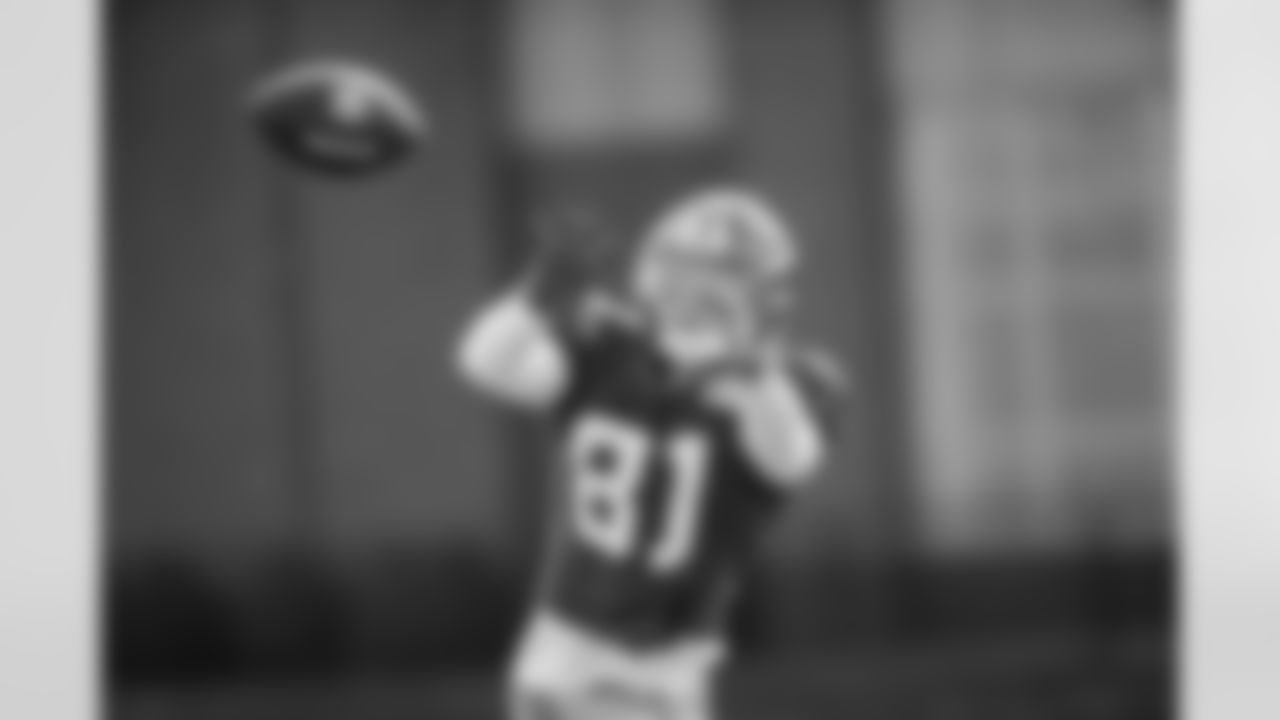
Alex Bachman (81)
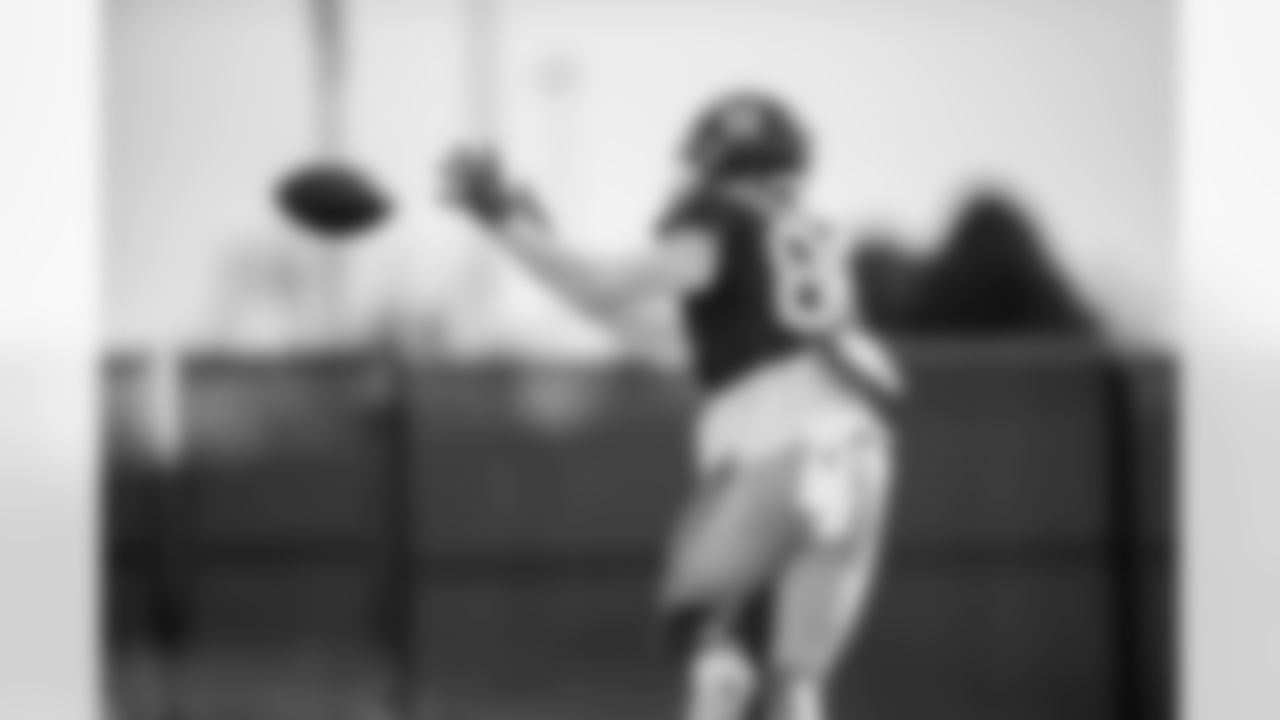
Evan Engram (88)
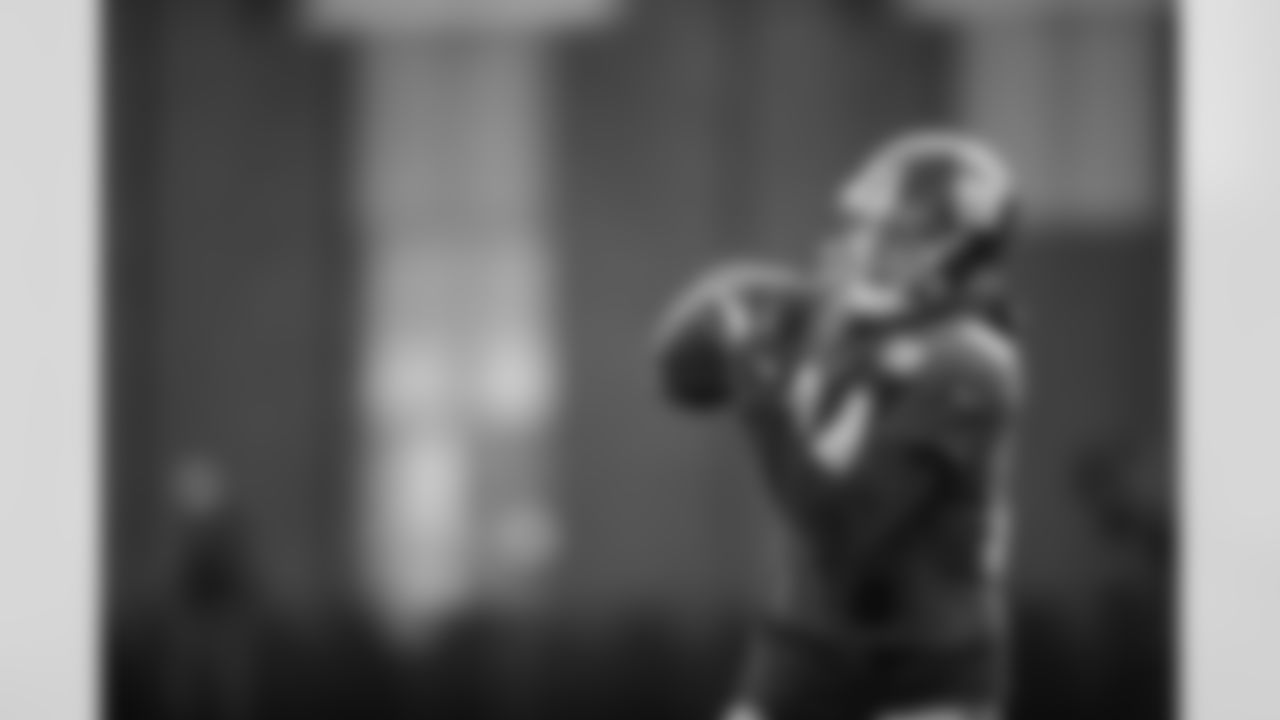
David Sills V (84)
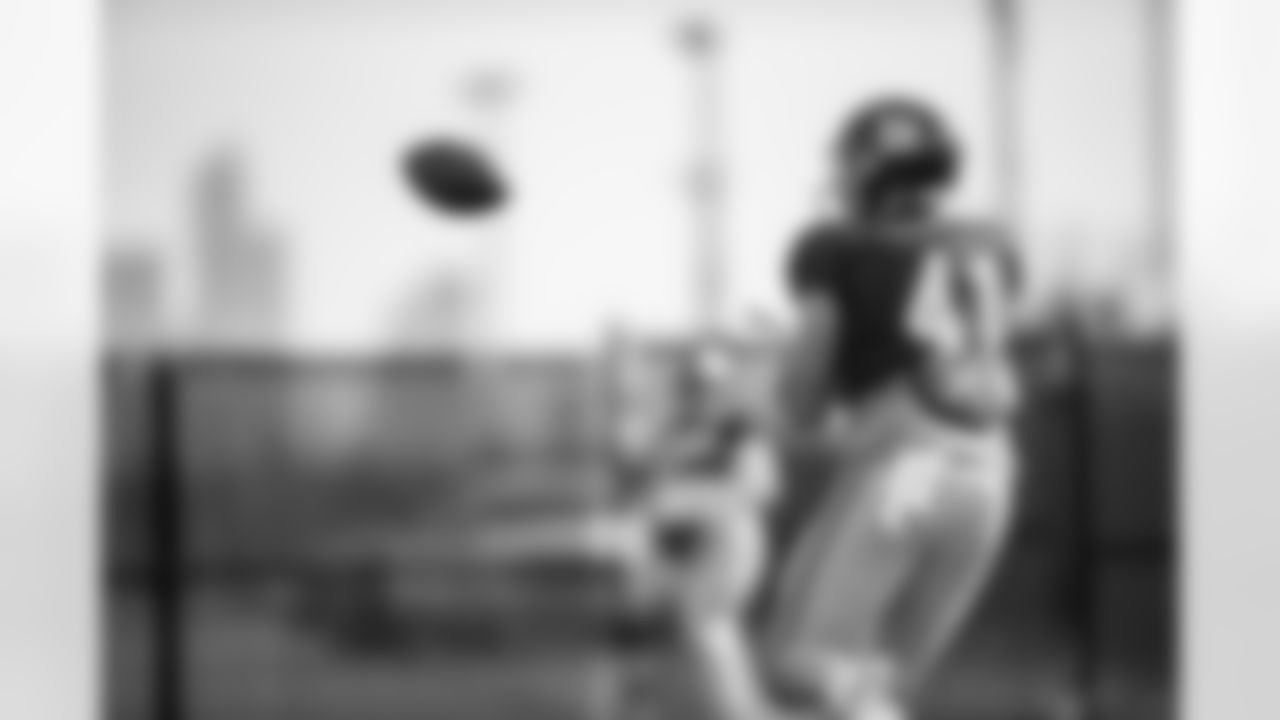
Chris Myarick (41)

David Sills V (84)
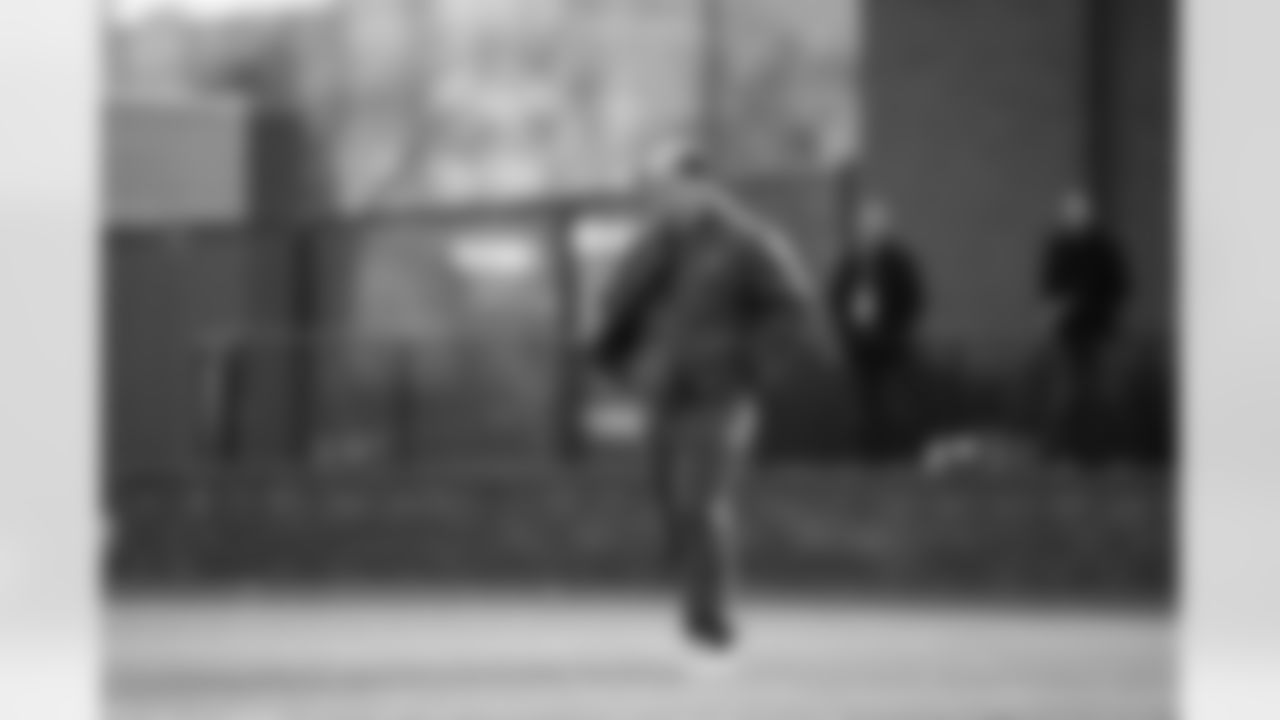
Head Coach Joe Judge
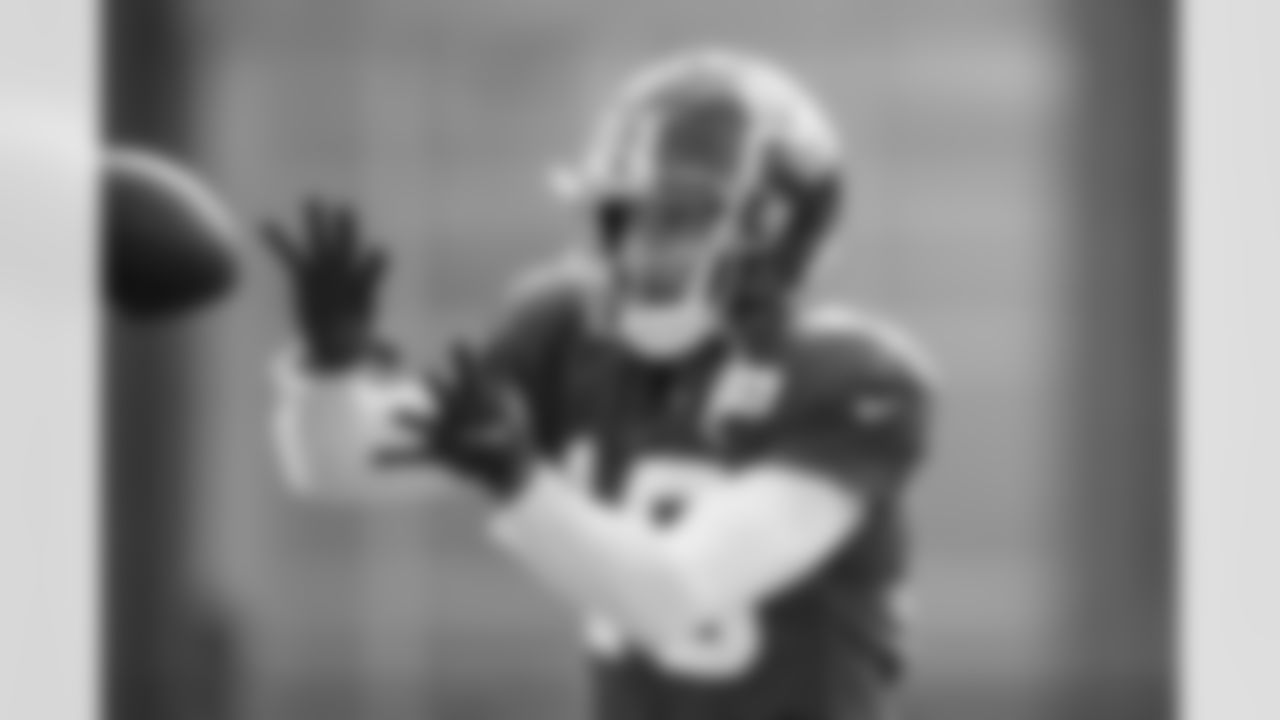
Collin Johnson (15)
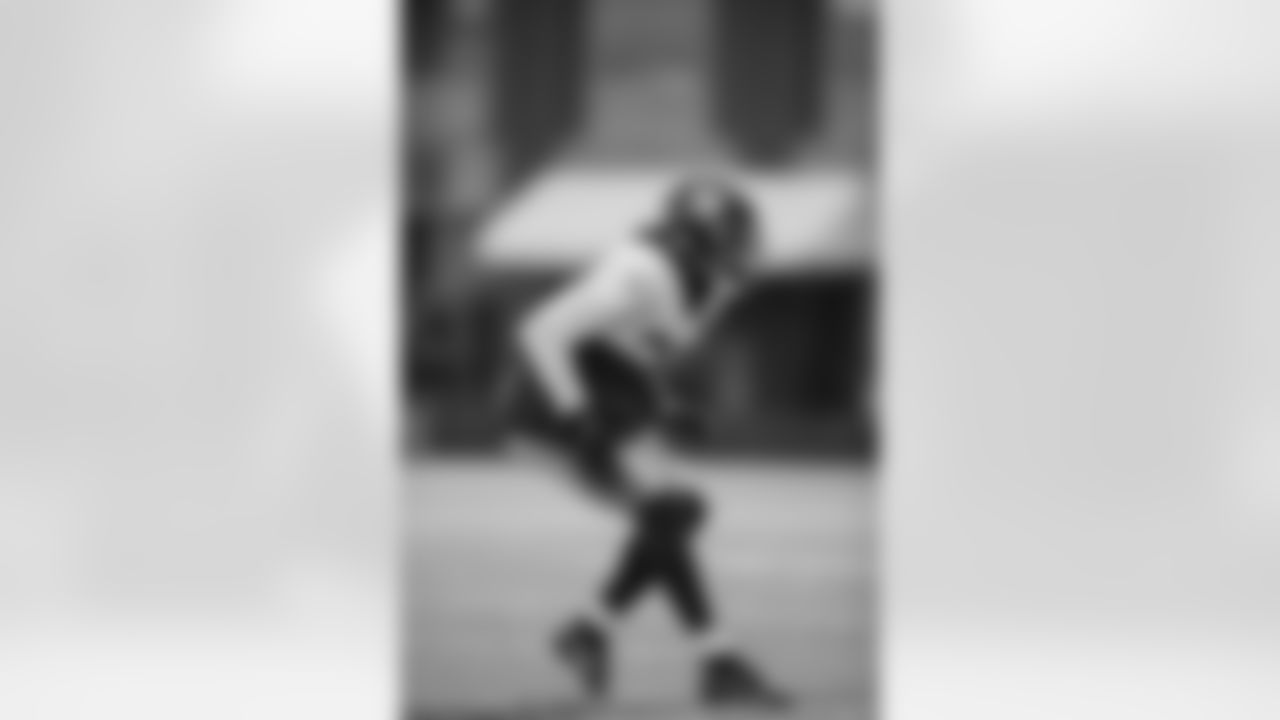
JR Reed (27)
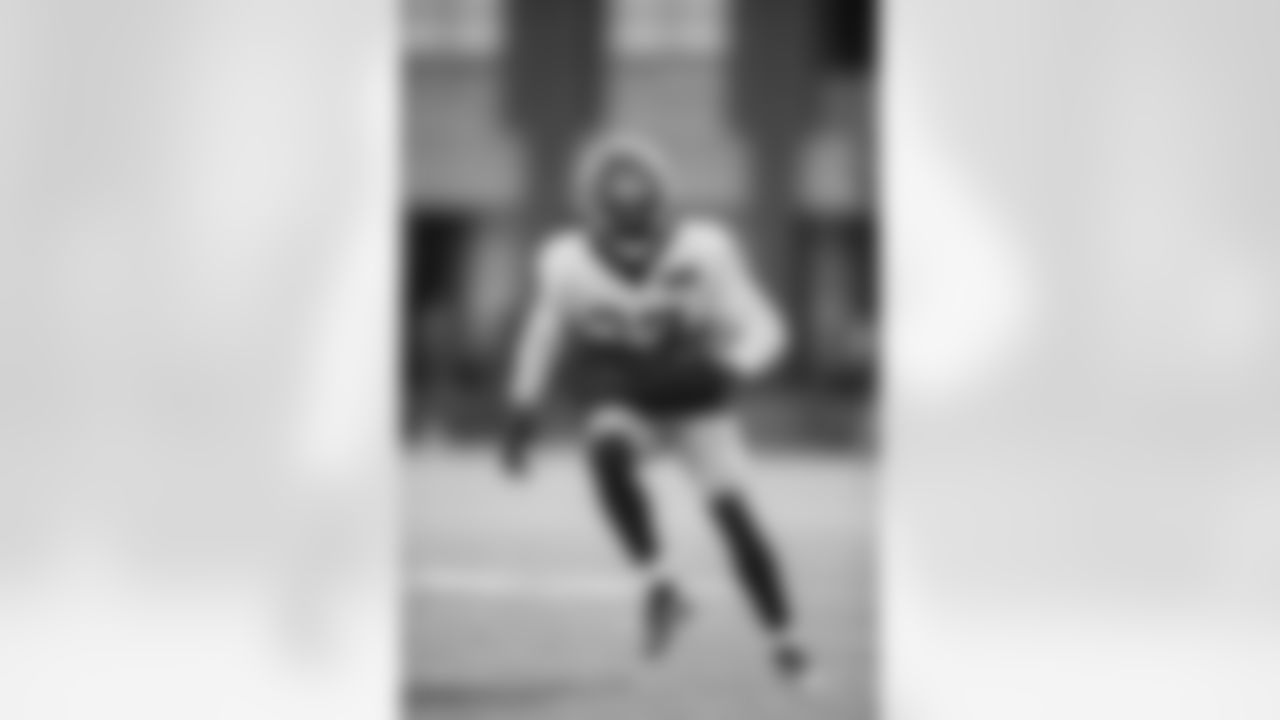
JR Reed (27)

Isaiah Wilson (77)

Isaiah Wilson (77)
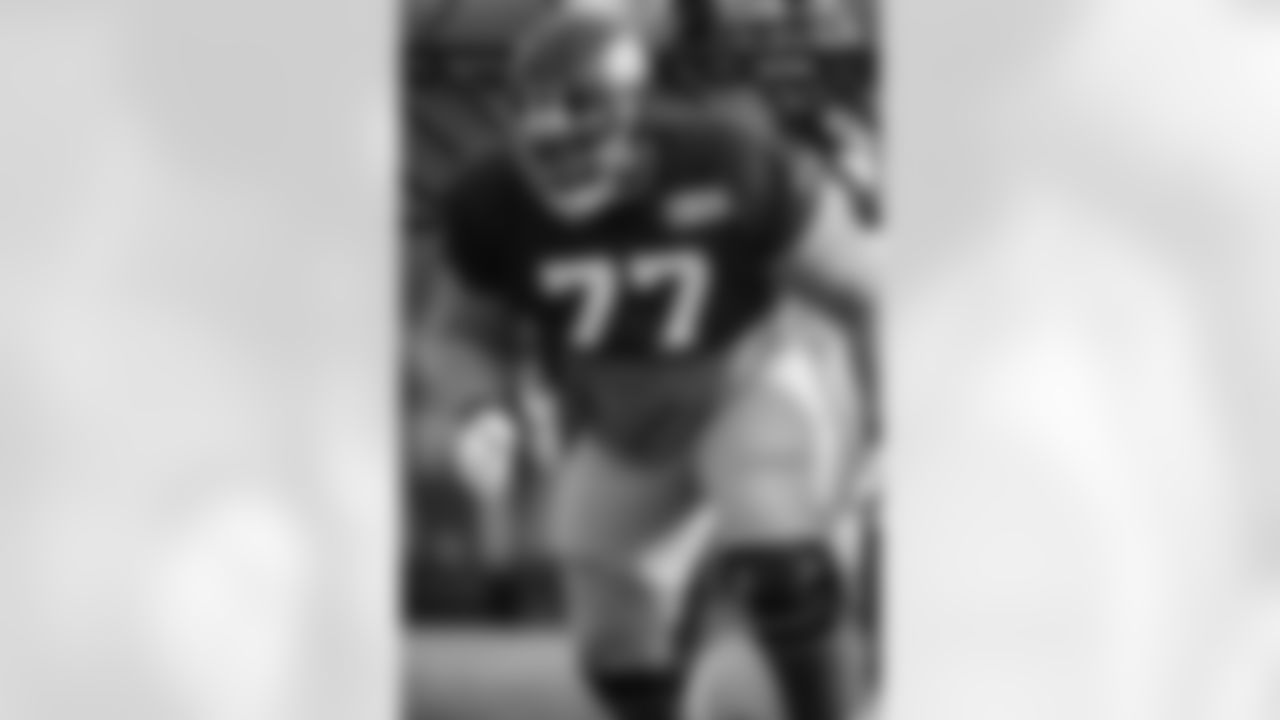
Isaiah Wilson (77)
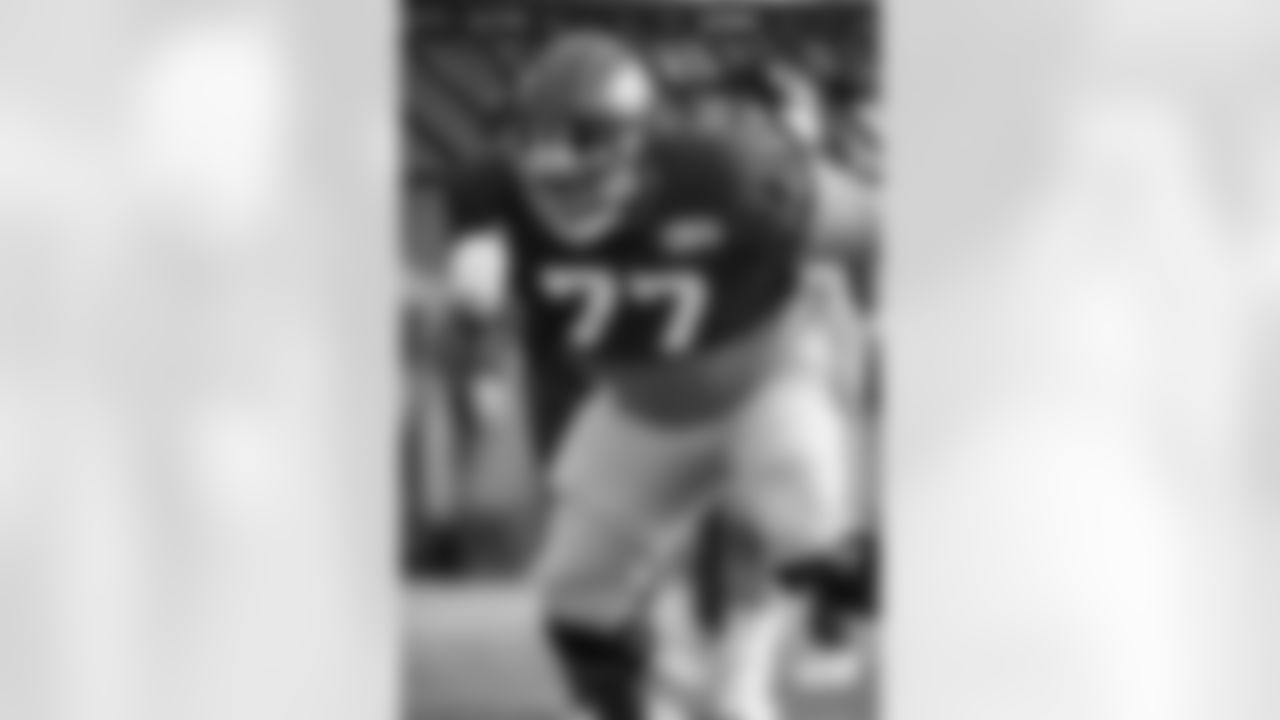
Isaiah Wilson (77)
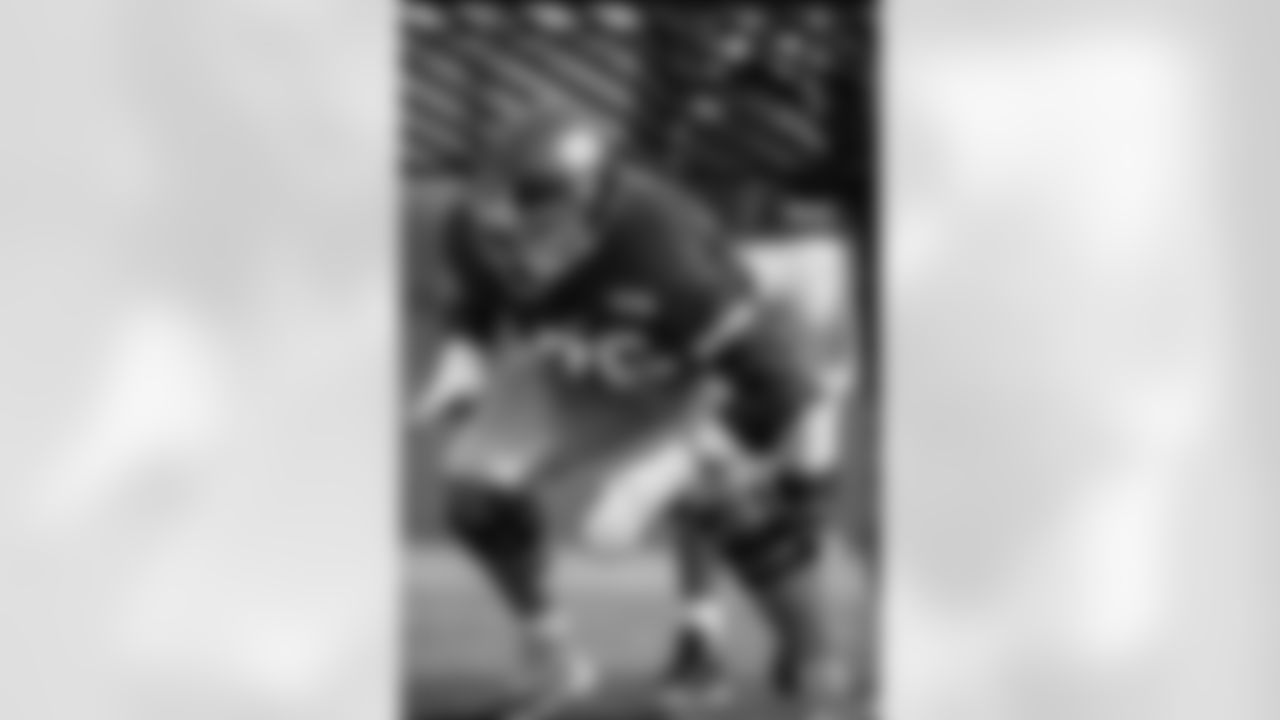
Nate Solder (76)
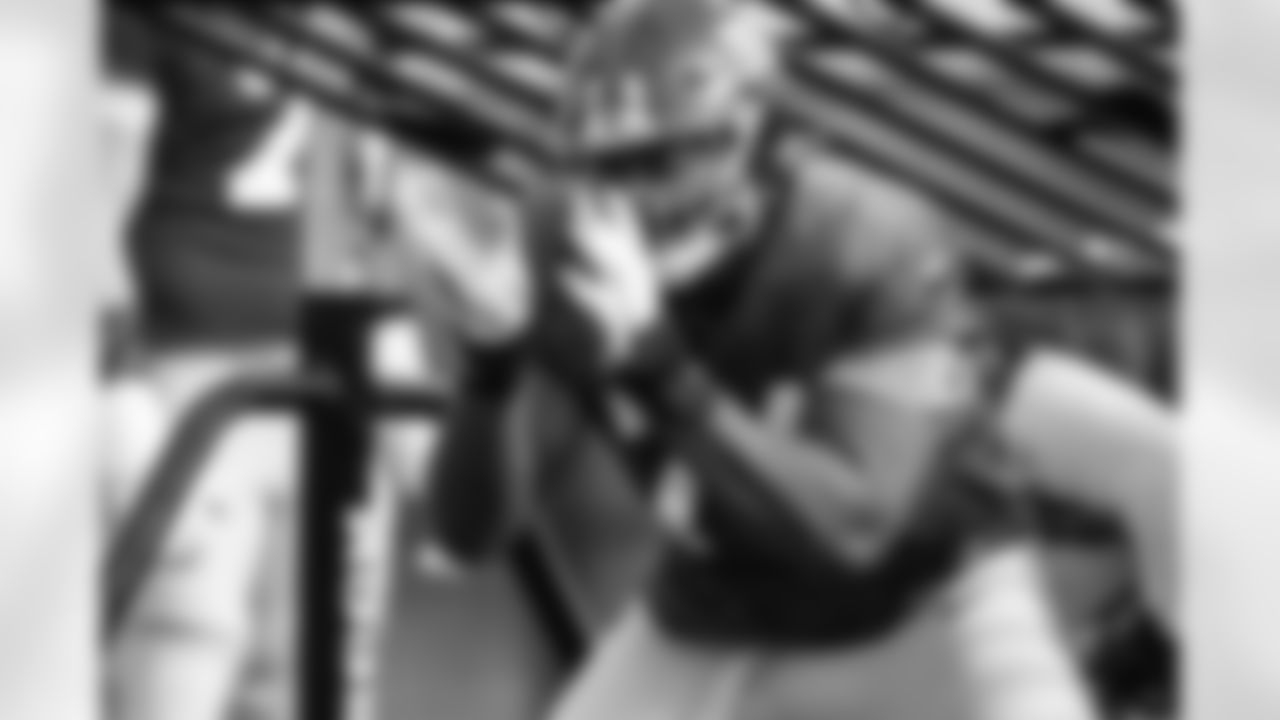
Matt Peart (74)
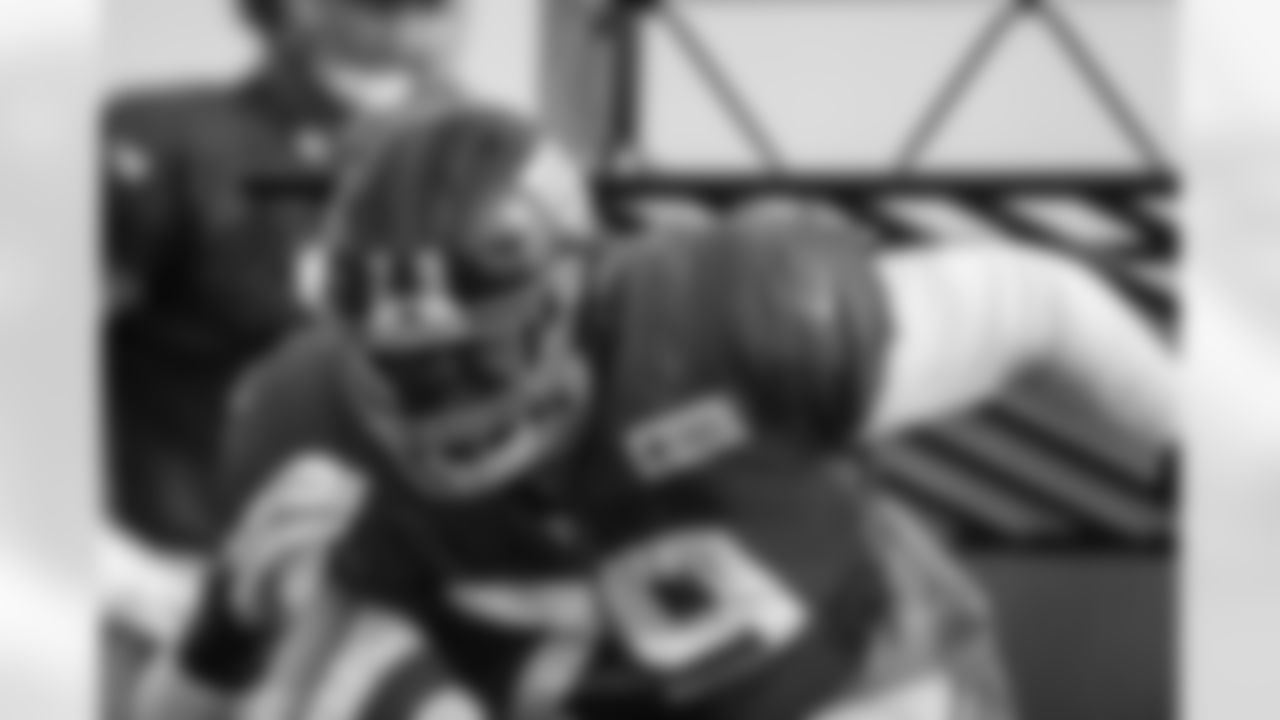
Korey Cunningham (79)

Wes Martin (63)
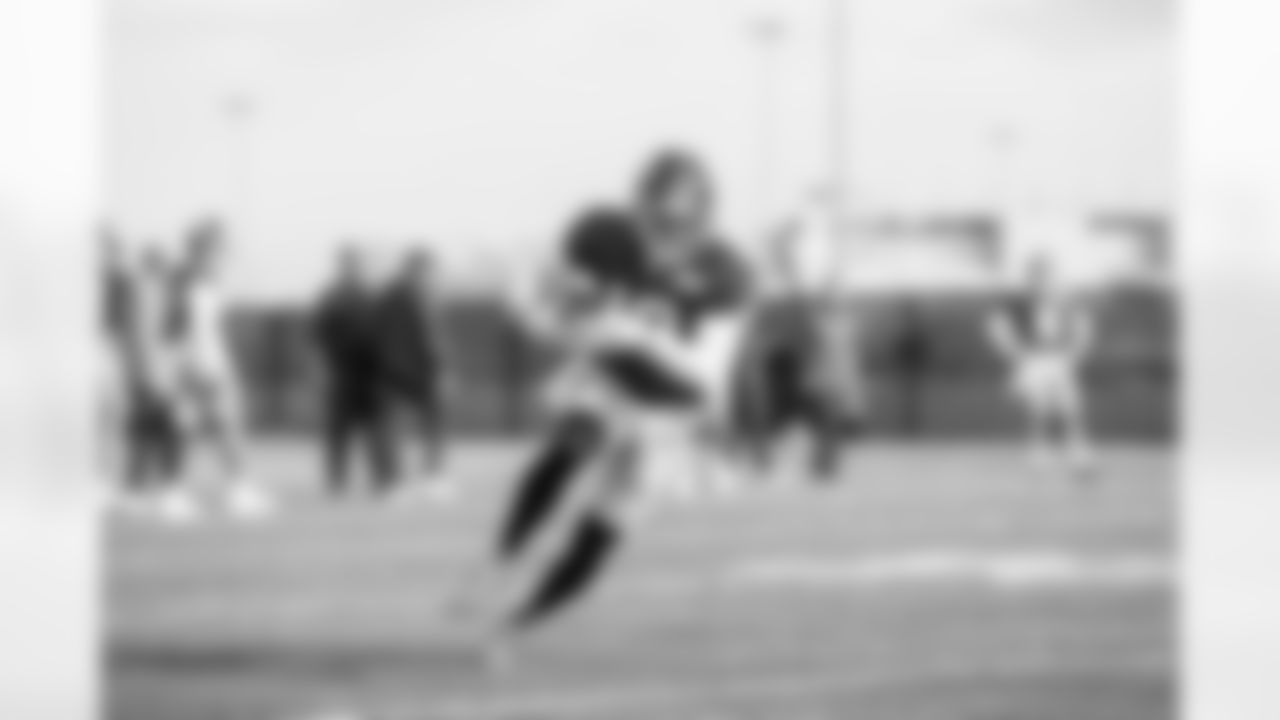
Kenny Golladay (19)
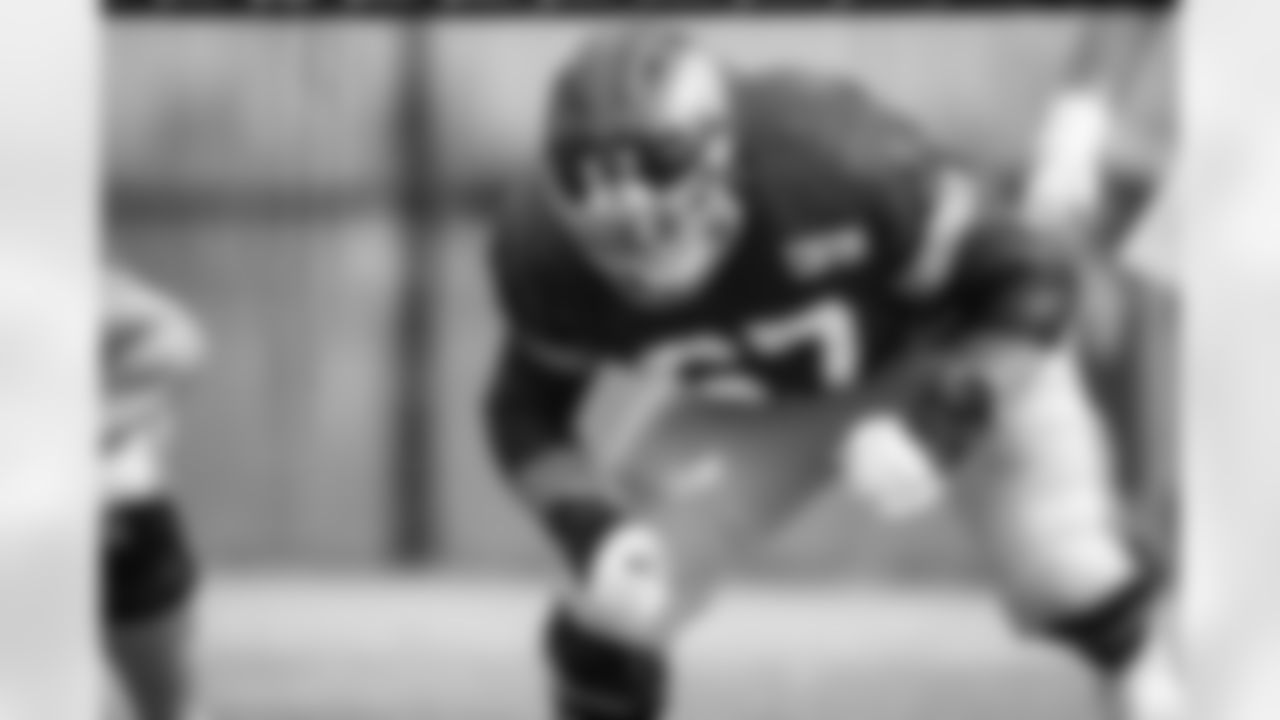
Matt Skura (67)


Danny Shelton (75)

David Moa (96)
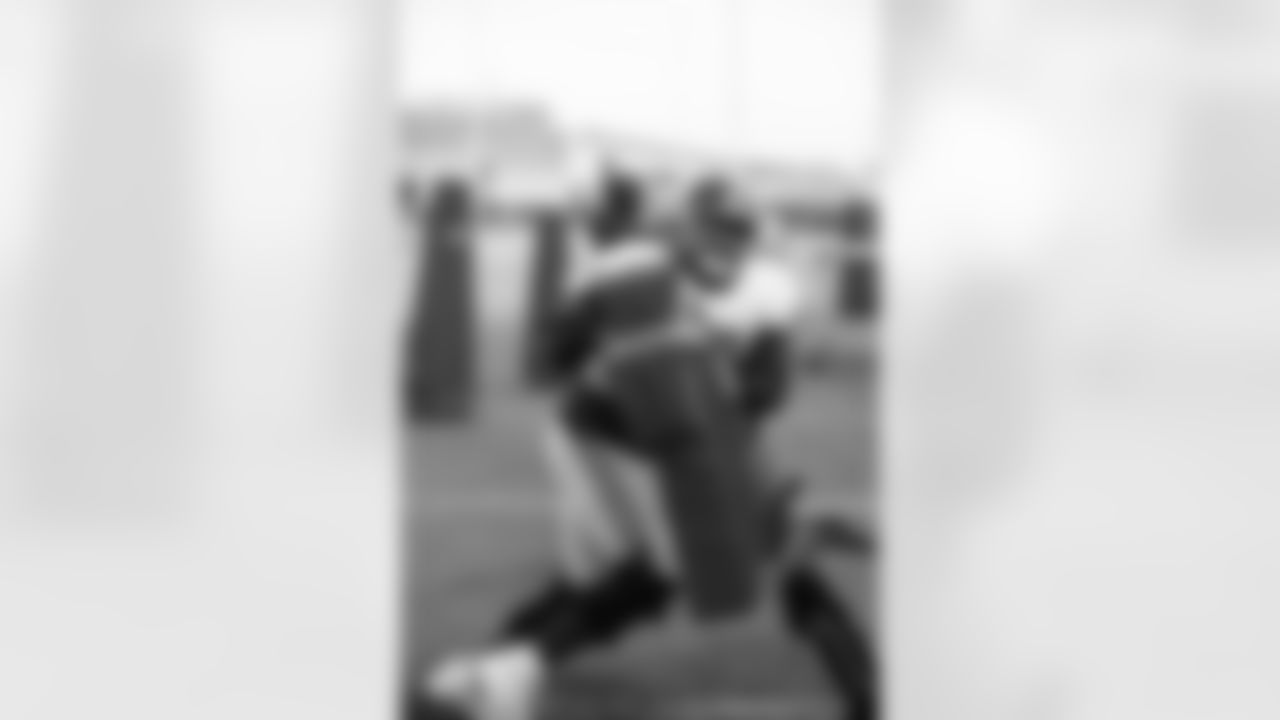
Dexter Lawrence (97)

Danny Shelton (75)

David Moa (96)

Raymond Johnson III (91)

Raymond Johnson III (91)

David Moa (96)

Elerson Smith (94)
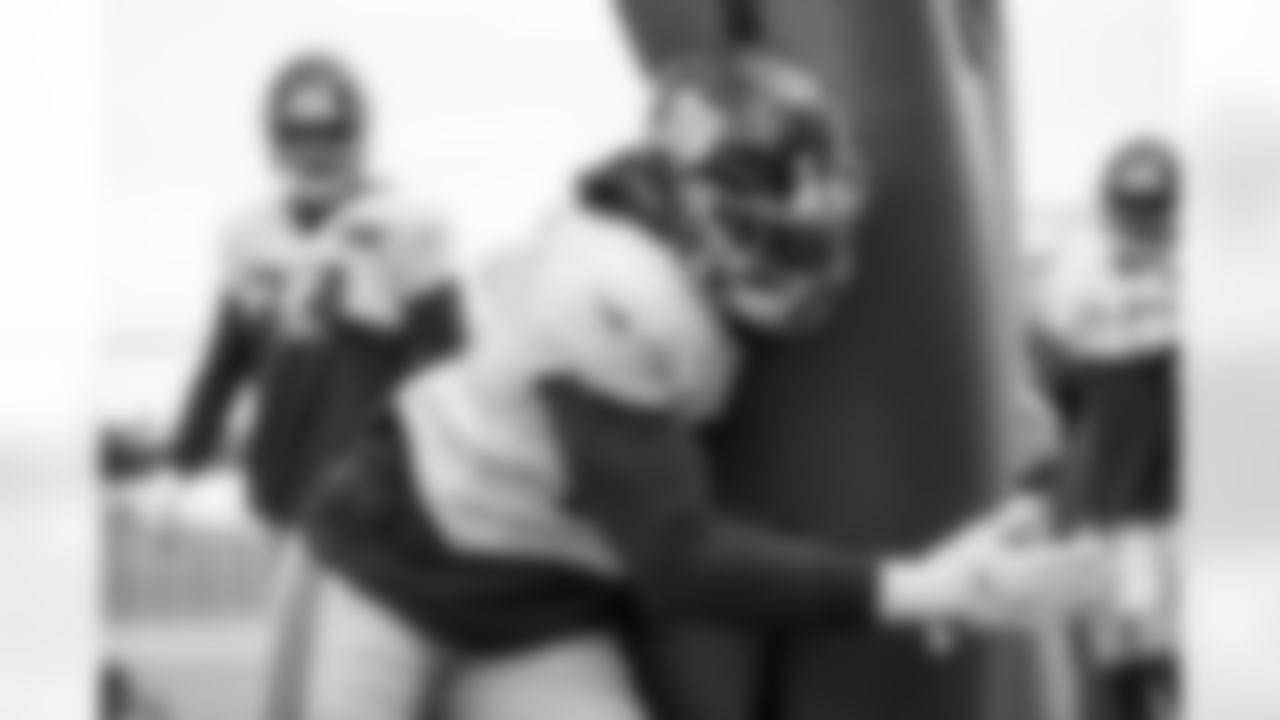
Azeez Ojulari (51)

Quincy Roche (95)
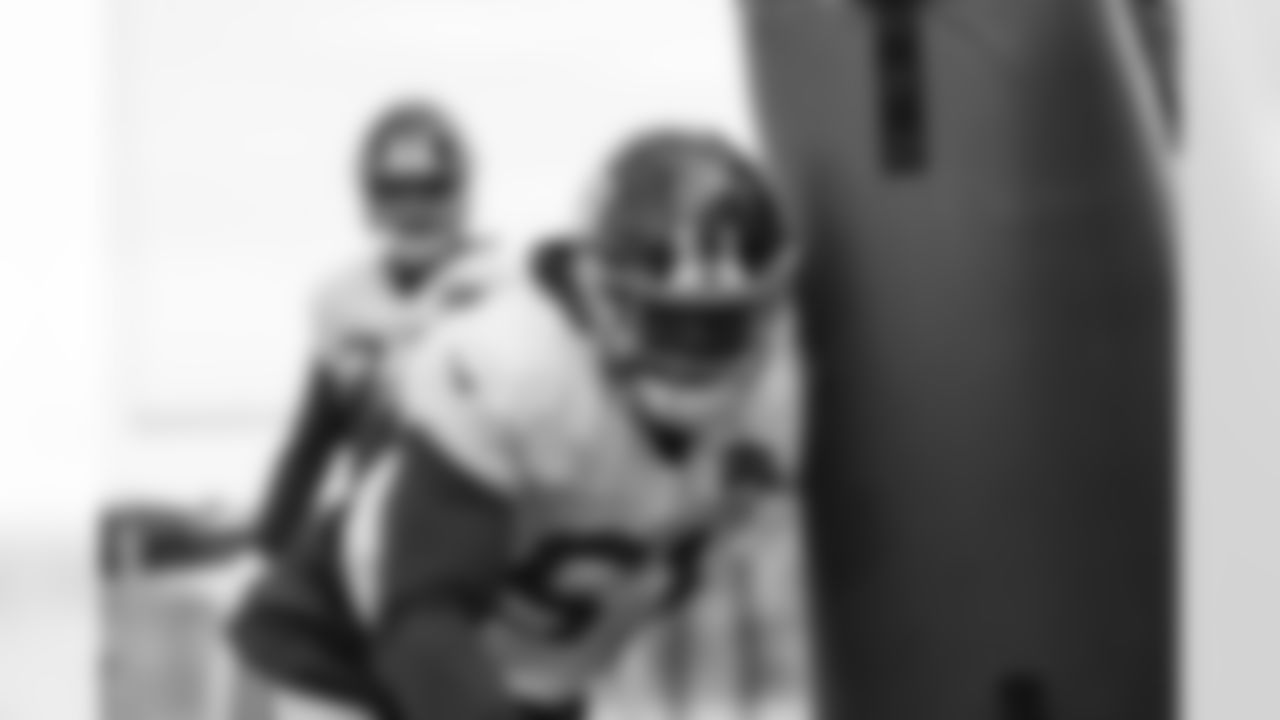
Azeez Ojulari (51)
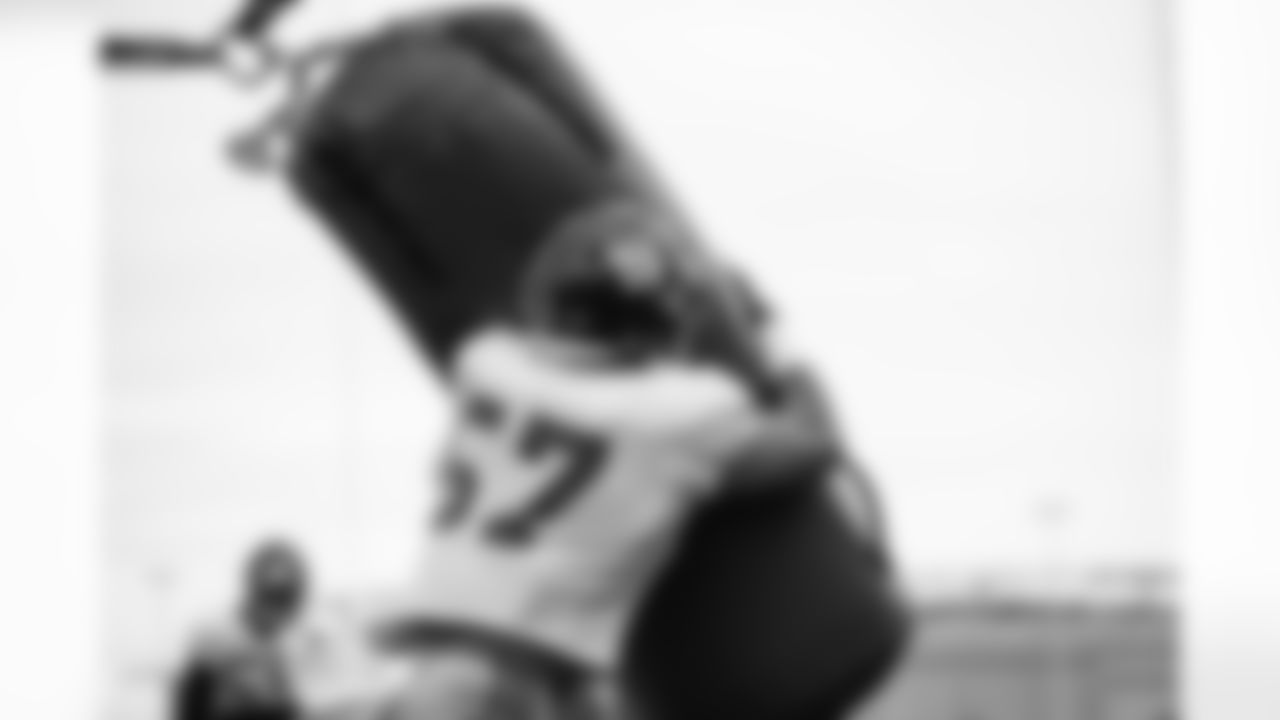
Niko Lalos (57)
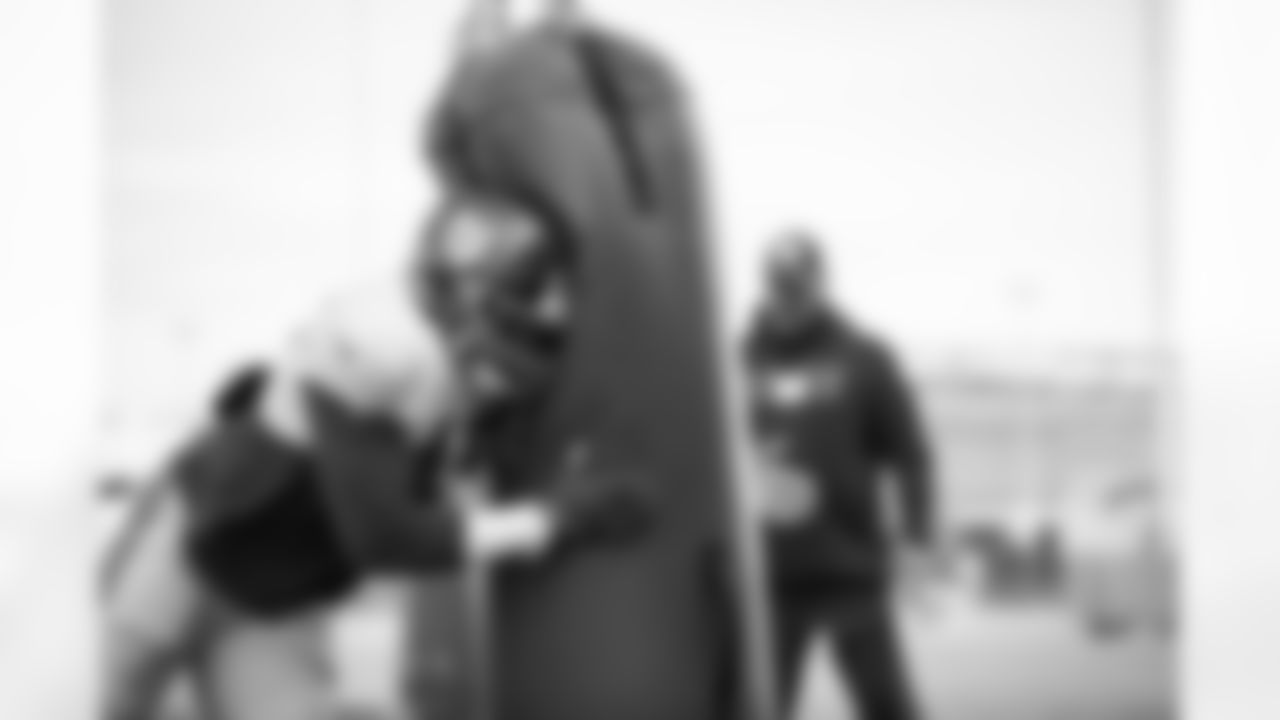
Benardrick McKinney (49)

Niko Lalos (57)
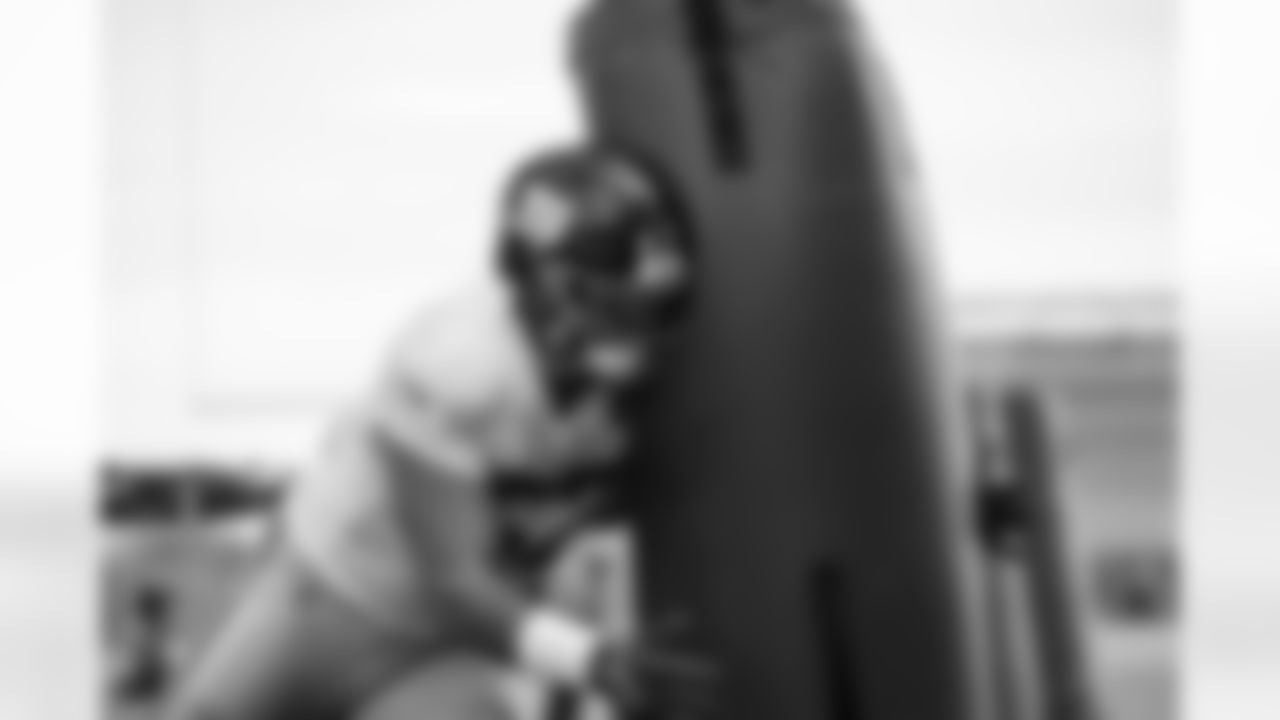
Niko Lalos (57)
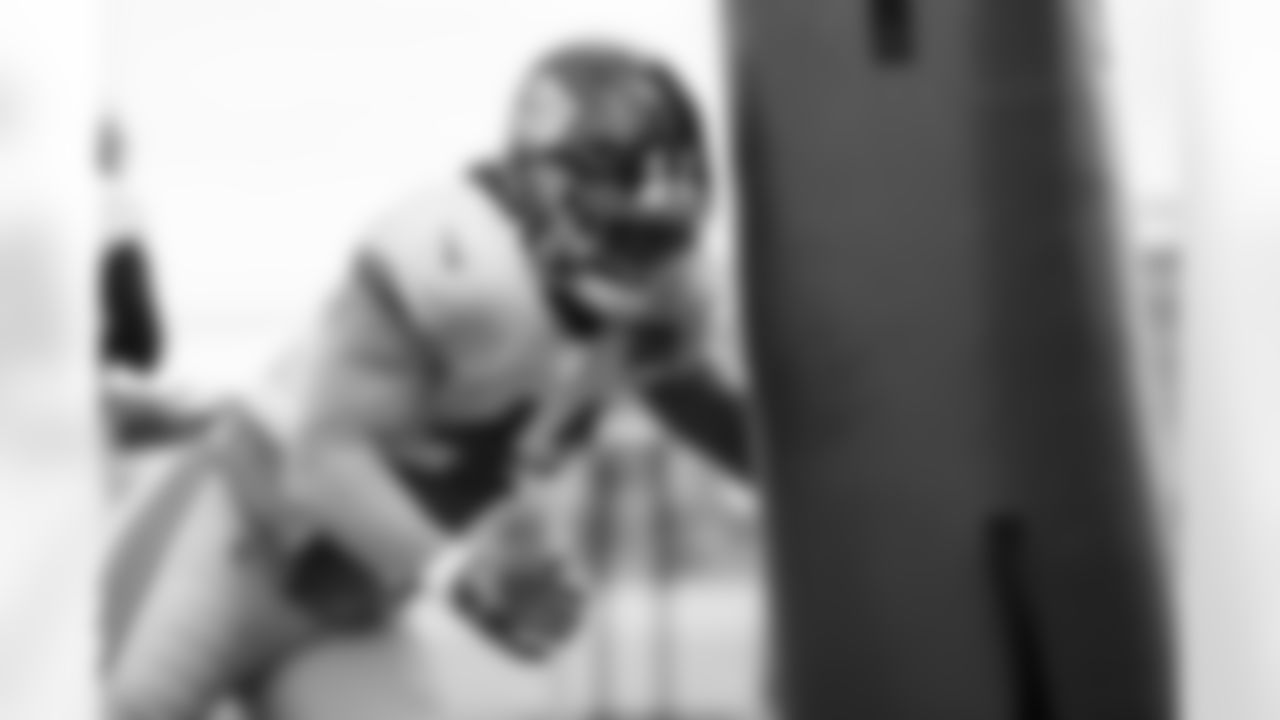
Omari Cobb (44)
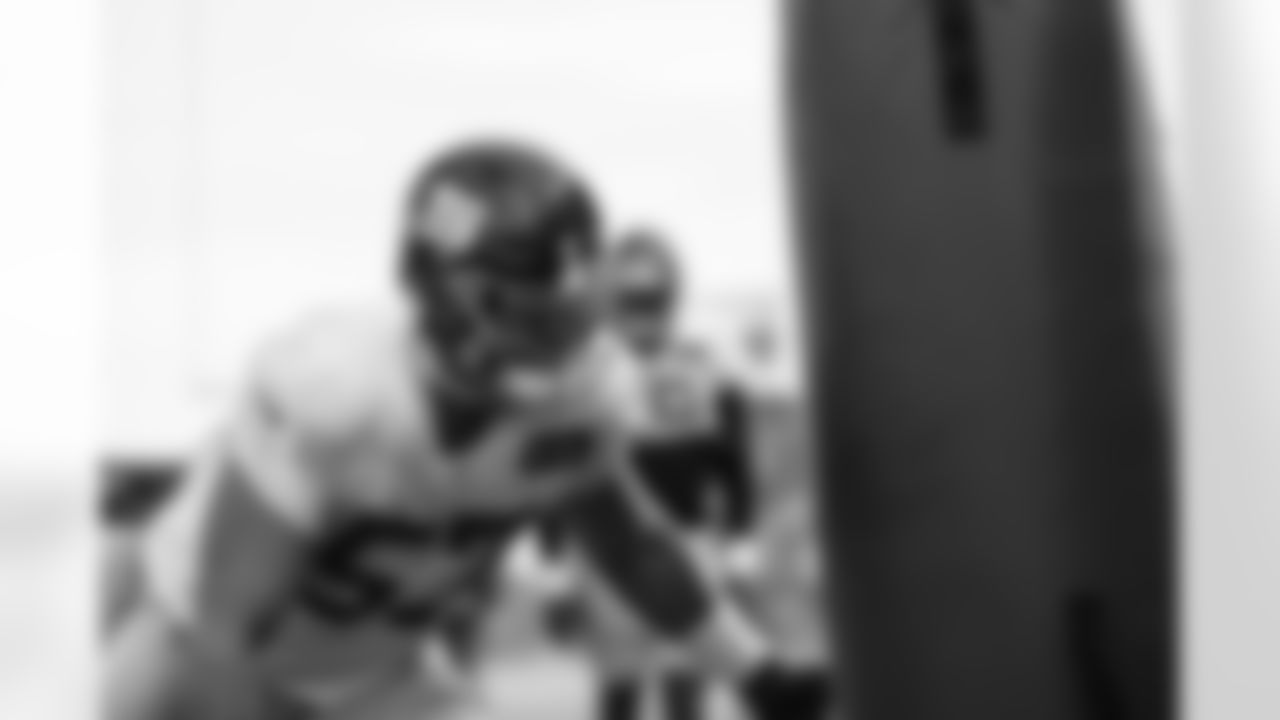
Niko Lalos (57)
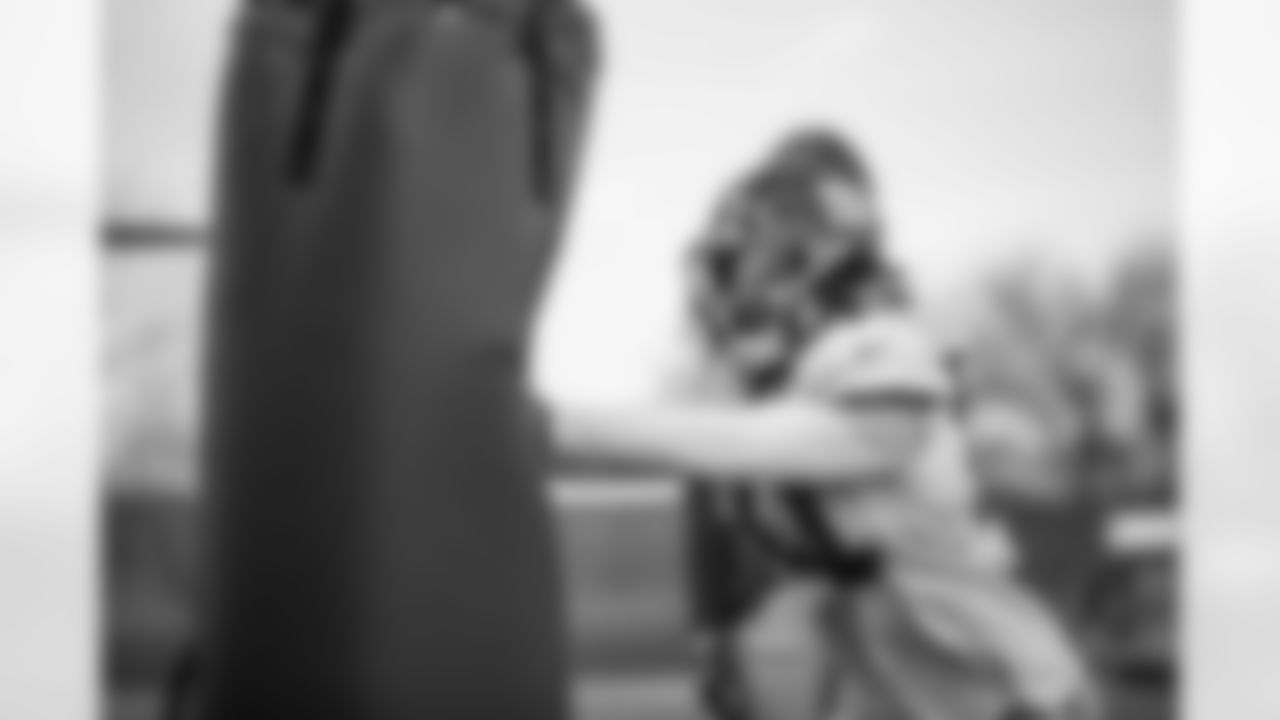
Julian Love (20)
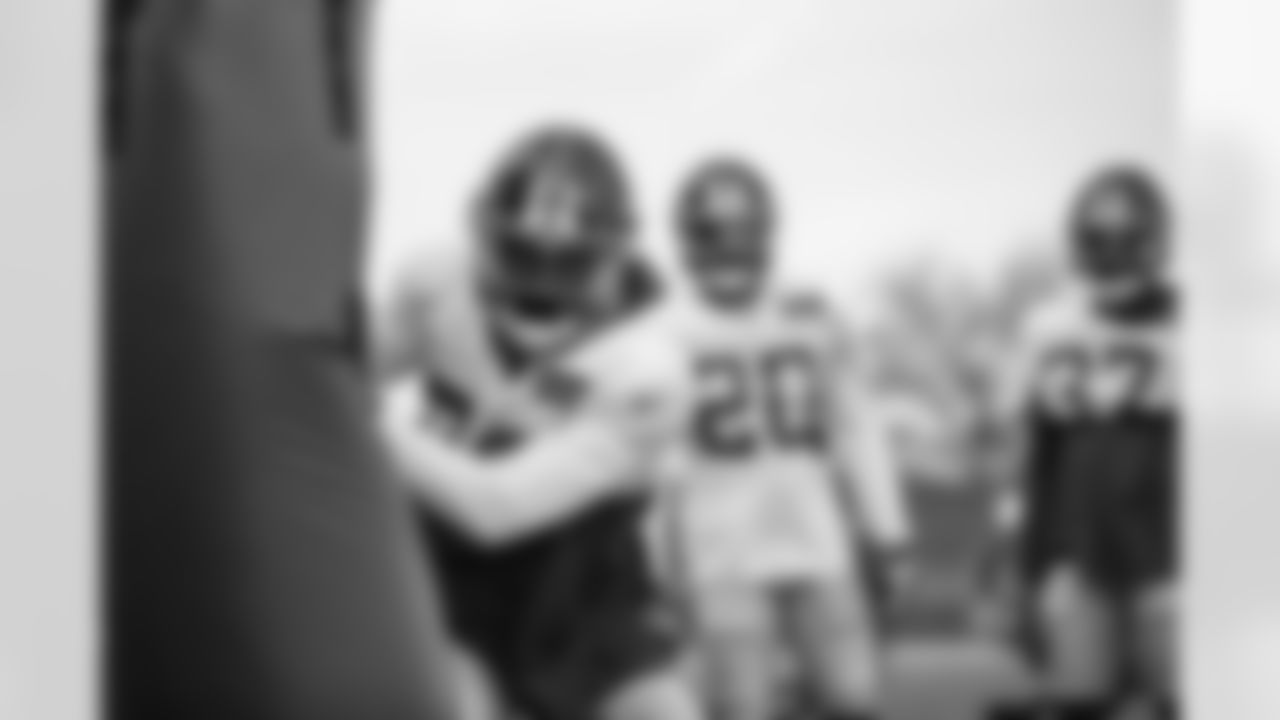
JR Reed (27)

Saquon Barkley (26)

Saquon Barkley (26)
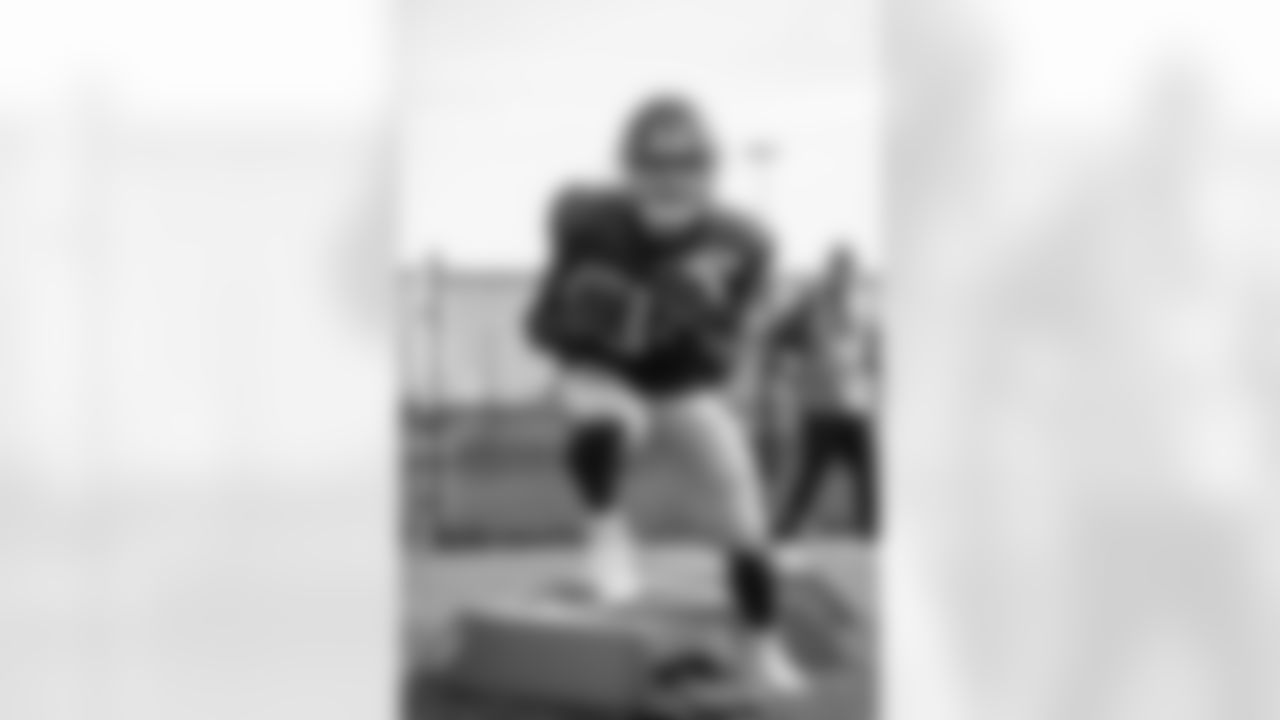
Sandro Platzgummer (34)
Q: With (quarterback) Mike's (Glennon) third start, you've seen him play a couple of games now. Can you tailor plays to him in the game plan now that are maybe better suited for him, that he's more comfortable with or runs better?
Judge: "I think Mike has run our offense. The coaches have already done a good job within the game plans of doing things that are carved out to Mike's strengths and putting our players in positions where they can win matchups and have opportunities in space to make plays."
Q: You are 4-0 at home against division teams. You have won your last three home games. Do you have a sense that you are developing a home field advantage here?
Judge: "Only if we play our best football. We love the crowd here. We love the energy. We love the atmosphere, but it always comes down to how you play on that select day."
Q: (Defensive lineman) Raymond Johnson III was the only rookie free agent to make the original roster, and after (defensive lineman) Leonard (Williams) went out, he played a season-high 25 snaps last week. How has he progressed? What did you see from him last week in his extended stint?
Judge: "The more experience Ray gets, the better he plays. Throughout the year, sometimes the volume of the game changes with Ray based on the opponent and based on the players' roles as well, but he's done a good job progressing. He's getting a good feel for the speed of the league. He's getting a good feel for the schemes and techniques he's got to play with, so I'm pleased with where he is at this point. He's far from what he's going to be as a player, but he's still developing."
Q: You recovered an onside kick last week. How many successful onside kicks have you had in your NFL career?
Judge: "I can think of three right now. We haven't had to kick a ton of onside kicks. I think it's three right now."
Q: Is that one of the hardest plays to convert?
Judge: "It really is. It's become more challenging for the hands team this year, but it is. You have to keep in context the limited approach that the kickoff team gets, the spacing from where the ball is going to leave the tee, to the hands team and giving them the perspective on judging the ball and reacting. It takes some good execution. It takes the right bounce at the right time. It's one of those plays where you've got to be very on-point as the team kicking the ball. You got to take advantage of some kind of mistake or miscue by the hands team at some point."
Q: Is (punter) Riley (Dixon) just better at doing that than (kicker) Graham (Gano)?
Judge: "That's really not too unique to the NFL. Normally, it's between the specialists. And look, I've had (defensive back) Nate Ebner kick onside kicks for me before in games with his rugby background, so it's not overly unique to just find whoever has the best kick on the team. Graham has different types of kicks than Riley. Riley has a variety of kicks as well, so we kind of fool around with a lot of things. Those guys do it in practice, and we use the best one for that game."
Q: A league-wide special teams question. Last week in the Chicago-Green Bay game, we had the first punt return for a touchdown in the NFL this season. Why do you think there's been so few of them now? I can see it on kickoff returns because there are so many touchbacks. Why do you think it has happened with the punt return touchdown?
Judge: "Well, I think it's a combination of a lot of factors. One, punters have gotten a lot better. Two, the threat of fakes on fourth and short force a lot of people to play eight in the box, which puts singles over the gunners. The gunners are fast and talented. They can get down and force fair catches and cover more effectively with singles. Then, the other thing is that league-wide offenses are in better field position when punting. When you're closer to midfield, that changes the way you approach returns, and it changes the way you approach the schematics of the play. A lot of times, it limits the opportunities as well as just makes it a longer return for the return team. So, I think there's some different factors in that. I don't think it's forever. I think you're going to see it come back. A lot of times, it's based on who the returners in the league are, to be honest with you. When (former All-Pro returner) Devin Hester is out there, he's going to catch that ball and bring it back. A lot of times, it depends on who the returners are and the opportunities that are presented to you."
Q: You host Dallas on Sunday. When you play a division opponent two months after the first meeting, how helpful is it to go back and review the first game?
Judge: "It's critical. You have to be able to see schematically and also matchup-wise with your own personnel what happened and what was the result? But then, there's also differences as well. You got to see what they have changed since your first game schematically and personnel-wise. How are different players playing for them? Young players play better. Has there been a player that's being taken advantage of somehow? What have different teams done against them to neutralize some their strengths? And then, what are they doing as far as different modes? What has evolved through their game plan throughout the year?"
Q: The Cowboys are number two in the league in scoring and yards-per-game and ranked in the top 10 in both rushing and passing. Do you think this is as talented a team as you've played all season?
Judge: "Yeah, absolutely. First off, I think the way they've built that roster up over years - that offensive line has always been one of the strongest in the league, and that really enables you to do everything. You can run the ball, you can pass the ball, you can sit back there with time. Then, when you have a successful offense, the defense can play with the lead and play more aggressive because teams have to play catch up with you. But, Dak (Prescott) is doing a phenomenal job. I think he really is a great player. I love the way he handles himself off the field. He's a tough competitor. He's done a great job coming back from that injury last year and really not missing a beat."
Q: Defensively for a lot of years, DeMarcus Lawrence was their only consistent player. Now, they have several of them. You talked about (linebacker) Micah (Parsons) this week. (Defensive end Randy) Gregory has six sacks. (Cornerback Trevon) Diggs has nine interceptions. Does (defensive coordinator) Dan (Quinn) move Parsons around a lot?
Judge: "They move him around throughout all their packages. They find different ways of matching him up in the rush game of who they want to put him over, whether it's an edge player or it's one of your guards inside. They can put him in a stack and then shoot a gap off some movement in front of them, so they do a good job moving around and disguising it. He's a very athletic, very effective player. He's strong, he's got good first step quickness, and he's got good power to lean on through and get a good dip to the rush. He does a very good job. He's obviously evolving very quickly through his career."
Q: When you have a very good player who moves a lot, do you tell the quarterback that he must know where that player is before each snap?
Judge: "Based on the scheme you're running, absolutely, but they have a number of players you have to be aware of where they are, so you can't send everything on just one player. But absolutely, you have to be aware of where '11' is at all times."
Q: When you face a team that has 27 takeaways and leads the league in interceptions, I know you remind the team all the time about ball security and taking care of the ball, but is it a particular emphasis this week?
Judge: "Ball security is always our top emphasis. The turnovers and the penalties are the two biggest factors in winning and losing a lot of times, and those are things you control. So, in terms of the ball security, it's obviously a main point for us. We'll continue to emphasize that throughout practice this week."
Q: Their punter, (Bryan) Anger, leads the league in net punting. I don't know if (running back) Tony Pollard is going to play, but he has the league's best kickoff return average. You always talk about (special teams coordinator) John Fassel and the job he does. What makes his group so special?
Judge: "I think the success the punter is having, and he's a very talented punter, but it's tied into the scheme Bones (Fassel) gives him. Really, look at the history of Bones with the fakes, it makes a lot of teams play eight in the box against them. And as I said earlier, when you have very fast gunners, like (Cornerback C.J.) Goodwin, you put him outside in a single, and you get a big-leg punter punting it, you eliminate a lot of return opportunities, so it all ties into how teams have to play schematically to make sure they eliminate the fake by playing extra players in a box. And then, it combines and ties together with the talented specialists and core players at gunner to go ahead and give them that field position."
Q: Their kickoff return average is one of the best in the league, their punt return average is the lowest. Why the big difference in your opinion?
Judge: "They had the (100-yard) touchdown against the Raiders, that's a huge return. Normally, when you have the one big return, one thing about the return game is statistically you almost want to do like a bell curve and take away the top and the bottom number to see really where you are in the middle. Special teams can be very deceiving in statistics because a lot of times, it takes one big return to go from 32nd in the league to the top 10, and that's just the reality of what it is. Coaching special teams for a long time, you look at it without the top one and the bottom one. But they have explosive returners back there in both phases. A big part of the difference, like we talked about earlier in terms of the punt returns, is sometimes the opportunities just aren't presented to you, and you can't force it in the return game. You have to take what comes to you."
View rare photos from the historic rivalry between the New York Giants and Dallas Cowboys.
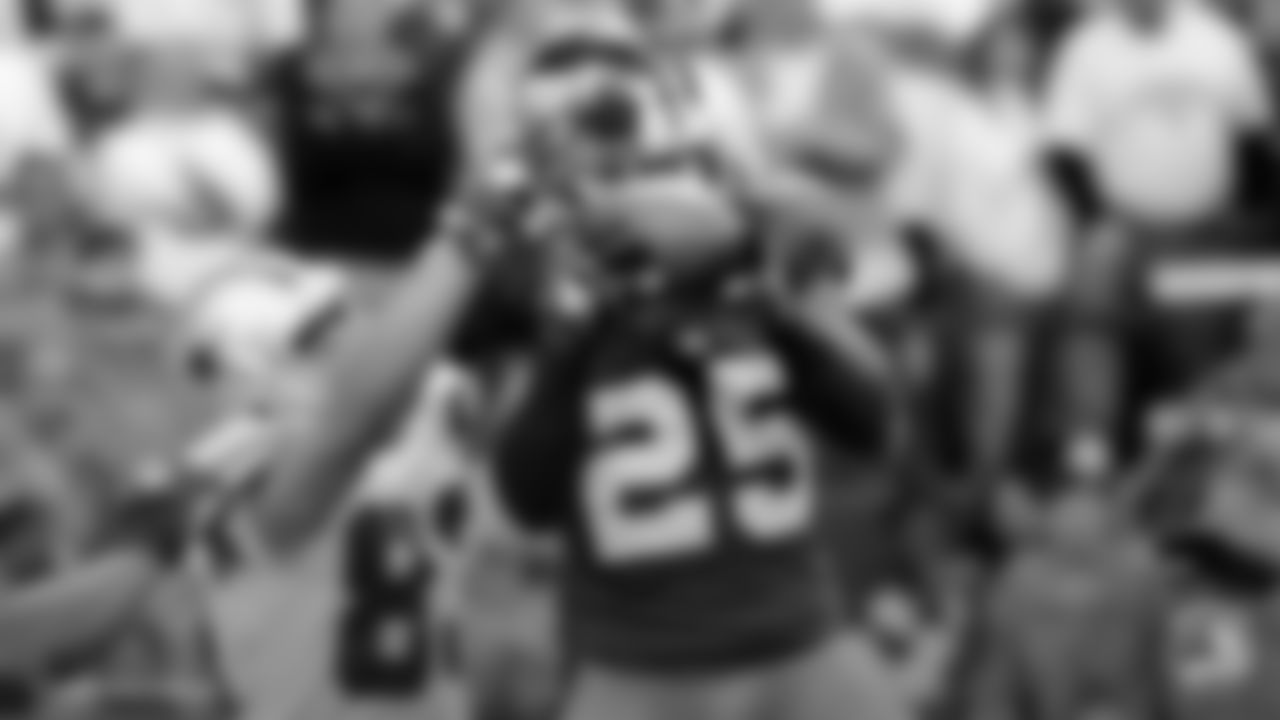
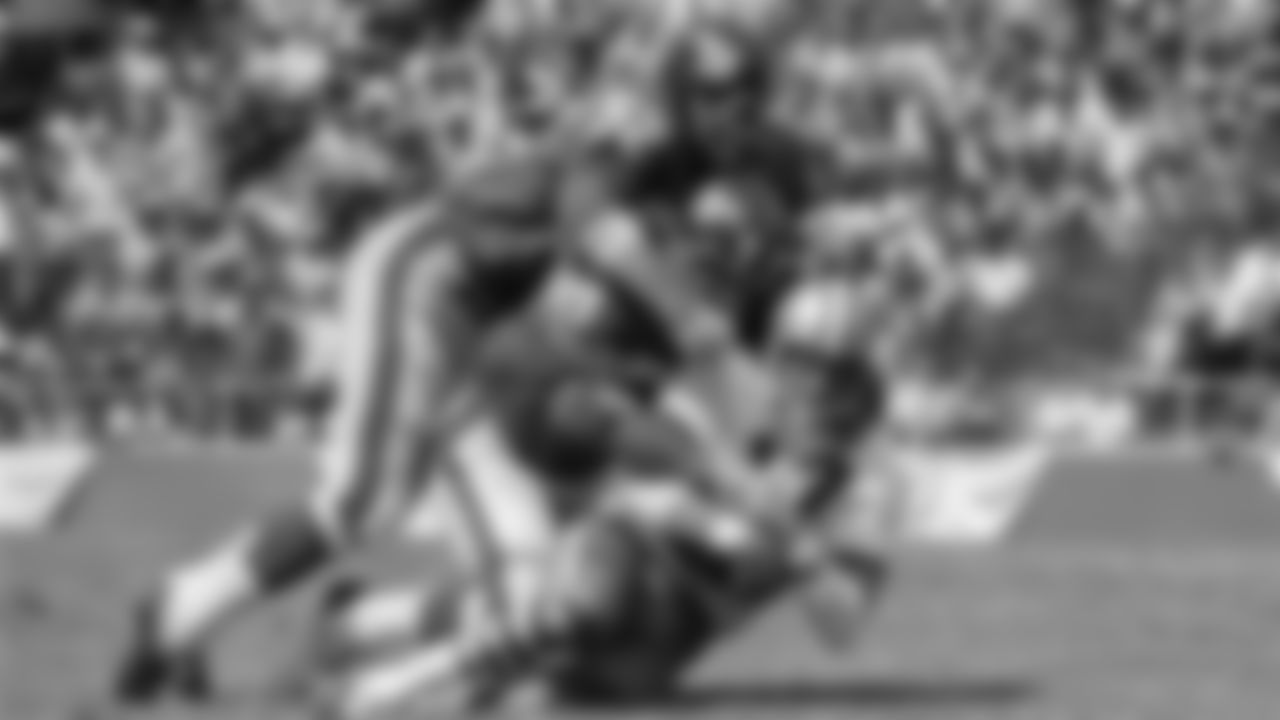
Dallas Cowboy quarterback Don Meredith (17) is tackled after an 8-yard run in the second quarter of Sunday's game at the Cotton Bowl against the New York Giants September 24, 1967. Making the tackle are Giant Linebackers Bill Swain (52) and Vince Costello (57). (AP Photo)
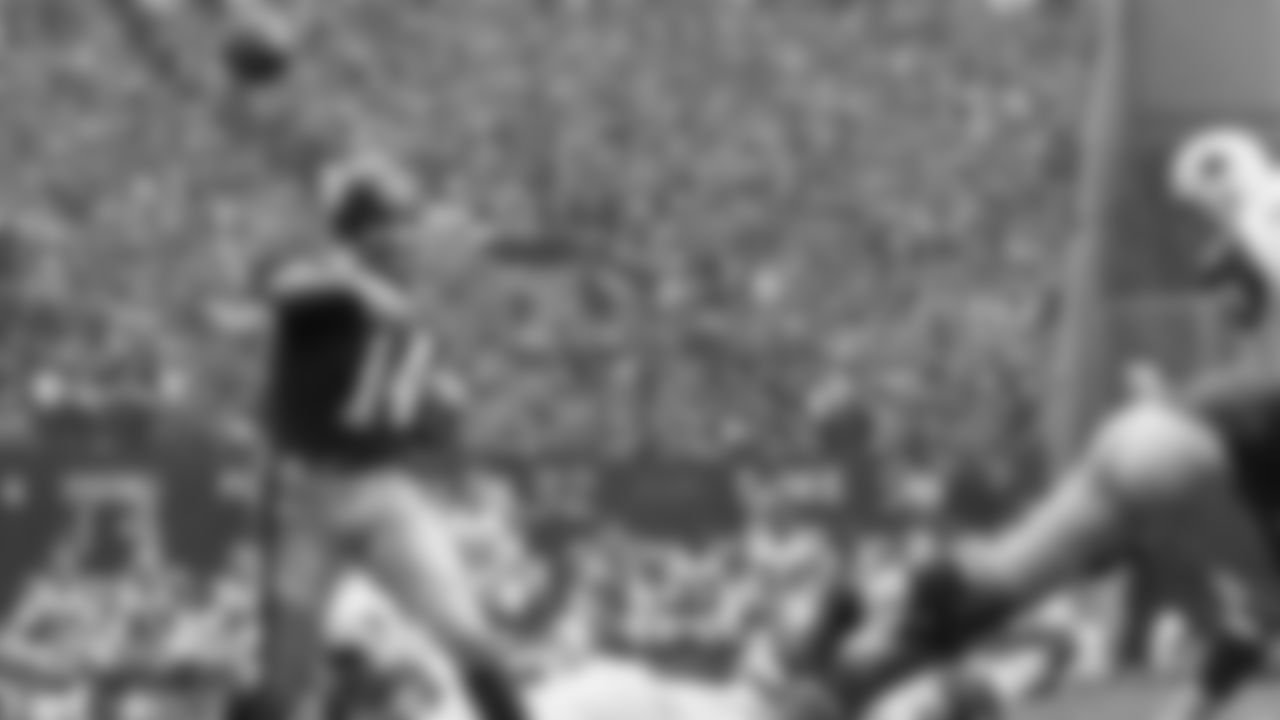
Y.A. Tittle directs a last minute shift in strategy as the big Giants line engages the Dallas Cowboys, Nov. 12, 1963. (AP Photo/Ruben Goldberg)
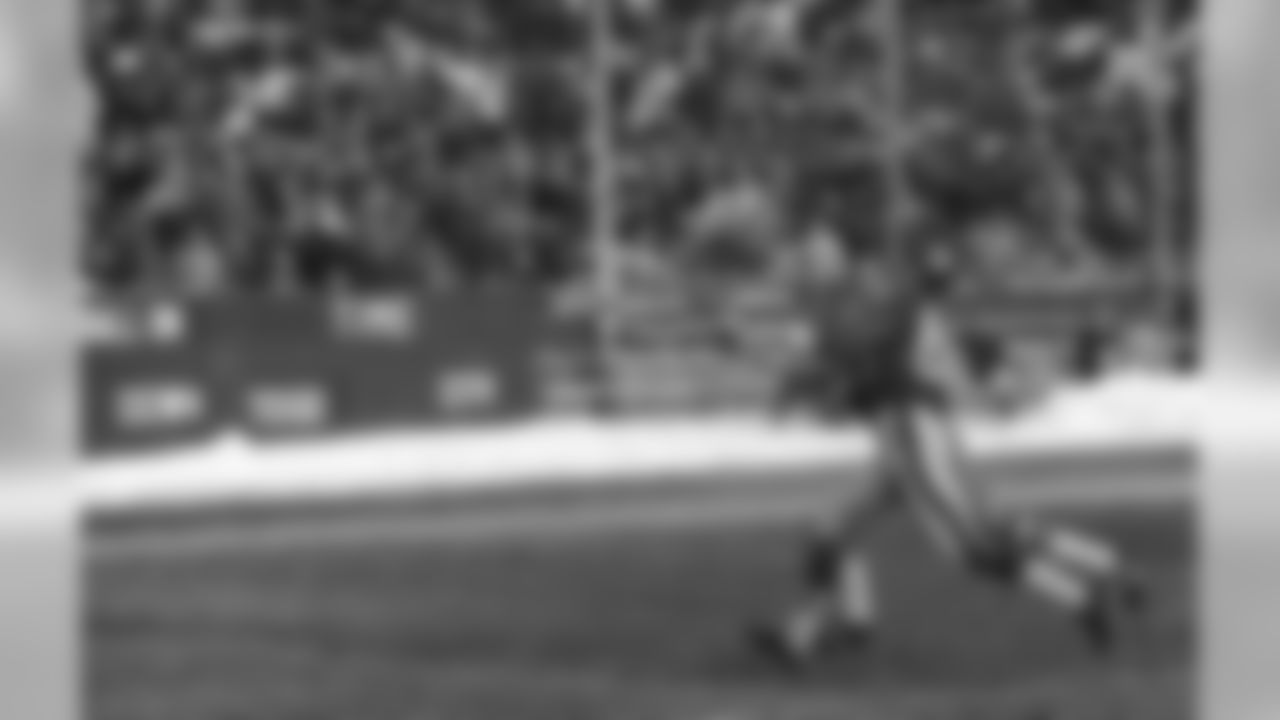
New York Giants right end Aaron Thomas (88) tries hard but fails to catch pass from quarterback Fran Tarkenton in second quarter of game with the Dallas Cowboys at Yankee Stadium, Dec. 16, 1968, New York. Unidentified Cowboy pacing Thomas also failed in his intercepted attempt. The Cowboys won, 28-10. (AP Photo/Harry Harris)
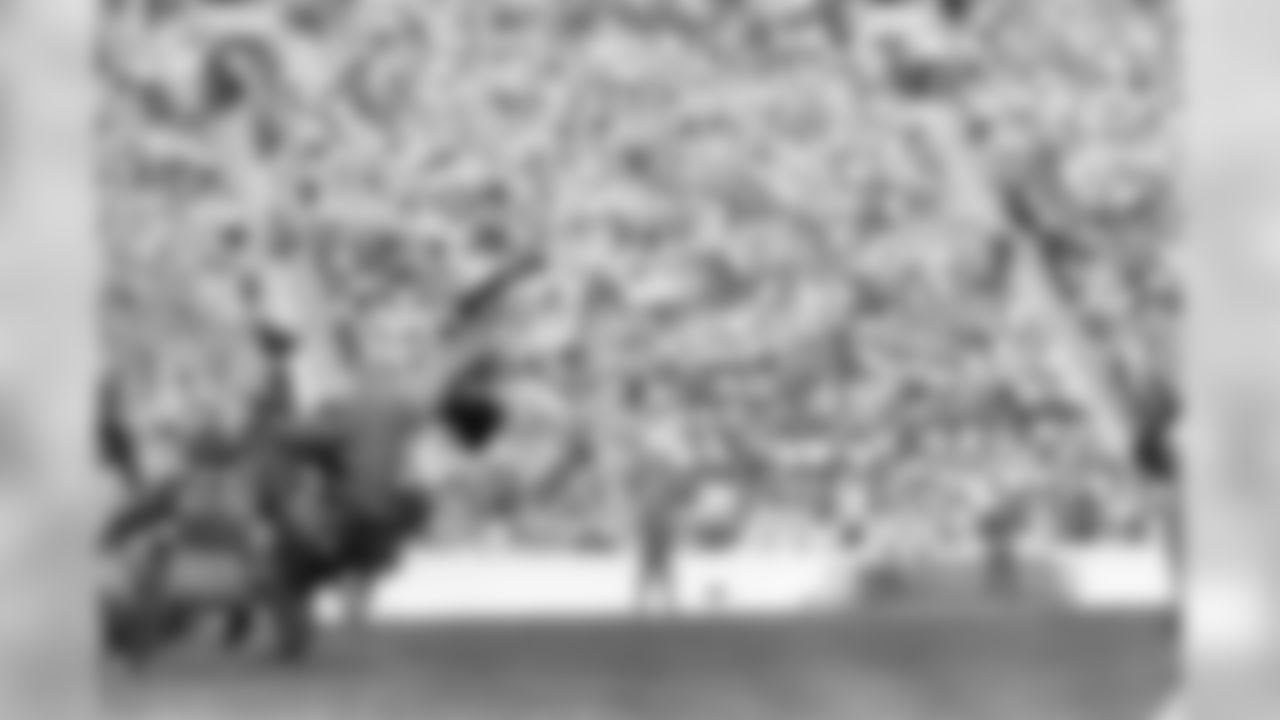
Cowboys fullback James Stiger (40) wasn't stopped by Giants Defensive back Jim Patton (20) in a play in the fourth quarter of their game at the Cotton Bowl in Dallas October 12, 1964. Stiger slipped from Patton a grasp and sailed through the air for a 11 yard gain. Coming in on the play is defensive Giants back Andy Nelson. (AP Photo)
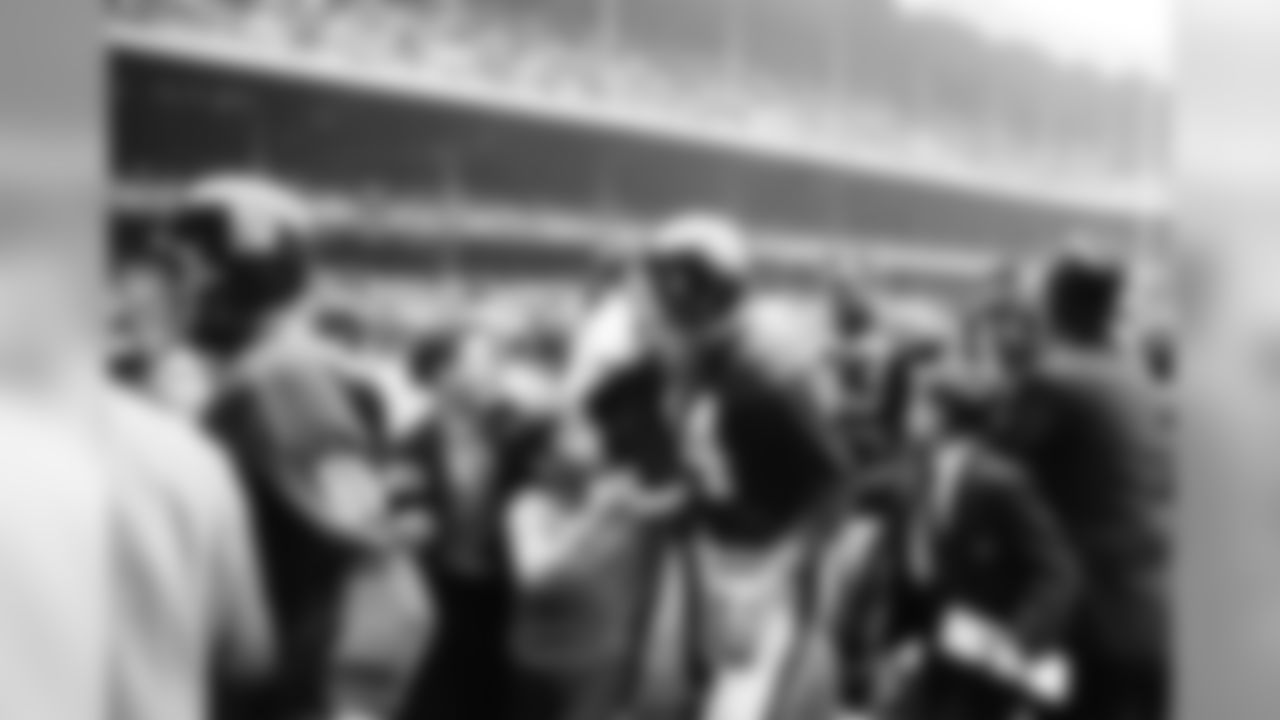
Y.A. Tittle the hero is used to receiving attention and adulation wherever he goes. Here admiring young fans escort him from the field after a victory over the Dallas Cowboys, Nov. 12, 1963. (AP Photo/Ruben Goldberg)
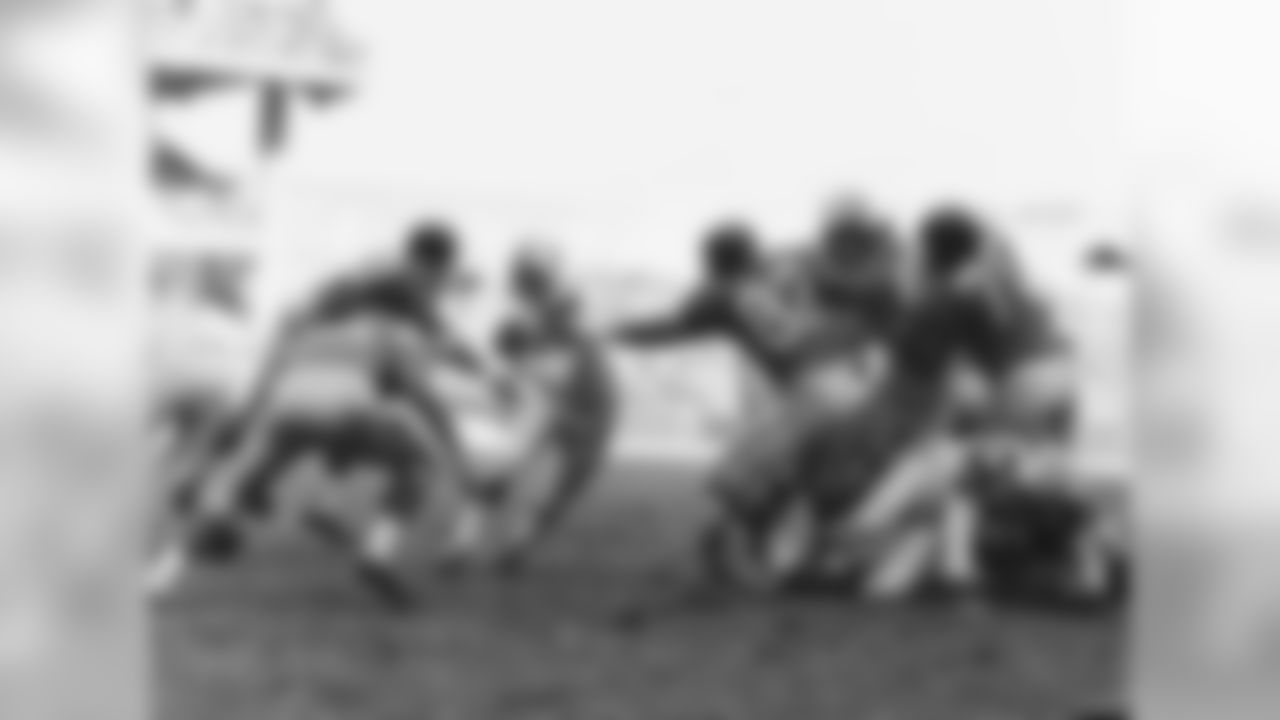
First quarter of NFL game in Yankee Stadium, on Dec. 6, 1960 in New York. (AP Photo)
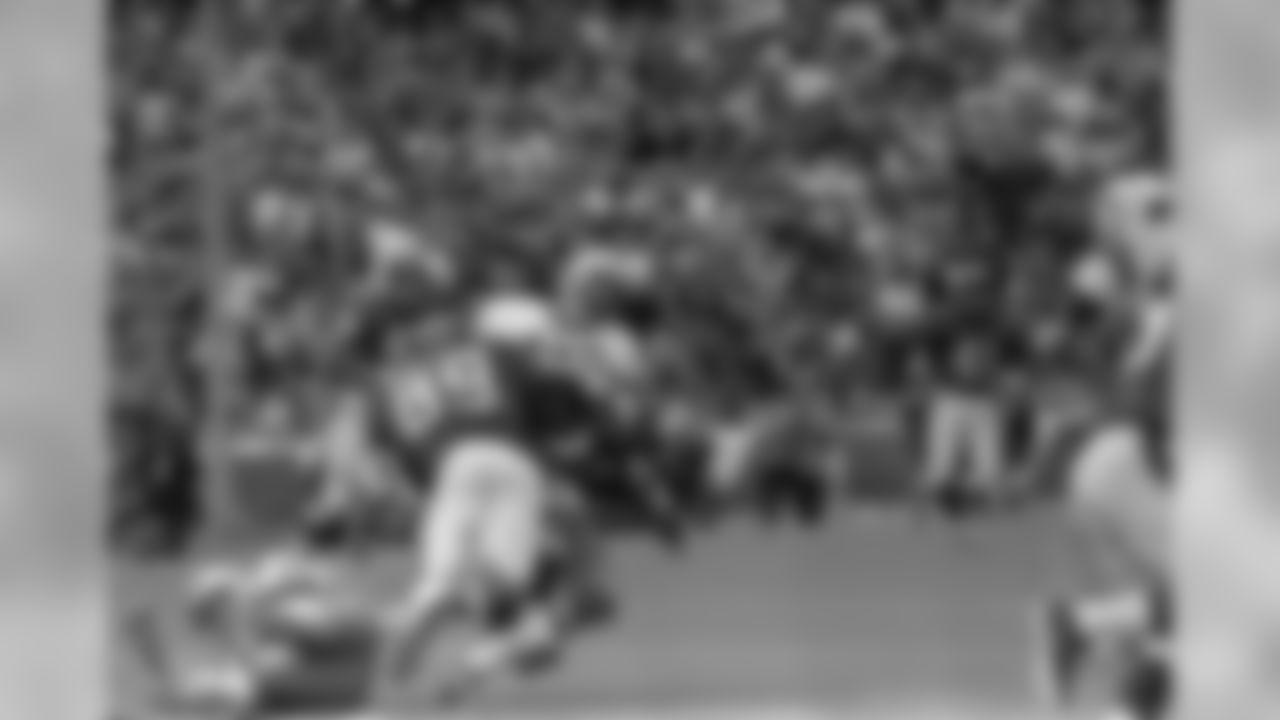
Dallas Cowboys quarterback Roger Staubach (12) grimaces as he is hit hard by New York Giants defensive end Fred Dryer (89) and safety Tom Longo (44) after making short gain in second quarter of their game in Dallas, Tex., today, September 27, 1970. (AP Photo)
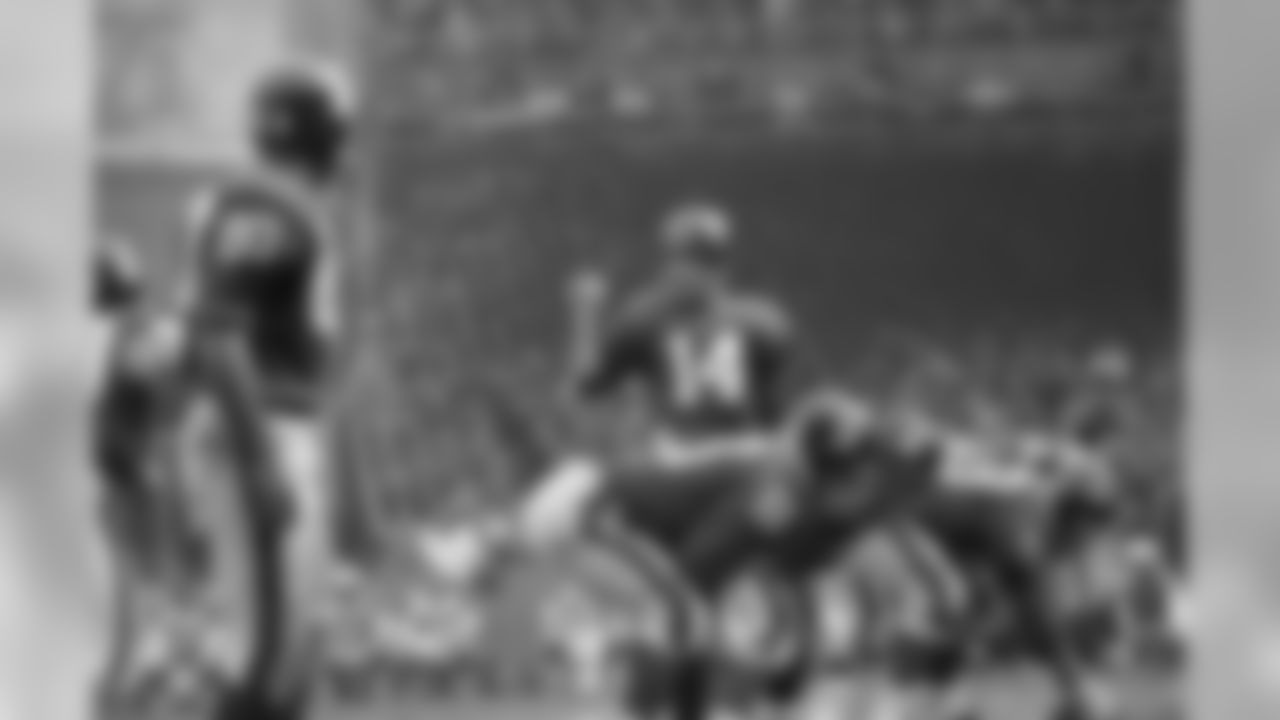
Y.A. Tittle, quarterback of the N.Y. Giants, directs a last minute shift in strategy as the Giants line crouches to engage the Dallas Cowboys, Nov. 12, 1963. (AP Photo/Ruben Goldberg)
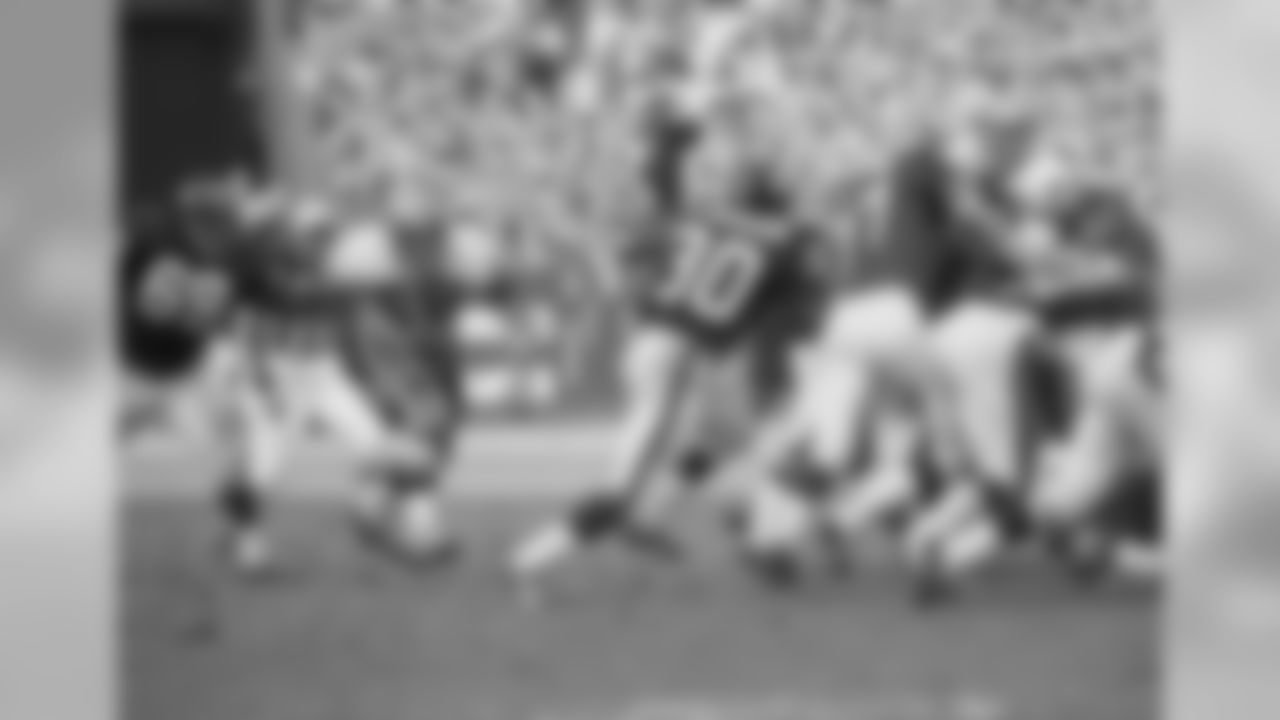
Dallas Cowboys George Andrie (66) during a game against the New York Giants on September 27, 1970 at Yankee Stadium in the Bronx, New York. The Dallas Cowboys beat the Minnesota Vikings 28-10. Craig Morton played for 11 season all with the Dallas Cowboys and was a 5-time Pro Bowler.(David Durochik via AP)
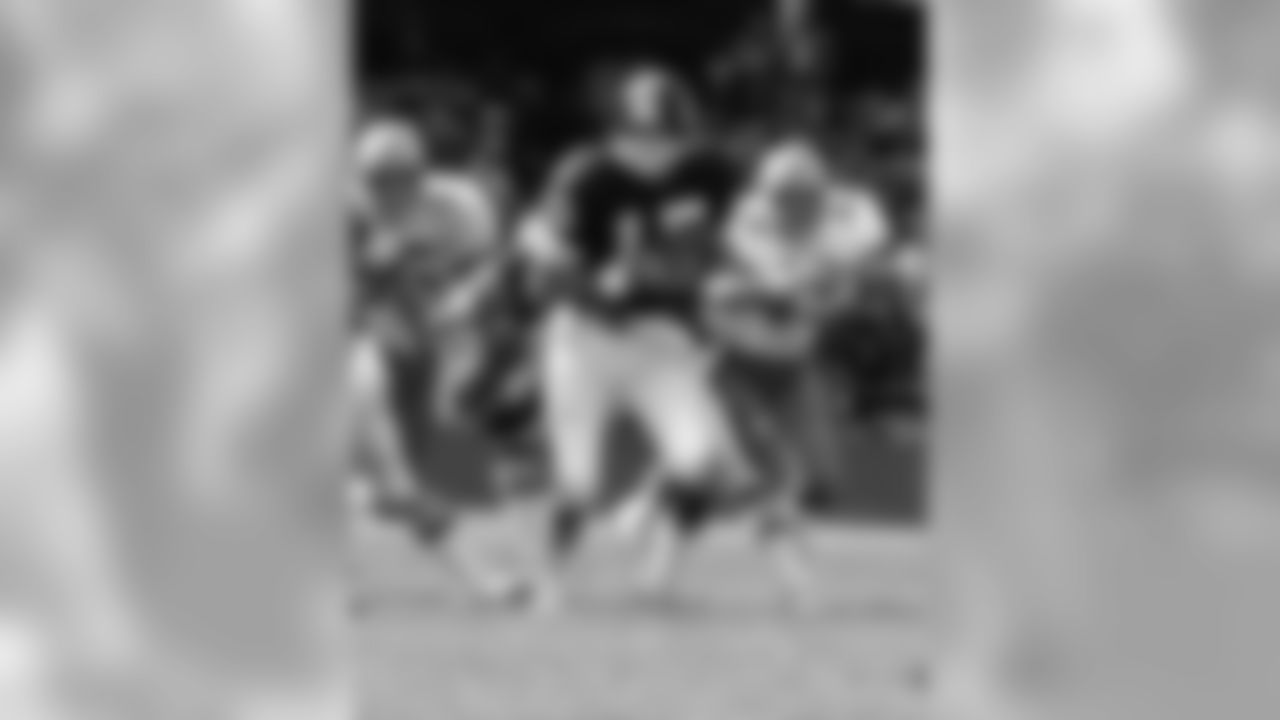
New York Giants quarterback Craig Morton (15) turns to handoff as Dallas Cowboys linebacker Lee Roy Jordan (55) and safety Cliff Harris (43) run in pursuit during an NFL game in Flushing on October 12, 1975. The Cowboys defeated the Giants 13-7 in Shea Stadium. (AP Photo/Kevin Terrell)
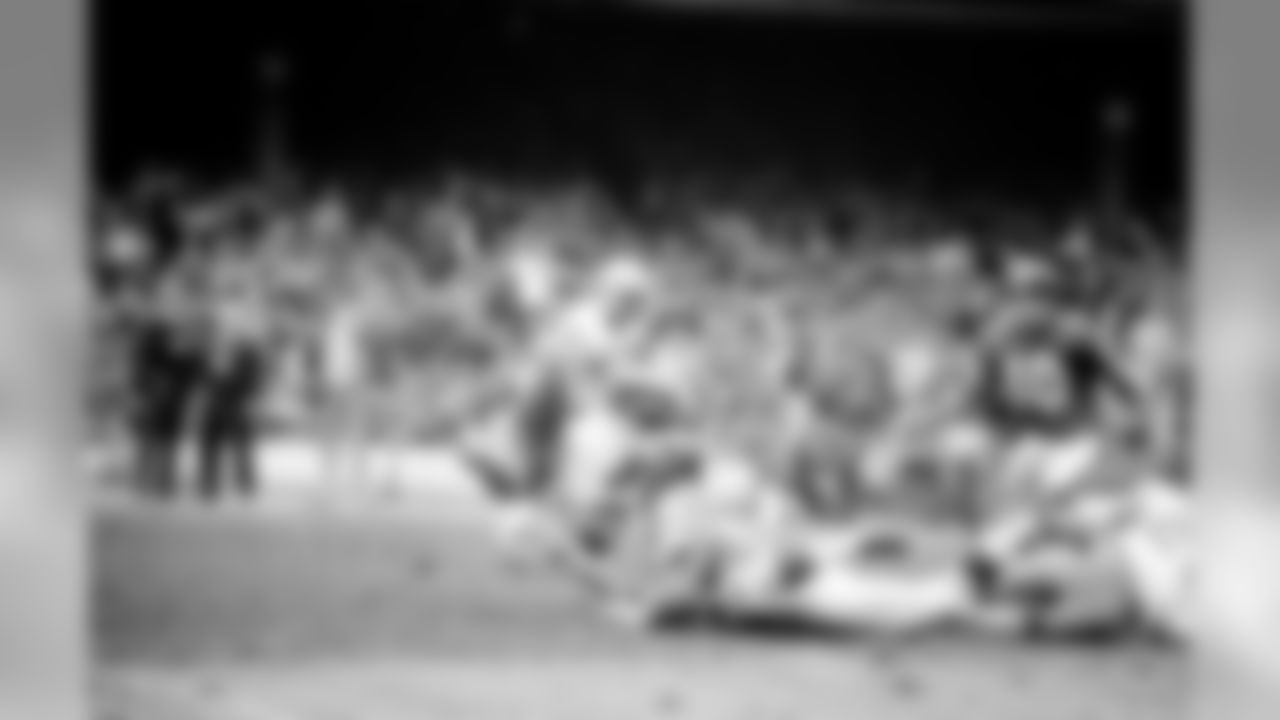
Cliff Harris (43) of the Dallas Cowboys is upended returning a punt by the New York Giants during the second quarter at Yankee Stadium in New York, Dec. 13, 1971. Making the tackle is the Giants' Ralph Heck (55). In the background is Cowboy Claxton Welch. The Cowboys routed the Giants 42-14. (AP Photo/Ray Stubblebine)
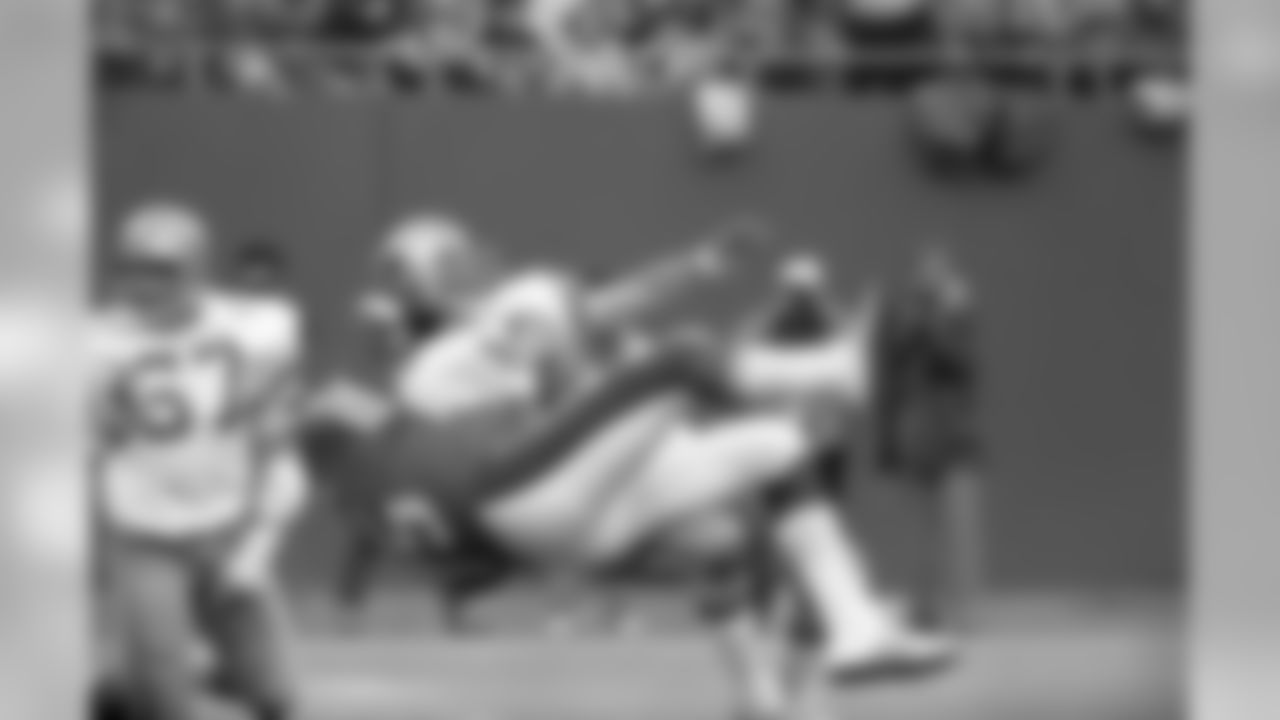
New York Giants defensive end George Martin flips Dallas Cowboys quarterback Roger Staubach for a loss in the fourth quarter of game, Nov. 5, 1979 at Giants Stadium in East Rutherford, N.J. Tough pressure by the Giants almost gave them a victory, but the Cowboys won 16-14 on a last minute field goal. (AP Photo/Ray Stubblebine)
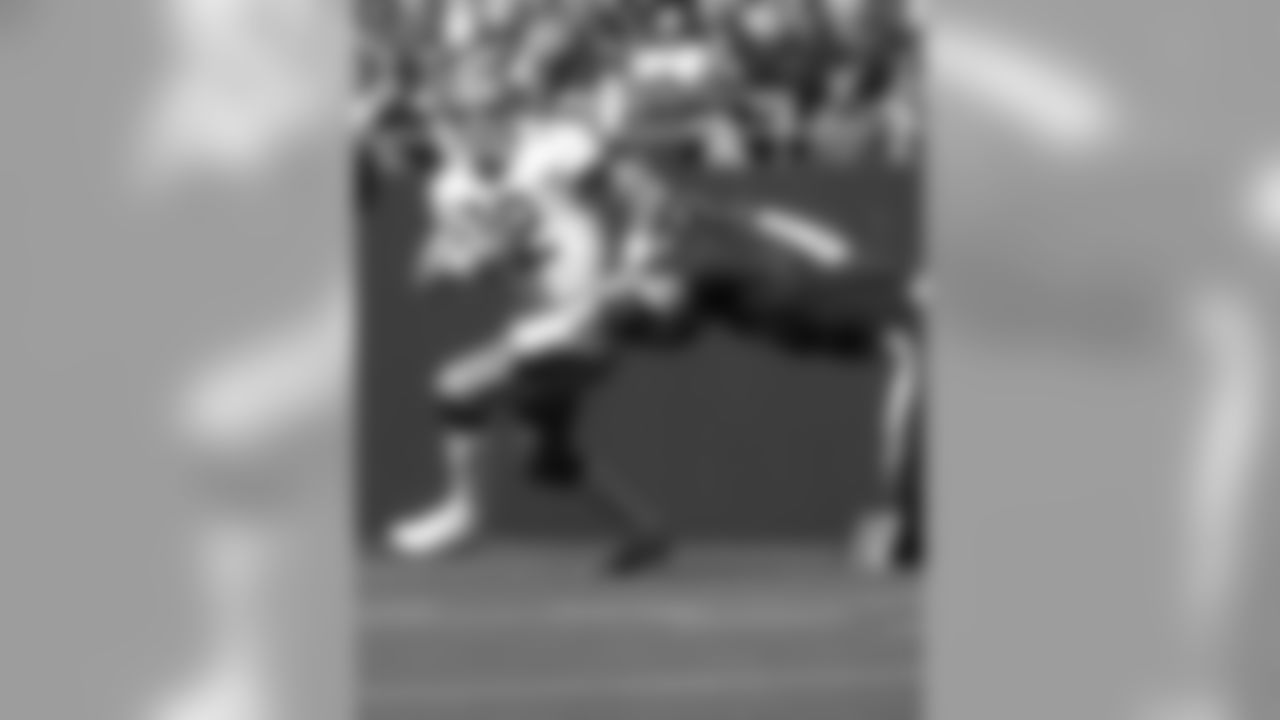
Dallas Cowboys quarterback Roger Staubach (12) is chased by New York Giants defensive end Jack Gregory (81) during an NFL game against the New York Giants Oct. 10, 1976, in East Rutherford, N.J. (Tony Tomsic via AP)
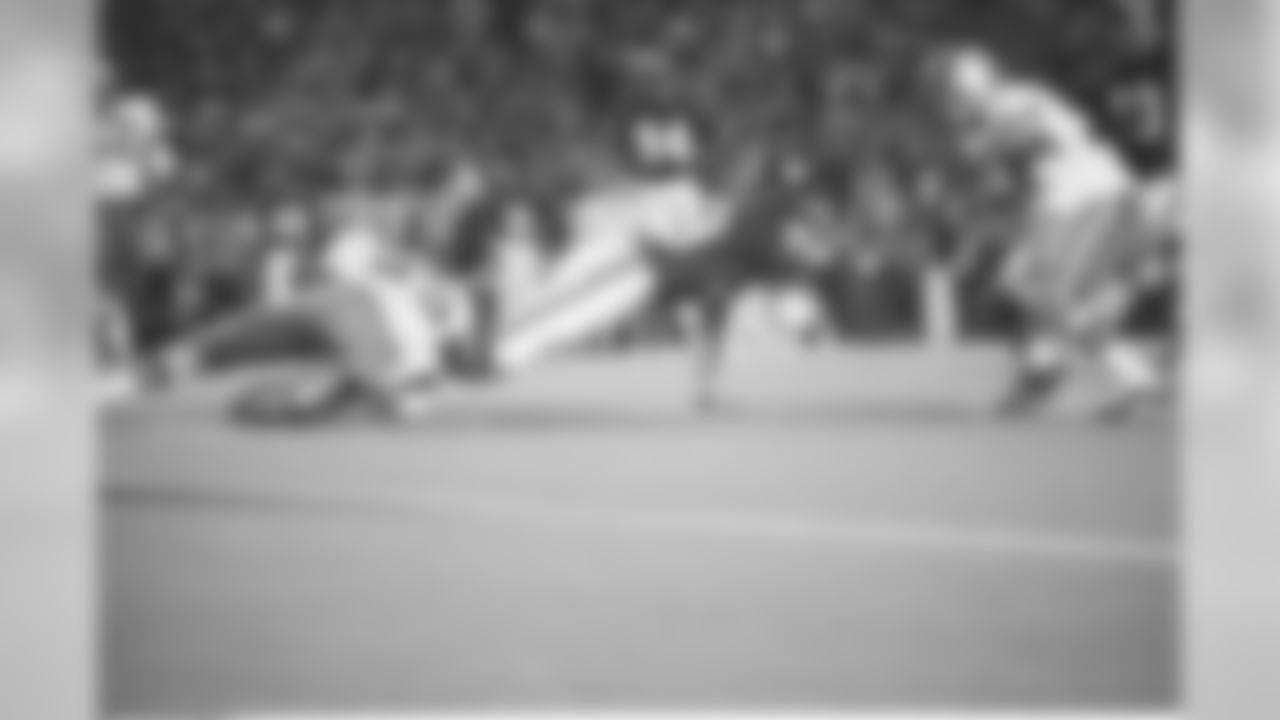
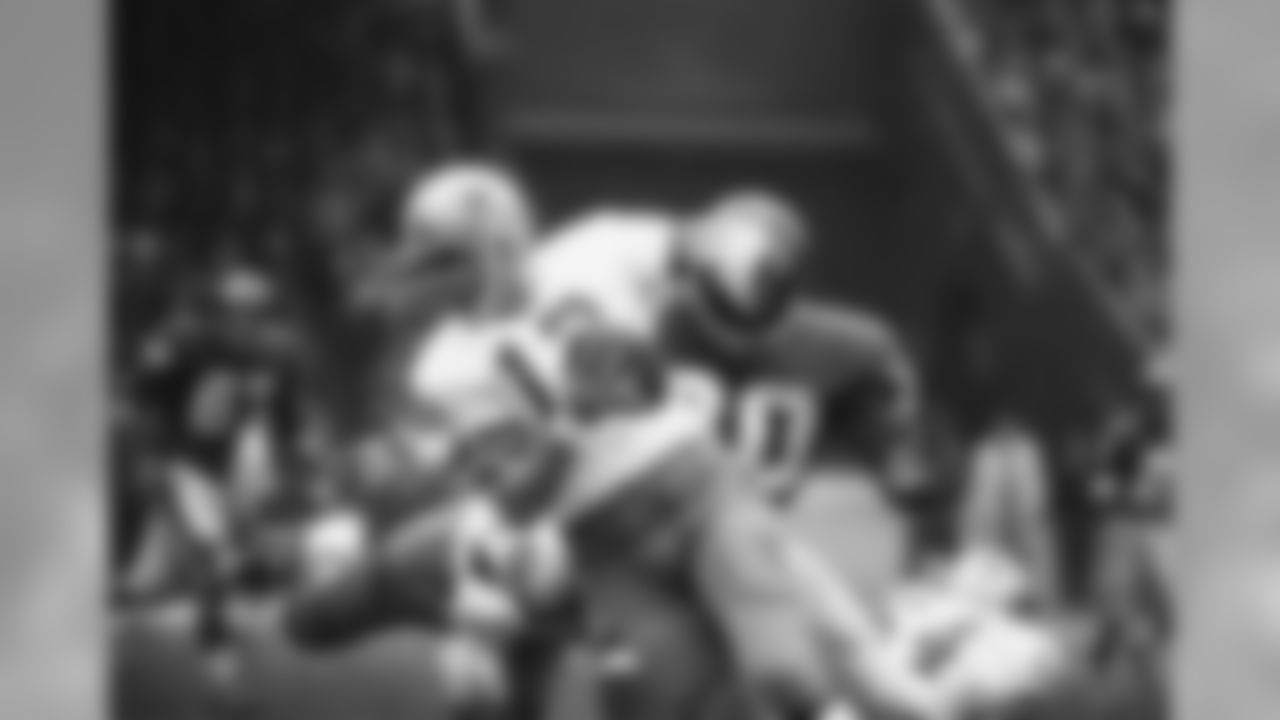
Roger Staubach of the Dallas Cowboys seems oblivious to the presence of New York Giants Henry Reed behind him during the second quarter of Sundays game, Dec. 13, 1971, New York. Staubach threw three touchdown passes to lead the Cowboys to a 42-14 win over New York. (AP Photo/Ray Stubblebine)
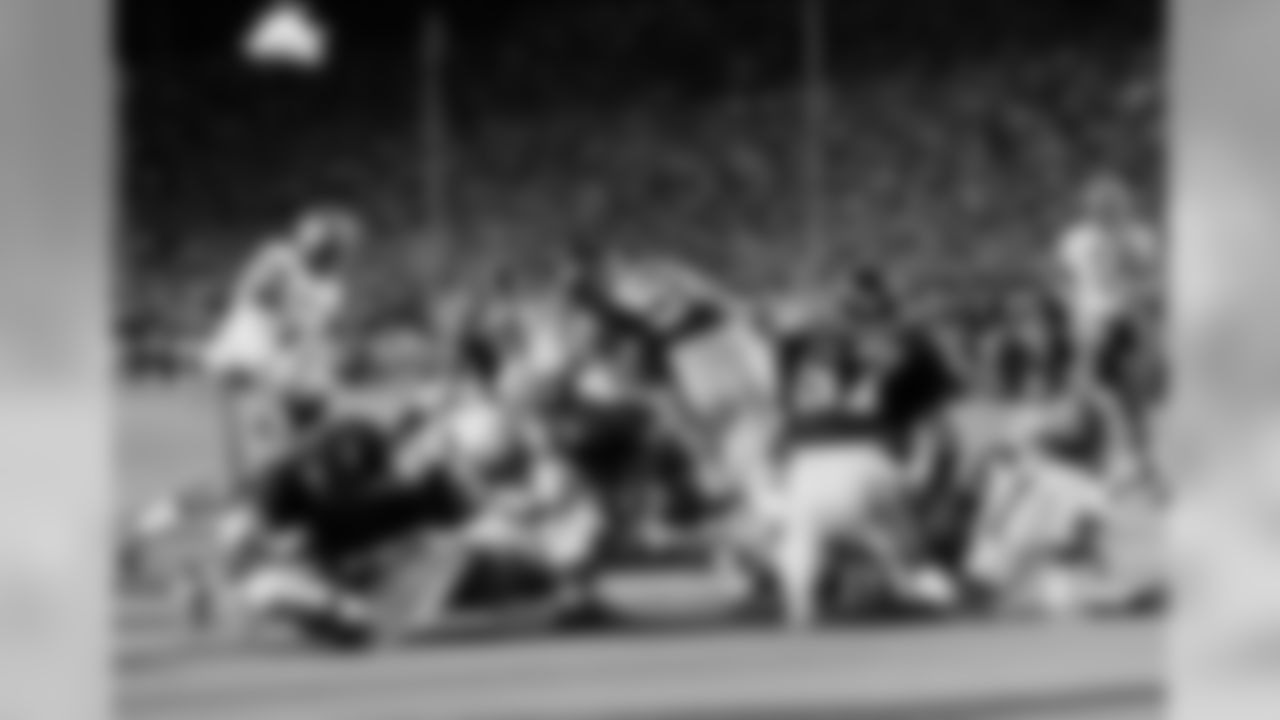
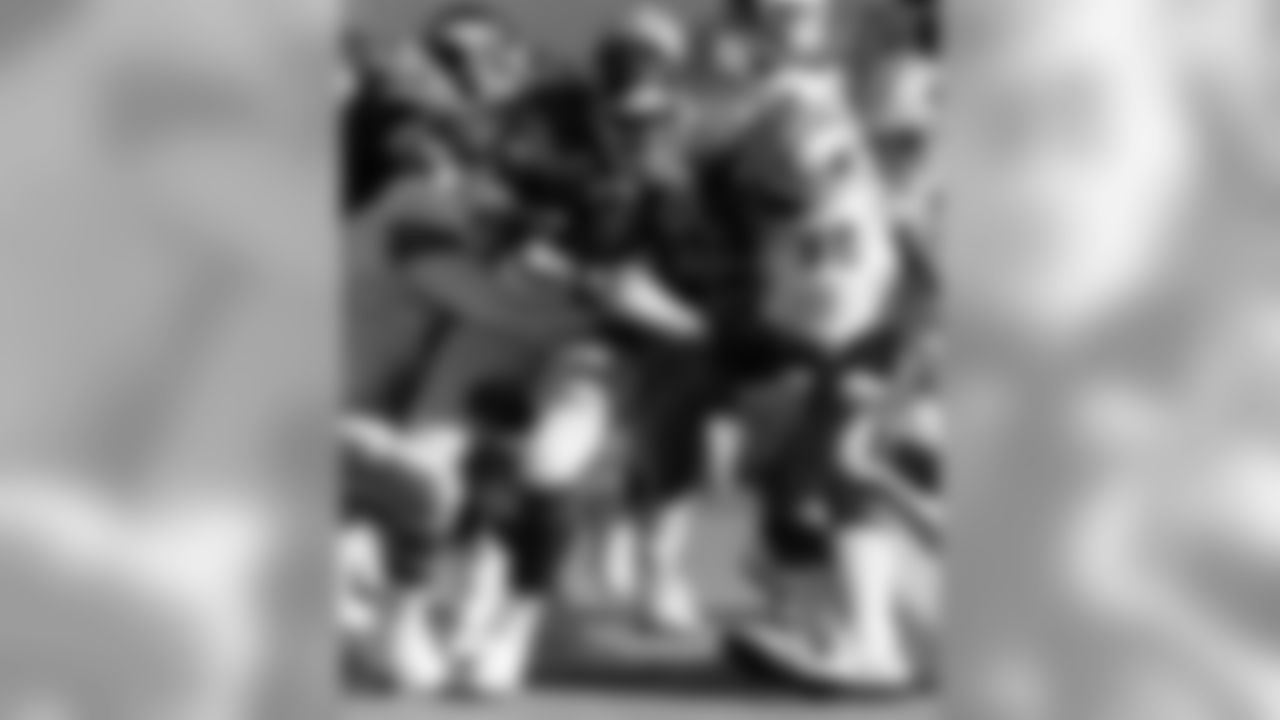
New York Giants Ottis Anderson (24) is hit by Dallas Cowboys Ken Norton, left, and Eugene Lockhart, right, in this Dec. 1989 photo in East Rutherford, N.J. (AP Photo/Peter Morgan)
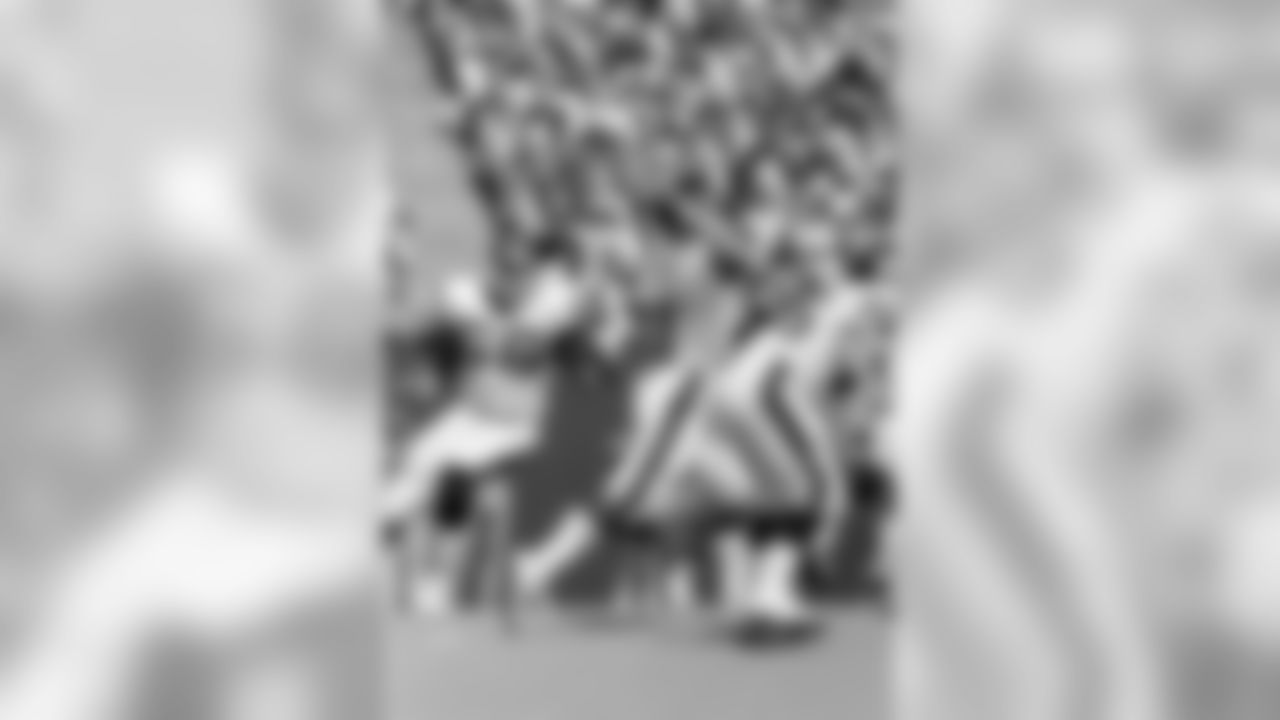
New York Giants quarterback Phil Simms (11) in action against the Dallas Cowboys at Giants Stadium, East Rutherford, N.J., Sept. 9, 1984. (AP Photo)
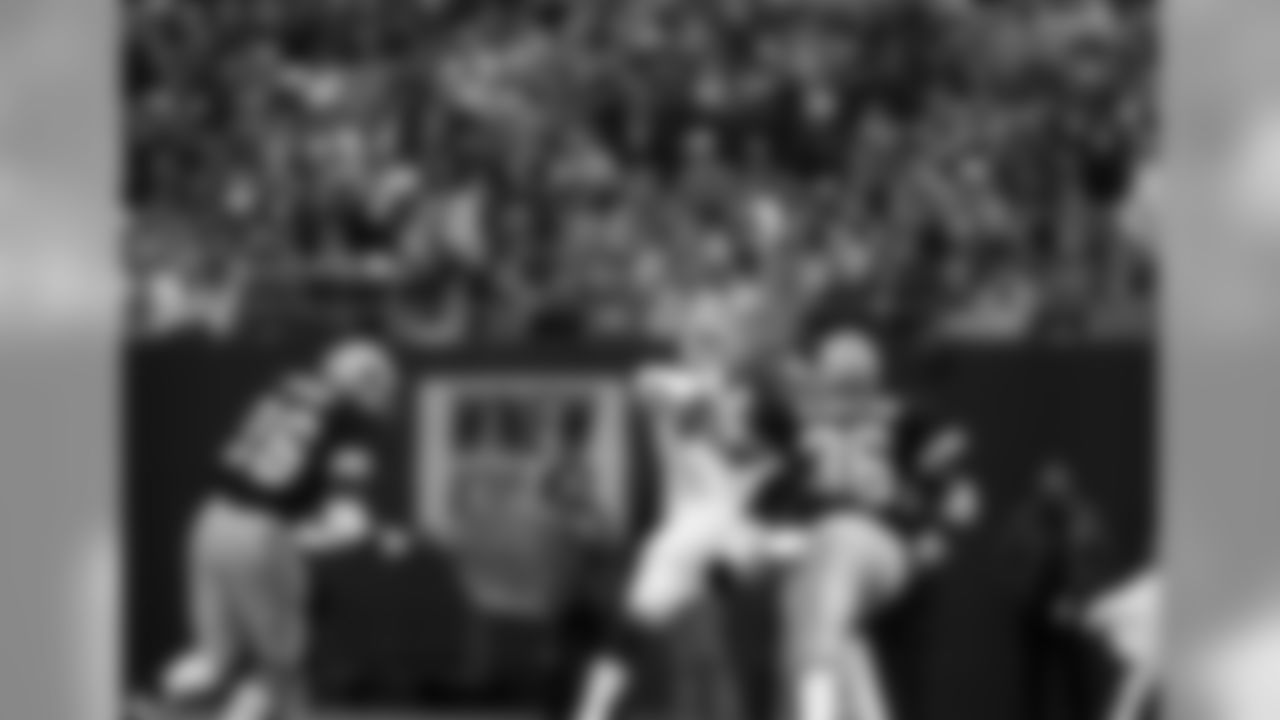
New York Giants Mark Bavaro, left, grabs a Phil Simms pass in front of the Dallas Cowboys Vince Albritt in the first quarter of the game at Giants Stadium in East Rutherford, N.J., Nov. 2, 1986. (AP Photo/Ray Stubblebine)
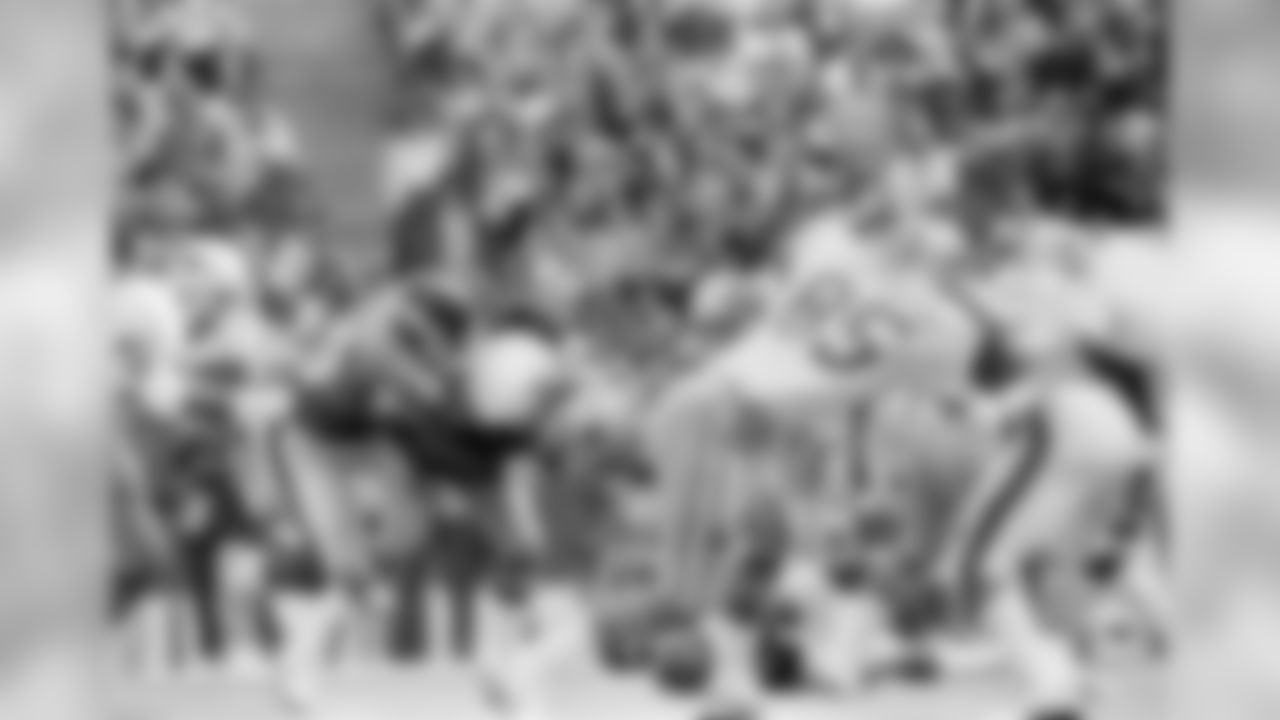
Dallas Cowboys quarterback Gary Hogeboom (14) is sacked by New York Giants defensive end Leonard Marshall for a loss of ten yards in the third quarter, Nov. 4, 1984 at Irving, Texas. New York won the game 19-7. (AP Photo/Nuri Vallbona)
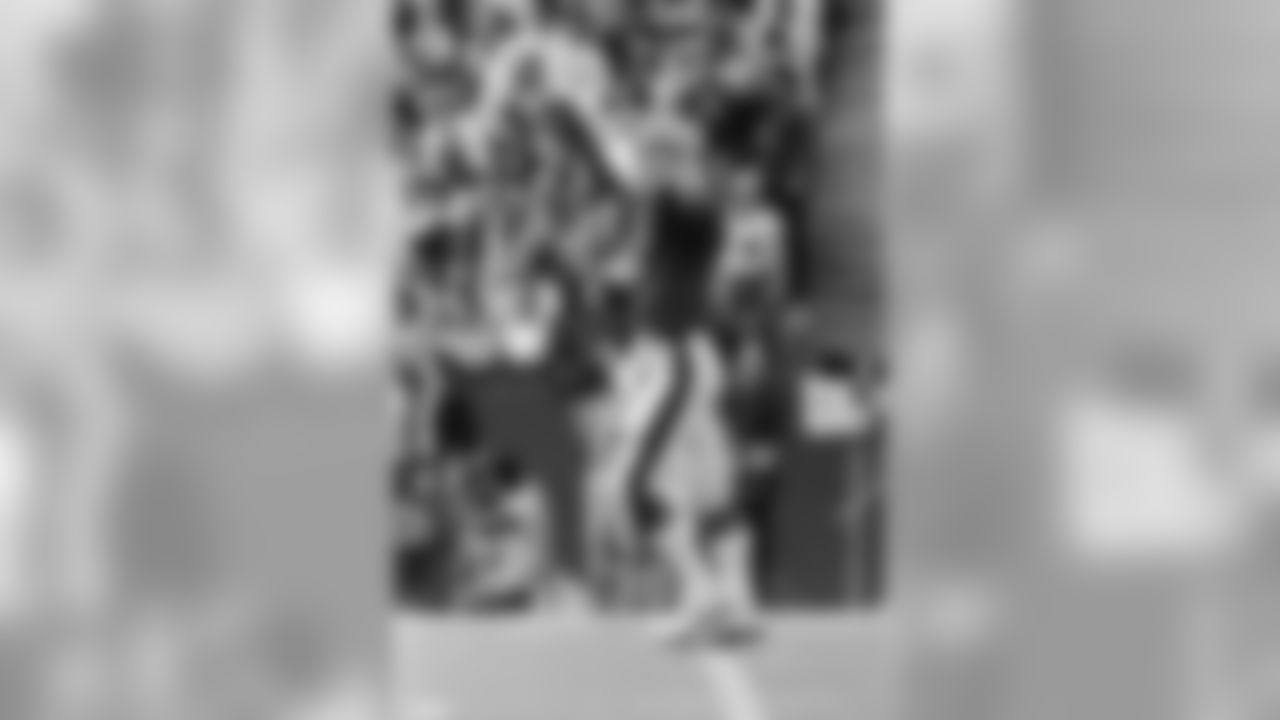
New York Giants quarterback Phil Simms celebrates his 53-yard pass to Lionel Manuel in the fourth quarter against the Dallas Cowboys at Irving, Texas, Nov. 4, 1984. (AP Photo/LK)

New York Giants running back Joe Morris (20) runs upfield during an NFL game against the Dallas Cowboys in East Rutherford on October 30, 1983. The Cowboys defeated the Giants 38-20. (AP Photo/Chuck Solomon)
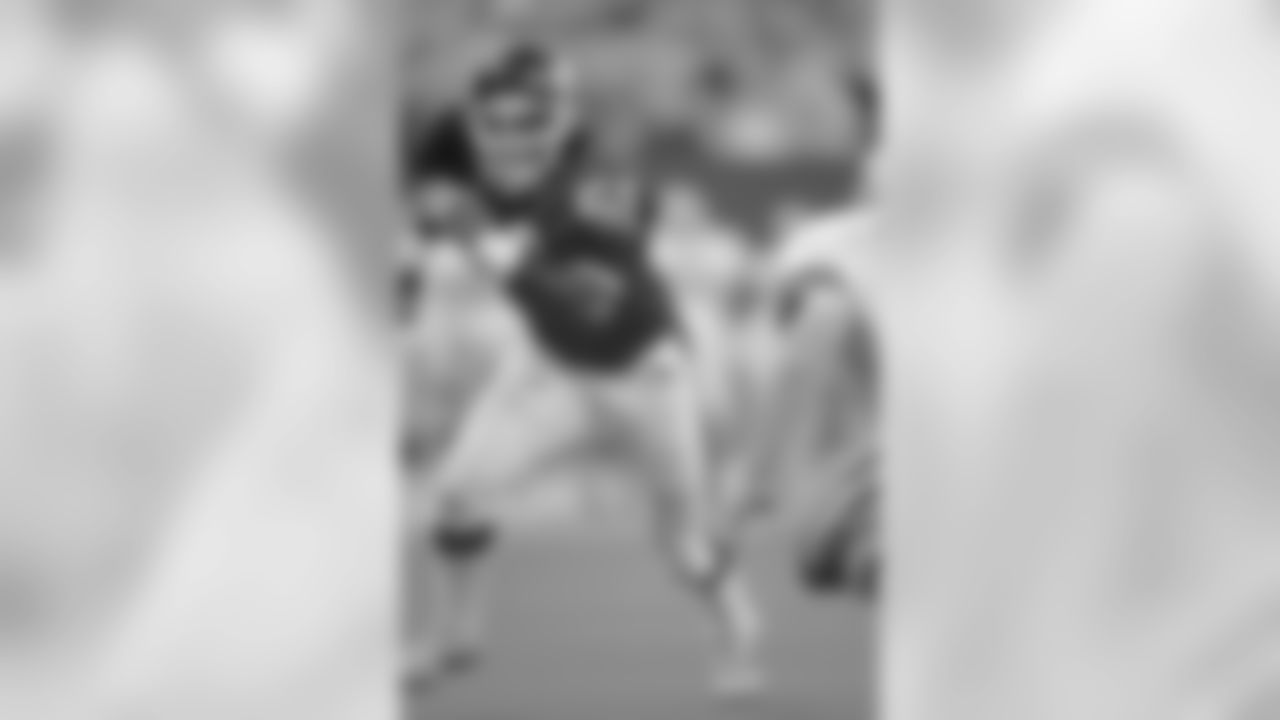
New York Giants defensive end Lawrence Taylor rushes upfield against the Dallas Cowboys November 6, 1998 in New York. (AP Photo / Al Messerschmidt)
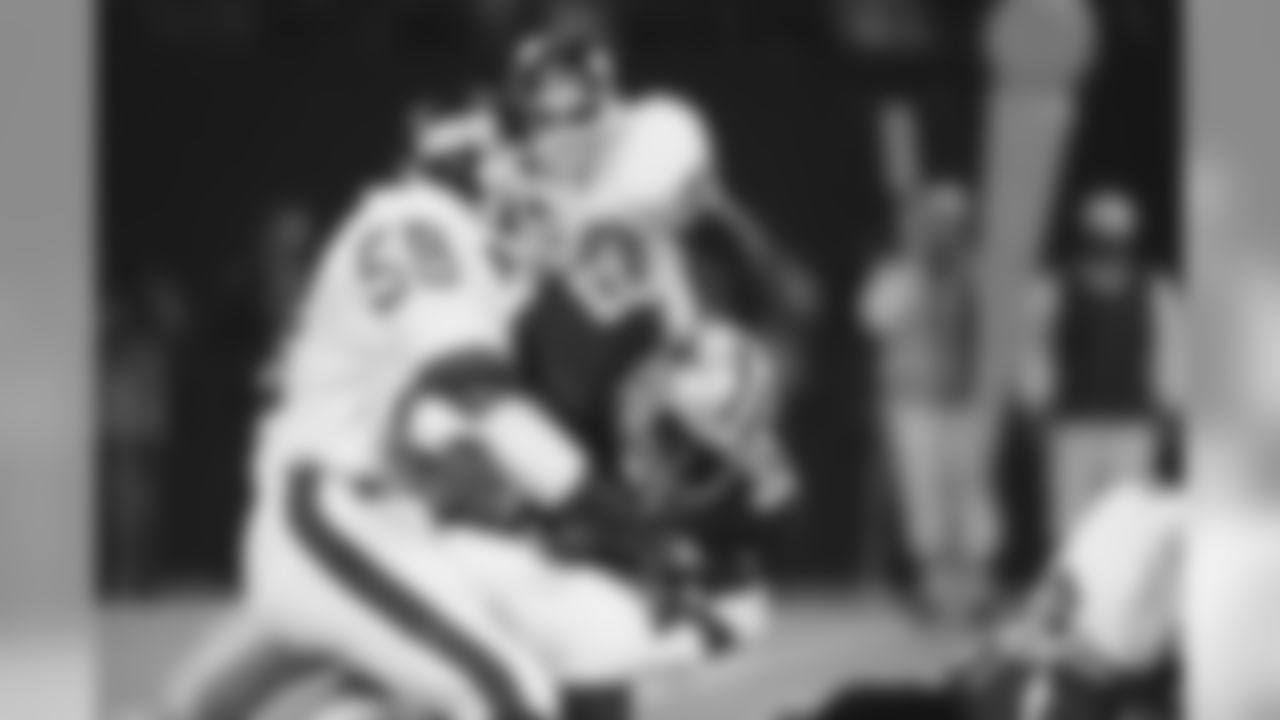
Dallas Cowboys running back Tony Dorsett, right, is hauled down by the New York Giants Carl Banks in the first quarter at Giants Stadium, Sunday, Oct. 6, 1985, East Rutherford, N.J. (AP Photo/Ray Stubblebine)
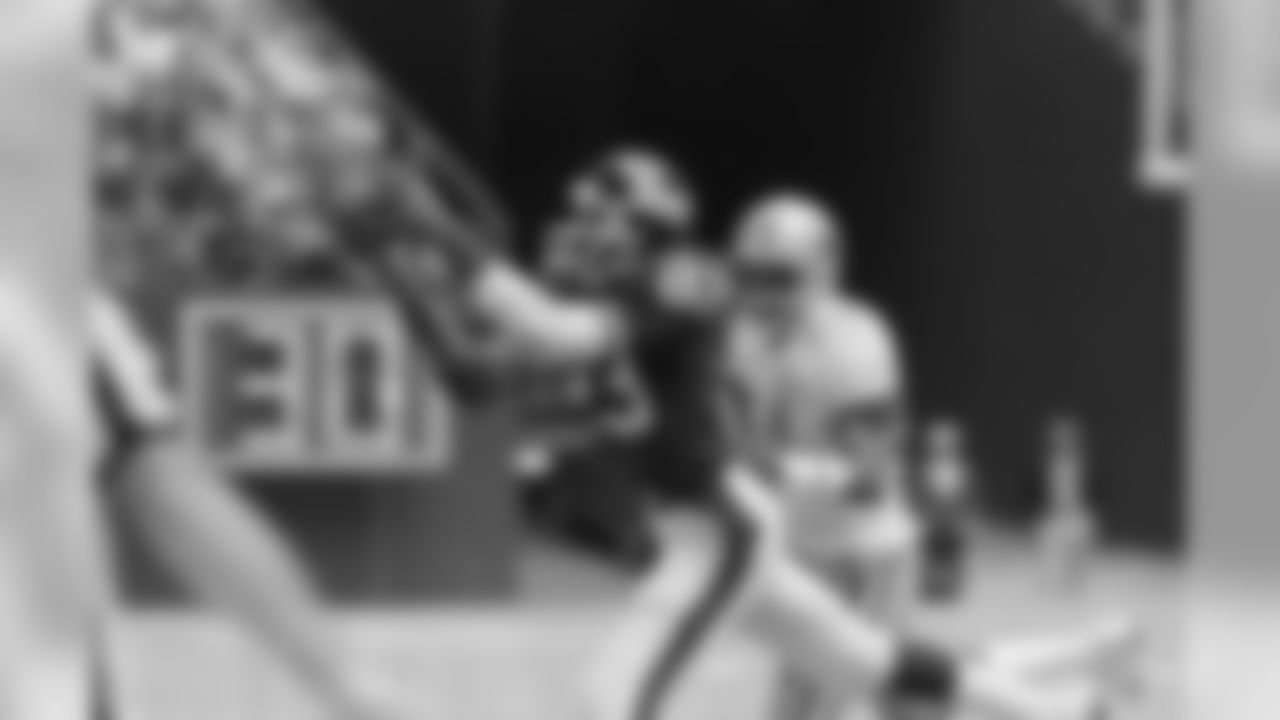
Earnest Gray (83), a New York Giants wide receiver grabs a pass from quarterback Phil Simms during the second period in Texas Stadium on Sunday, Nov. 5, 1984. Everson Wall (24) of the Cowboys was unable to prevent the 18 yard pass completion to the sidelines. The Giants beat Dallas 19-7. (AP Photo/DGB)
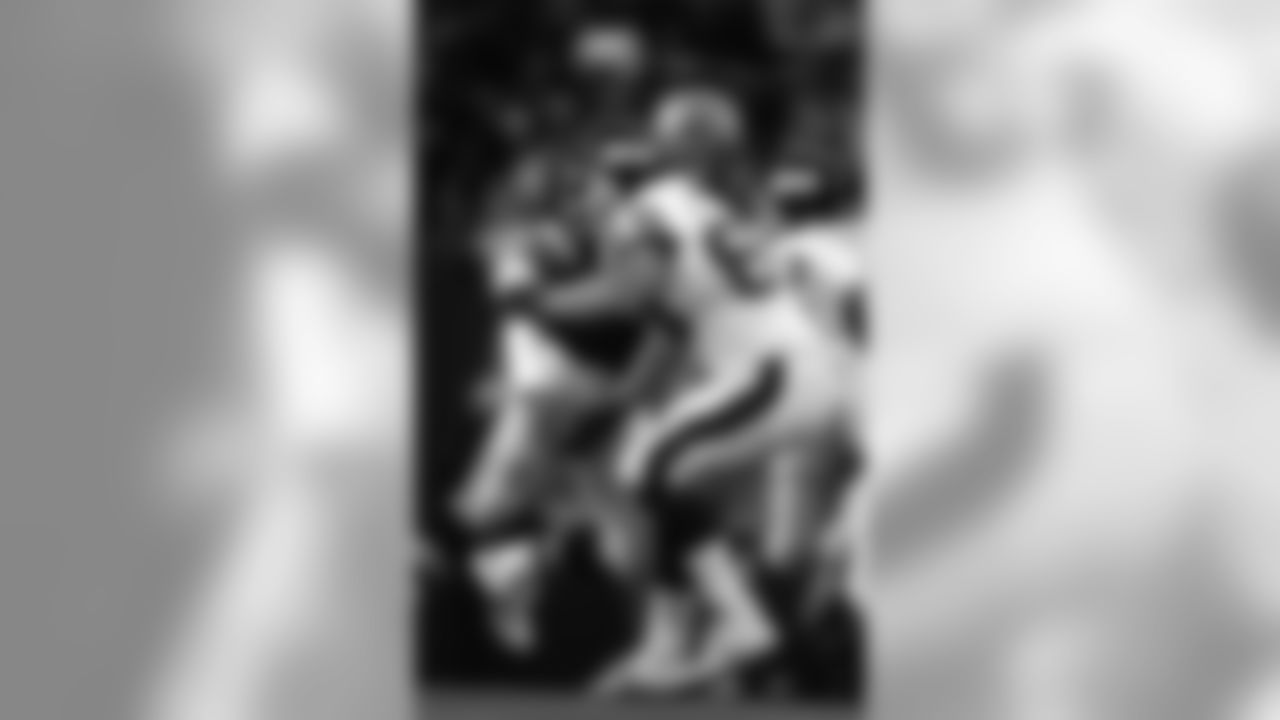
New York Giants tackle Brad Benson (60) prepares to block during an NFL game against the Dallas Cowboys in East Rutherford on October 30, 1983. The Cowboys defeated the Giants 38-20. (AP Photo/Chuck Solomon)
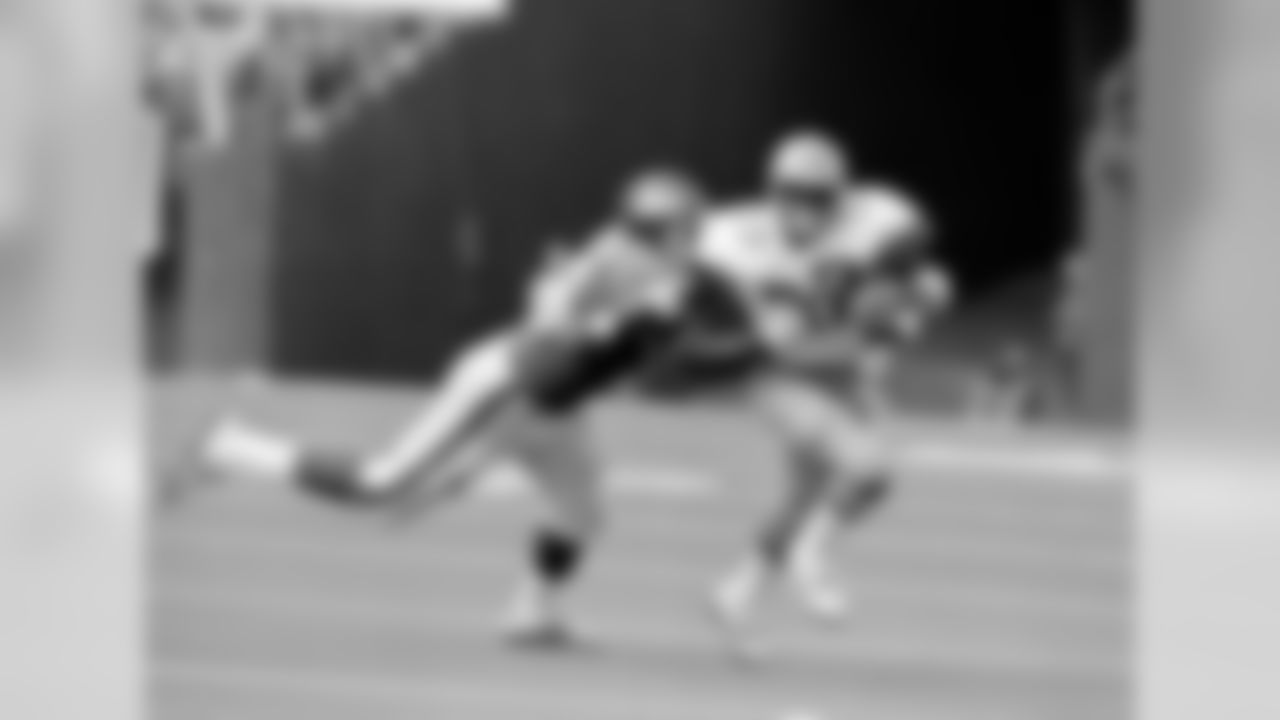
Dallas Cowboys running back Tony Dorsett (33) can't elude the grasp of New York Giants defensive end Curtis McGriff (76) during second half action in Texas Stadium in Irving, Sept. 28, 1981. The Giants held Dorsett to 70-yards for the day and stopped his 100-yards or better per games at three. The Cowboys still played well enough to defeat the Giants 18-10. (AP Photo/Ron Heflin)
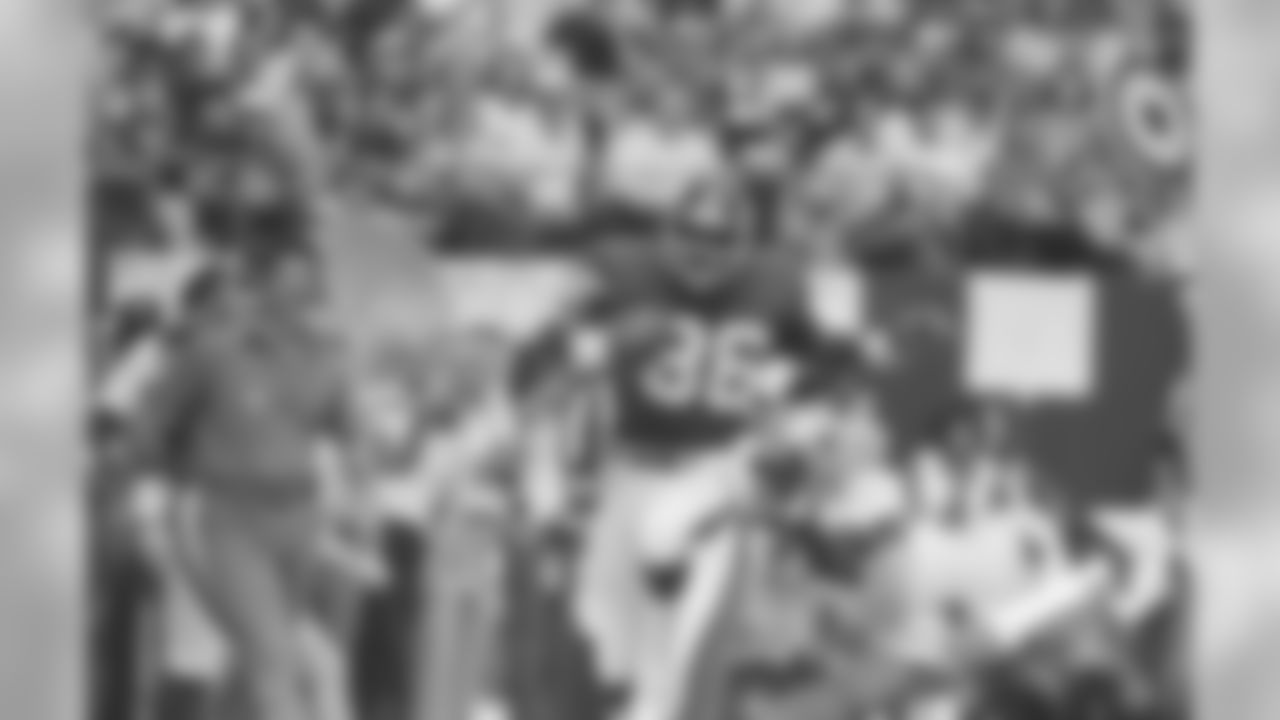
New York Giants wide-receiver Johnny Perkins sprints down the side lines during second half action Sunday September 28, 1981 at Texas Stadium in Irving, Texas. Perkins (86) caught a pass from quarterback Phil Simms and was stopped by Dallas Cowboys safety Michael Downs (26). The Cowboys defeated the Giants 18-10 to win their fourth straight game. (AP Photo/Harry Cabluck)
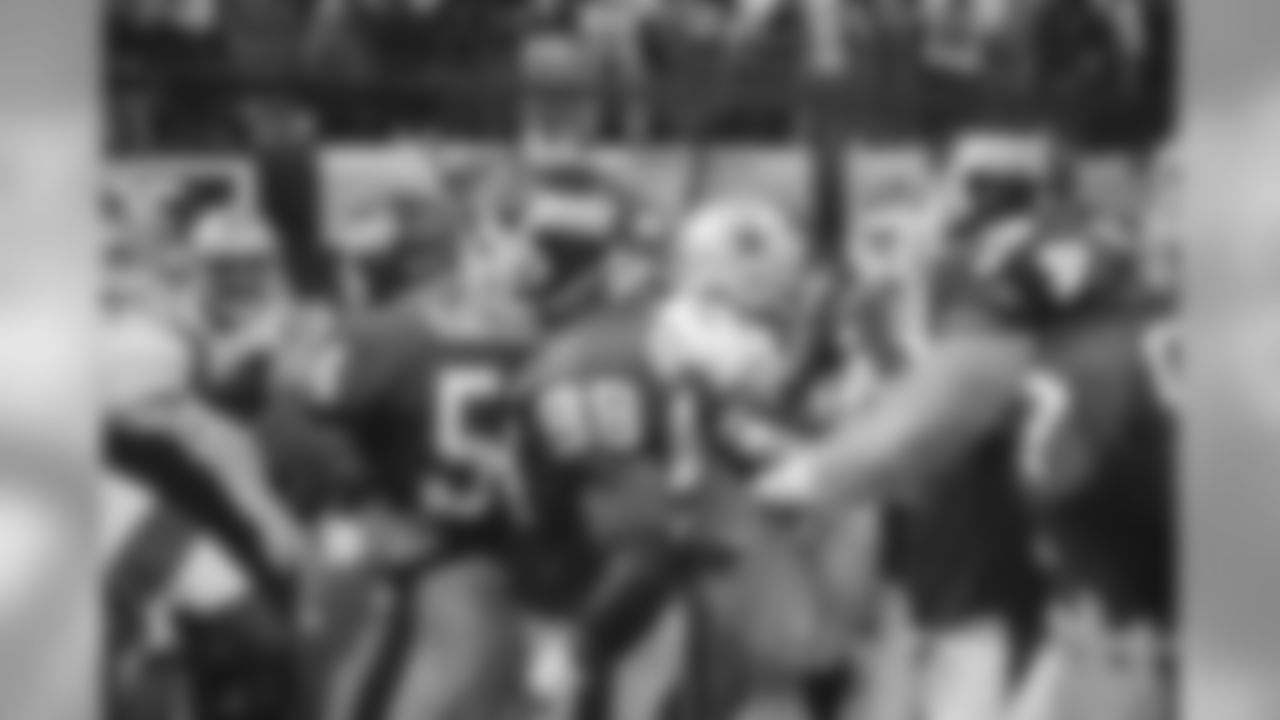
Dallas Cowboys running back Lincoln Coleman (44) is in the center of a free-for- all with the New York Giants at the end of the first half Monday night, Nov. 7, 1994 in Irving, Texas. The Cowboys won, 38-10. -- (November 8, 1994.)

New York Giants defensive end Michael Strahan (92) celebrates during an NFL game against the Dallas Cowboys at the Meadowlands, East Rutherford, N.J., Oct. 18, 1999. The Giants defeated the Cowboys 13-10. (AP Photo/NFL Photos/Evan Pinkus)
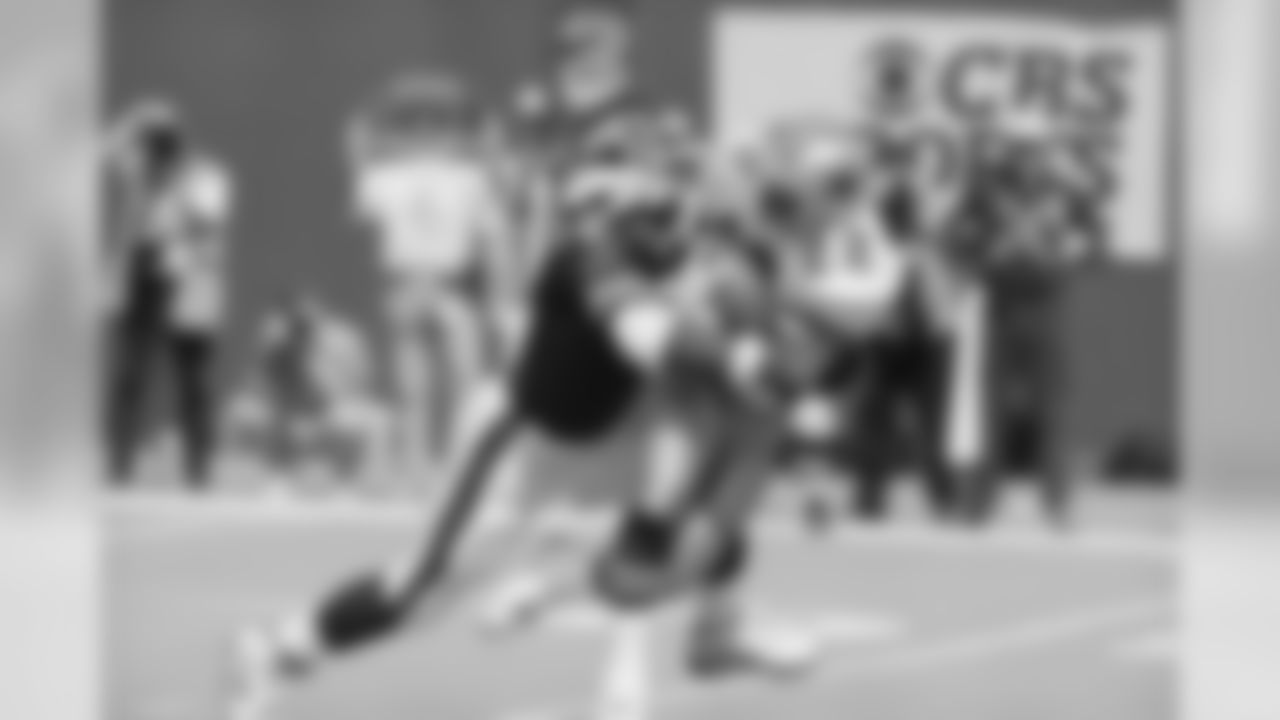
New York Giants Pepper Johnson tries to stop Dallas Cowboys Emmitt Smith during the first quarter of their match up at Giants Stadium in East Rutherford, New Jersey, Sunday, Sept. 13, 1992. Johnson was able to hold the charging Smith to just one yard on the play. (AP Photo/Alex Brandon)
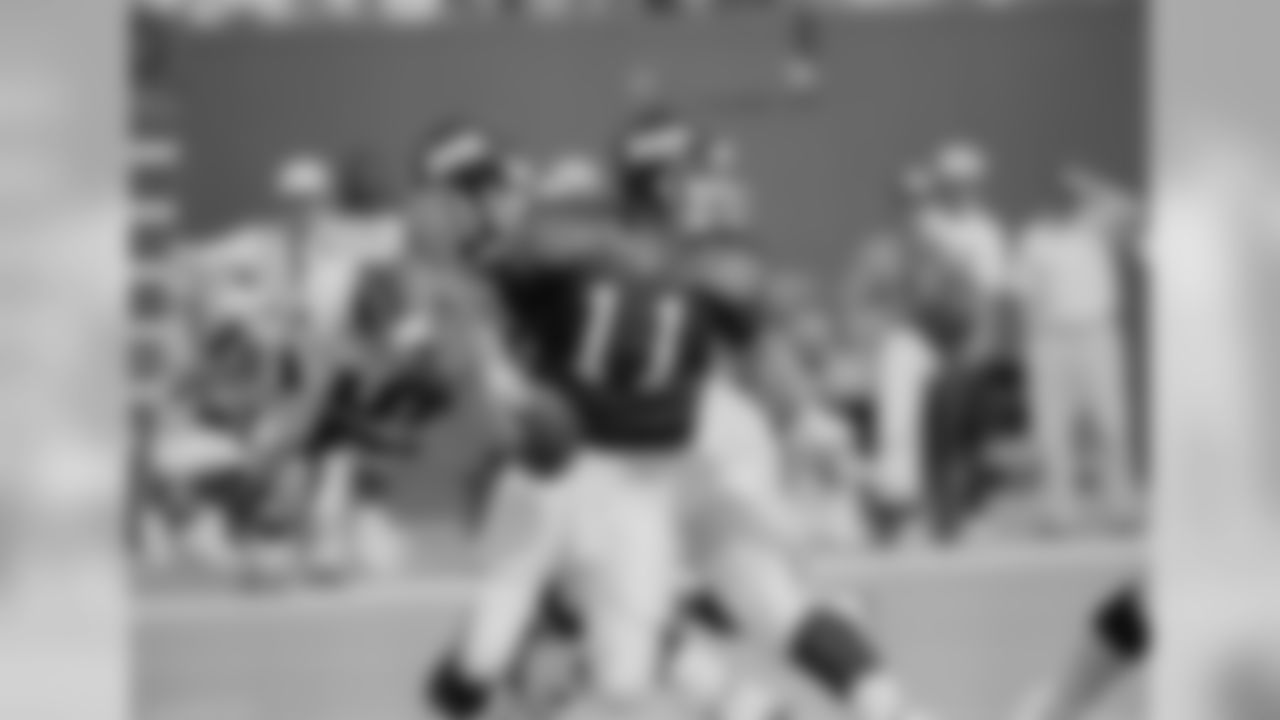
New York Giants quarterback Phil Simms (11) gets some much needed protection from Doug Reisenberg (72) as he blocks Dallas Cowboys Tony Casillas (75) during the third quarter at Giants Stadium in East Rutherford, N.J., Sept. 13, 1992. (AP Photo/Bill Kostroun)
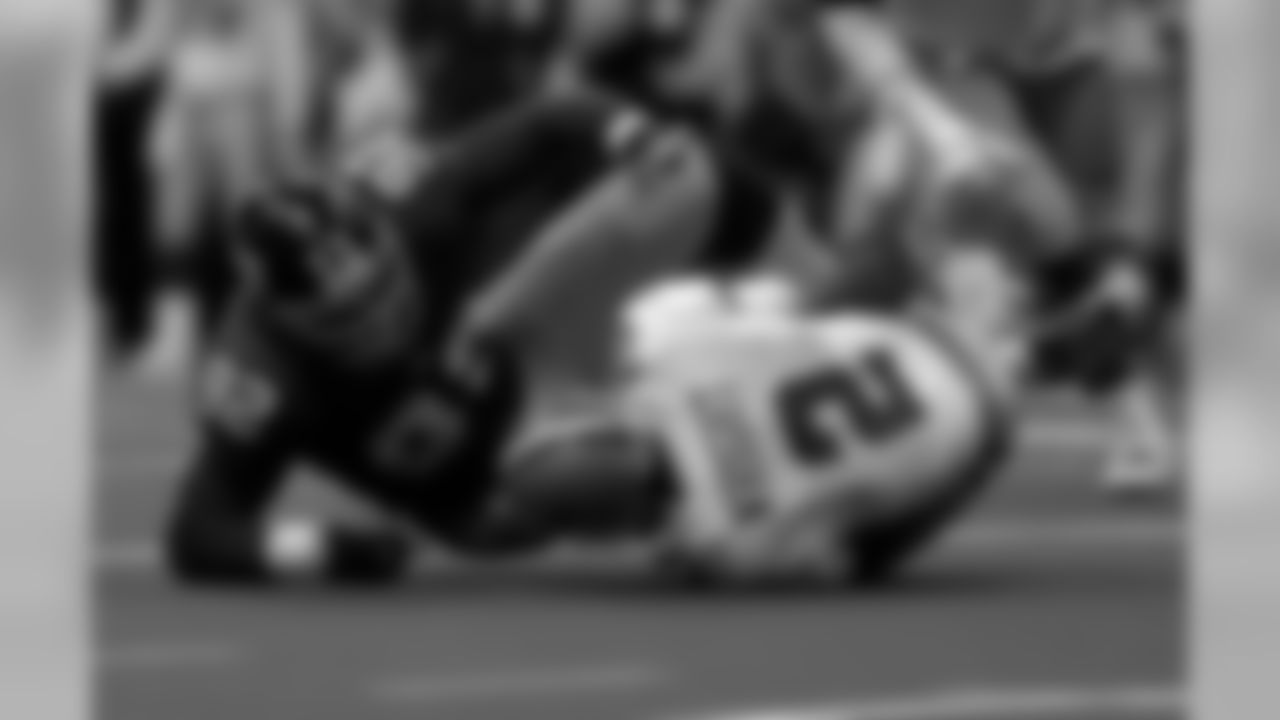
Dallas Cowboys quarterback Anthony Wright (2) hits the ground after being sacked by New York Giants defensive end Michael Strahan in the fourth quarater Sunday, Dec. 17, 2000 in Irving, Texas. (AP Photo/Donna McWilliam)

Dallas Cowboys quarterback Tony Romo (9) and New York Giants defensive end Osi Umenyiora (72) during an NFL football game, Sunday, Sept. 20, 2009, in Arlington, Texas. (AP Photo/LM Otero)
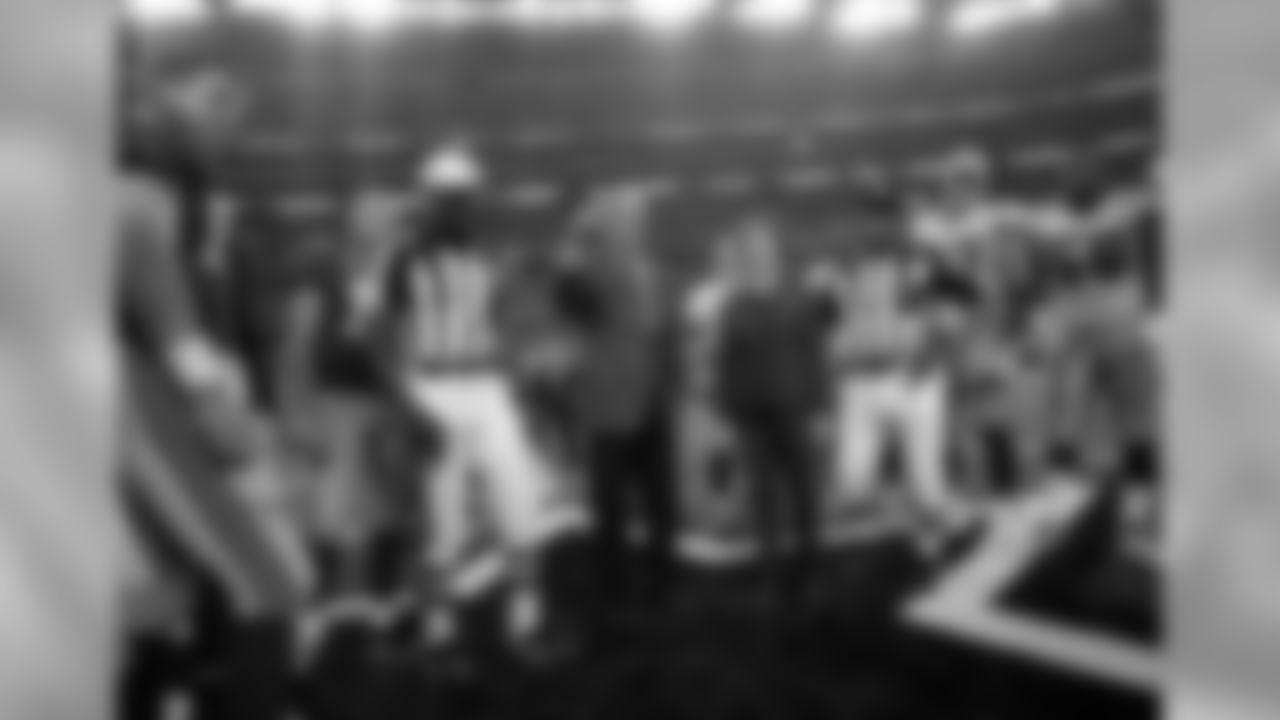
Former President George W. Bush and his wife, Laura, watches his coin toss, as do officials and New York Giants and Dallas Cowboys players before an NFL football game Sunday, Sept. 20, 2009, in Arlington, Texas. (AP Photo/LM Otero)
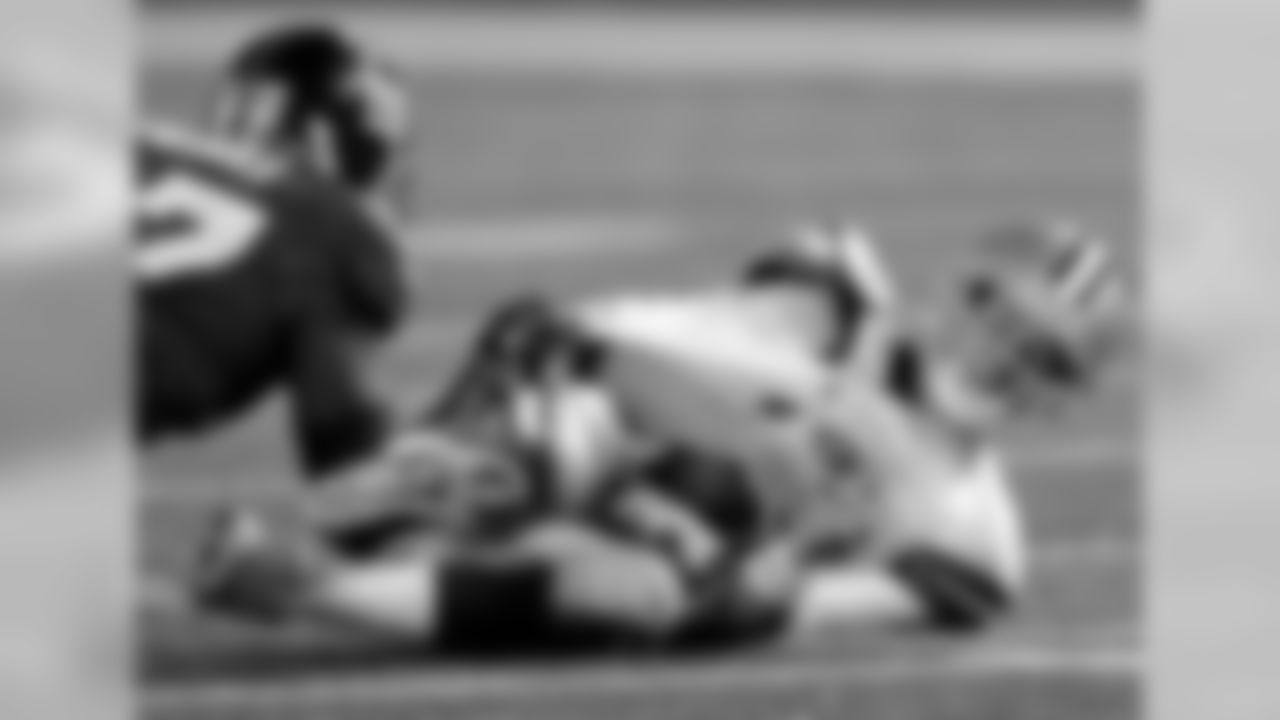
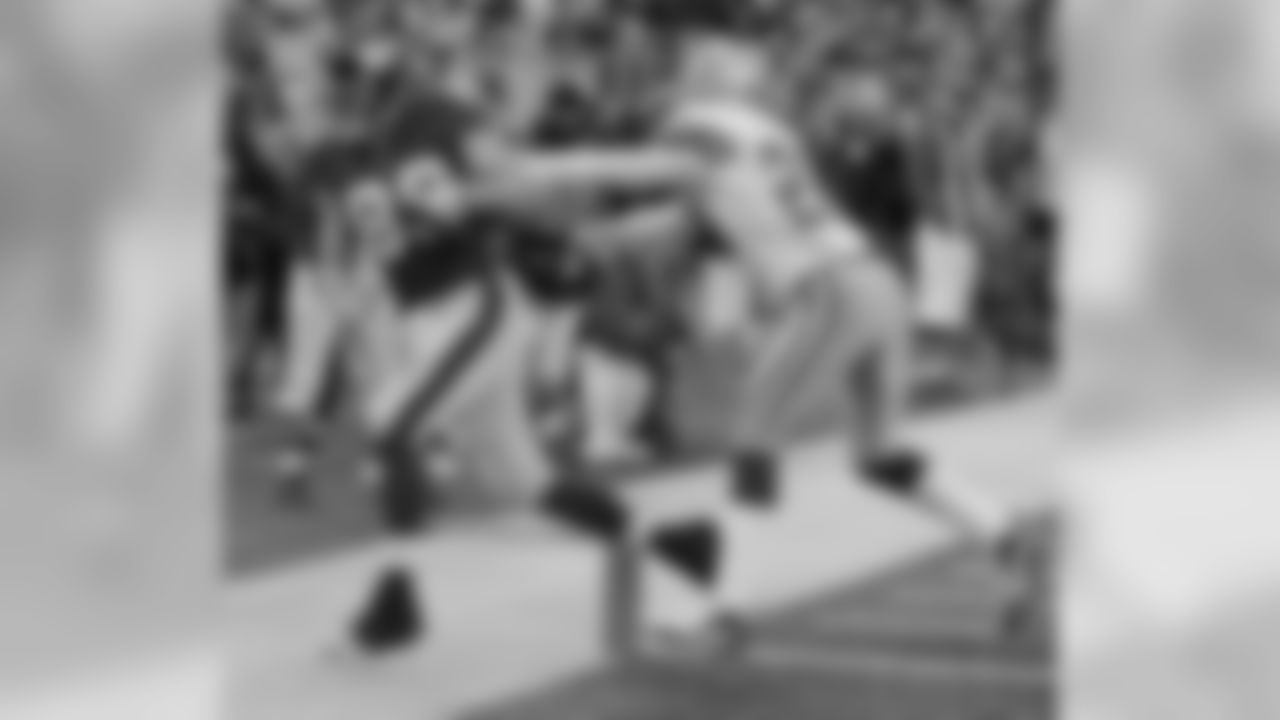
New York Giants tight end Kevin Boss, left, crosses the goal line for a touchdown before Dallas Cowboys safety Keith Davis pushed him out during the first quarter of an NFL football game Sunday, Nov. 2, 2008, at Giants Stadium in East Rutherford, N.J. (AP Photo/Bill Kostroun)
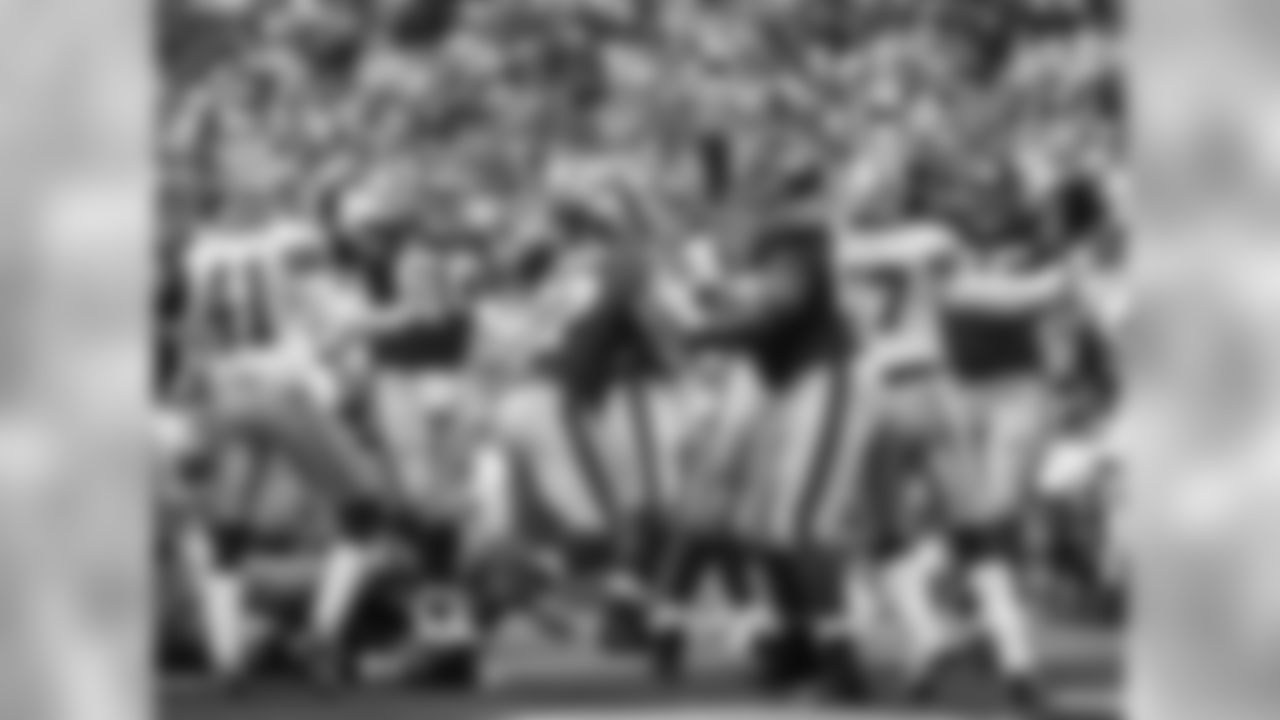
New York Giants players including Shaun O'Hara (60) and David Diehl, right, celebrate after Giants running back Brandon Jacobs (27) scored the wining touchdown on a 1-yard run against the Dallas Cowboys in the fourth quarter of an NFC divisional playoff football game, Sunday, Jan. 13, 2008, in Irving, Texas. The Giants beat the Cowboys 21-17. (AP Photo/Matt Slocum)
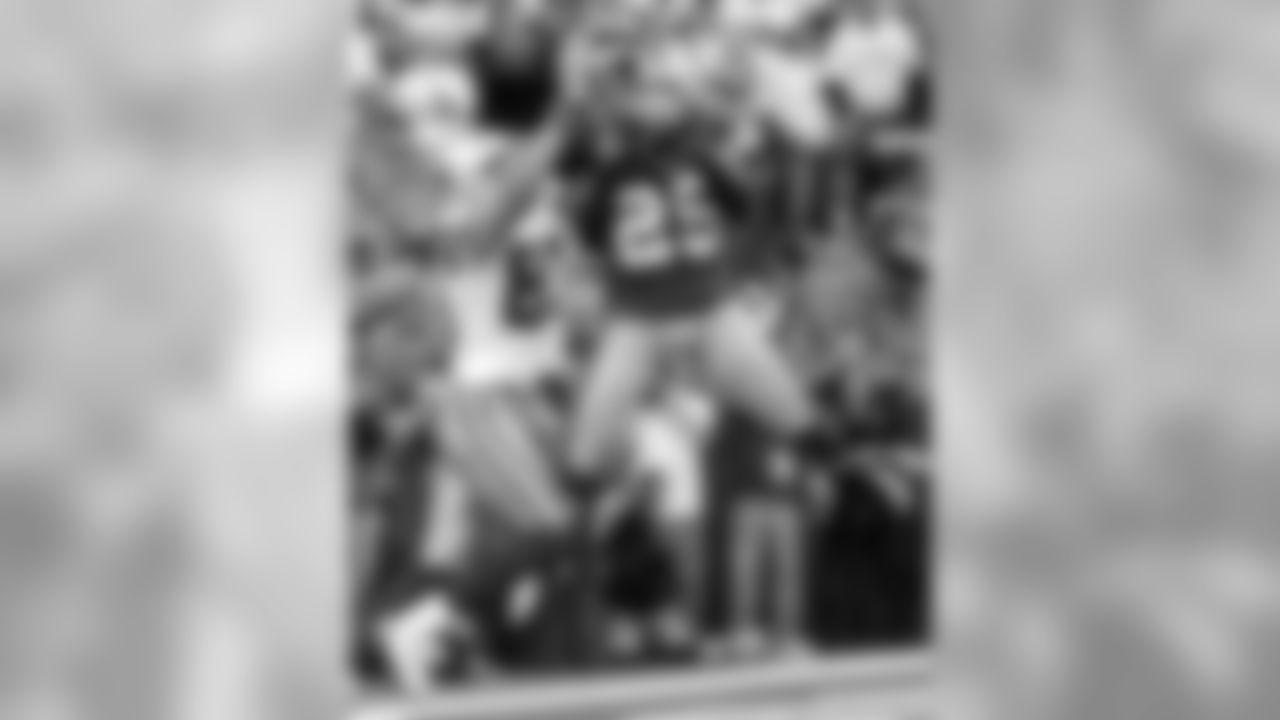
New York Giants cornerback R.W. McQuarters (25) intercepts a pass intended for Dallas Cowboys wide receiver Terry Glenn (83) in the end zone during the final seconds of the fourth quarter of an NFC divisional playoff football game, Sunday, Jan. 13, 2008, in Irving, Texas. The interception ended the Cowboys' final drive and sealed the Giants' 21-17 win. (AP Photo/Donna McWilliam)
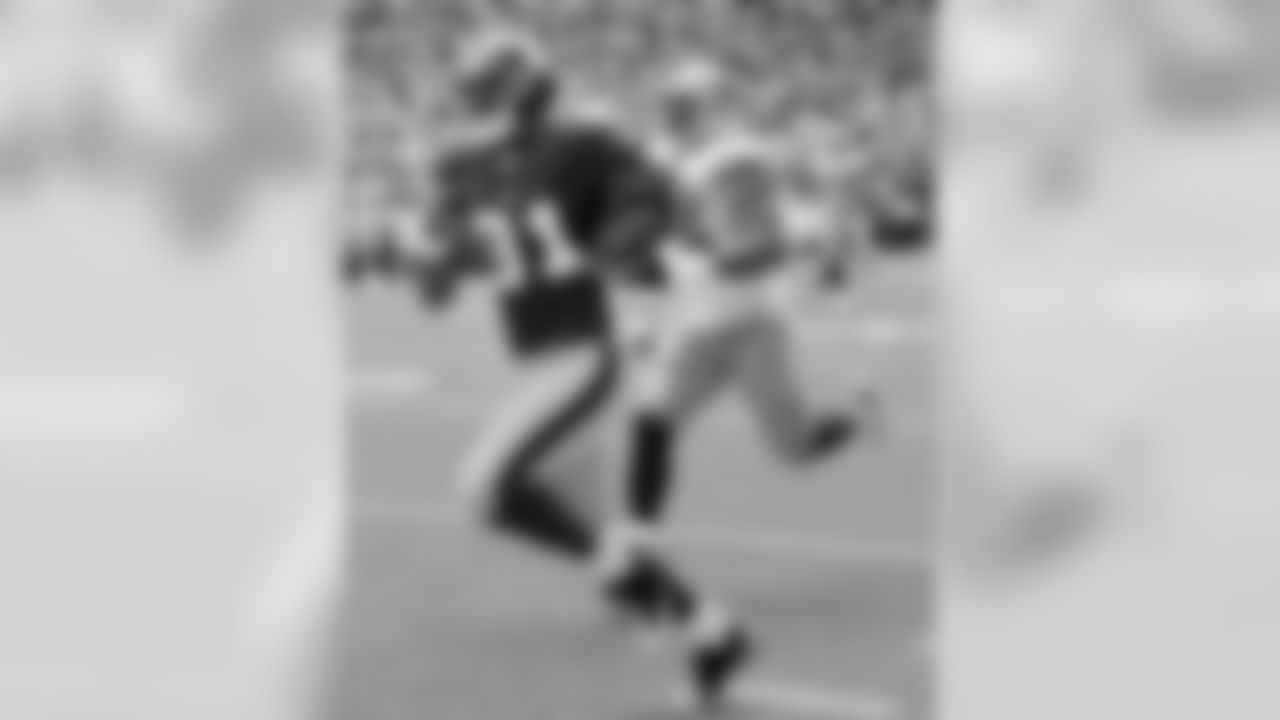
New York Giants wide receiver Amani Toomer (81) beats Dallas Cowboys linebacker Akin Ayodele, right, to the end zone as Toomer scores a touchdown on a 52-yard pass play in an NFC divisional playoff football game Sunday, Jan. 13, 2008, in Irving, Texas. (AP Photo/Tony Gutierrez)
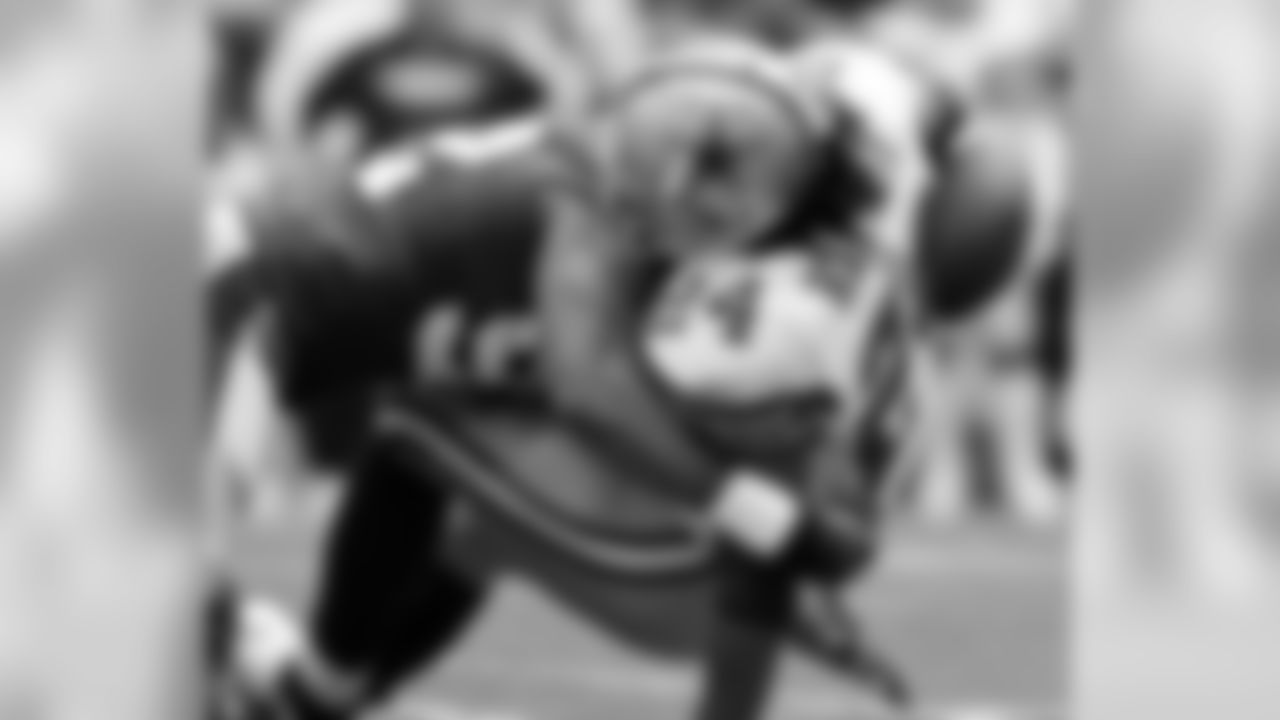
Dallas Cowboys running back Marion Barber (24) fumbles the ball as he is hit by New York Giants defensive end Michael Strahan in the first quarter of an NFC divisional playoff football game, Sunday, Jan. 13, 2008, in Irving, Texas. The Cowboys recovered the ball on the play. (AP Photo/Tony Gutierrez)
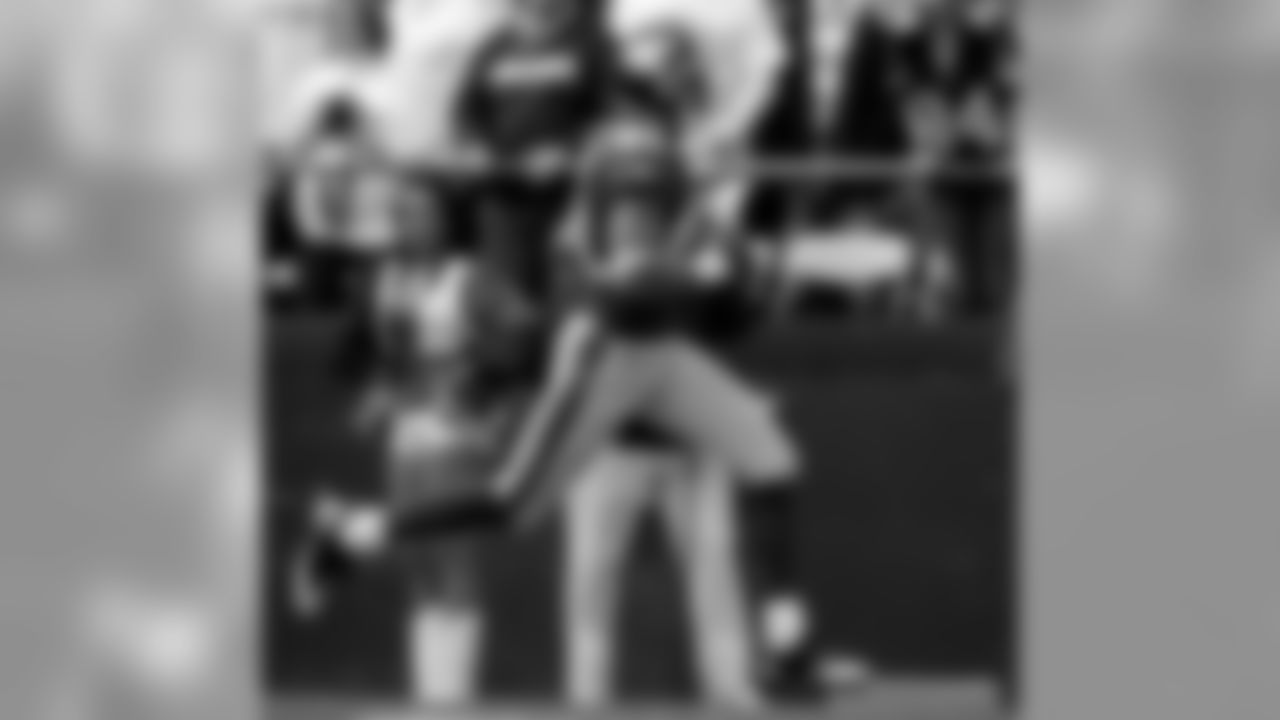
New York Giants wide receiver Amani Toomer races 52 yards against the Dallas Cowboys for a touchdown in the first quarter in an NFC divisional playoff football game, Sunday, Jan. 13, 2008, in Irving, Texas. (AP Photo/Matt Slocum)
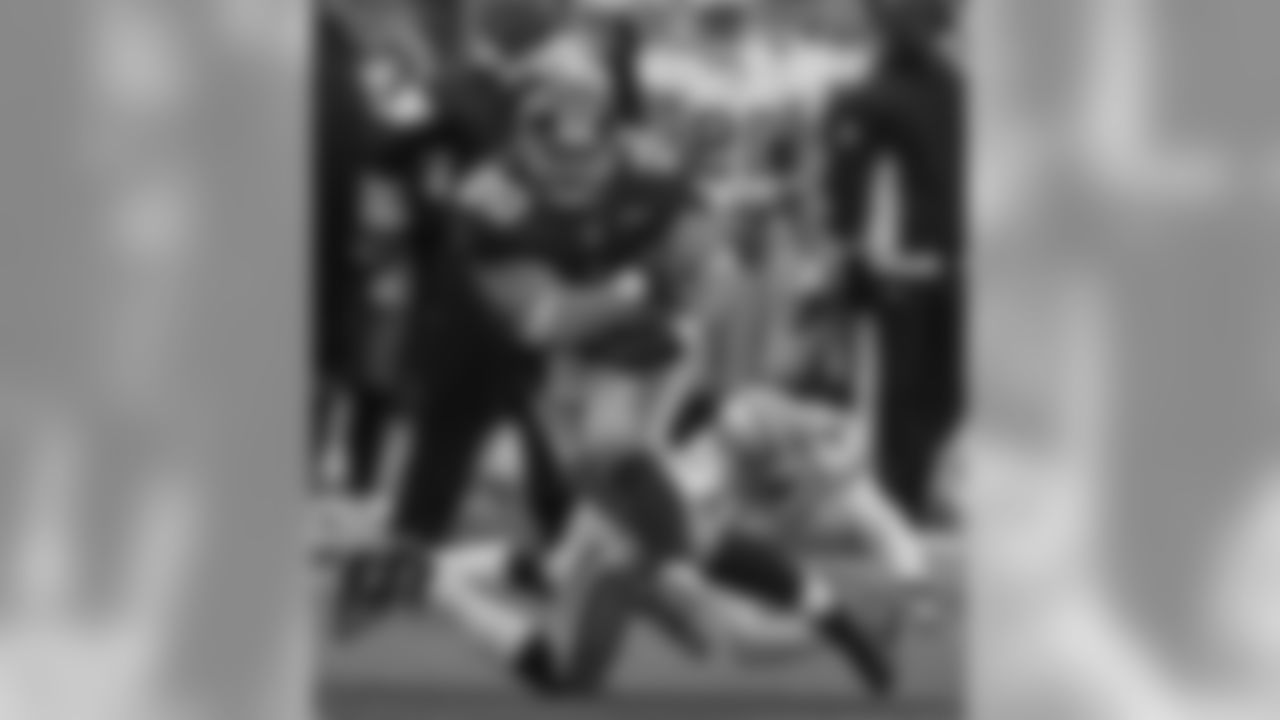
New York Giants fullback Jim Finn carries a pass from quarterback Eli Manning for 15 yards in the fourth quarter of the Giants' 17-10 victory over the Dallas Cowboys to give the Giants sole possession of first place in the NFC East, Sunday, Dec. 4, 2005, at Giants Stadium in East Rutherford, N.J. Cowboys cornerback Terrence Newman tries but can't stop Finn's run. (AP Photo/Kathy Willens)
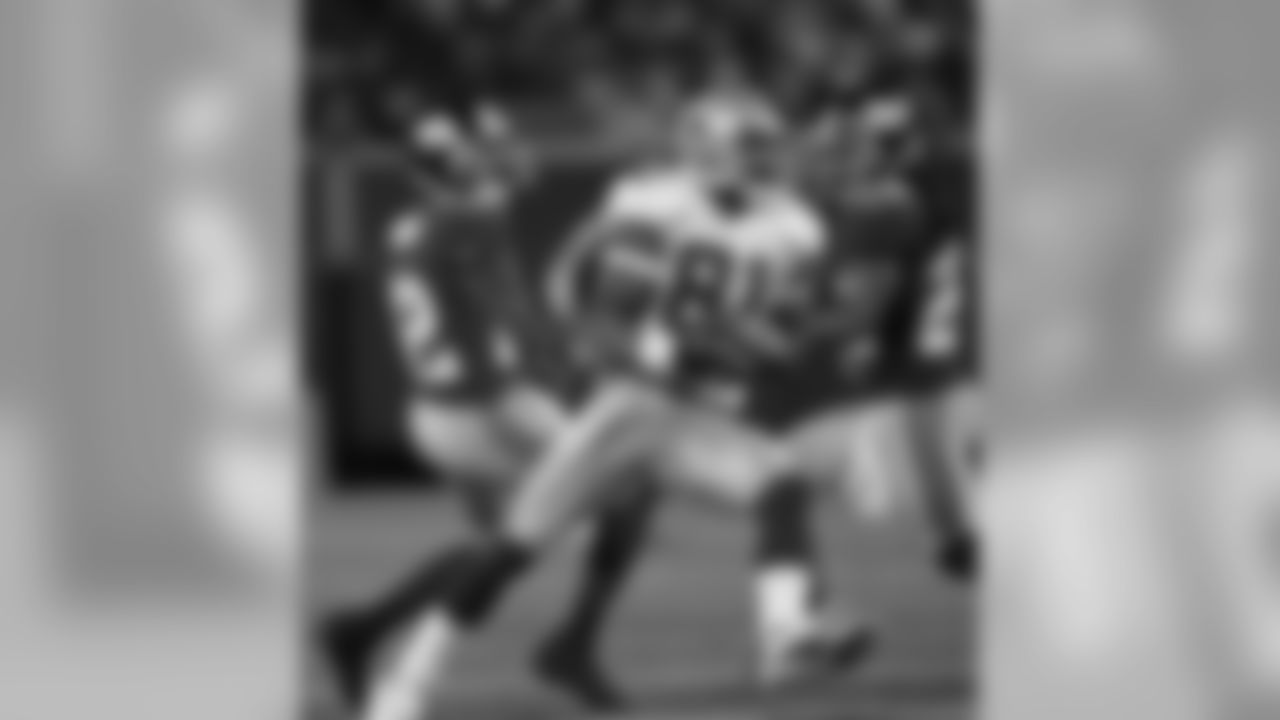
Dallas Cowboys' Terrell Owens (81) tries to get around New York Giants' R.W. McQuarters (25), right, and Sam Madison (22) after a reception during the second quarter of NFL Football in East Rutherford, N.J. on Sunday, Dec. 3, 2006. (AP Photo/Tim Larsen)
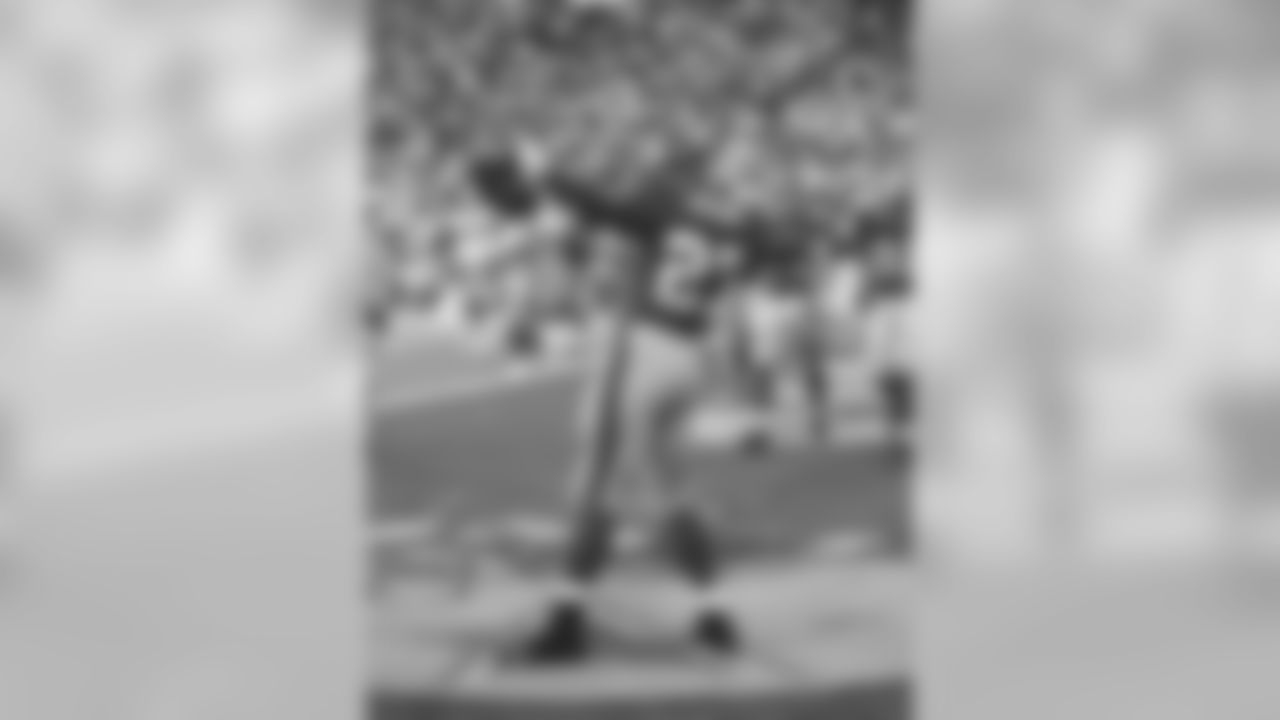
New York Giants running back Brandon Jacobs (27) celebrates his touchdown against the Dallas Cowboys by standing on the Cowboy's star in the end zone in the third quarter of their football game in Irving, Texas, Monday, Oct. 23, 2006. (AP Photo/Matt Slocum)
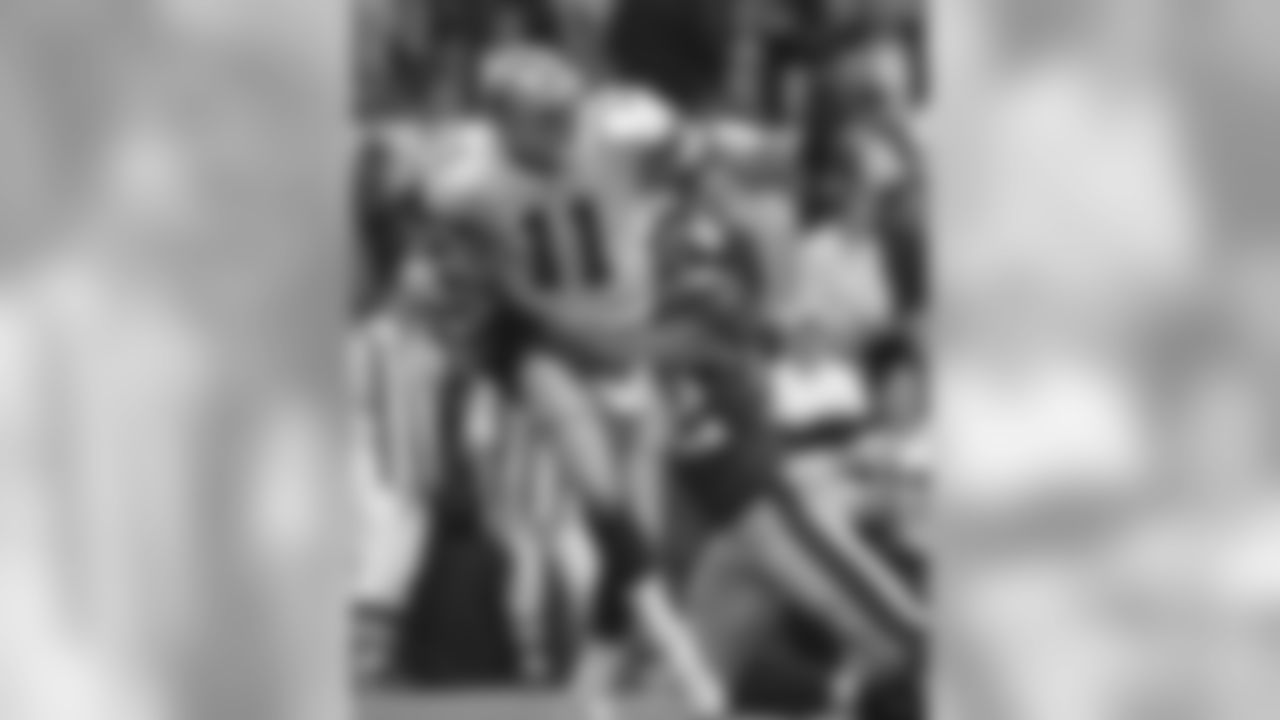
Dallas Cowboys quarterback Drew Bledsoe (11) is sacked for a loss of six yards by New York Giants defensive end Michael Strahan (92) in the 2nd quarter of their football game in Irving, Texas, Monday, Oct. 23, 2006. (AP Photo/L.M. Otero)
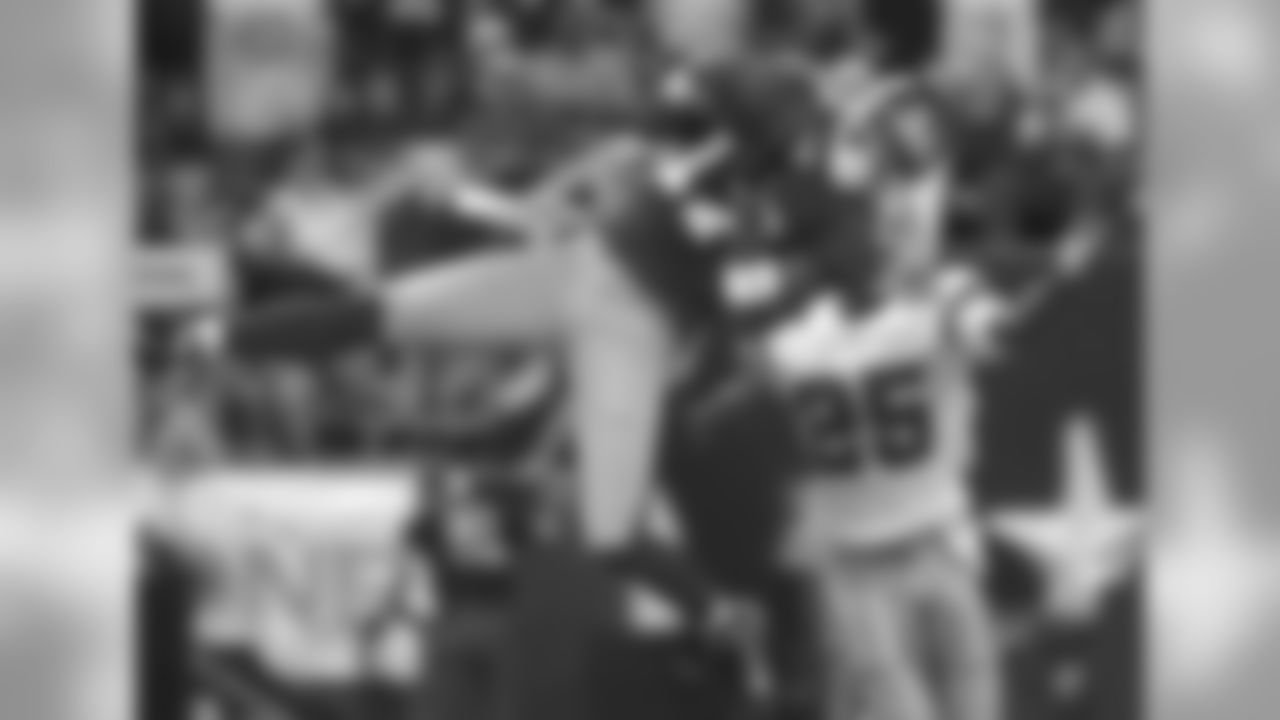
New York Giants wide receiver Plaxico Burress (17) pull in a 50-yard touchdown pass in front of Dallas Cowboys safety Patrick Watkins (25) in the first quarter of their football game in Irving, Texas, Monday, Oct. 23, 2006. (AP Photo/L.M. Otero))
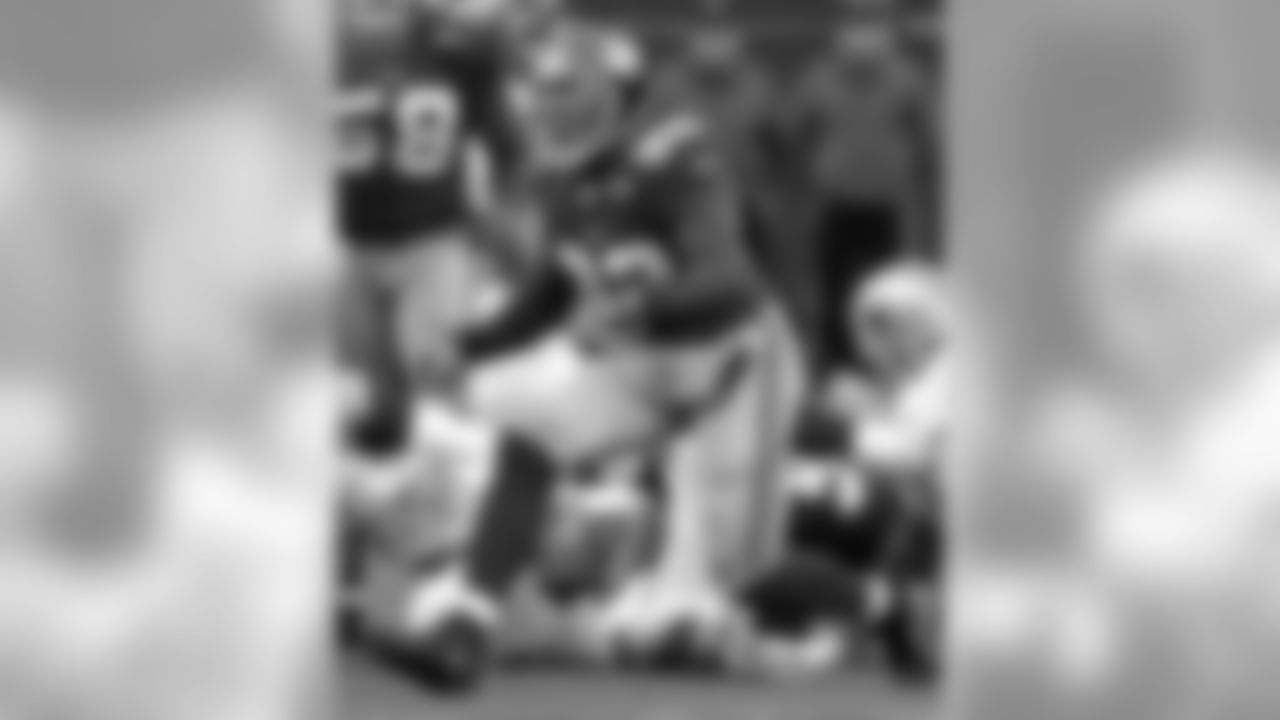
New York Giants defensive end Michael Strahan celebrates after sacking Dallas Cowboys quarterback Drew Bledsoe, rear during the third quarter Sunday, Dec. 4, 2005 at Giants Stadium in East Rutherford, N.J. The Giants won 17-10. (AP Photo/Bill Kostroun)
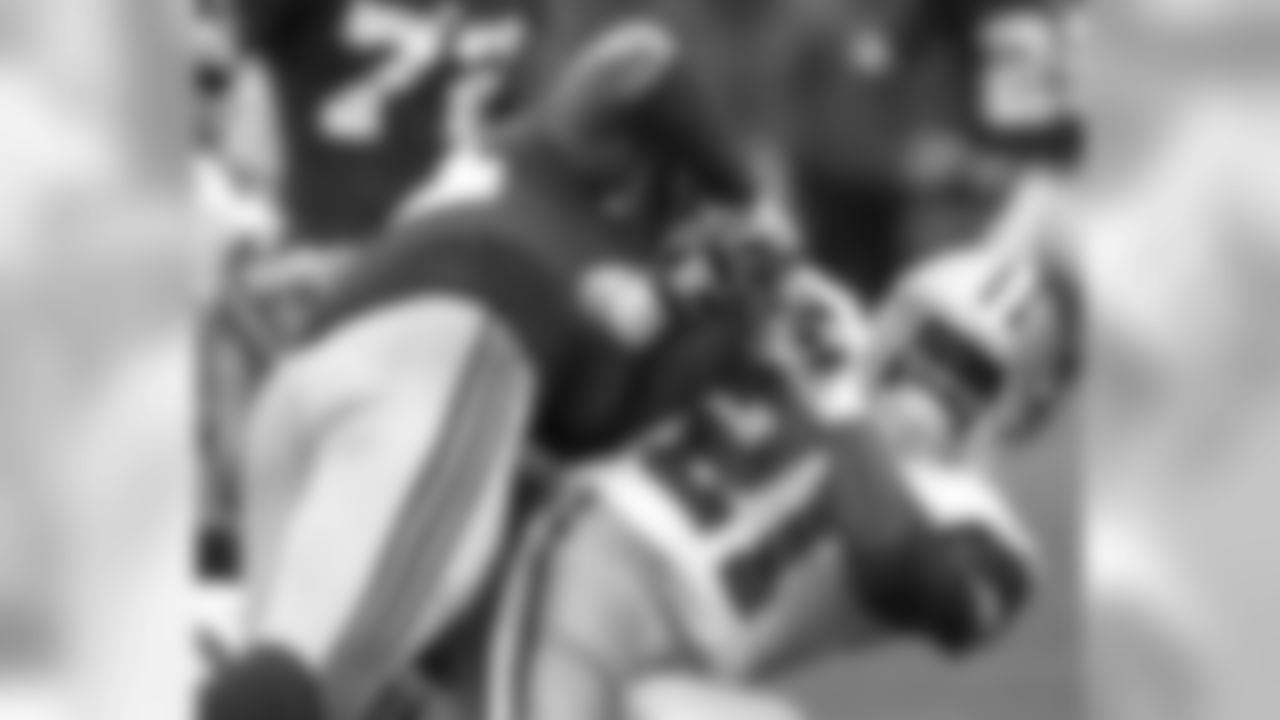
Dallas Cowboys running back Julius Jones hangs on to the ball while being tackled by New York Giants' Nick Greisen during the third quarter Sunday, Dec. 4, 2005 in East Rutherford, N.J. Jones finished the game with 74 rushing yards and 88 receiving yards, but the Giants won 17-10. (AP Photo/Julie Jacobson)
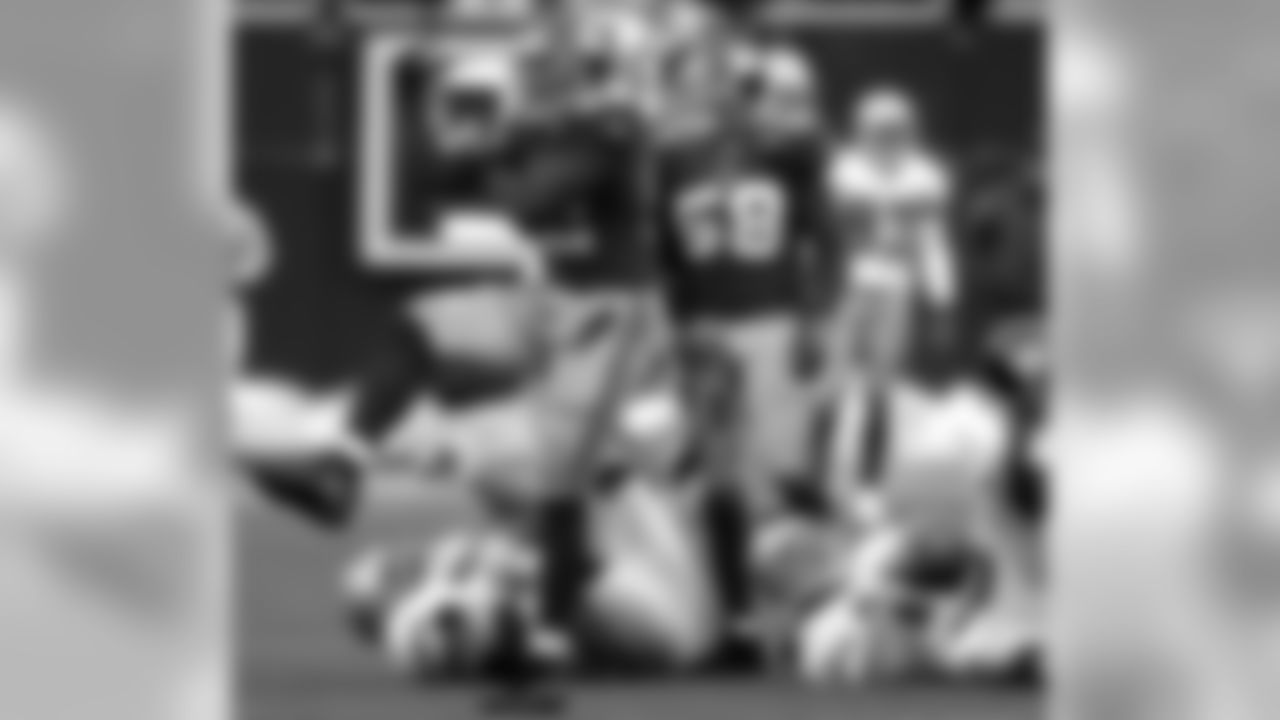
New York Giants defensive end Michael Strahan, front, celebrates after sacking Dallas Cowboys quarterback Drew Bledsoe, left rear, during the third quarter Sunday, Dec. 4, 2005, at Giants Stadium in East Rutherford, N.J. Cowboys guard Larry Allen is behind Strahan. The Giants won, 17-10. (AP Photo/Bill Kostroun)
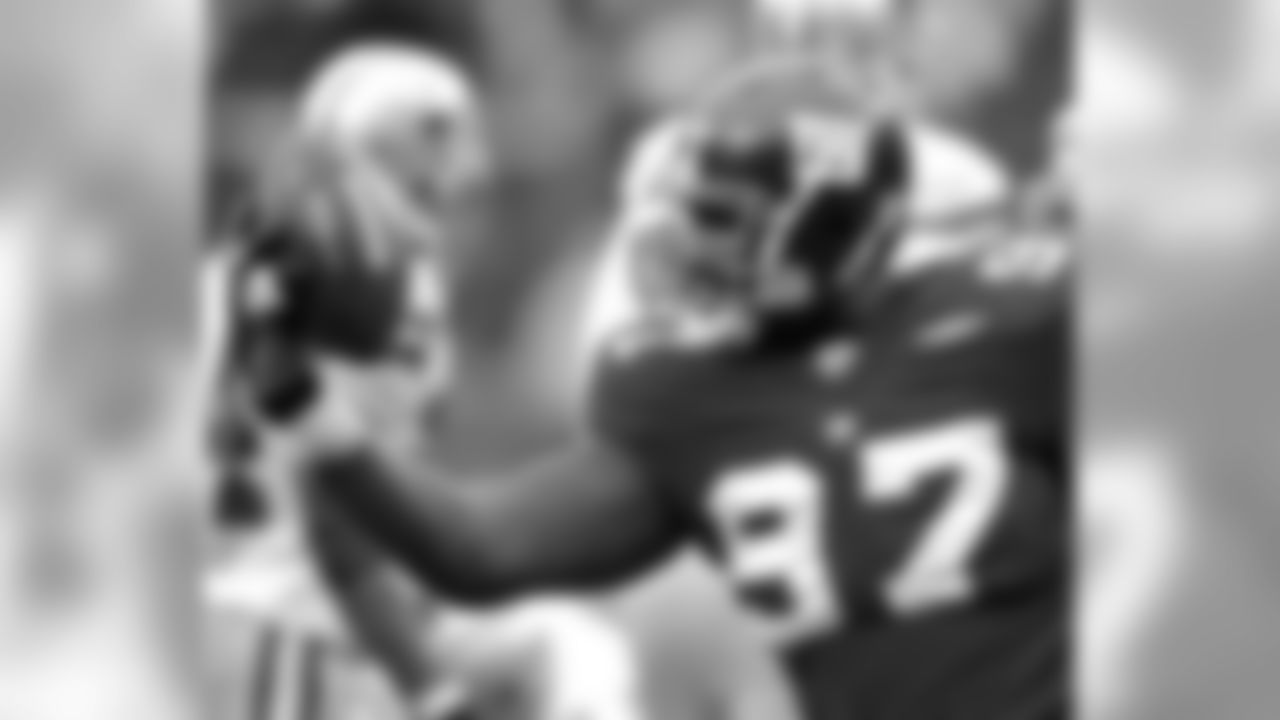
New York Giants defensive tackle Kendrick Allen celebrates after recovering a fumble during the second quarter against the Dallas Cowboys Sunday, Dec. 4, 2005 at Giants Stadium in East Rutherford, N.J. (AP Photo/Bill Kostroun)
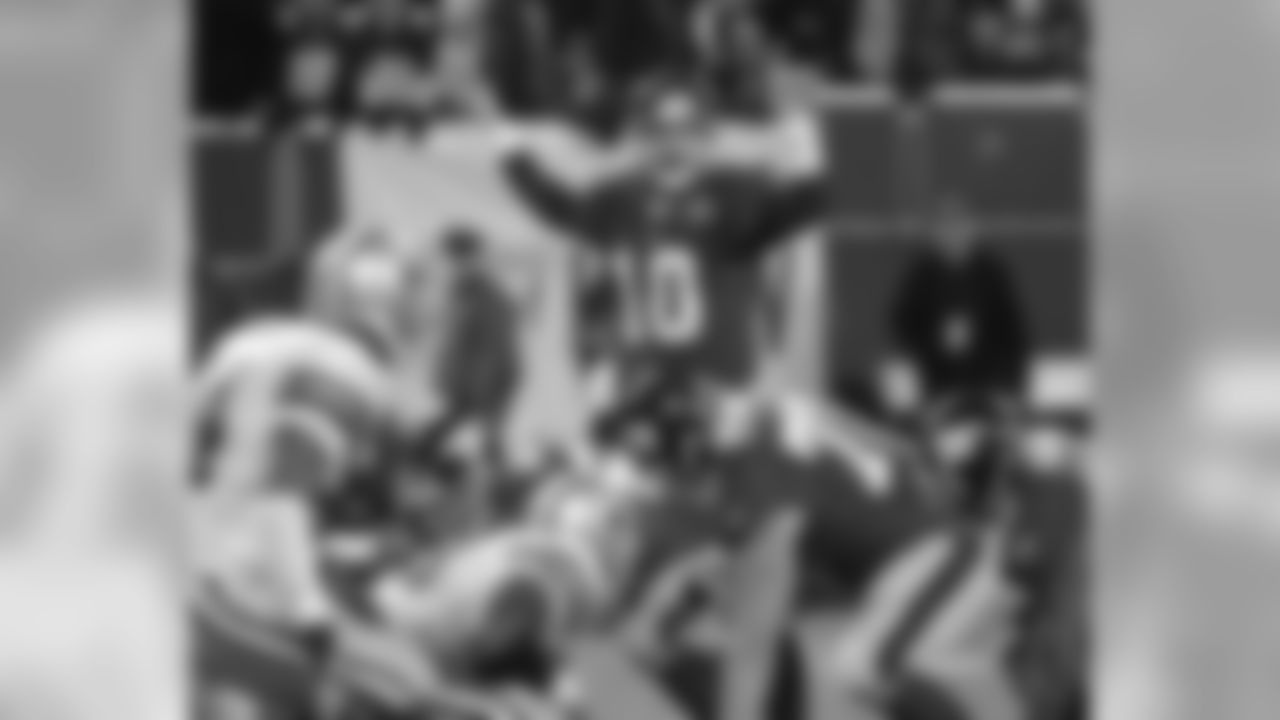
New York Giants quarterback Eli Manning calls an audible during he fourth quarter agaisnt the Dallas Cowboys Sunday night, Jan. 2, 2005, at Giants Stadium in East Rutherford, N.J. Manning completed 18 of 27 passes for 144 yards and three touchdowns, leading the Giants to a 28-24 win. (AP Photo/Bill Kostroun)
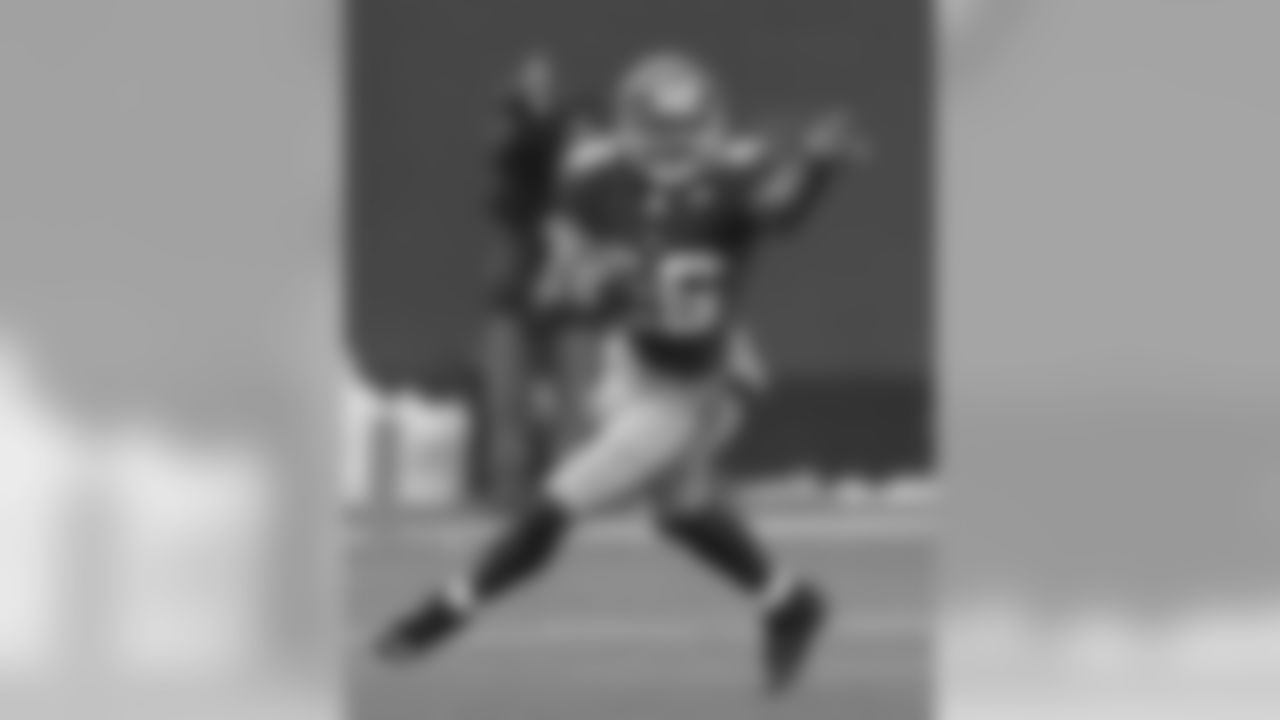
New York Giants safety Brent Alexander reacts as he carries the ball after intercepting Drew Bledsoe's pass intended for Dallas Cowboys wide receiver Keyshawn Johnson in the fourth quarter of the Giants' 17-10 victory over Dallas, Sunday, Dec. 4, 2005, at Giants Stadium in East Rutherford, N.J. (AP Photo/Kathy Willens)
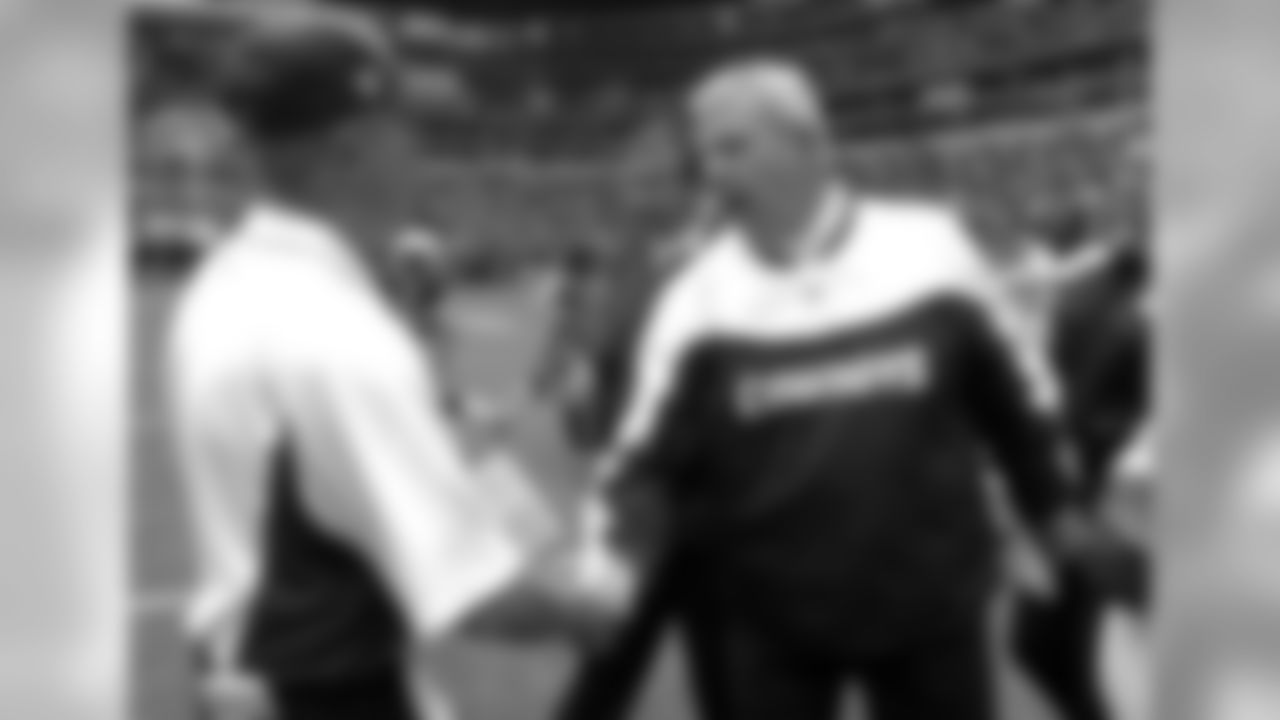
Dallas Cowboys coach Bill Parcells, right, shakes hands with New York Giants coach Tom Coughlin after the Giants' 26-10 win in Irving, Texas, Sunday, Oct. 10, 2004. (AP Photo/L.M. Otero)
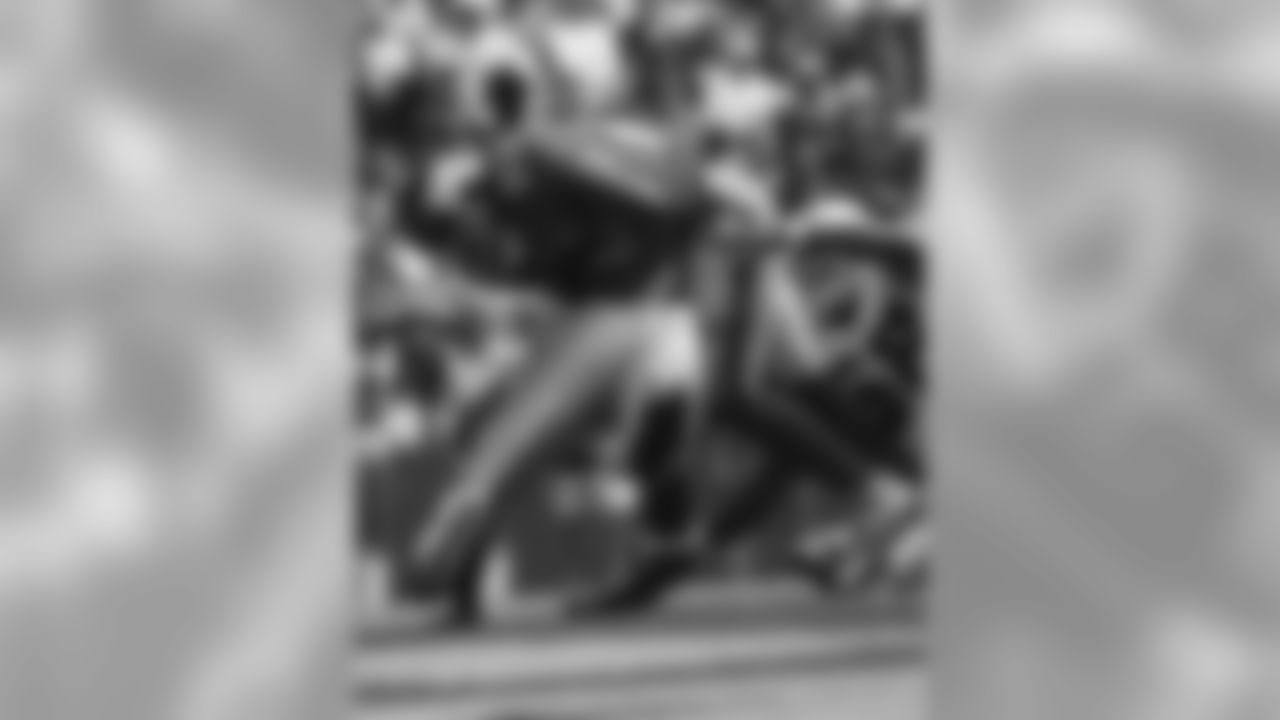
New York Giants running back Tiki Barber (21) crashes over Dallas Cowboy cornerback Terence Newman (41) as Cowboys linebacker Bradie James (56) tries to make the stop in the 4th quarter in Irving, Texas, Sunday, Oct. 10, 2004. The Giants won, 26-10. (AP Photo/Tim Sharp)
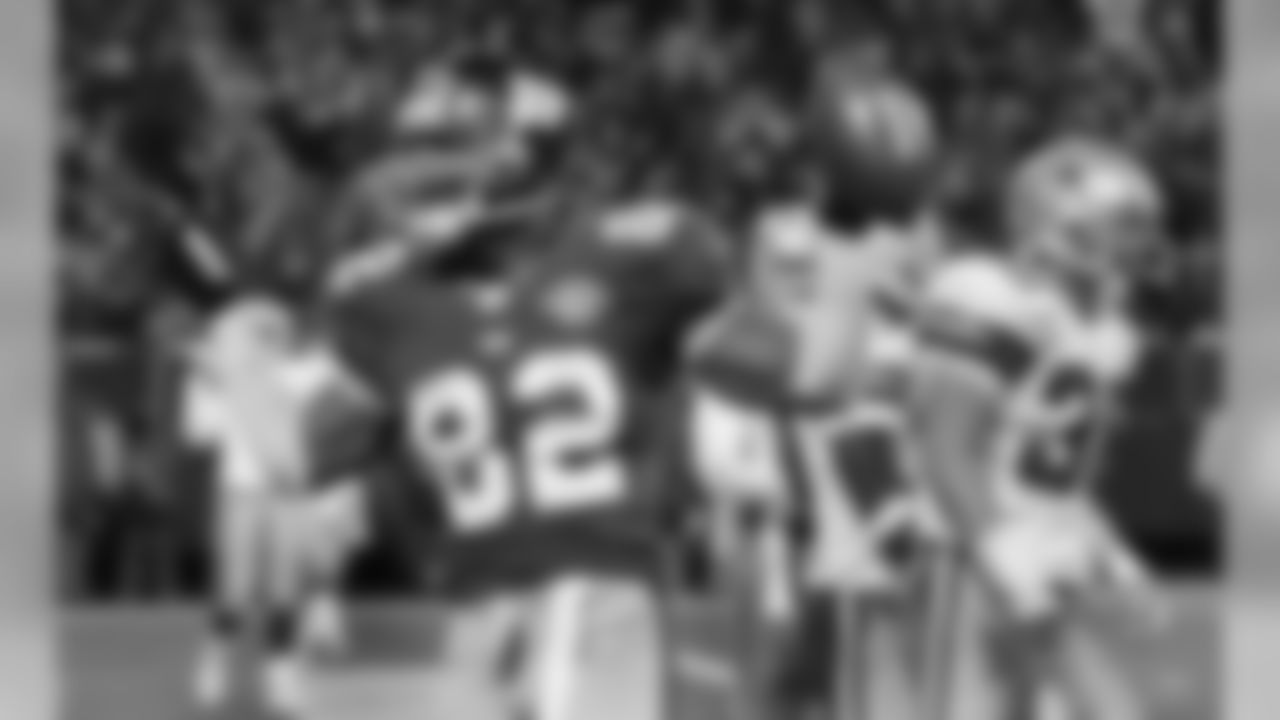
New York Giants' Visanthe Shiancoe celebrates after scoring a touchdown against the Dallas Cowboys during the second quarter Sunday, Jan. 2, 2005 in East Rutherford, New Jersey. (AP Photo/Julie Jacobson)
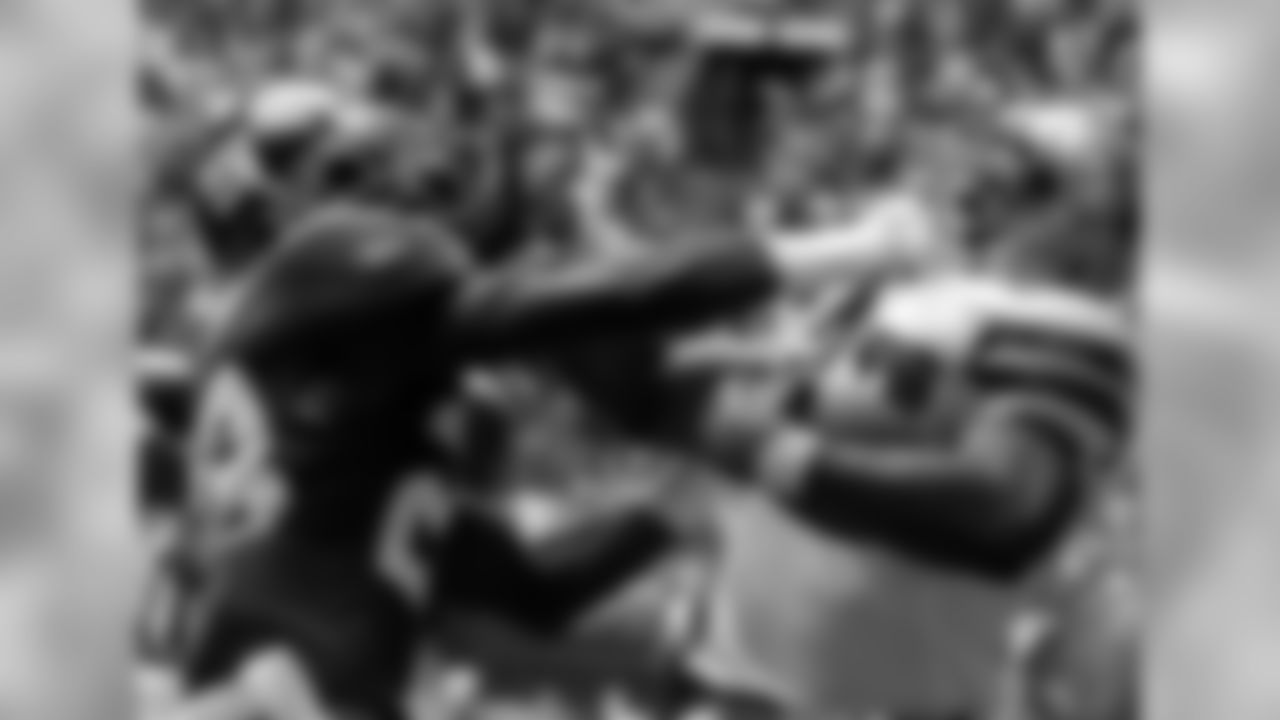
Dallas Cowboys running back Eddie George (27) and New York Giants safety Gibril Wilson (28) get into a shoving match after George picked up 24-yards on a running play in the 1st quarter in Irving, Texas, Sunday, Oct. 10, 2004. (AP Photo/Donna McWilliam)
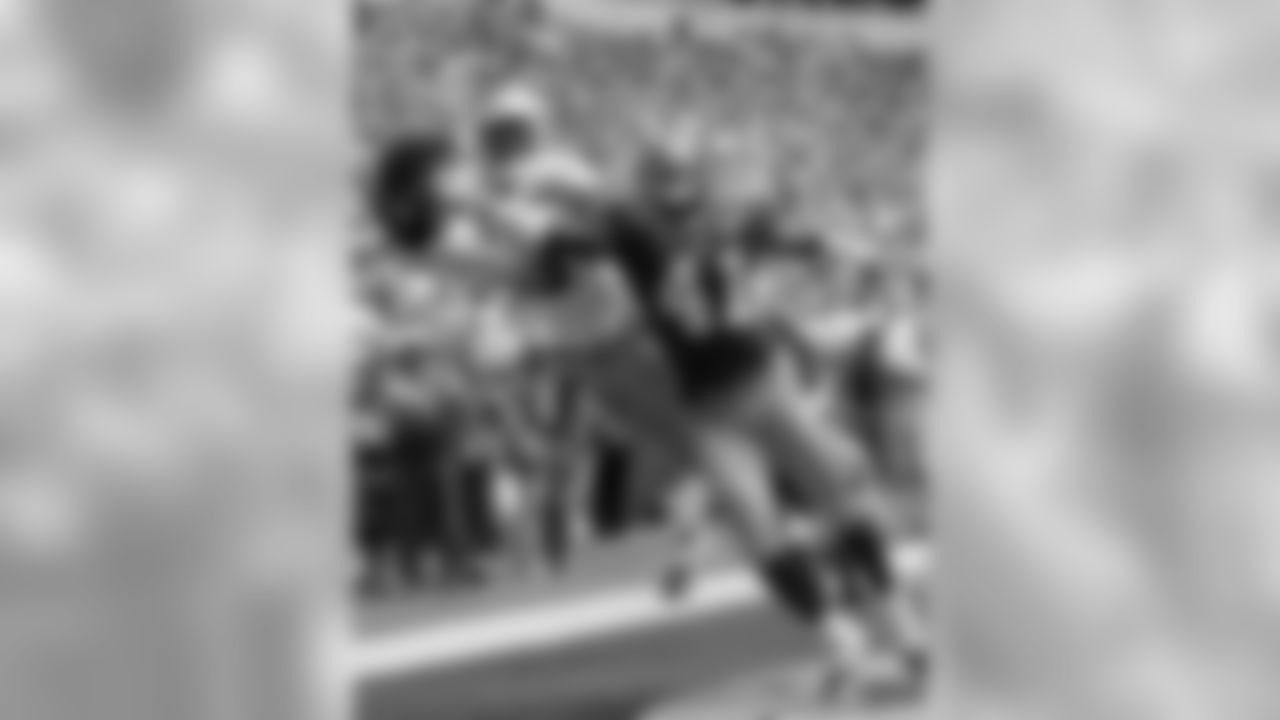
New York Giants corner back Frnk Walker (41) knocks the pass away from Dallas Cowboys wide receiver Keyshawn Johnson (19) in the end zone in 1st quarter at Irving, Texas, Sunday, Oct. 10, 2004. The Giants won, 26-10. (AP Photo/Donna McWilliam)
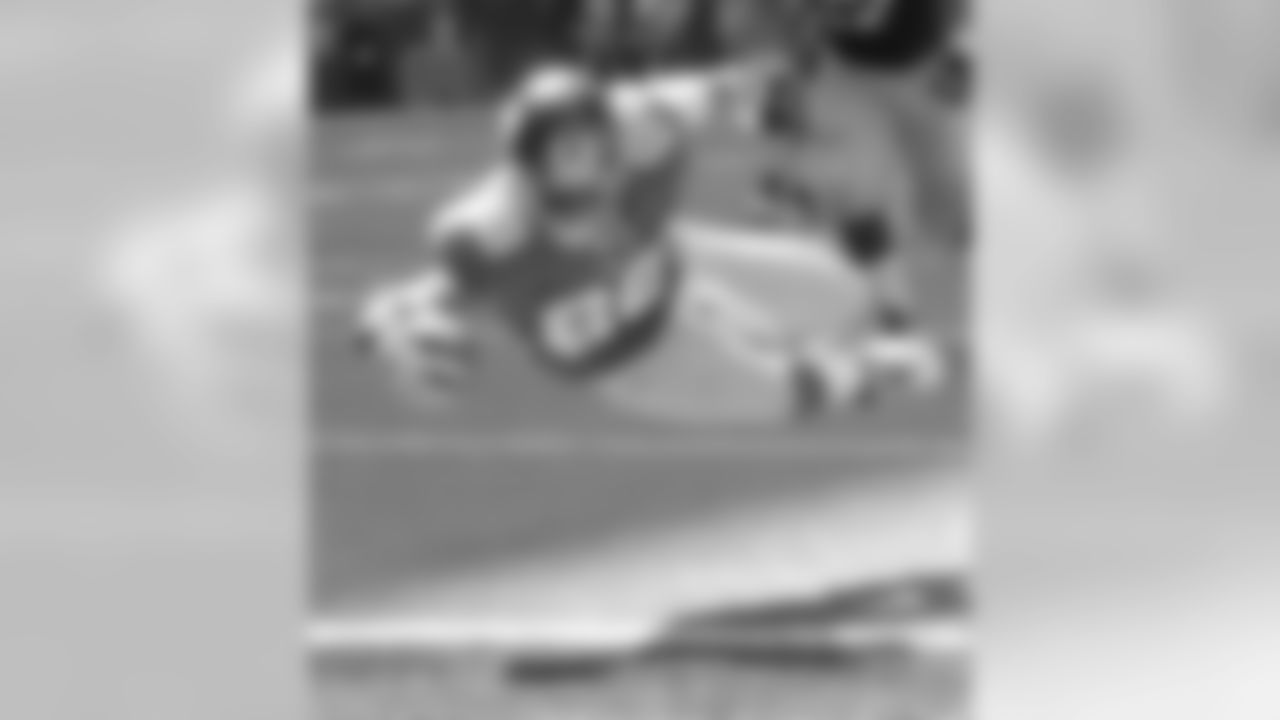
New York Giants Ike Hilliard (88) dives over the goal line for a touchdown in the second quarter against the Dallas Cowboys, in Irving, Texas, Sunday, Oct. 6, 2002. (AP Photo/Tim Sharp)
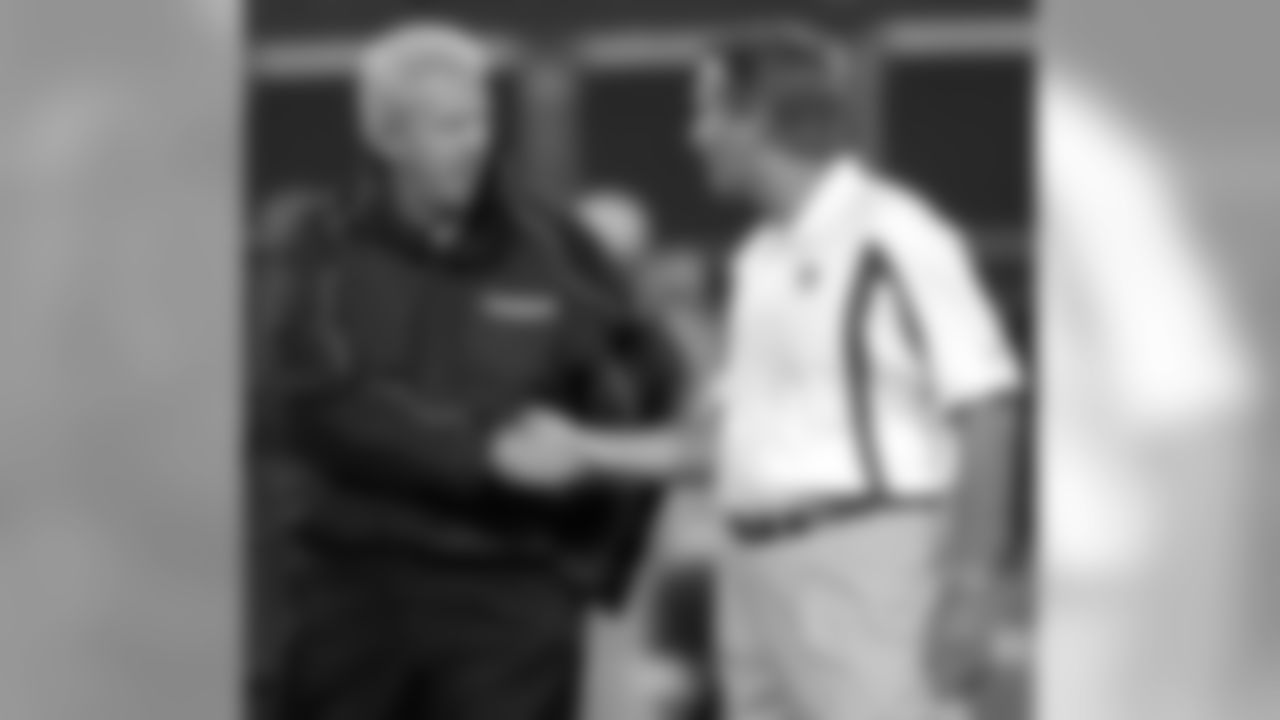
Dallas Cowboys coach Bill Parcells, left, shakes hands with New York Giants coach Jim Fassel, prior to the game at Giants Stadium in East Rutherford, N.J., Monday Sept. 15, 2003. (AP Photo/Bill Kostroun)
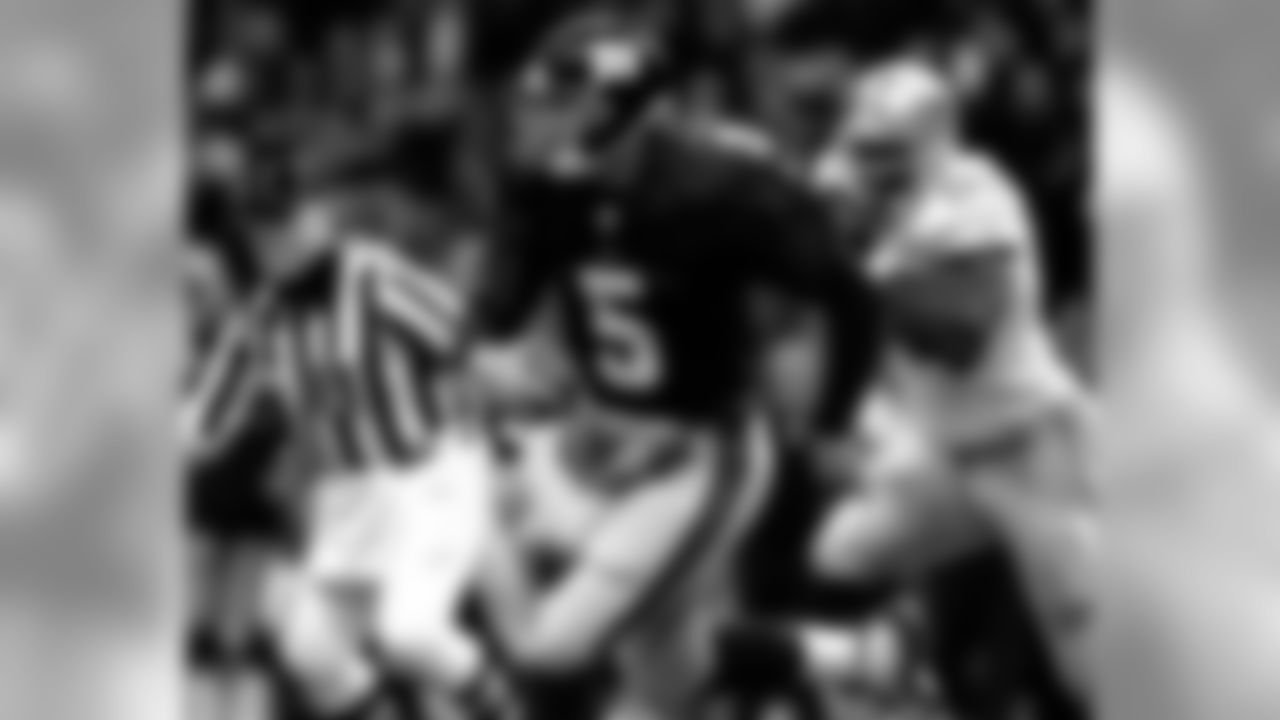
New York Giants quarterback Kerry Collins (5) runs with the ball in the second quarter against the Dallas Cowboys Sunday, Dec. 17, 2000, as Cowboys defensive end Greg Ellis (98) gives chase. (AP Photo/Donna McWilliam)
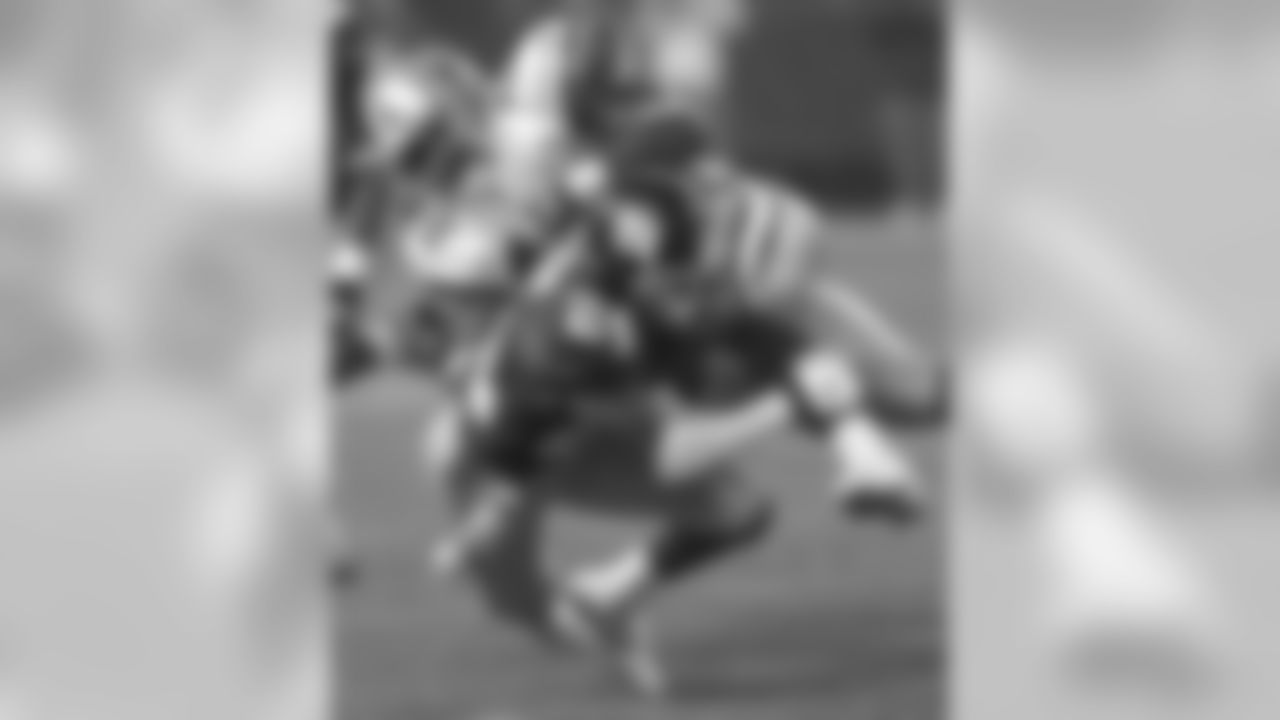
Dallas Cowboys' Troy Hambrick (42) is tackled by New York Giants Will Peterson (24) during the second quarter at Giants Stadium in East Rutherford, N.J., Monday, Sept. 15, 2003. (AP Photo/Kathy Willens)
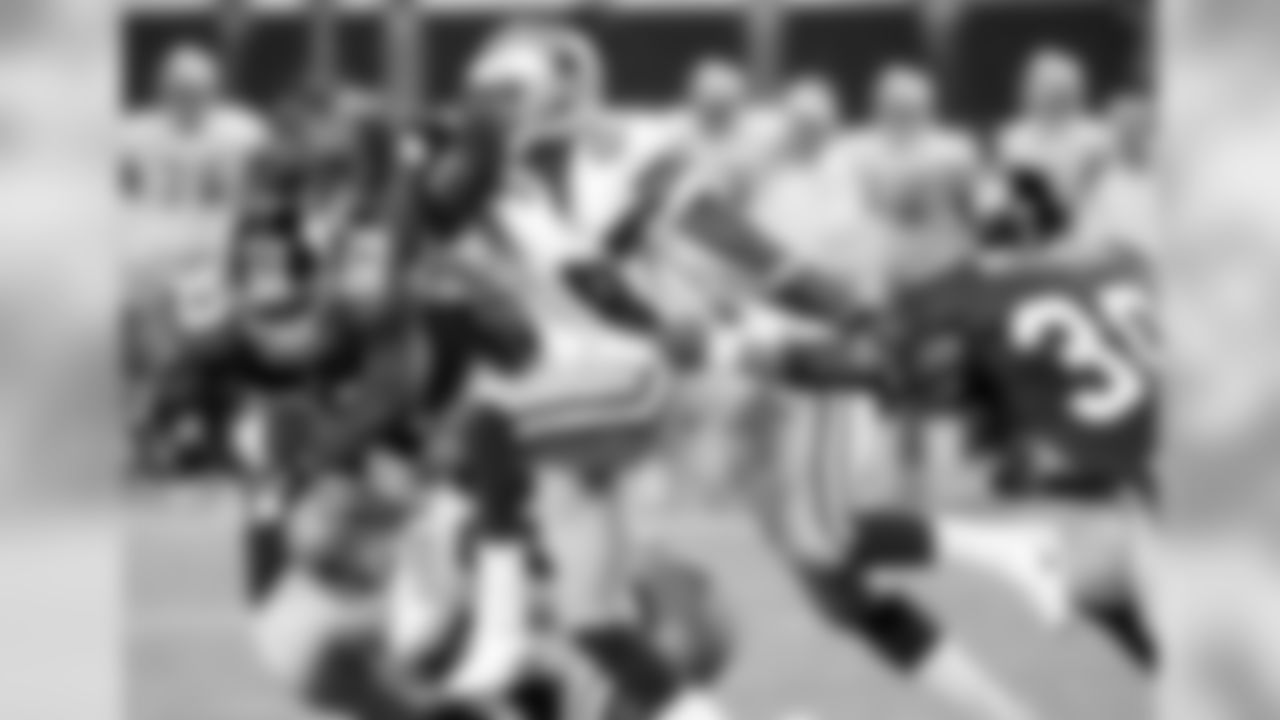
New York Giants' Brian Mitchell, right, grabs Dallas Cowboys' Zuriel Smith, center, as he carries a punt return in the first quarter at Giants Stadium in East Rutherford, N.J., Monday Sept. 15, 2003. Giants' Quincy Monk (93) and Cowboys' Randal Williams are at left. (AP Photo/Bill Kostroun)
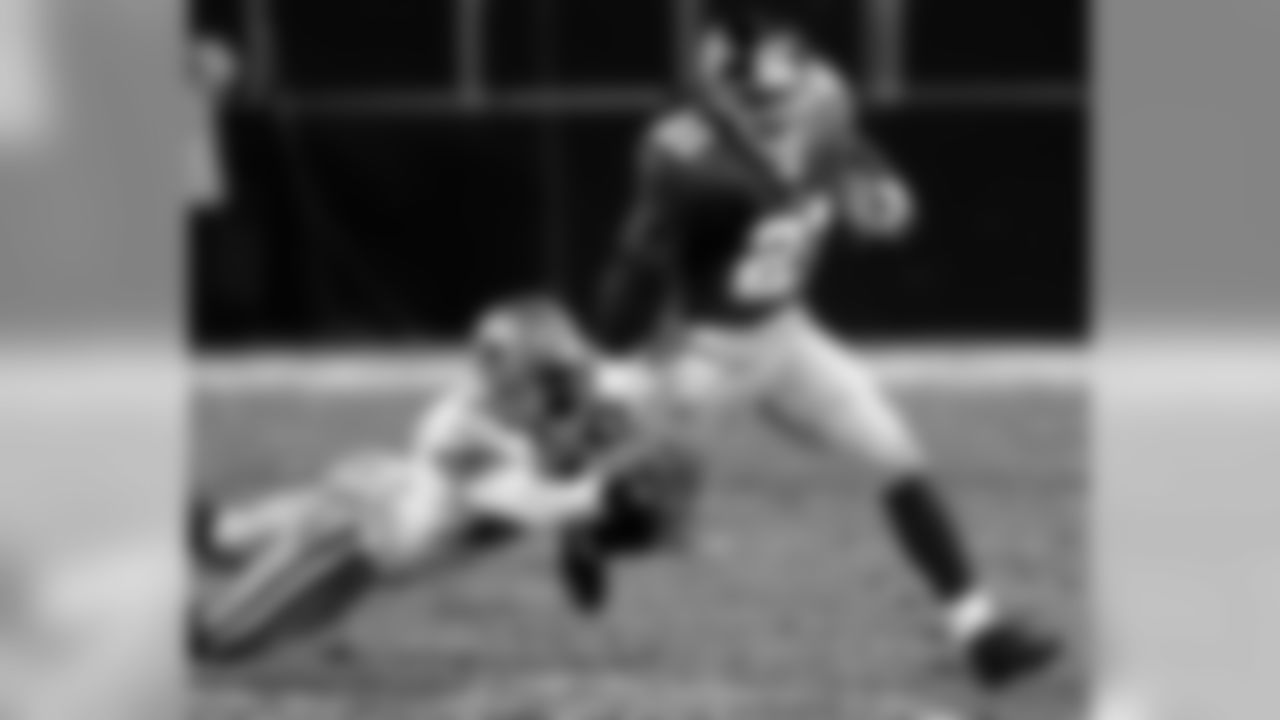
New York Giants running back Tiki Barber, right, breaks away from Dallas Cowboys safety Tony Dixon as he runs for a 60-yard gain during the first quarter Sunday, Dec. 15, 2002, at Giants Stadium in East Rutherford, N.J. (AP Photo/Bill Kostroun)
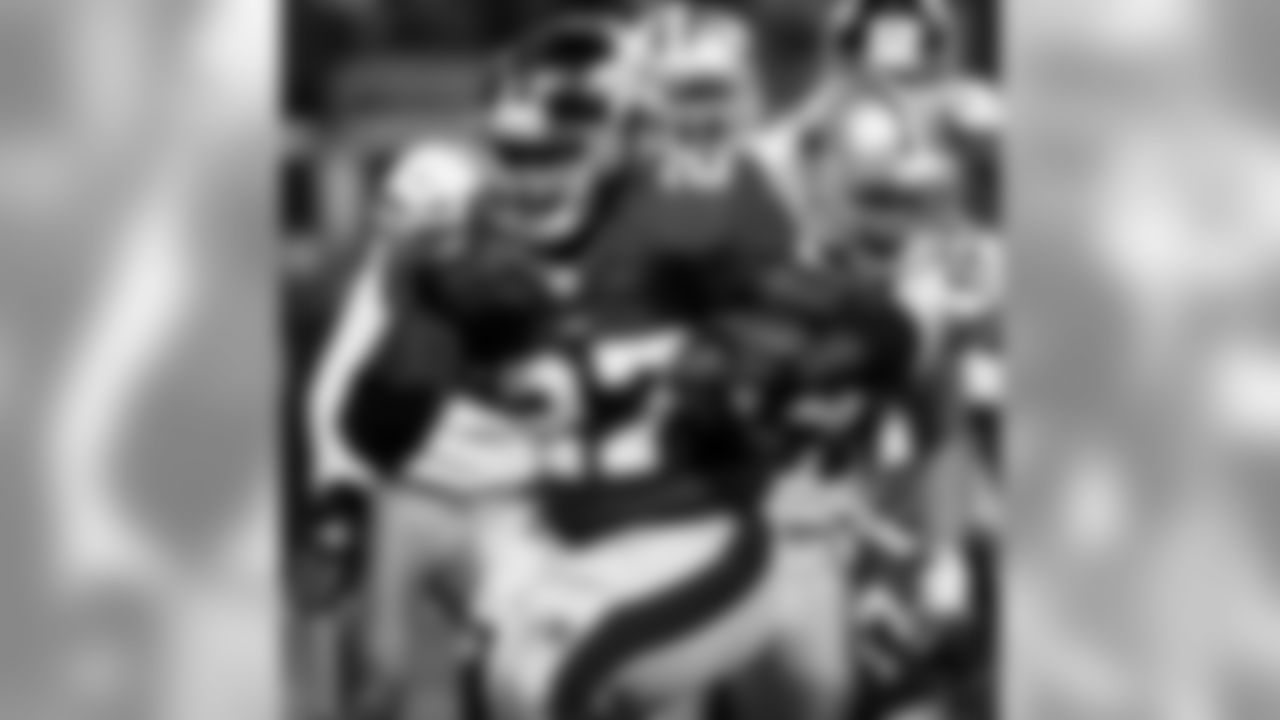
New York Giants running back Ron Dayne (27) scores a touchdown on a four-yard run during the first quarter against the Dallas Cowboys Sunday, Dec. 15, 2002, at Giants Stadium in East Rutherford, N.J. Dayne gained 80 yards and scored two touchdowns as the Giants beat the Cowboys 37-7. (AP Photo/Bill Kostroun)
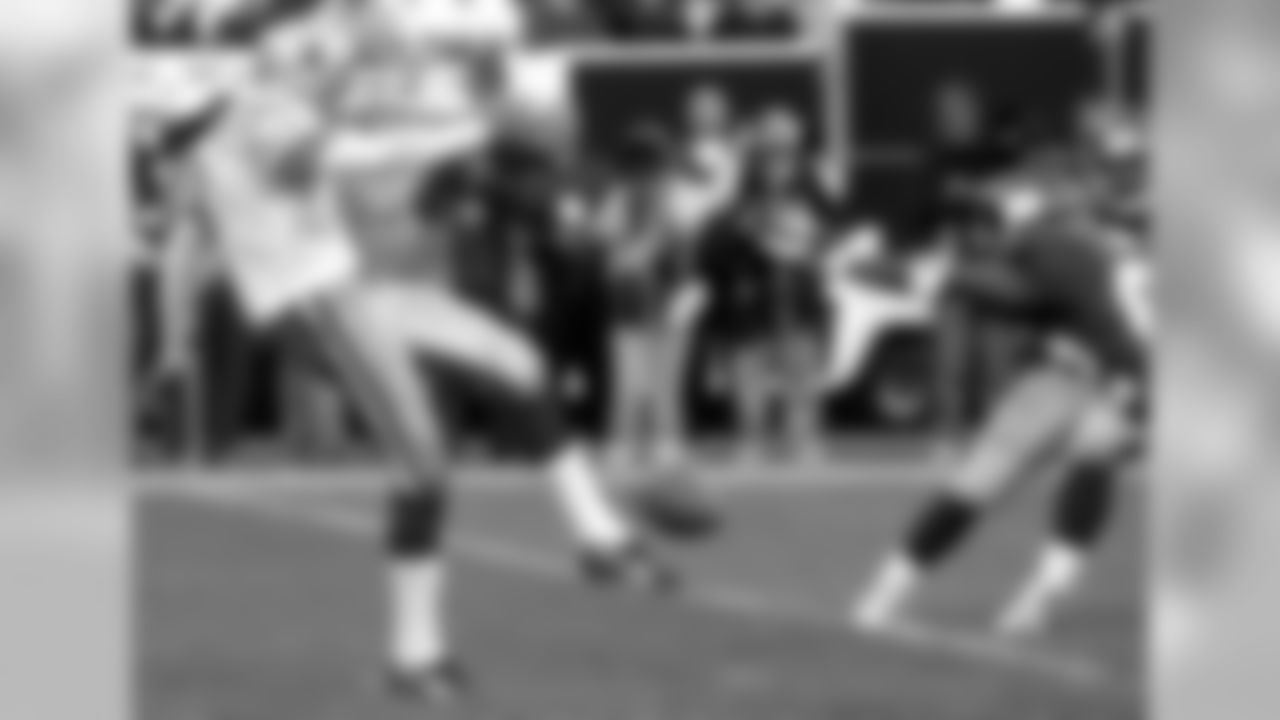
New York Giants' Thabiti Davis, right, blocks a punt by Dallas Cowboys punter Micah Knorr during the fourth quarter Sunday, Nov. 4, 2001, at Giants Stadium in East Rutherford, N.J. The Giants beat the Cowboys 27-24 in overtime. (AP Photo/Bill Kostroun)
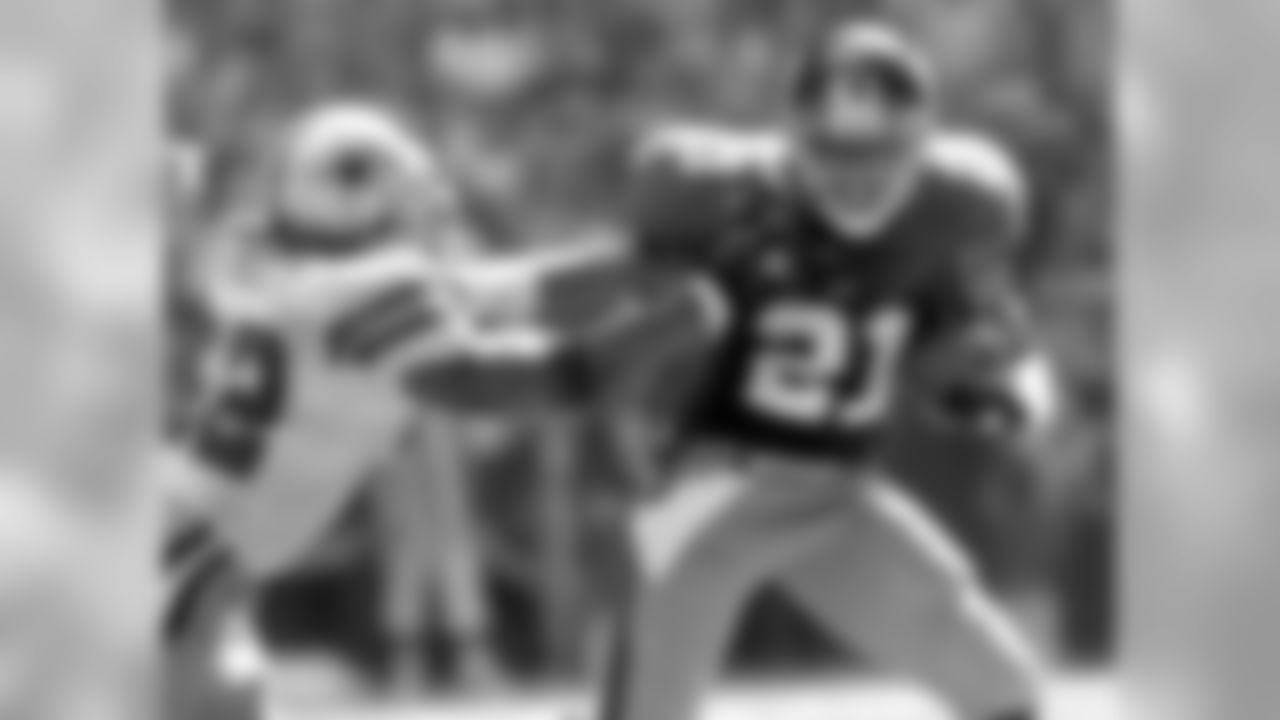
New York Giants Tiki Barber (21) pushes off Dallas Cowboys linebacker Dexter Coakley (52) in the fourth quarter Sunday, Oct. 6, 2002, in Irving, Texas. The Giants won, 21-17. (AP Photo/Donna McWilliam)
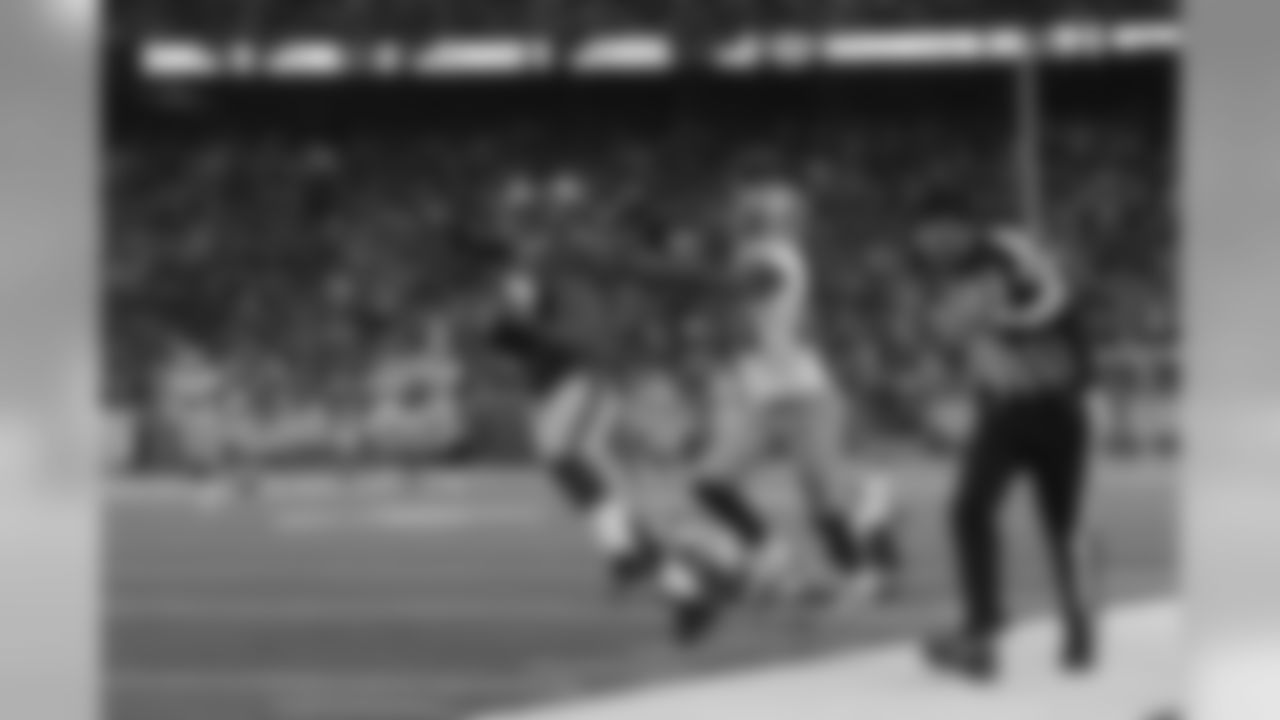
New York Giants' Hakeem Nicks runs for the end zone during the fourth quarter of an NFL football game between the New York Giants and the Dallas Cowboys at New Meadowlands Stadium Sunday, Nov. 14, 2010, in East Rutherford, N.J. (AP Photo/Kathy Willens)
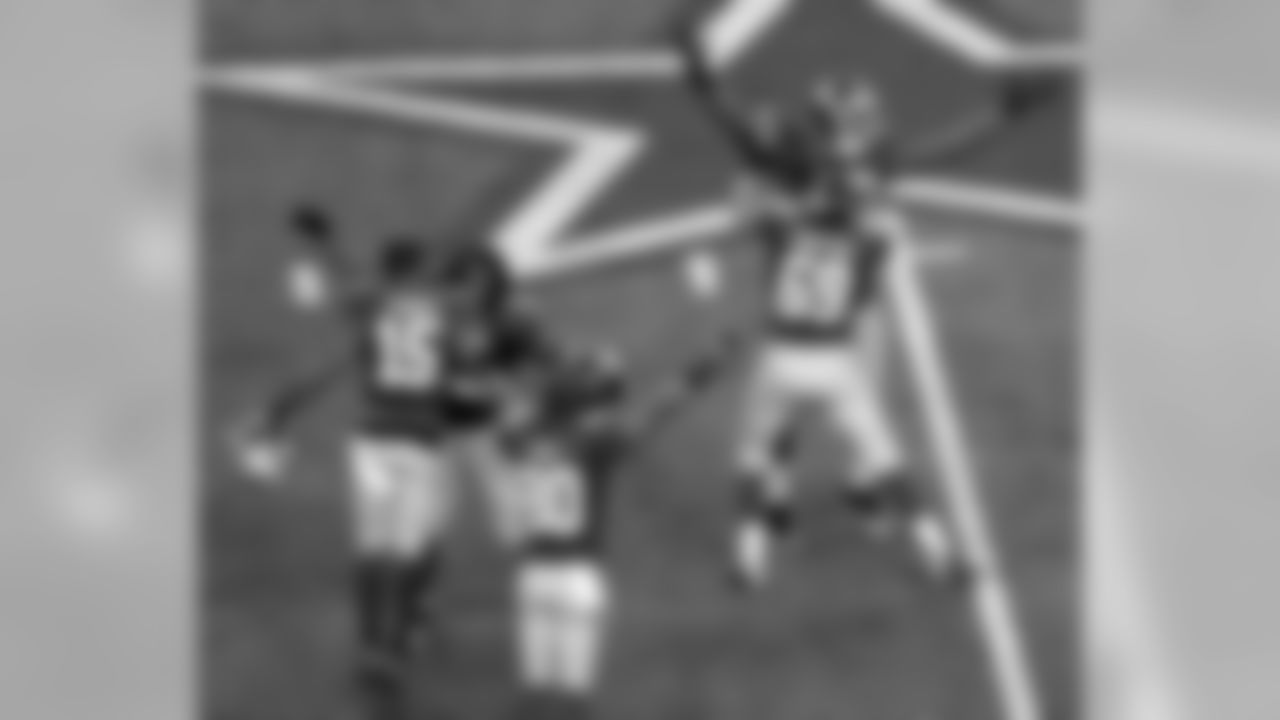
The New York Giants celebrate after defeating the Dallas Cowboys 37-34 after an NFL game Sunday, Dec. 11, 2011, in Arlington, Texas. (AP Photo/Brandon Wade)
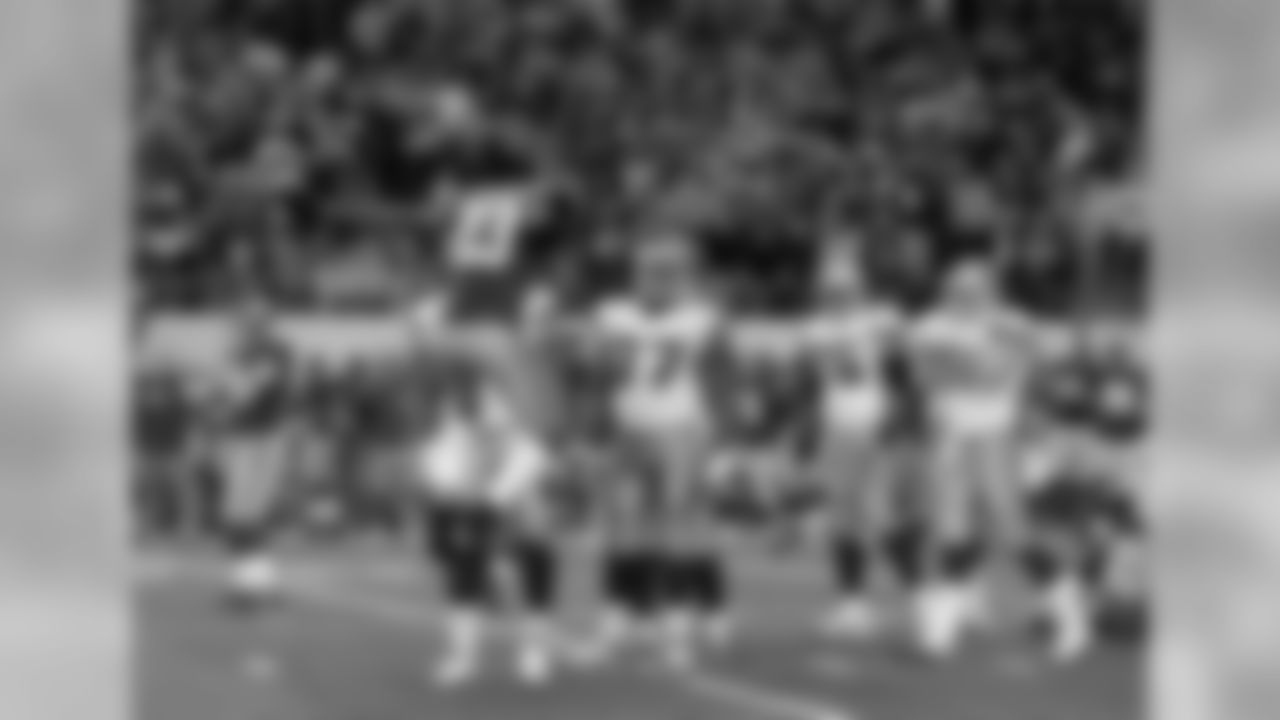
New York Giants cornerback Corey Webstern celebrates in front of the Dallas Cowboys following a failed field goal attempt by the Cowboys in the final seconds of an NFL football game Sunday, Dec. 11, 2011, in Arlington, Texas. The Giants won 37-34. (AP Photo/Tony Gutierrez)
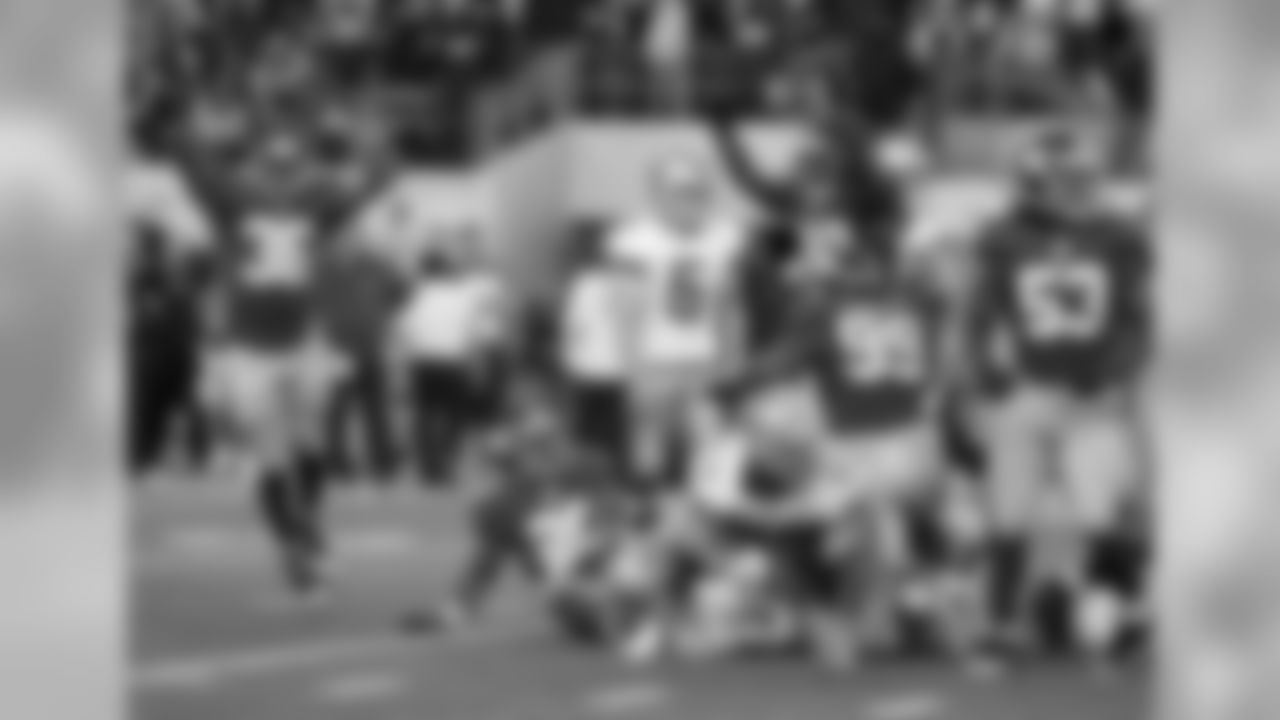
The New York Giants celebrate after Dallas Cowboys' Dan Bailey, center, had his field goal attempt blocked during the final seconds of an NFL football game against the New York Giants Sunday, Dec. 11, 2011, in Arlington, Texas. New York won 37-34. (AP Photo/Sharon Ellman)
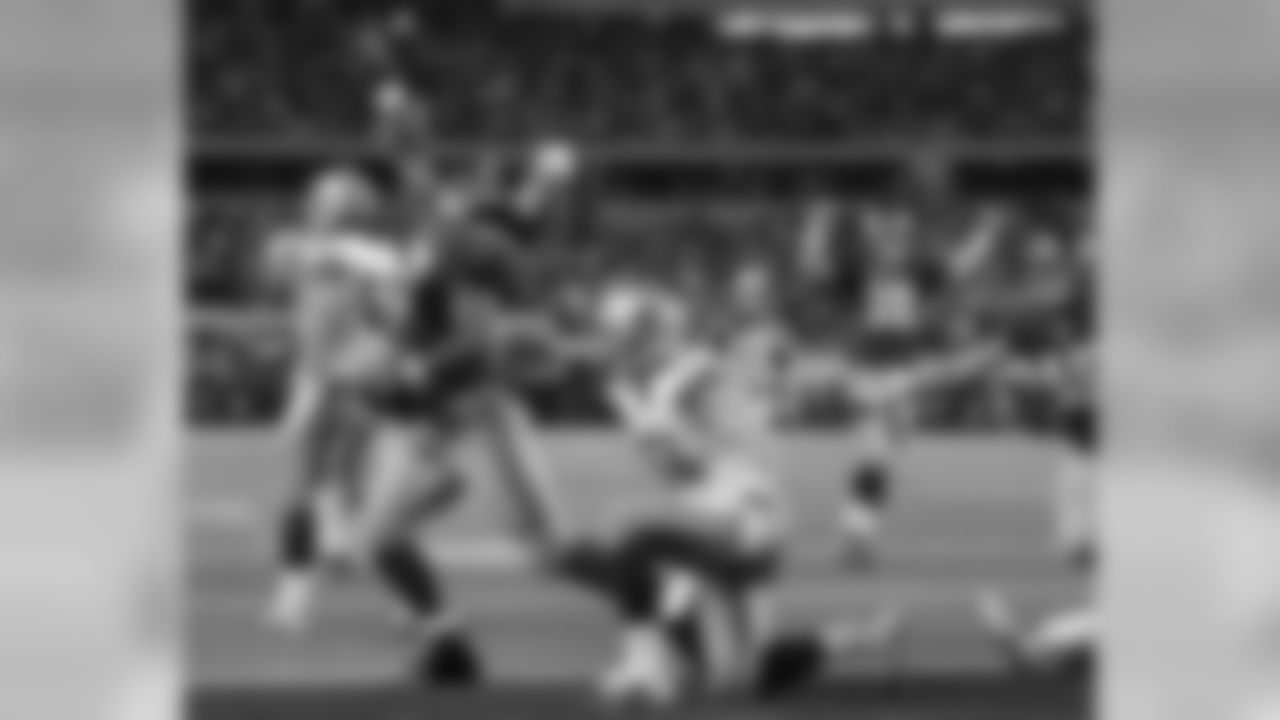
New York Giants' Brandon Jacobs scores the winning touchdown against the Dallas Cowboys during the second half of an NFL football game Sunday, Dec. 11, 2011, in Arlington, Texas. New York won 37-34. (AP Photo/Tony Gutierrez)
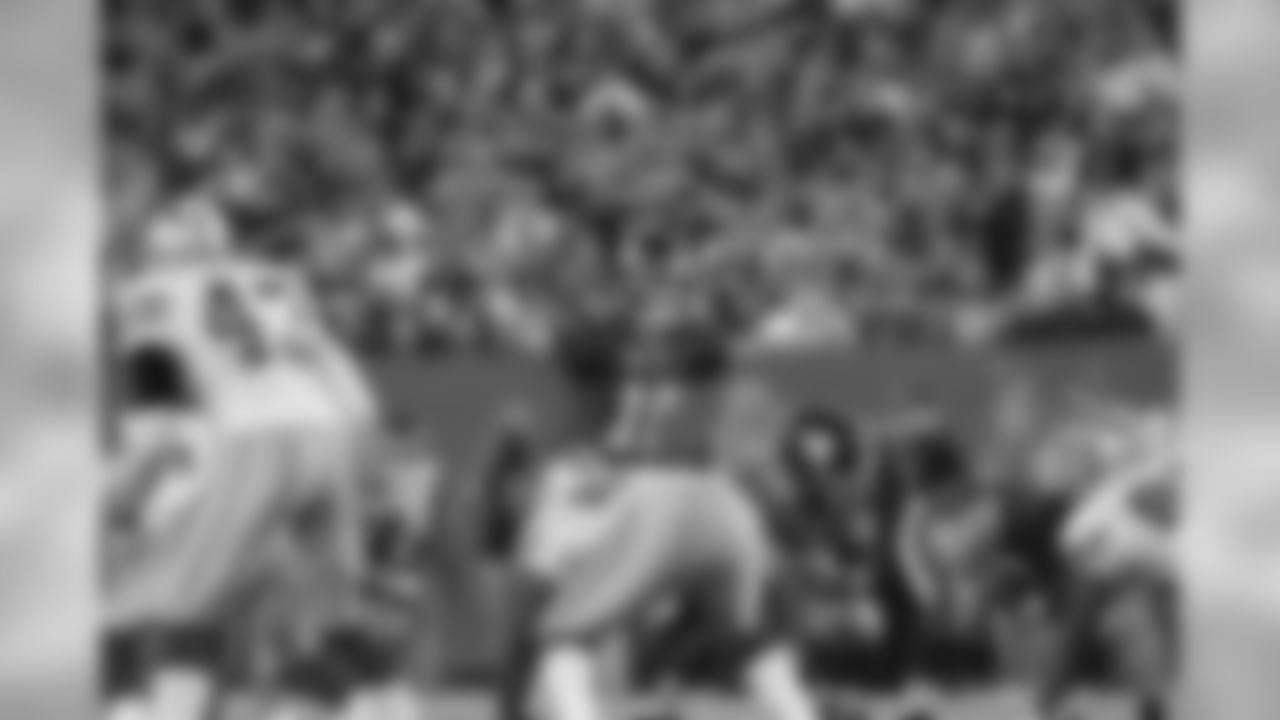
New York Giants' Eli Manning during the second quarter of an NFL football game between the New York Giants and the Dallas Cowboys at New Meadowlands Stadium Sunday, Nov. 14, 2010, in East Rutherford, N.J. (AP Photo/Kathy Willens)
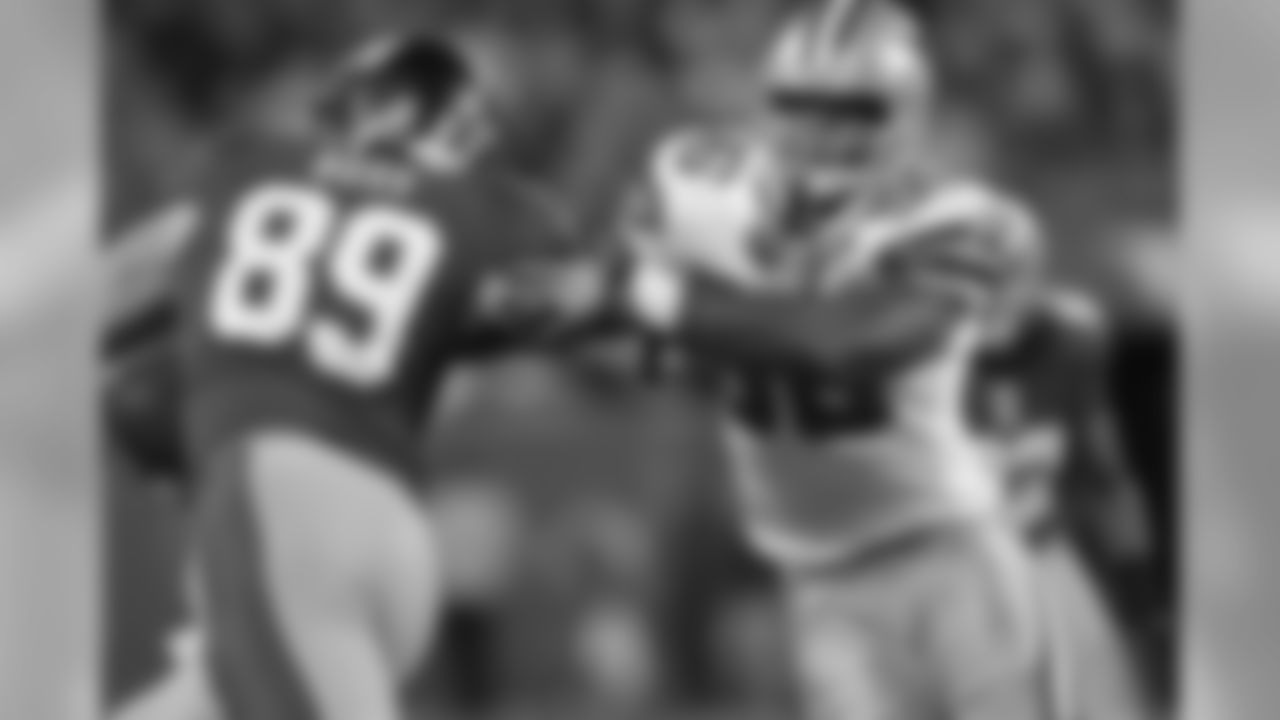
New York Giants' Kevin Boss, left, fends off Dallas Cowboys' Bradie James during the first quarter of an NFL football game between the New York Giants and the Dallas Cowboys at New Meadowlands Stadium Sunday, Nov. 14, 2010, in East Rutherford, N.J. (AP Photo/Kathy Willens)
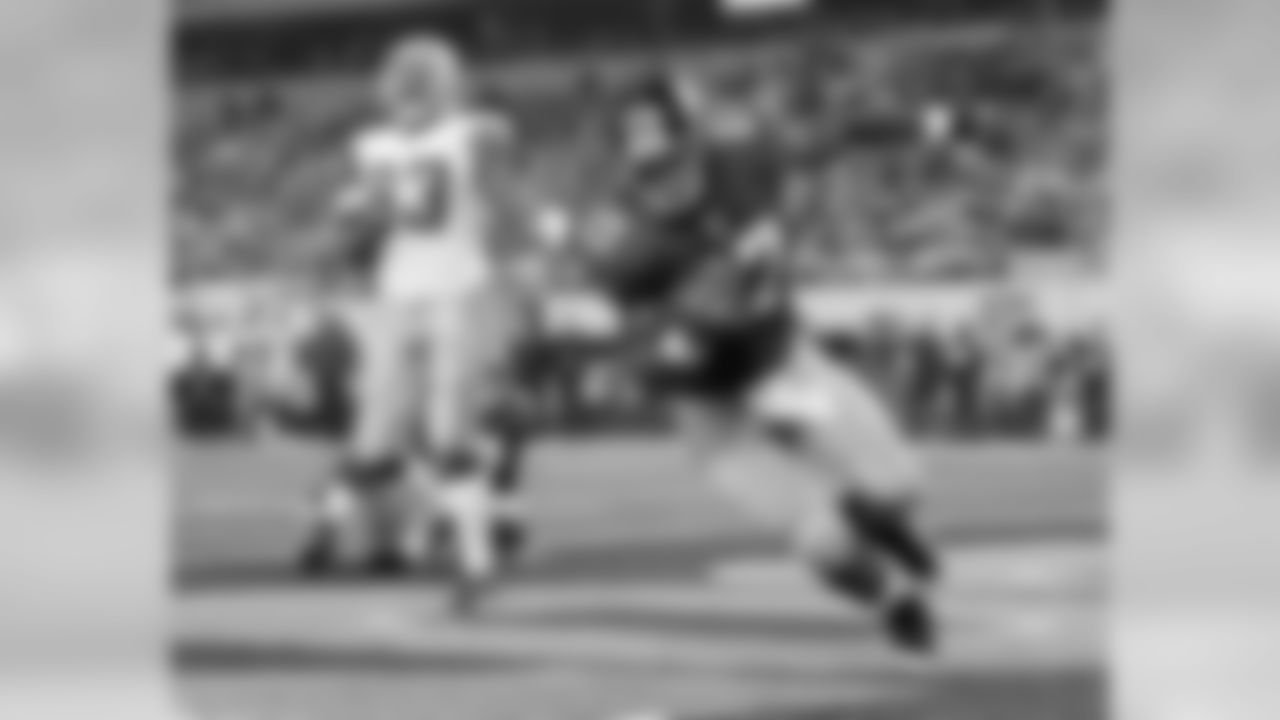
New York Giants' Brandon Jacobs scores a touchdown as Dallas Cowboys' Anthony Spencer looks on during the first half of an NFL football game Sunday, Dec. 11, 2011, in Arlington, Texas. (AP Photo/Sharon Ellman)
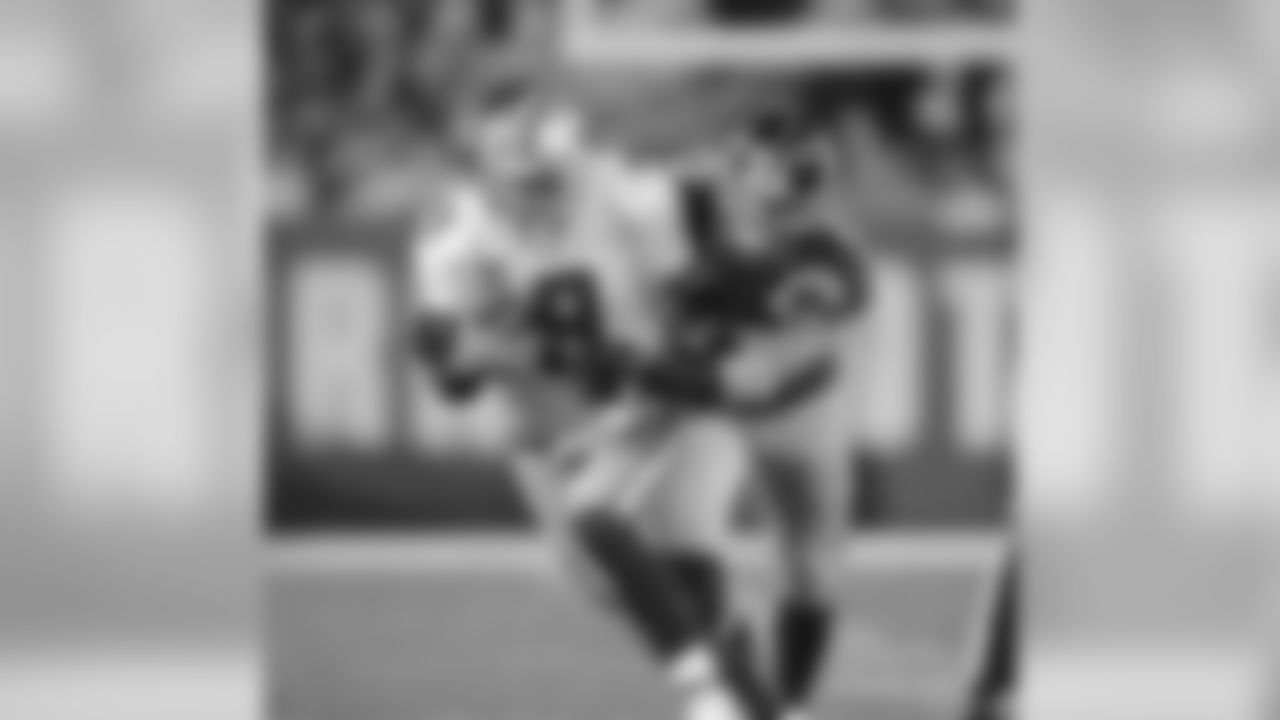
New York Giants defensive end Dave Tollefson (71) tries to wrap up Dallas Cowboys quaterback Tony Romo (9) during an NFL football game on Sunday January 1, 2012 at MetLife Stadium in East Rutherford, New Jersey (AP Photo/Evan Pinkus)
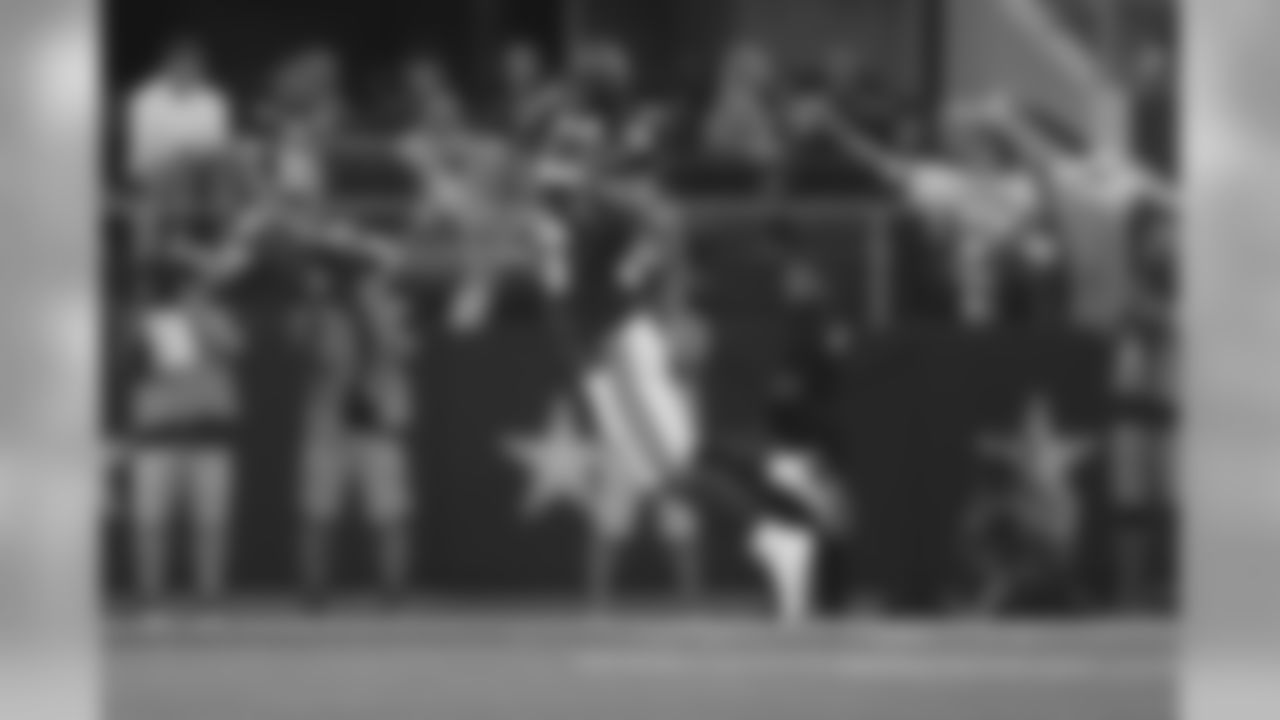
New York Giants running back Saquon Barkley (26) catches the ball during an NFL football game against the Dallas Cowboys, Sunday, Sept. 8, 2019 in Arlington, Texas. Dallas won 35-17. (Peter Read Miller via AP)
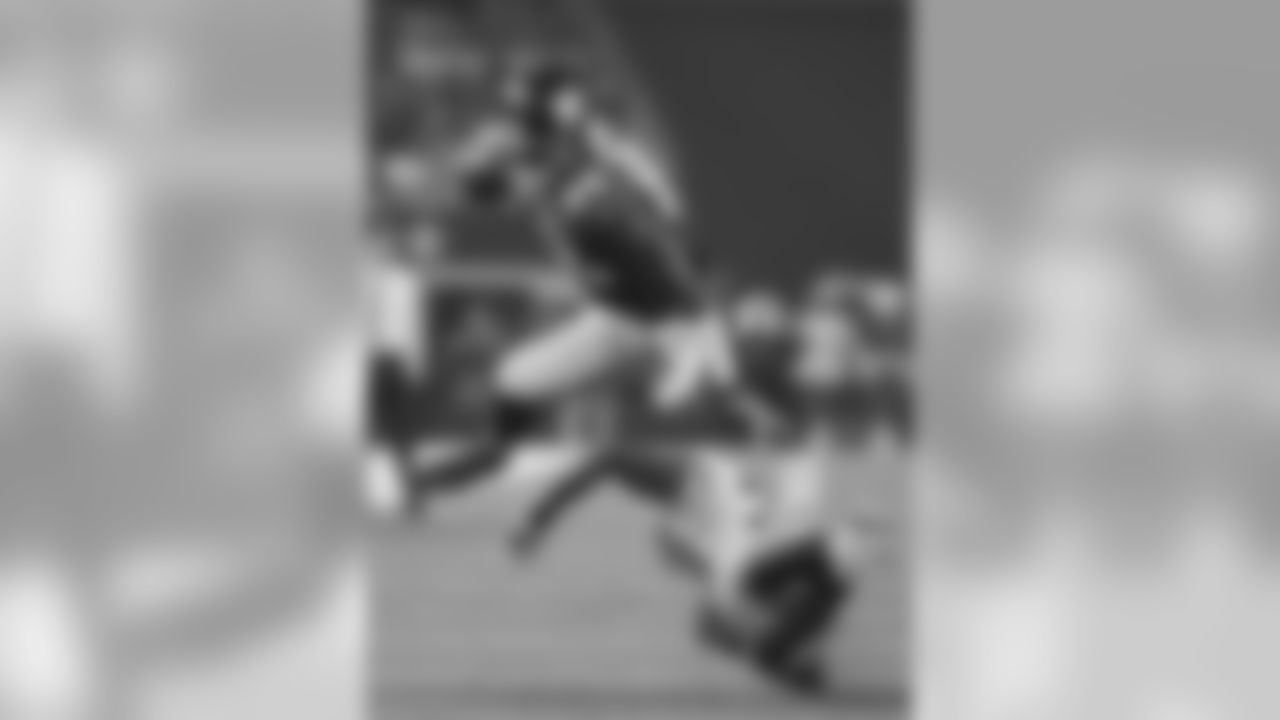
New York Giants tight end Larry Donnell (84) leaps over Dallas Cowboys cornerback Brandon Carr (39) during the first half of an NFL football game Sunday, Sept. 13, 2015, in Arlington, Texas. (AP Photo/Tony Gutierrez)
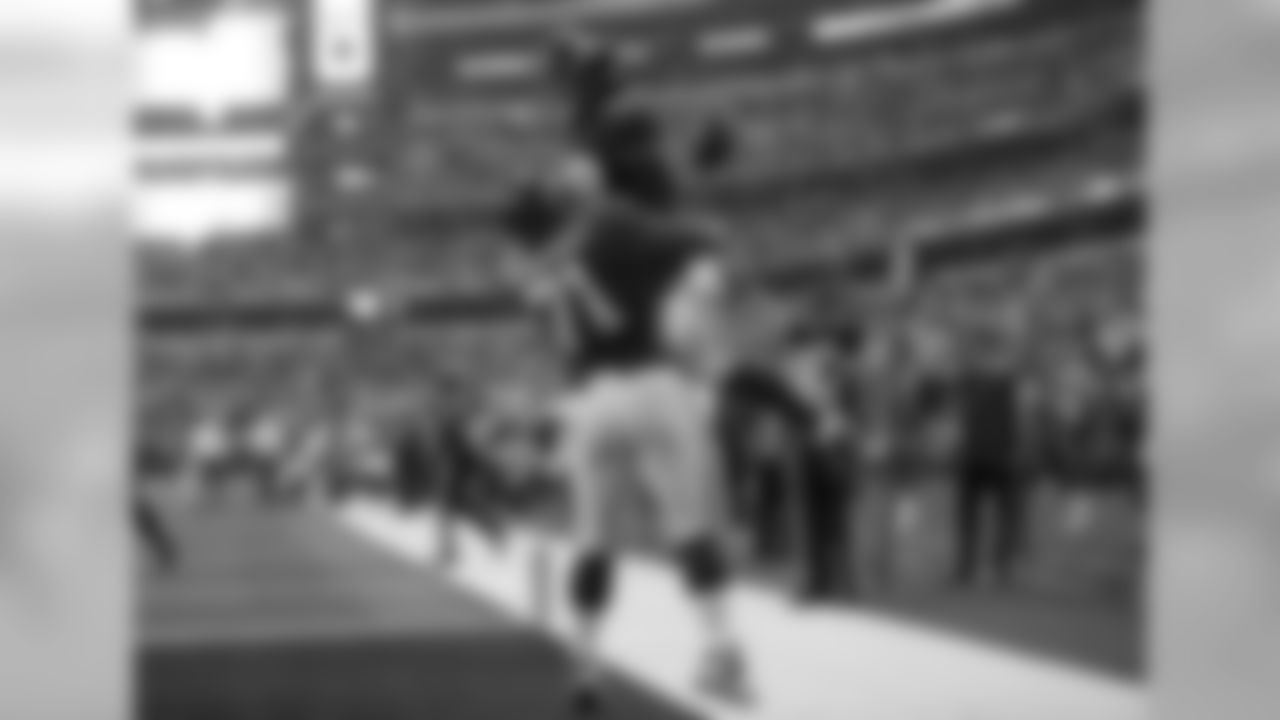
New York Giants offensive guard Will Hernandez (71) and tight end Evan Engram (88) celebrate a touchdown catch by Engram in the first half of a NFL football game against the Dallas Cowboys in Arlington, Texas, Sunday, Sept. 8, 2019. (AP Photo/Michael Ainsworth)
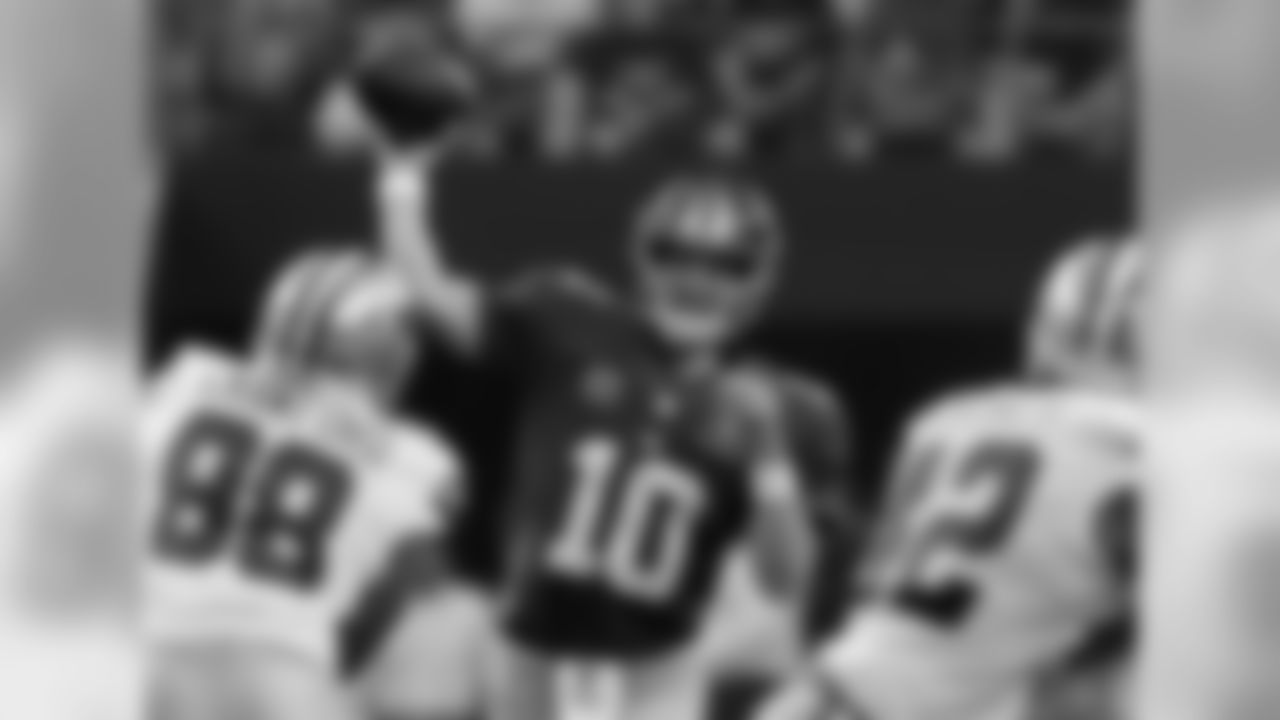
New York Giants quarterback Eli Manning (10) passes between Dallas Cowboys defensive end Tyrone Crawford (98) and free safety Barry Church (42) during the first half of an NFL football game, Sunday, Oct., 19, 2014, in Arlington, Texas. (AP Photo/LM Otero)
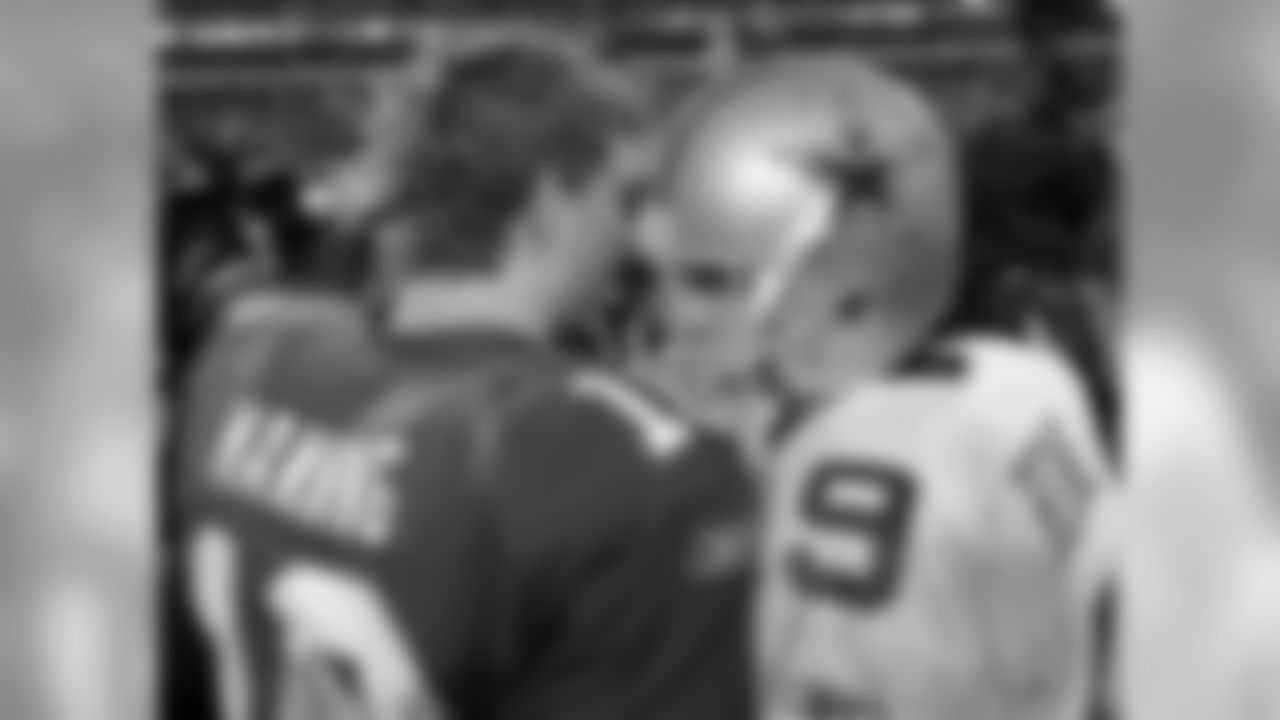
Dallas Cowboys quarterback Tony Romo (9) chats with New York Giants quarterback Eli Manning after their NFL football game Sunday, Jan. 1, 2012, in East Rutherford, N.J. The Giants defeated the Cowboys 31-14.(AP Photo/Julio Cortez)
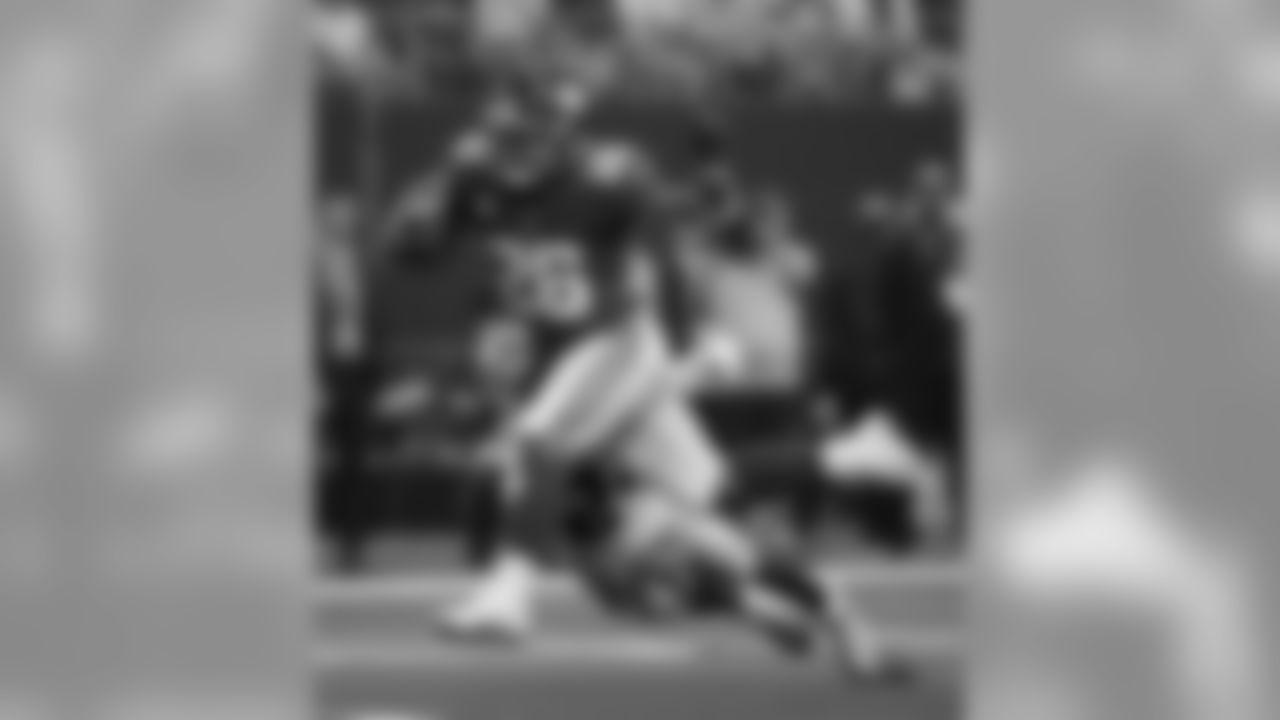
New York Giants running back Saquon Barkley (26) attempts to escape the tackle by Dallas Cowboys cornerback Chidobe Awuzie (24) in the first half of a NFL football game in Arlington, Texas, Sunday, Sept. 8, 2019. (AP Photo/Michael Ainsworth)
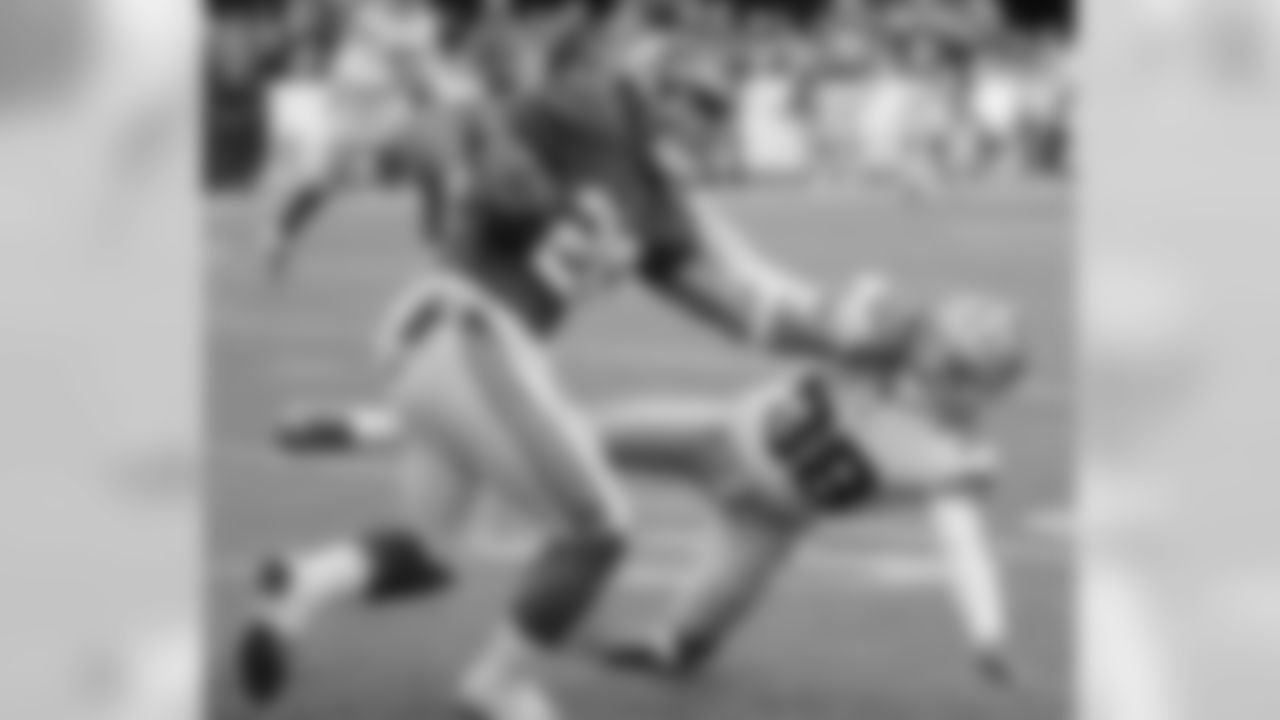
New York Giants' Saquon Barkley, left, runs past Dallas Cowboys' Jeff Heath during the second half of an NFL football game Sunday, Dec. 30, 2018, in East Rutherford, N.J. (AP Photo/Frank Franklin II)
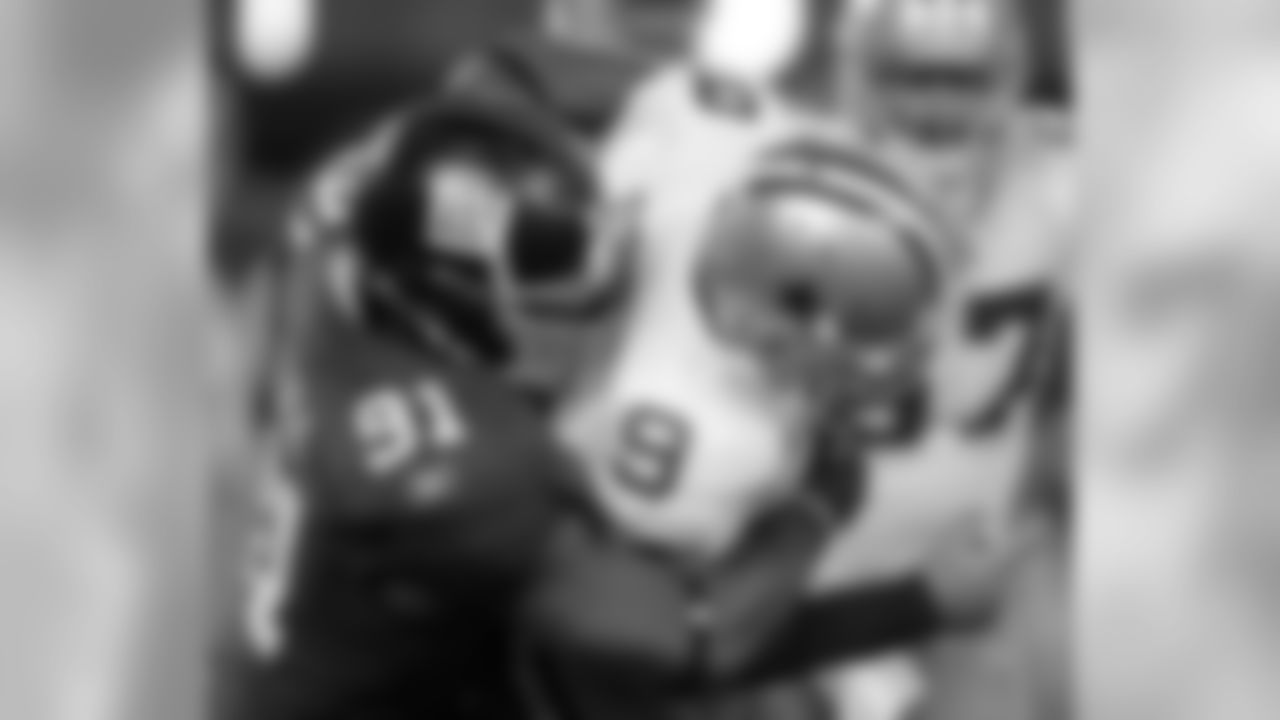
Dallas Cowboys quarterback Tony Romo is sacked by New York Giants defensive end Justin Tuck (91) during the second half of an NFL football game Sunday, Jan. 1, 2012, in East Rutherford, N.J. The Giants defeated the Cowboys 31-14. (AP Photo/Julio Cortez)
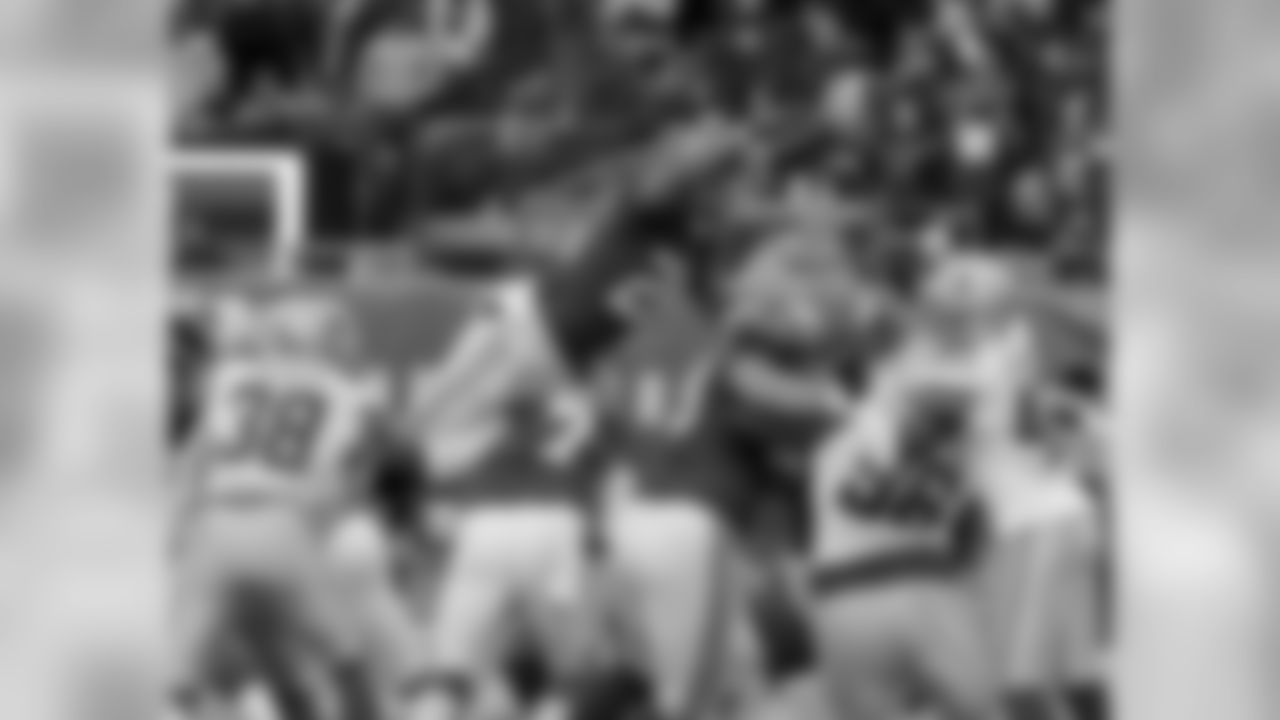
New York Giants' Saquon Barkley, top, scores a touchdown just before the ball is knocked from his hands during the second half of an NFL football game against the Dallas Cowboys, Sunday, Dec. 30, 2018, in East Rutherford, N.J. (AP Photo/Frank Franklin II)
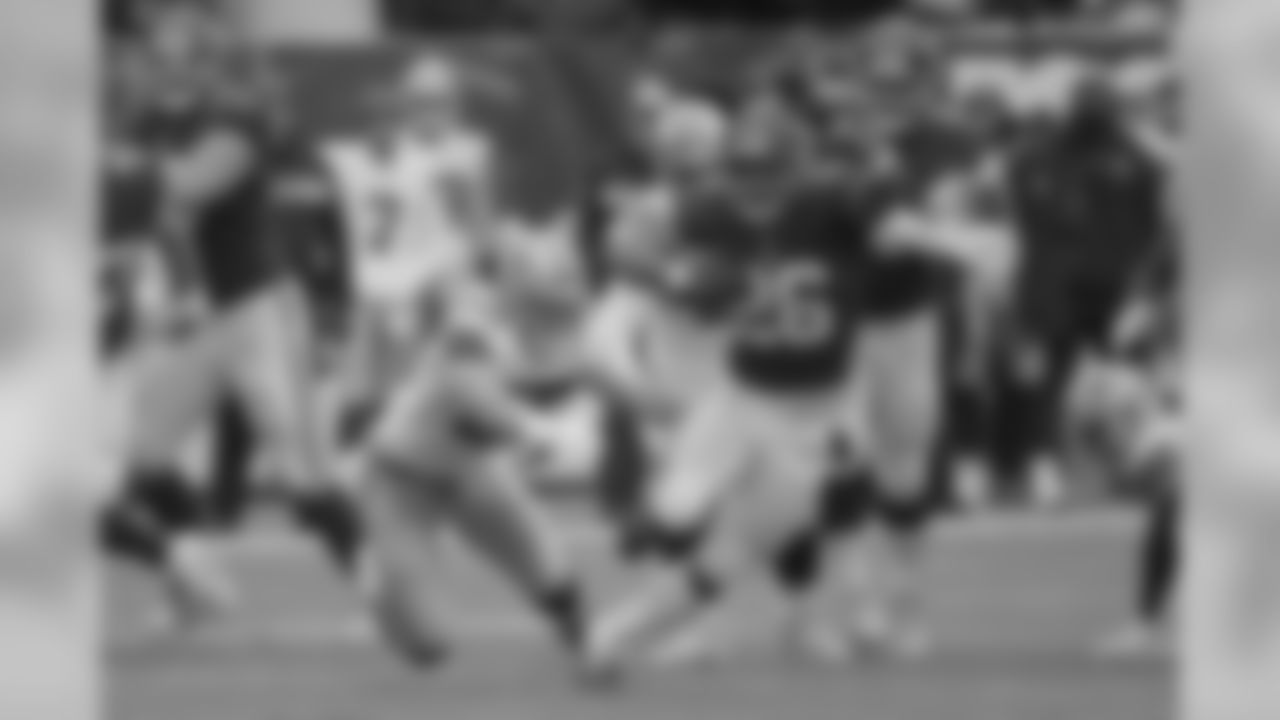
New York Giants' Saquon Barkley (26) runs the ball during the first half of an NFL football game against the Dallas Cowboys, Sunday, Dec., 30, 2018, in East Rutherford, N.J. (AP Photo/Bill Kostroun)
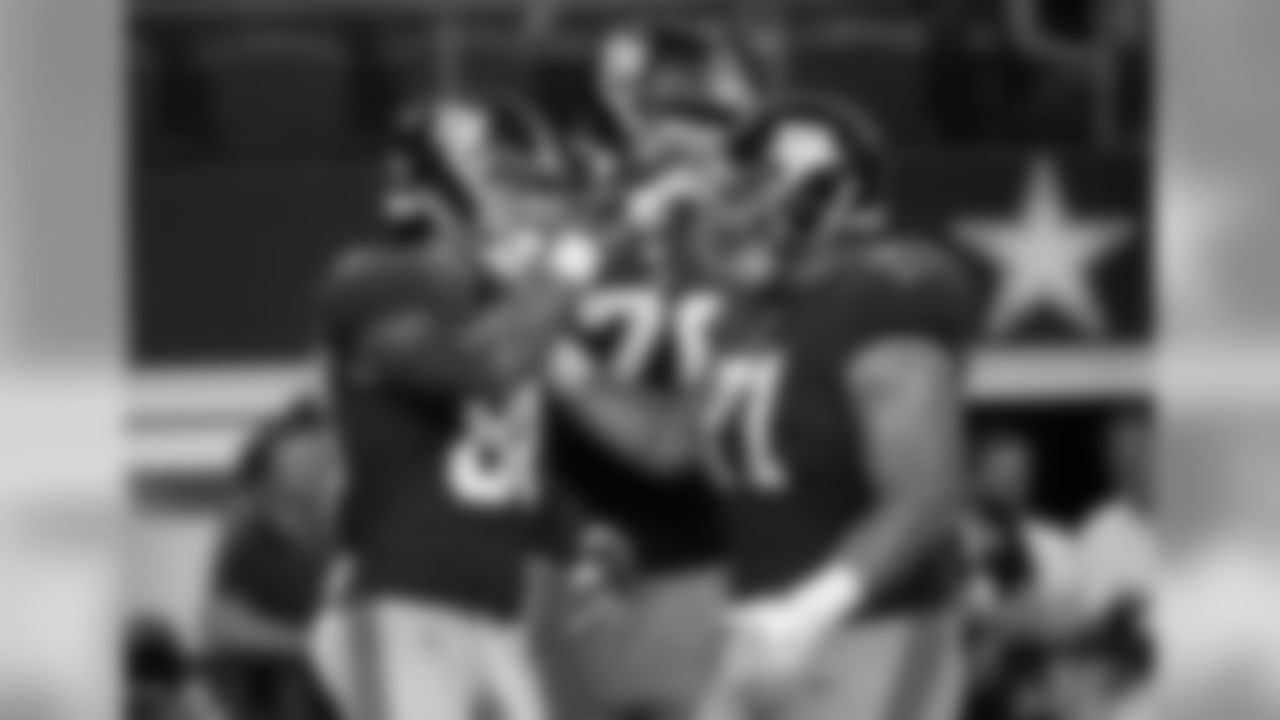
New York Giants tight end Evan Engram, left, celebrates his touchdown catch with teammate Will Hernandez (71) during the second half of an NFL football game in Arlington, Texas, Sunday, Sept. 16, 2018. (AP Photo/Michael Ainsworth)
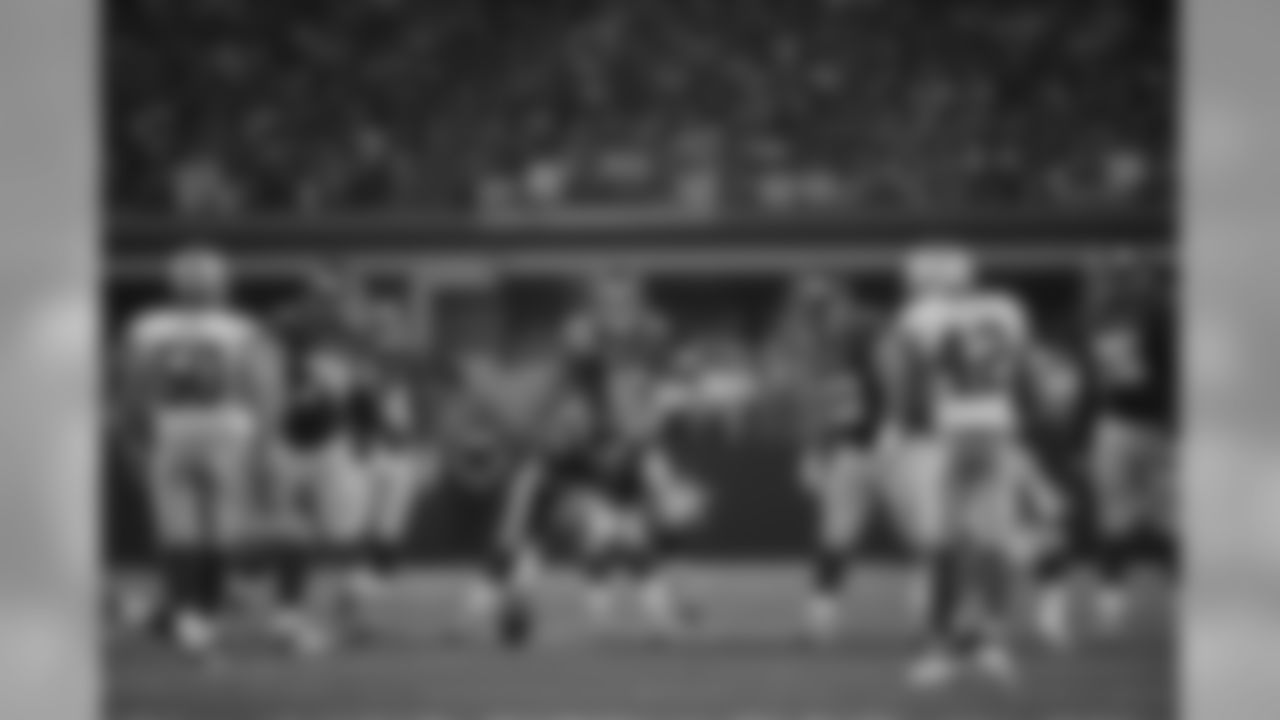
New York Giants quarterback Eli Manning (10) signals at the line of scrimmage in the second half of an NFL football game against the Dallas Cowboys Sunday, Sept. 13, 2015, in Arlington, Texas. (AP Photo/Tony Gutierrez)
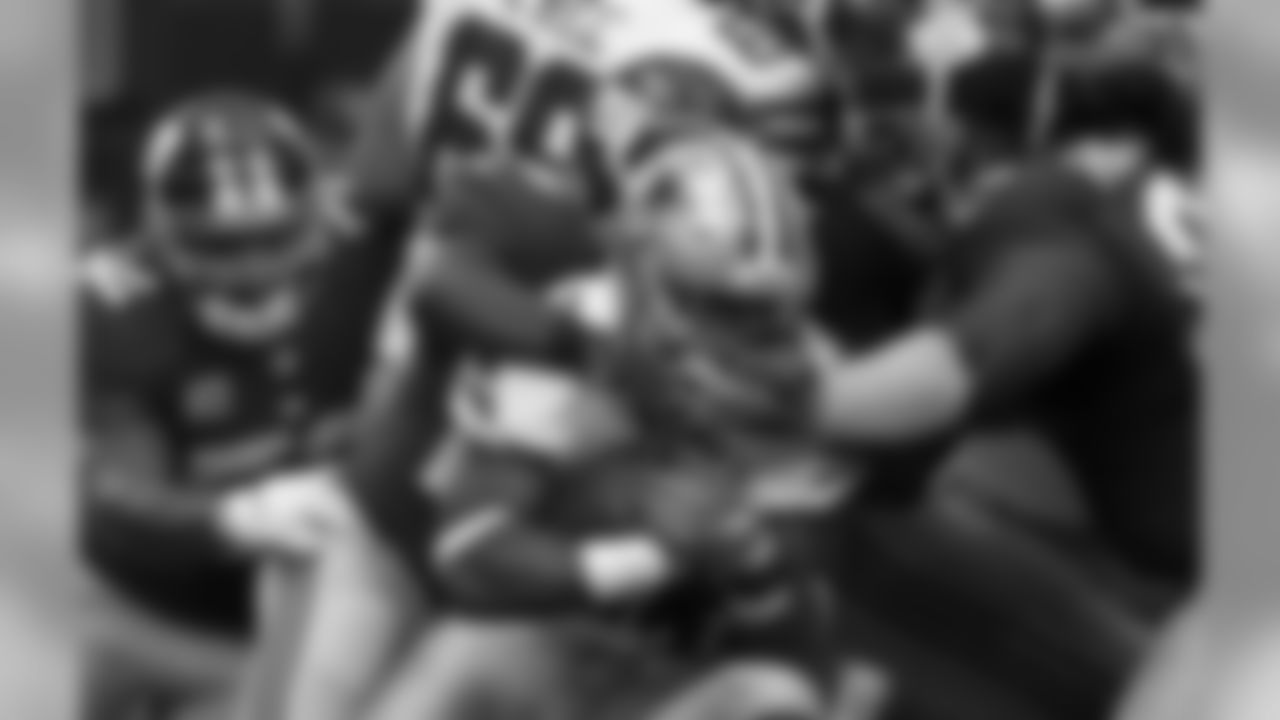
Dallas Cowboys running back Ezekiel Elliott (21) is wrapped up by New York Giants defenders after a short run in the first half of an NFL football game, Sunday, Sept. 11, 2016, in Arlington, Texas. (AP Photo/Ron Jenkins)
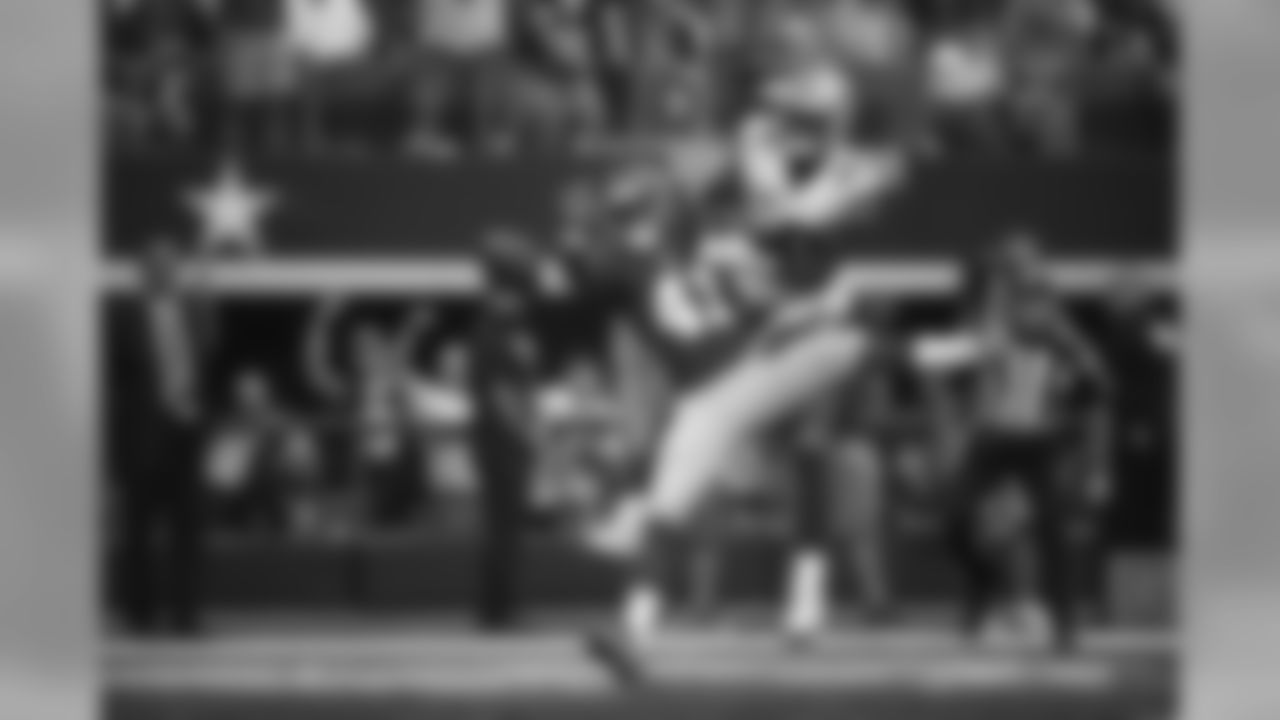
New York Giants cornerback Dominique Rodgers-Cromartie (41) breaks up a pass intended for Dallas Cowboys' Dez Bryant (88) during an NFL football game, Sunday, Sept. 11, 2016, in Arlington, Texas. (AP Photo/Ron Jenkins)
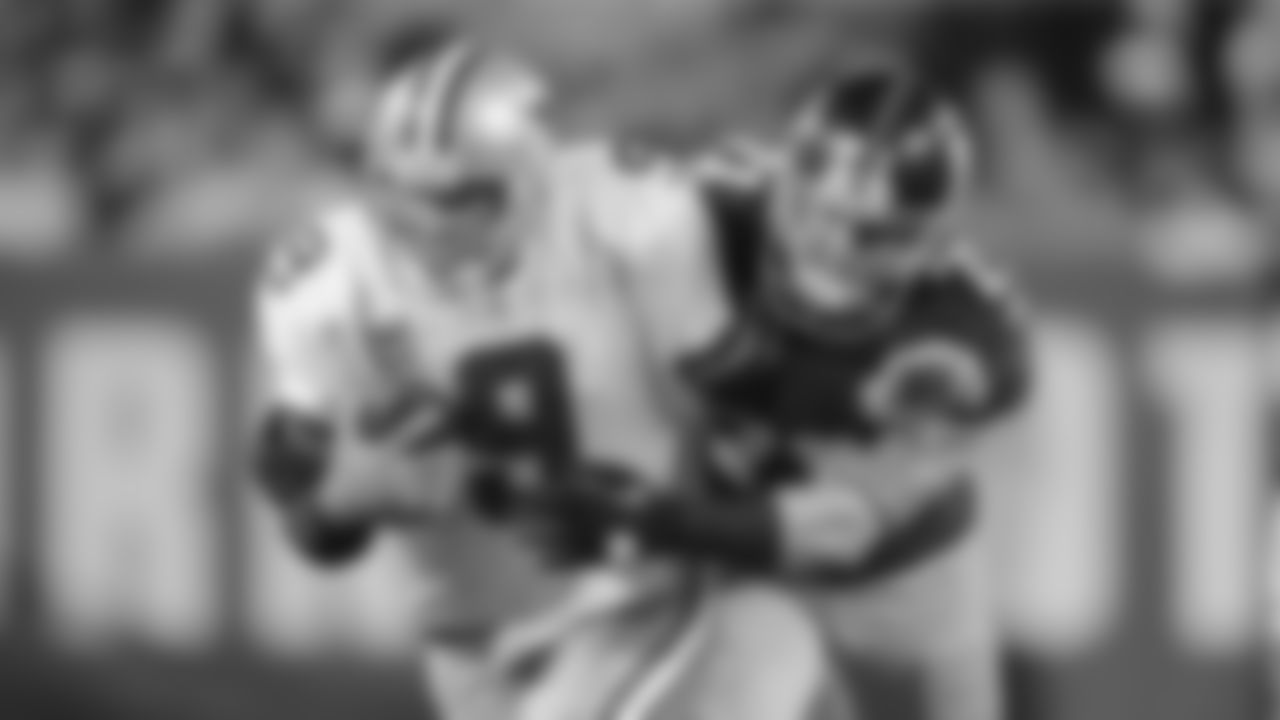
New York Giants defensive end Dave Tollefson (71) tries to wrap up Dallas Cowboys quaterback Tony Romo (9) during an NFL football game on Sunday January 1, 2012 at MetLife Stadium in East Rutherford, New Jersey (AP Photo/Evan Pinkus)
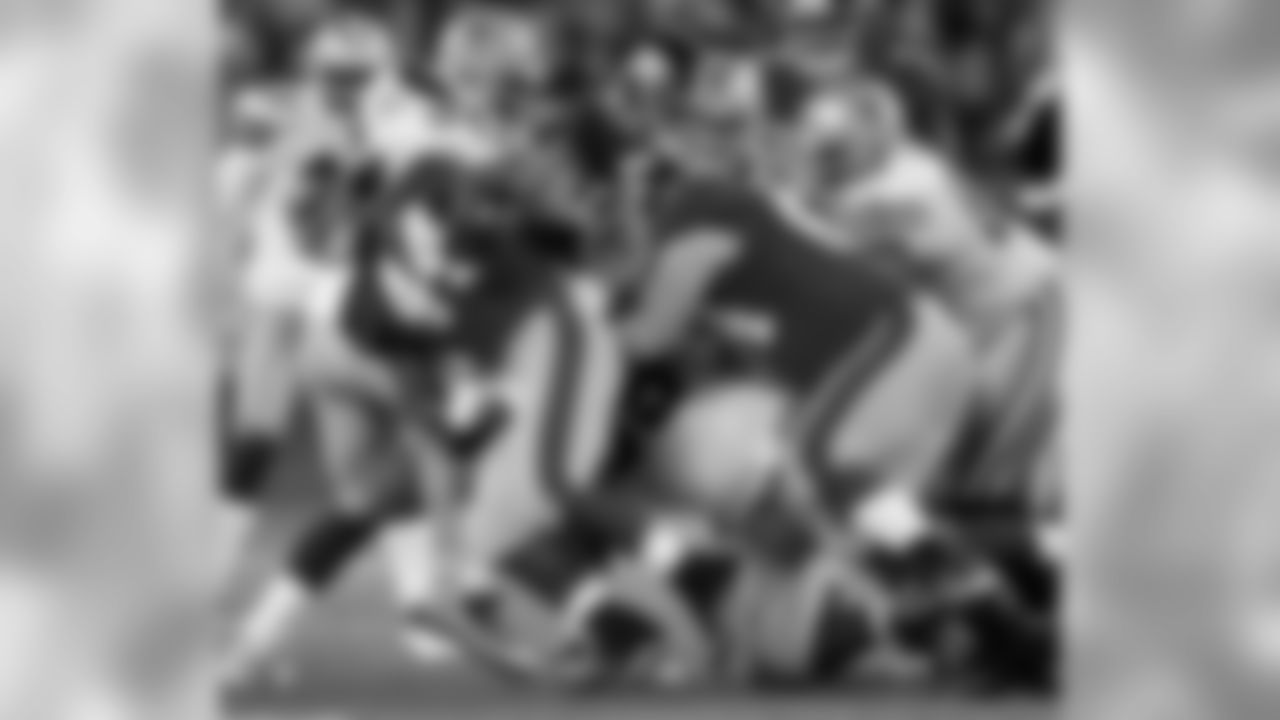
New York Giants running back Ahmad Bradshaw (44) breaks loose during the first half of an NFL football game against the Dallas Cowboys Sunday, Jan. 1, 2012, in East Rutherford, N.J. (AP Photo/Julio Cortez)
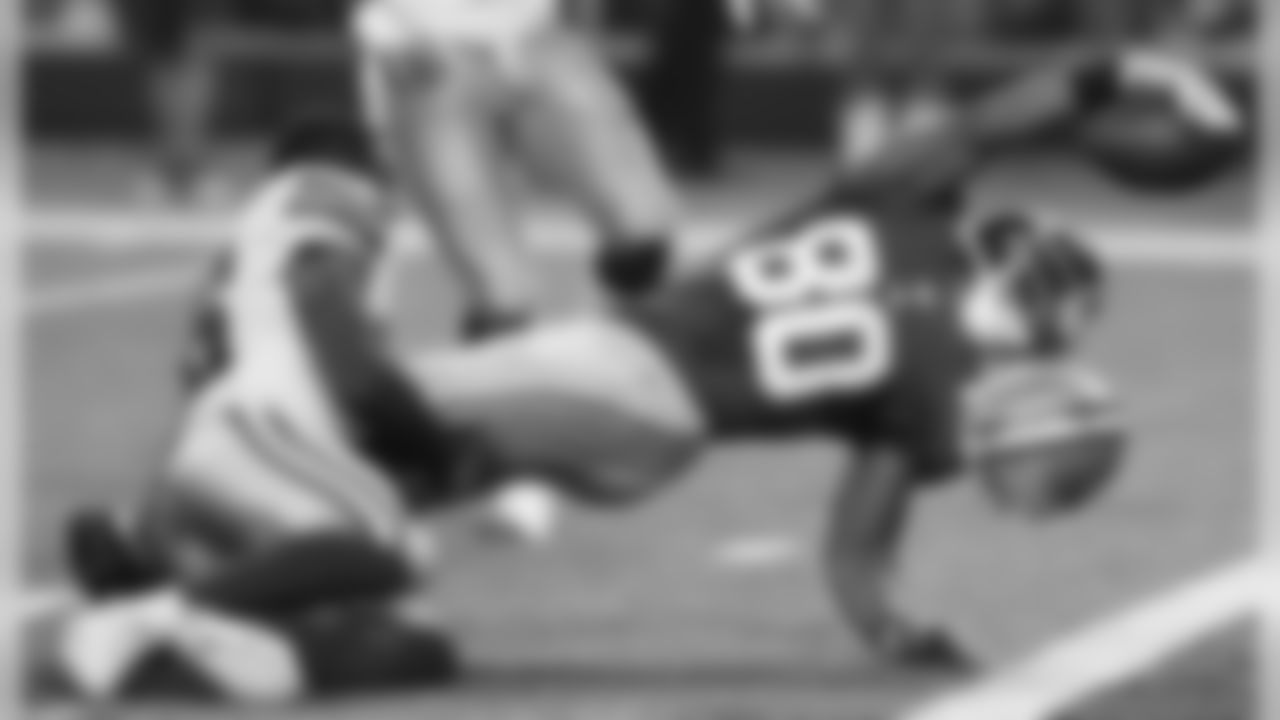
New York Giants wide receiver Victor Cruz (80) makes a 18-yard touchdown as Dallas Cowboys safety Will Allen (26) loses his helmet during the second half of aN NFL football game, Sunday, Sept. 8, 2013, in Arlington, Texas. (AP Photo/LM Otero)
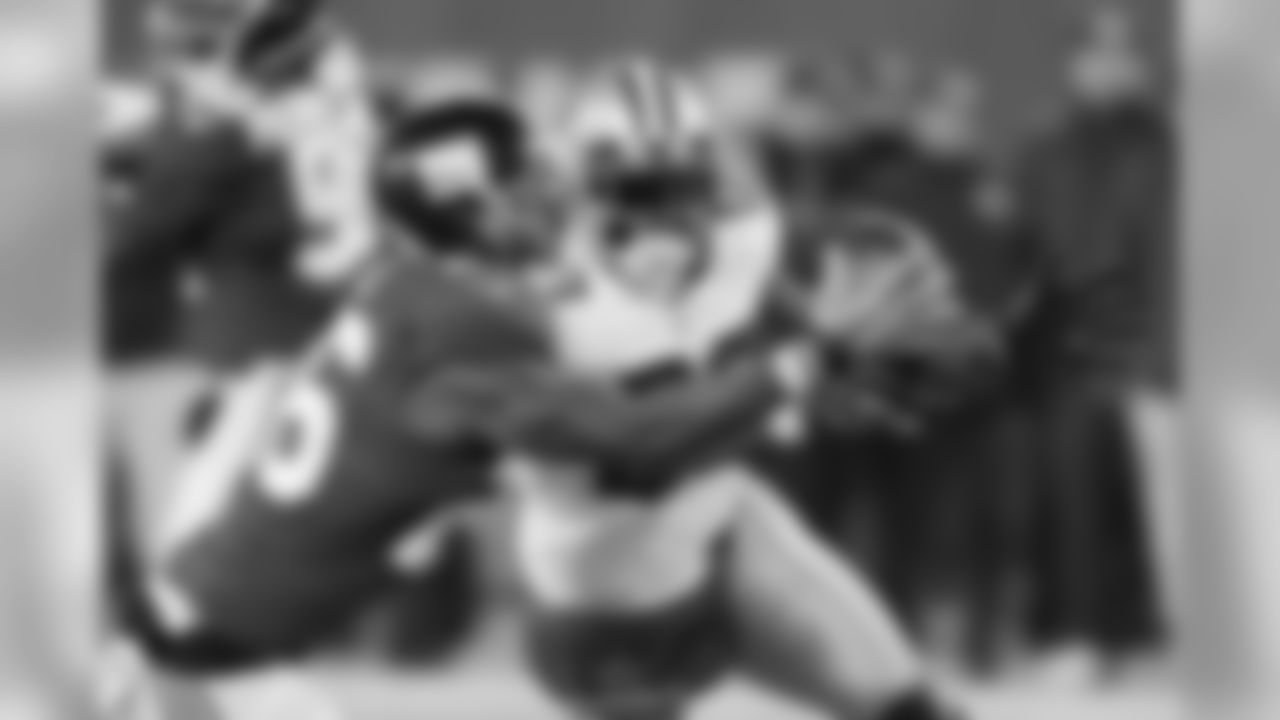
New York Giants strong safety Antrel Rolle (26) intercepts a pass in front of Dallas Cowboys' Dez Bryant (88) during the first half of an NFL football game Sunday, Nov. 24, 2013, in East Rutherford, N.J. (AP Photo/Seth Wenig)
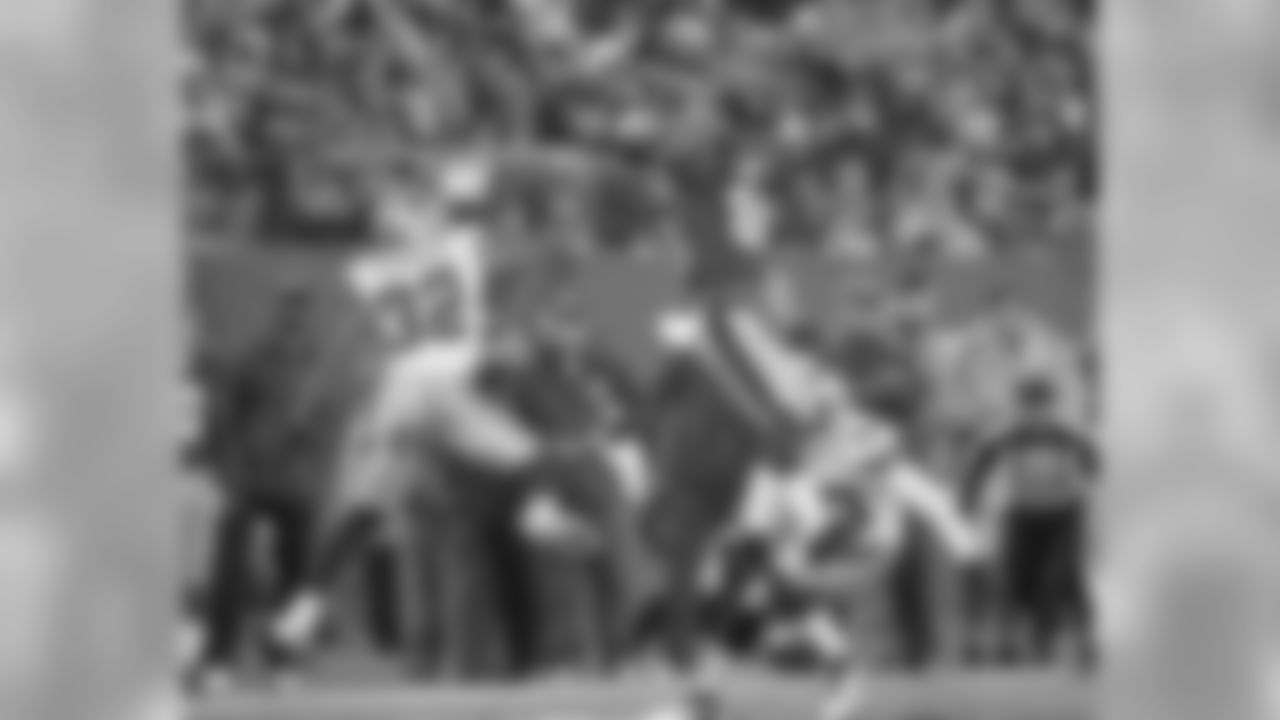
New York Giants receiver Victor Cruz (80) catches a pass between Dallas Cowboys cornerback Orlando Scandrick (32) and safety Gerald Sensabaugh (43) during an NFL football game Sunday, January 1, 2012 at MetLife Stadium in Newark, New Jersey. The Giants won the game, 31-14. (AP Photo/James D Smith)
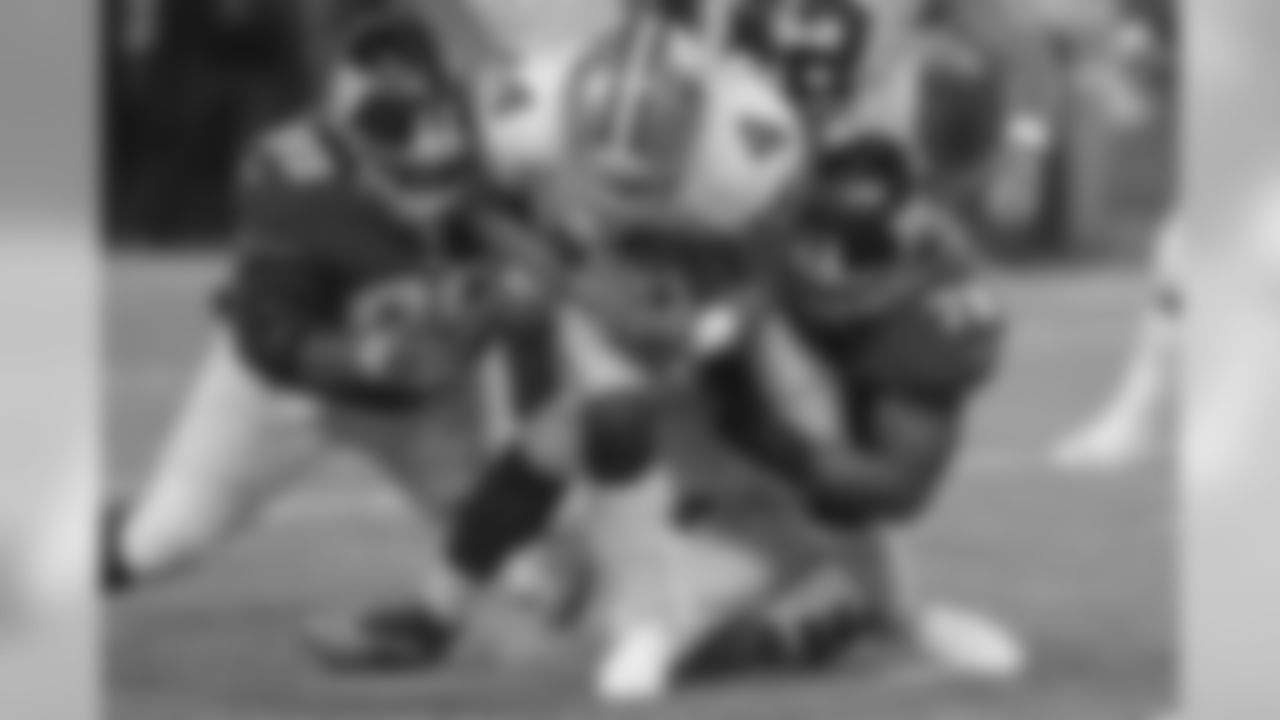
Dallas Cowboys quarterback Dak Prescott (4) is sacked by New York Giants' Robert Thomas (99) and Romeo Okwara (78) during the first half of an NFL football game Sunday, Dec. 11, 2016, in East Rutherford, N.J. (AP Photo/Bill Kostroun)
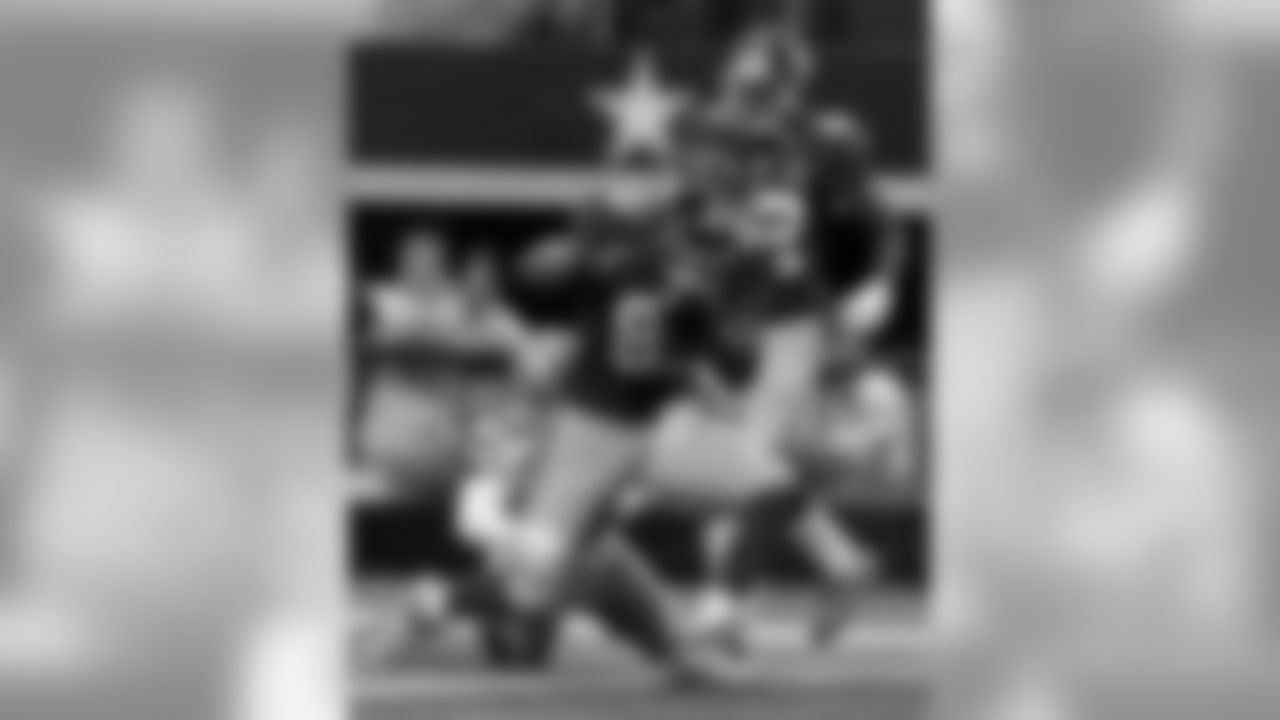
New York Giants tight end Daniel Fells (85) drags Dallas Cowboys free safety Barry Church (42) into the end zone for a score as the Giants' Rueben Randle (82) watches during the first half of an NFL football game, Sunday, Oct. 19, 2014, in Arlington, Texas. (AP Photo/LM Otero)
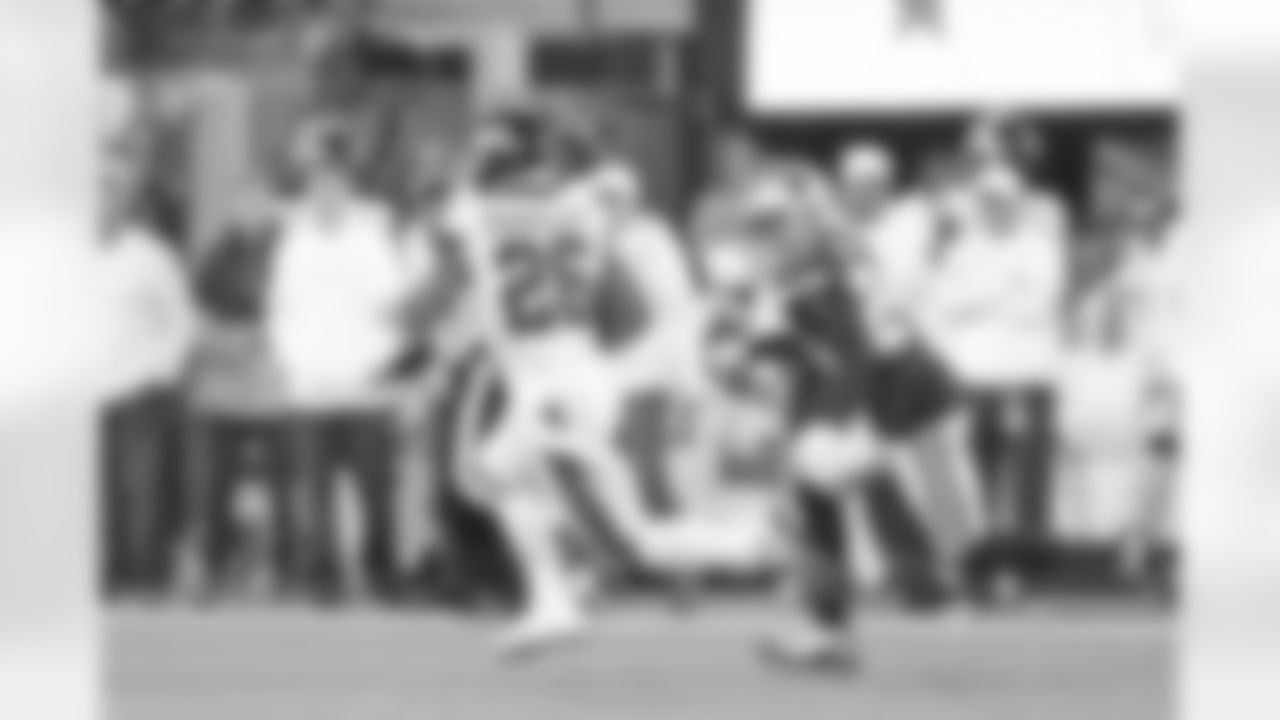
New York Giants running back Saquon Barkley (26) runs by Dallas Cowboys cornerback Chidobe Awuzie (24) during an NFL football game, Monday, Nov. 4, 2019, in East Rutherford, NJ. The Cowboys defeated the Giants, 38-17. (James D. Smith via AP)
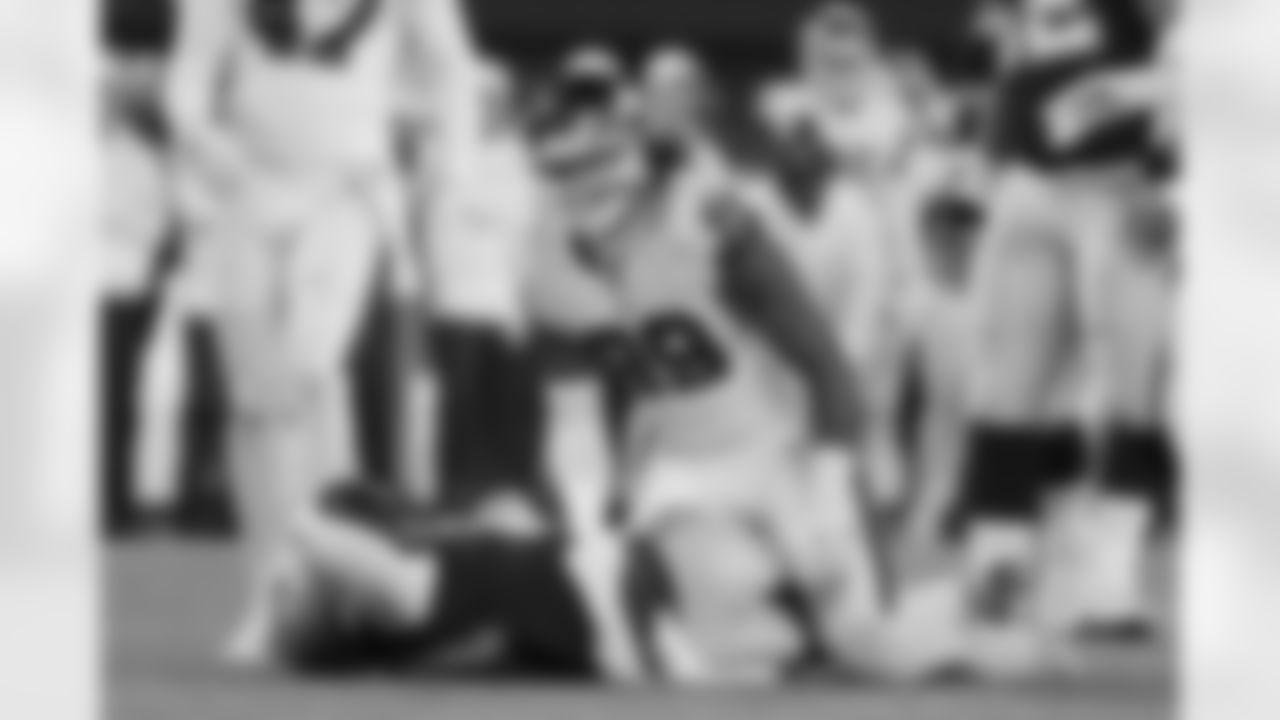
New York Giants defensive end Leonard Williams (99) reacts after tackling Dallas Cowboys running back Ezekiel Elliott (21) during the first quarter of an NFL football game, Monday, Nov. 4, 2019, in East Rutherford, N.J. (AP Photo/Adam Hunger)
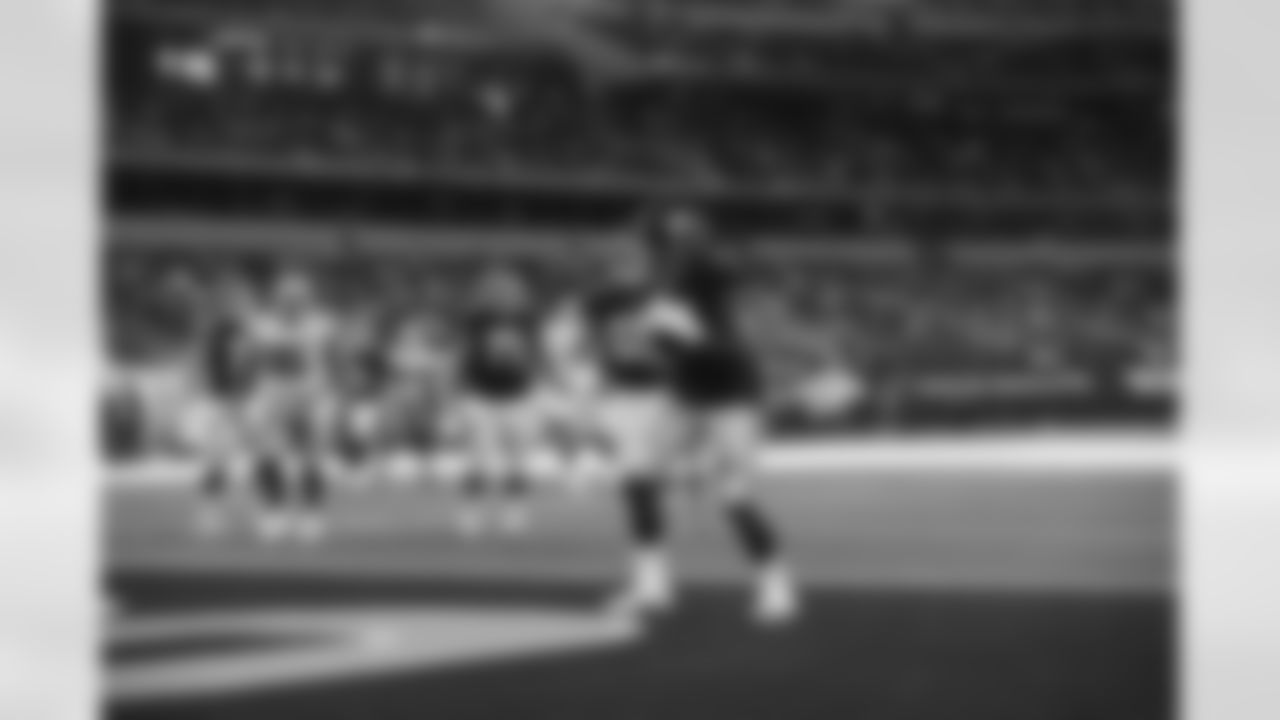
Andrew Thomas (78)
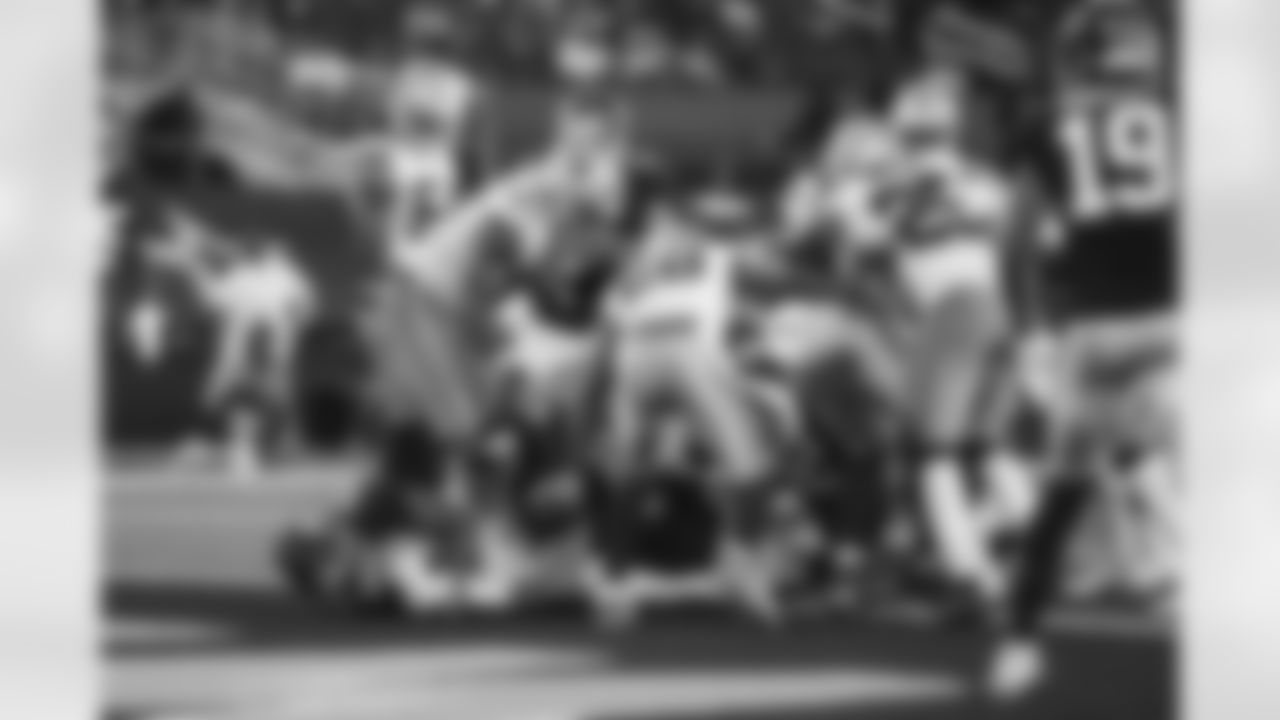
Devonta Freeman (31)
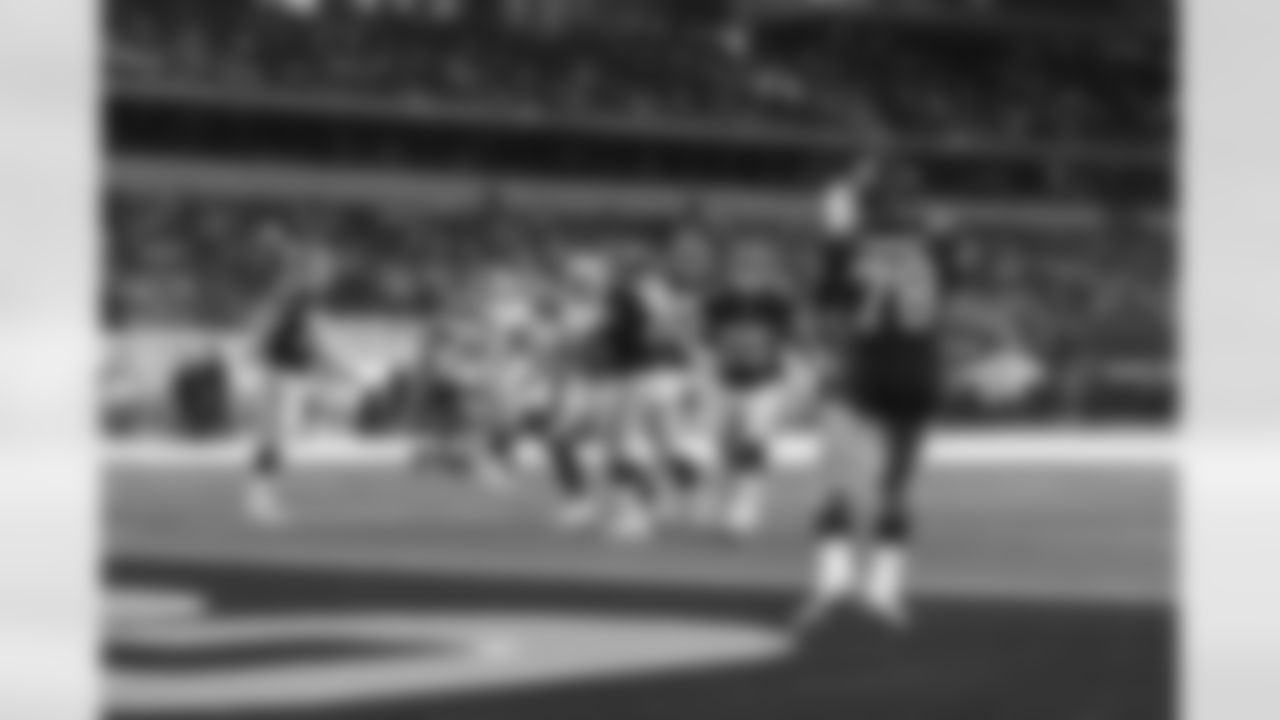
Andrew Thomas (78)
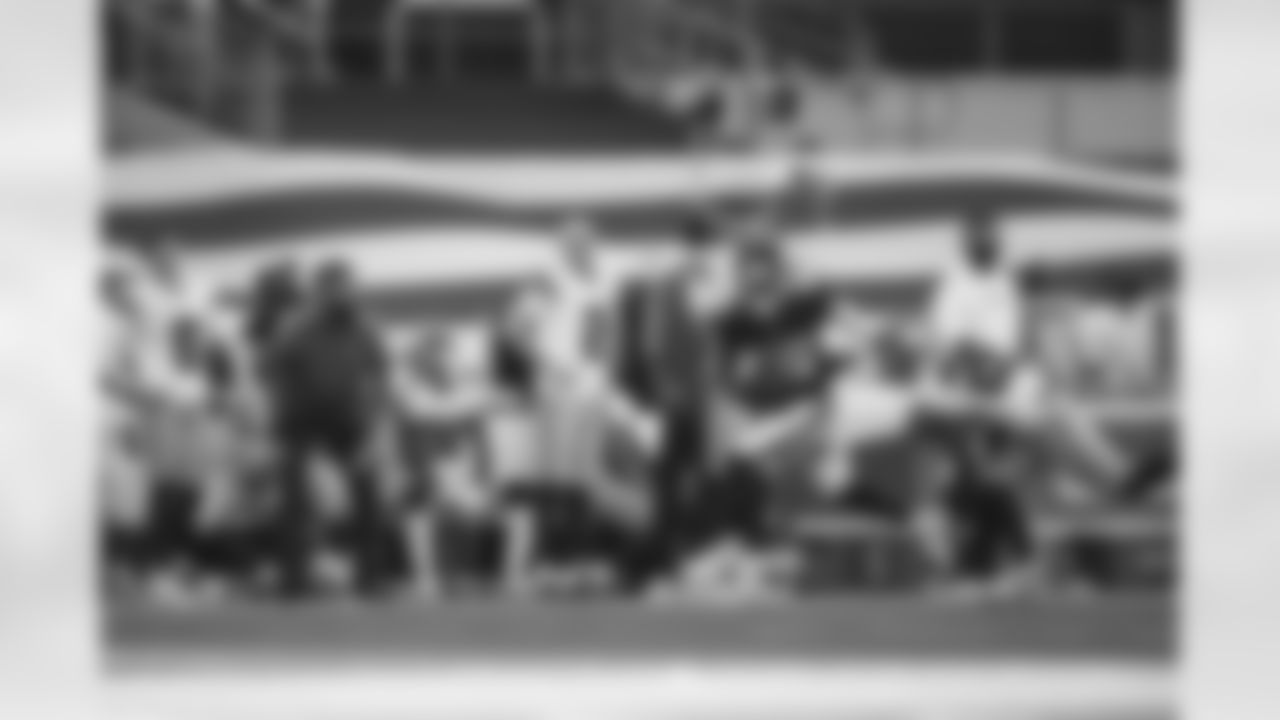
Darius Slayton (86)
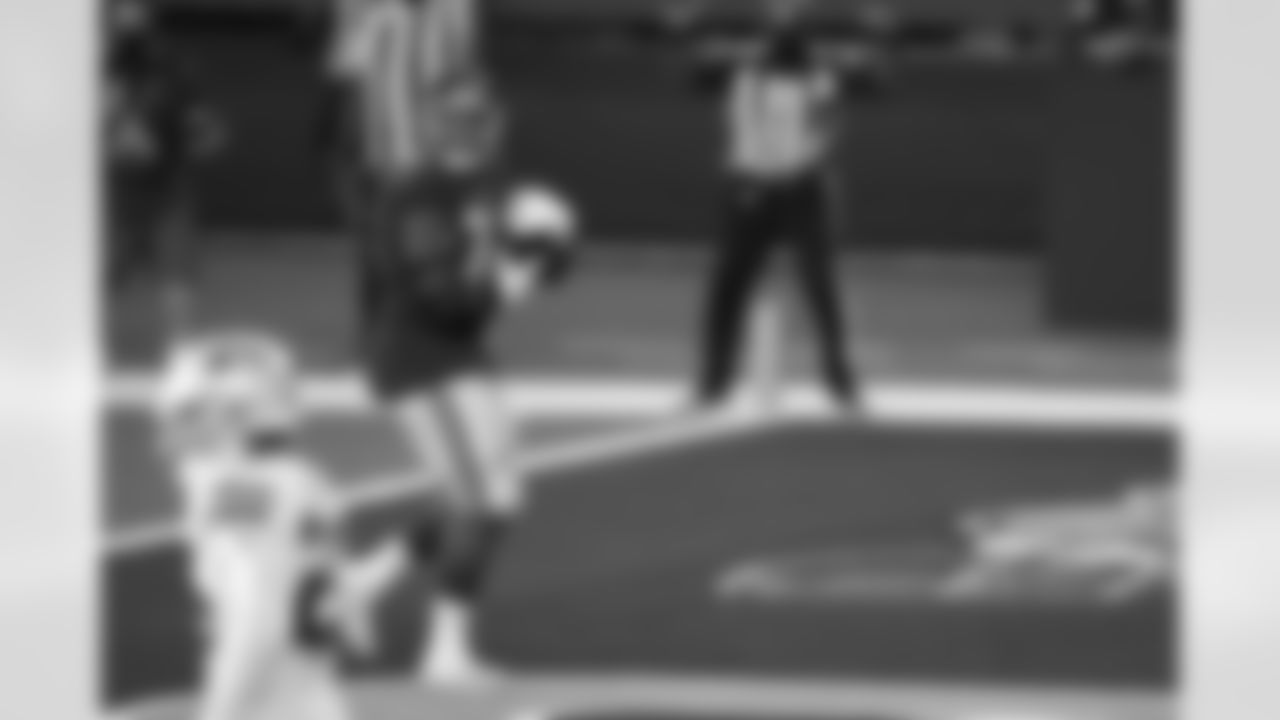
New York Giants offensive tackle Andrew Thomas (78) catches the ball in the endzone during an NFL game against the Dallas Cowboys, Sunday, Oct. 11, 2020, in Arlington, Texas. The Cowboys beat the Giants 37-34. (Cooper Neill via AP)
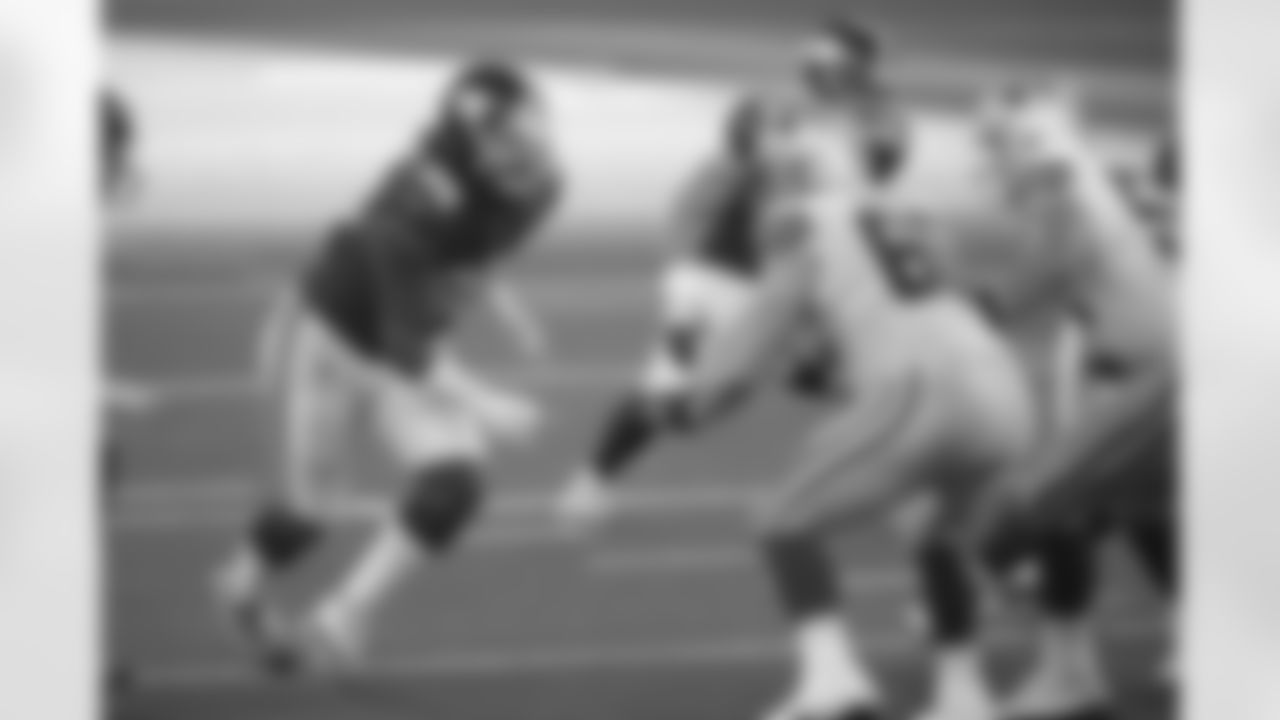
New York Giants defensive end Leonard Williams (99) rushes the passer during an NFL game against the Dallas Cowboys, Sunday, Oct. 11, 2020, in Arlington, Texas. The Cowboys beat the Giants 37-34. (Cooper Neill via AP)
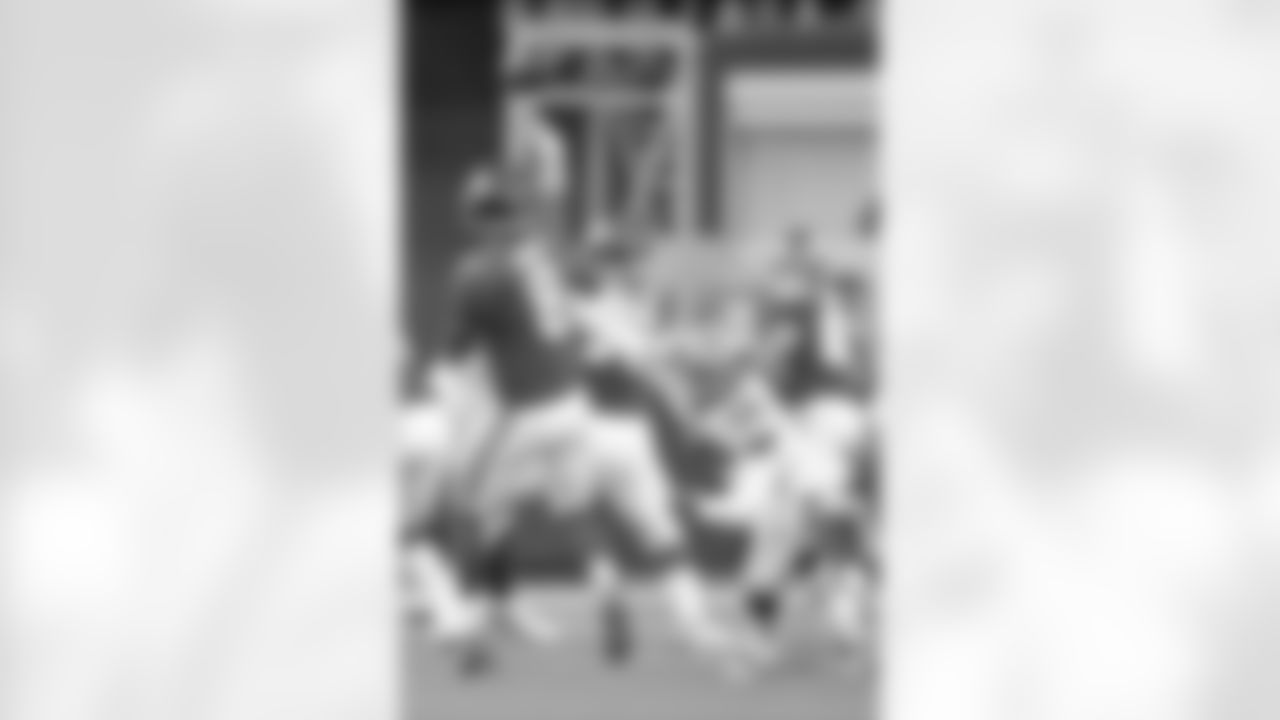
Dallas Cowboys defensive end Bradlee Anae (56) pressures New York Giants quarterback Daniel Jones (8) during an NFL football game, Sunday, Oct. 11, 2020, in Arlington, Texas. The Cowboys defeated the Giants, 37-34. (James D. Smith via AP)
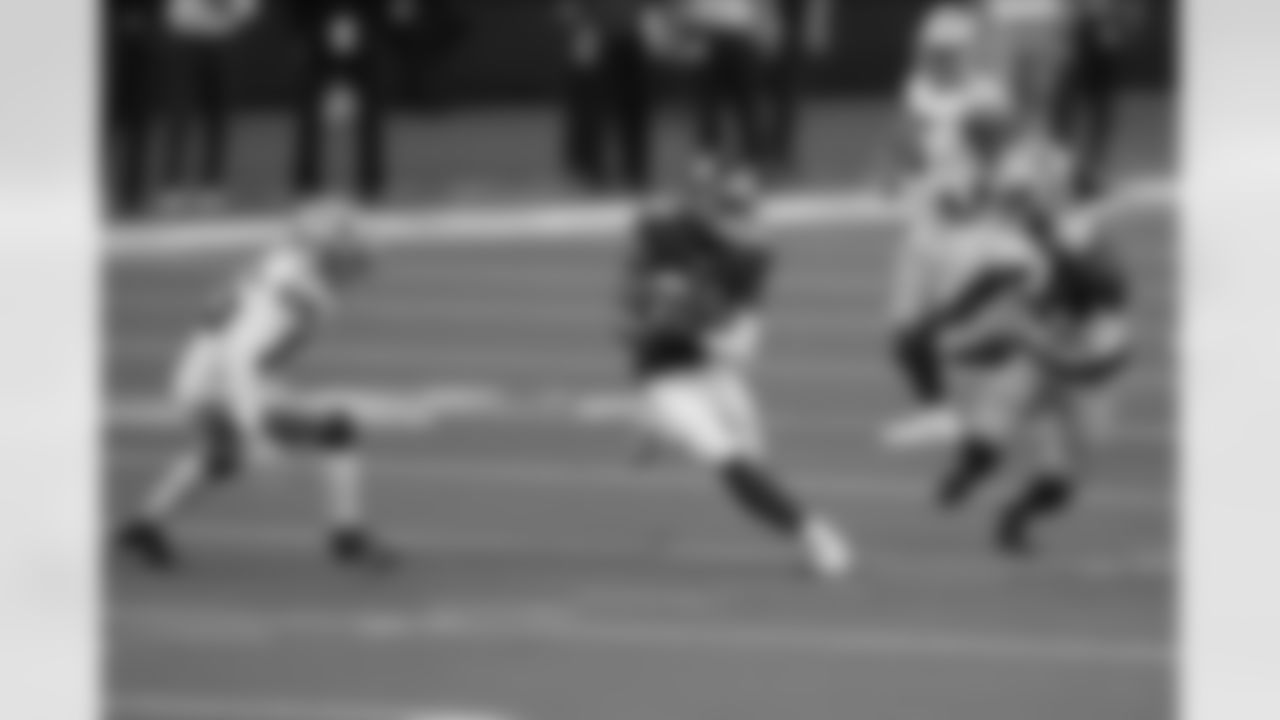
New York Giants wide receiver Darius Slayton (86) runs the ball during an NFL game against the Dallas Cowboys, Sunday, Oct. 11, 2020, in Arlington, Texas. The Cowboys beat the Giants 37-34. (Cooper Neill via AP)
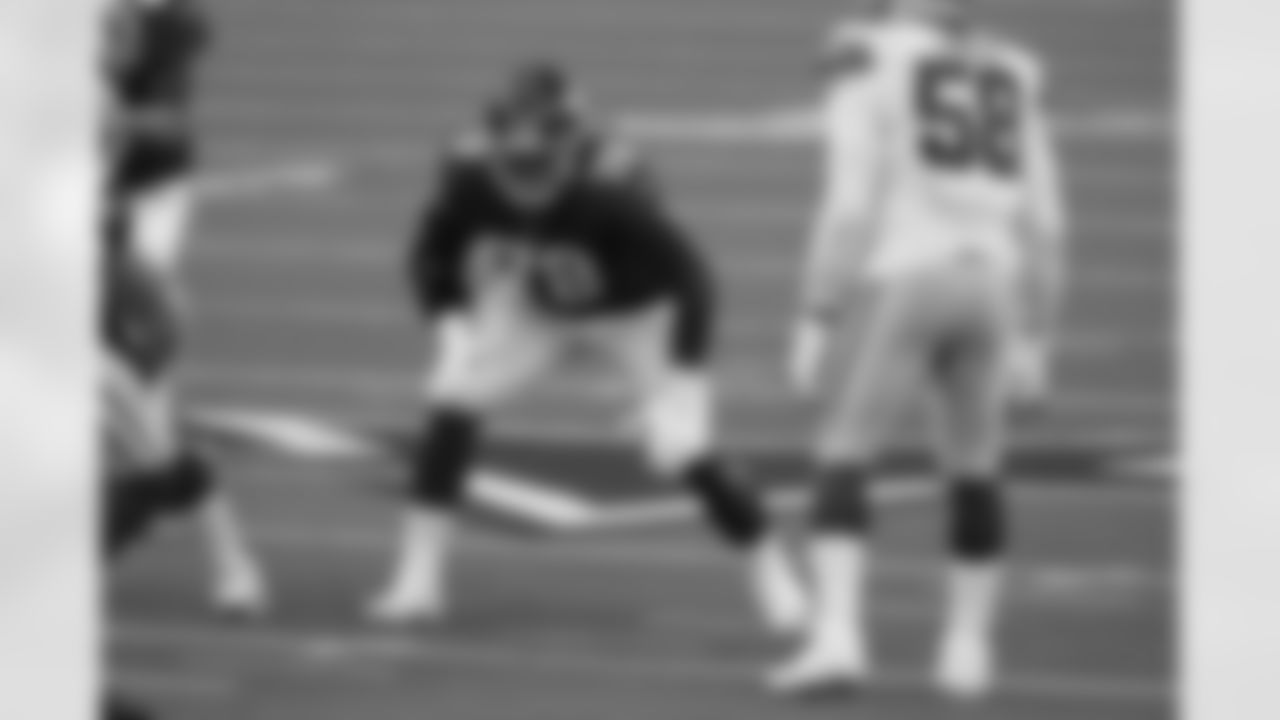
New York Giants offensive tackle Andrew Thomas (78) on the line of scrimmage during an NFL game against the Dallas Cowboys, Sunday, Oct. 11, 2020, in Arlington, Texas. The Cowboys beat the Giants 37-34. (Cooper Neill via AP)
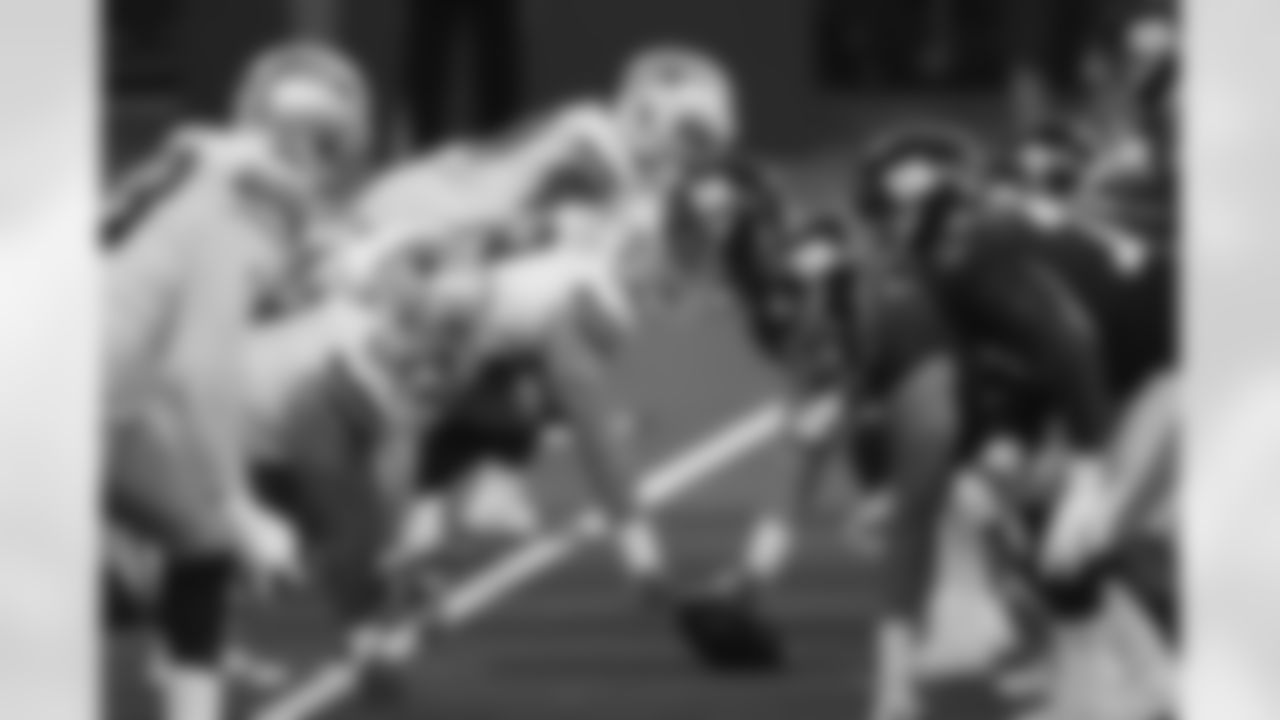
The New York Giants offensive line lines up across the Dallas Cowboys defensive line during an NFL football game, Sunday, Oct. 11, 2020, in Arlington, Texas. Dallas won 37-34. (Aaron M. Sprecher via AP)
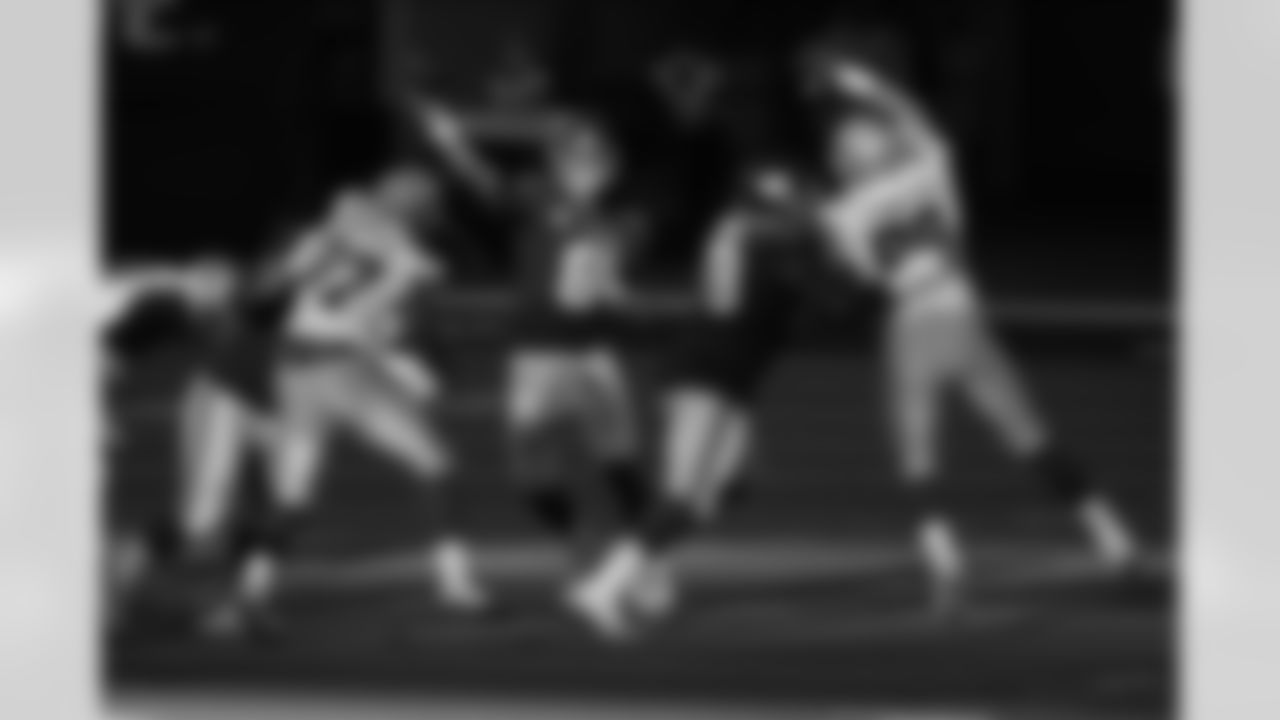
New York Giants quarterback Daniel Jones (8) throws the ball during an NFL game against the Dallas Cowboys, Sunday, Oct. 11, 2020, in Arlington, Texas. The Cowboys beat the Giants 37-34. (Cooper Neill via AP)
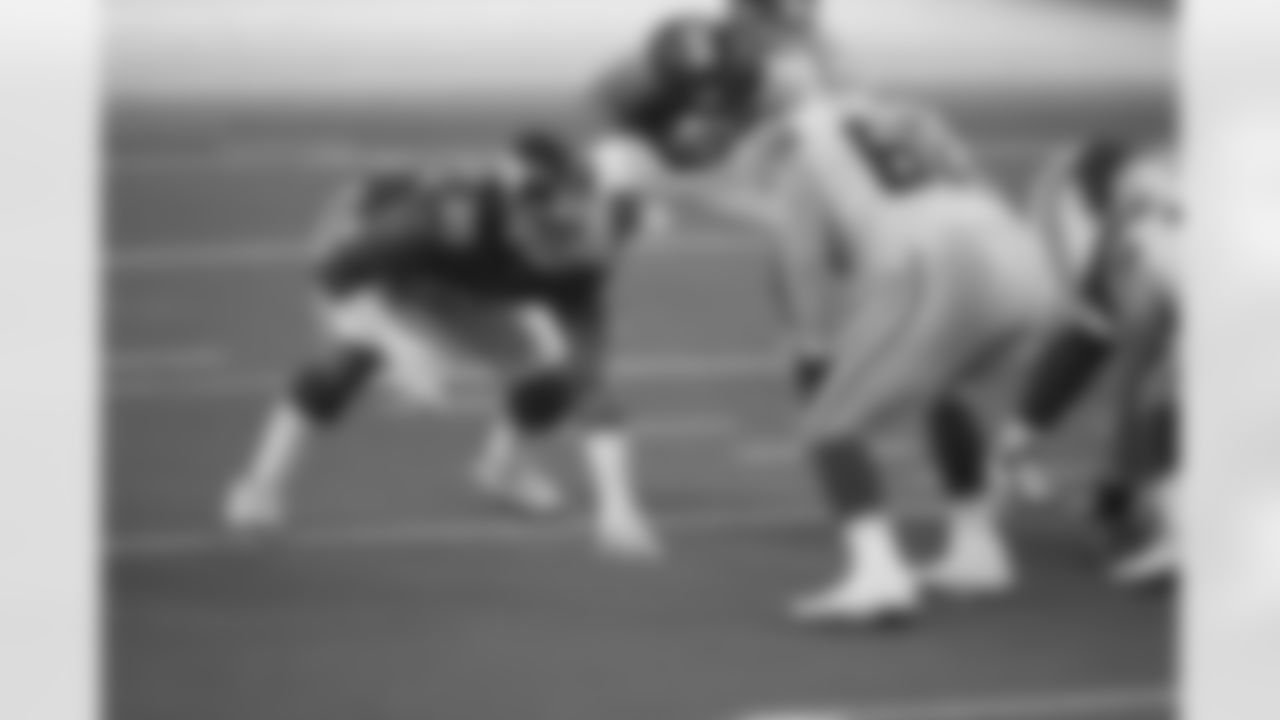
New York Giants defensive end Leonard Williams (99) on the line of scrimmage during an NFL game against the Dallas Cowboys, Sunday, Oct. 11, 2020, in Arlington, Texas. The Cowboys beat the Giants 37-34. (Cooper Neill via AP)
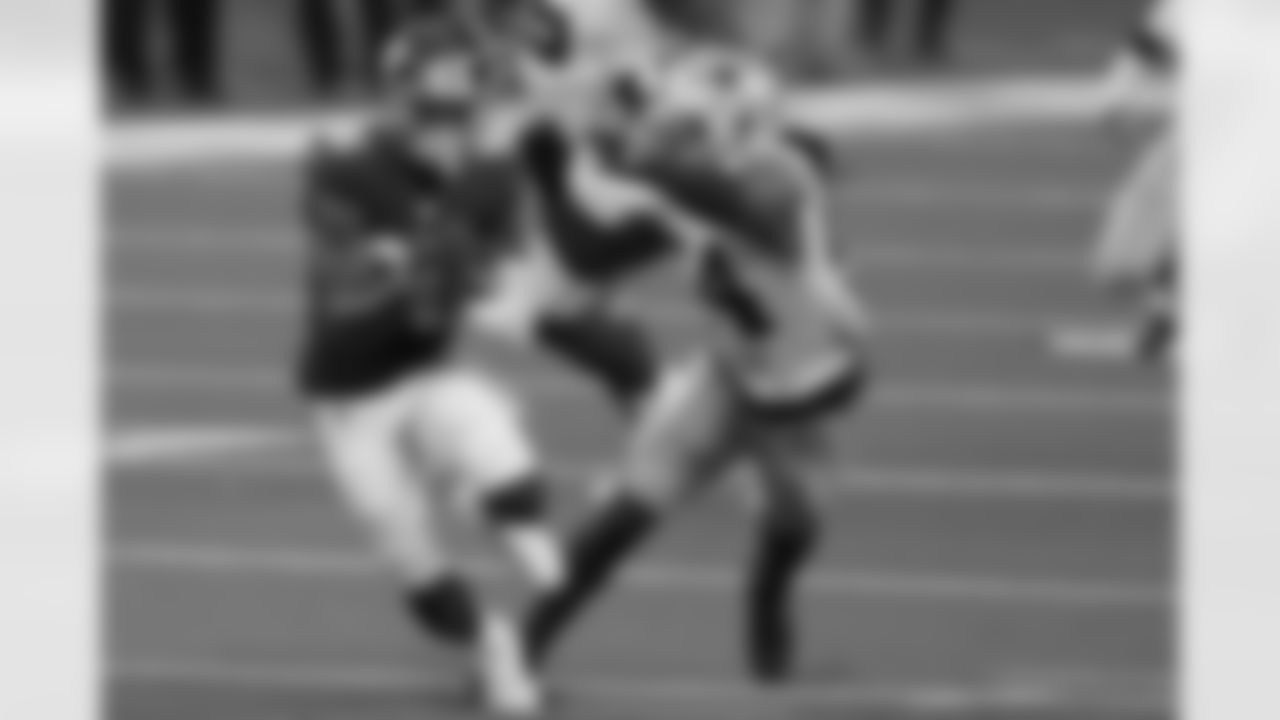
Dallas Cowboys linebacker Jaylon Smith (54) attempts to tackle New York Giants wide receiver Darius Slayton (86) during an NFL game against the New York Giants, Sunday, Oct. 11, 2020, in Arlington, Texas. The Cowboys beat the Giants 37-34. (Cooper Neill via AP)
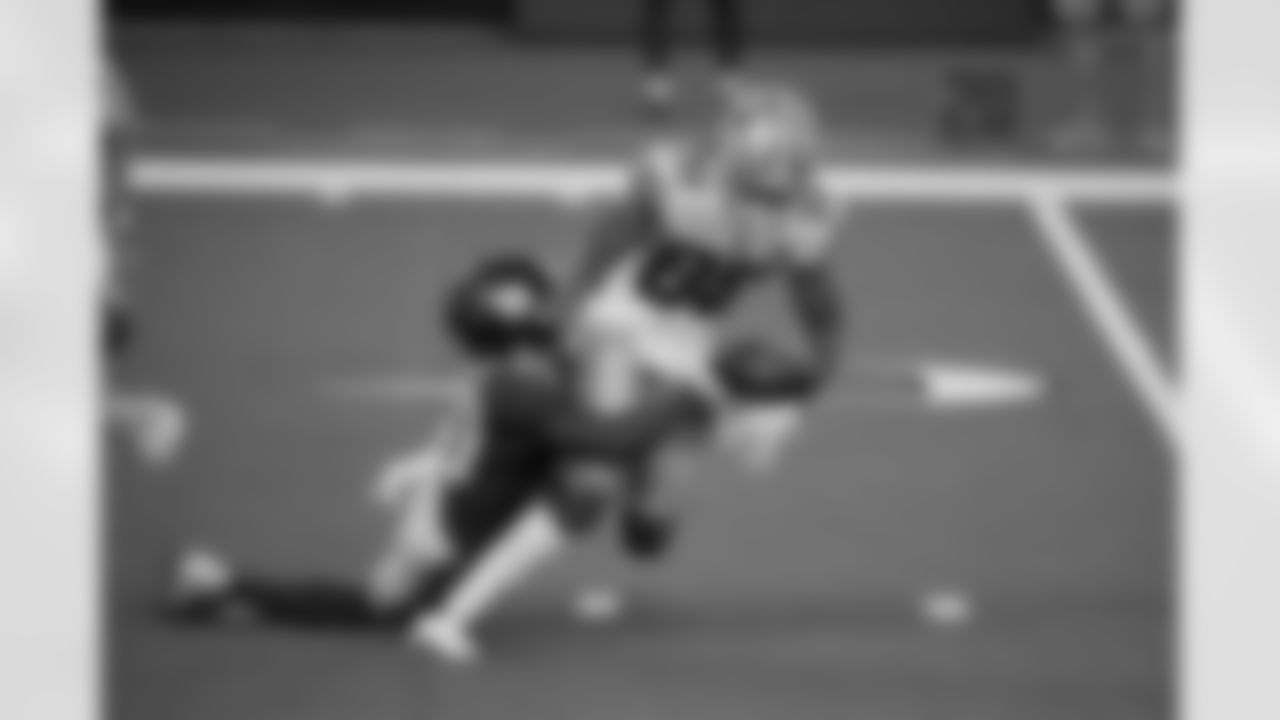
New York Giants cornerback Darnay Holmes (30) breaks up a pass intended for Dallas Cowboys wide receiver CeeDee Lamb (88) during the second half of an NFL football game in Arlington, Texas, Sunday, Oct. 11, 2020. (AP Photo/Michael Ainsworth)
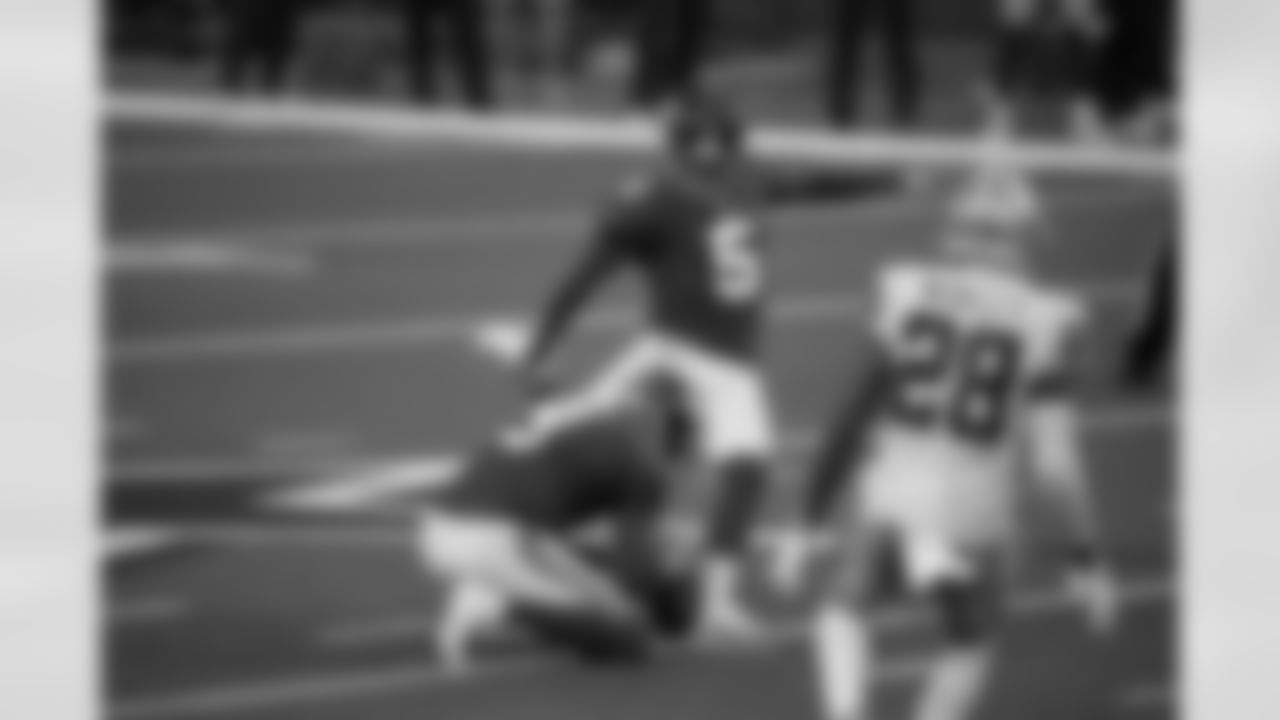
New York Giants place kicker Graham Gano (5) kicks a field goal from the hold of Riley Dixon (9) in the first half of an NFL football game against the Dallas Cowboys in Arlington, Texas, Sunday, Oct. 11, 2020. (AP Photo/Michael Ainsworth)
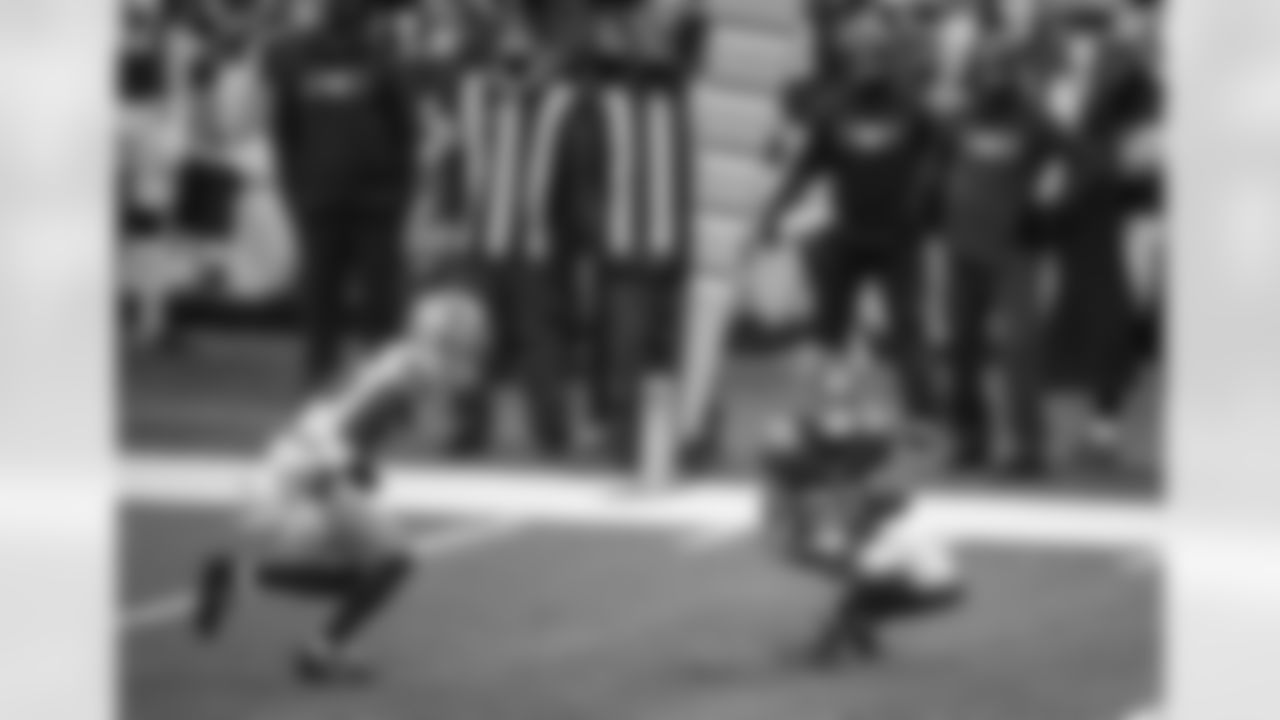
EAST RUTHERFORD, NJ - JANUARY 03: The New York Giants take on the Dallas Cowboys at Metlife Stadium on January 3, 2021 in East Rutherford, New Jersey. (Ben Solomon/New York Giants)
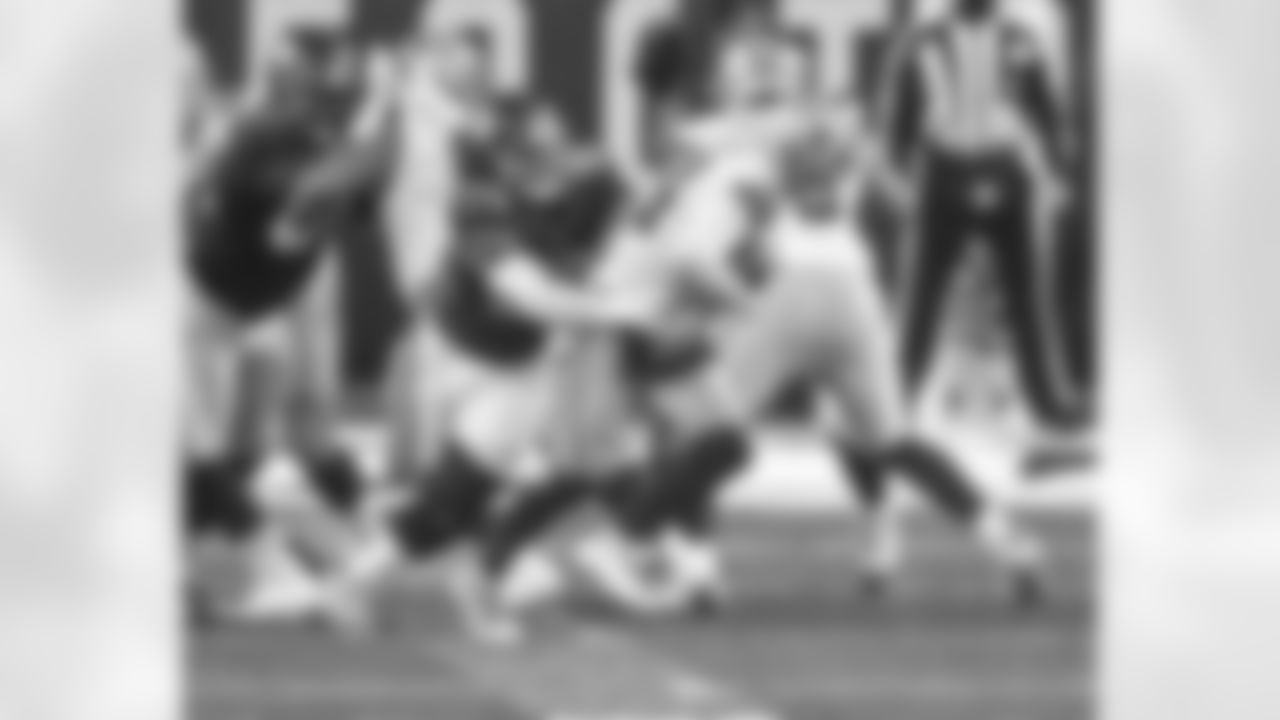
New York Giants defensive end Leonard Williams (99) sacks Dallas Cowboys quarterback Andy Dalton (14) during a week 17 regular season football game at MetLife Stadium on January 3, 2021 in East Rutherford, New Jersey
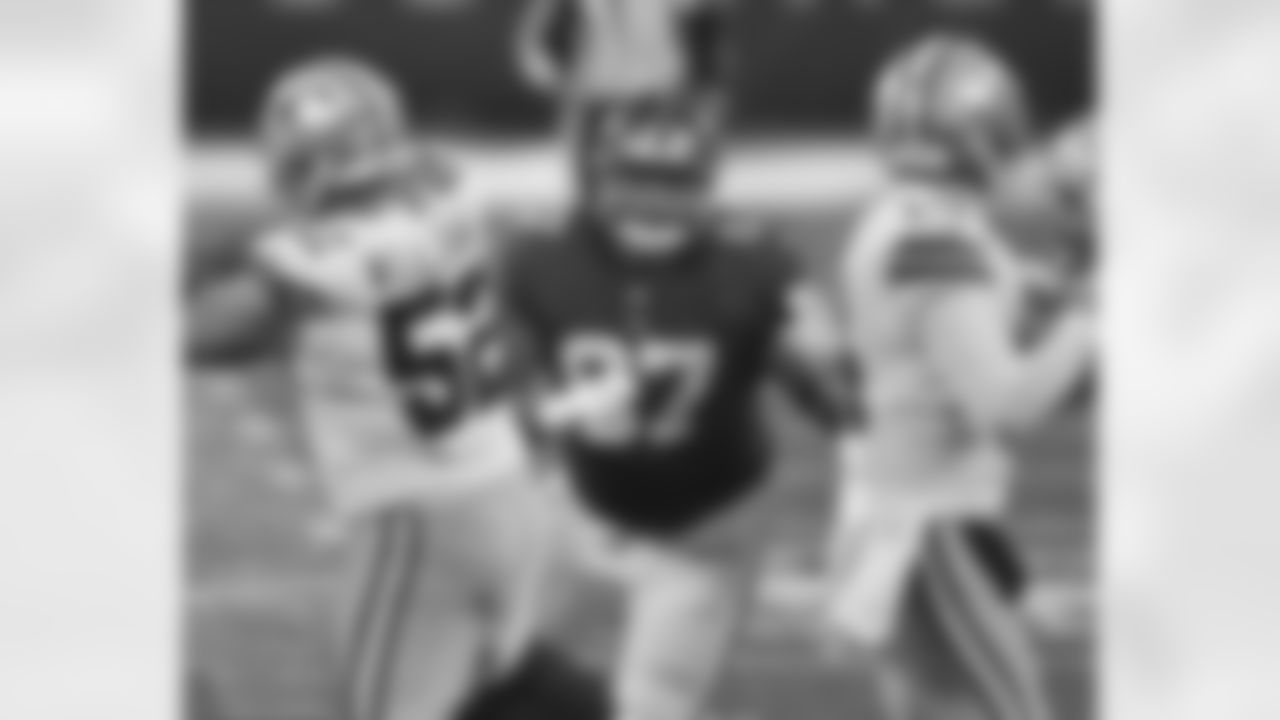
New York Giants defensive tackle Dexter Lawrence (97) during a week 17 regular season football game against the Dallas Cowboys at MetLife Stadium on January 3, 2021 in East Rutherford, New Jersey
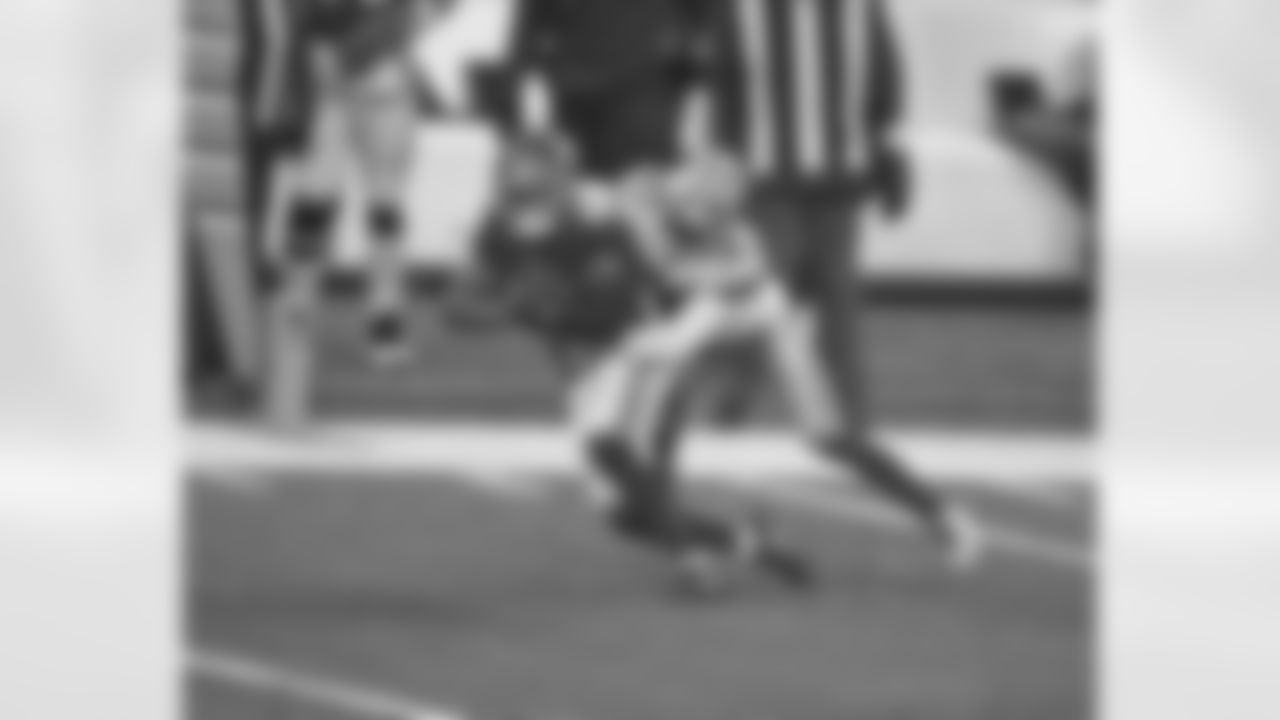
New York Giants wide receiver Sterling Shepard (87) during a week 17 regular season football game against the Dallas Cowboys at MetLife Stadium on January 3, 2021 in East Rutherford, New Jersey
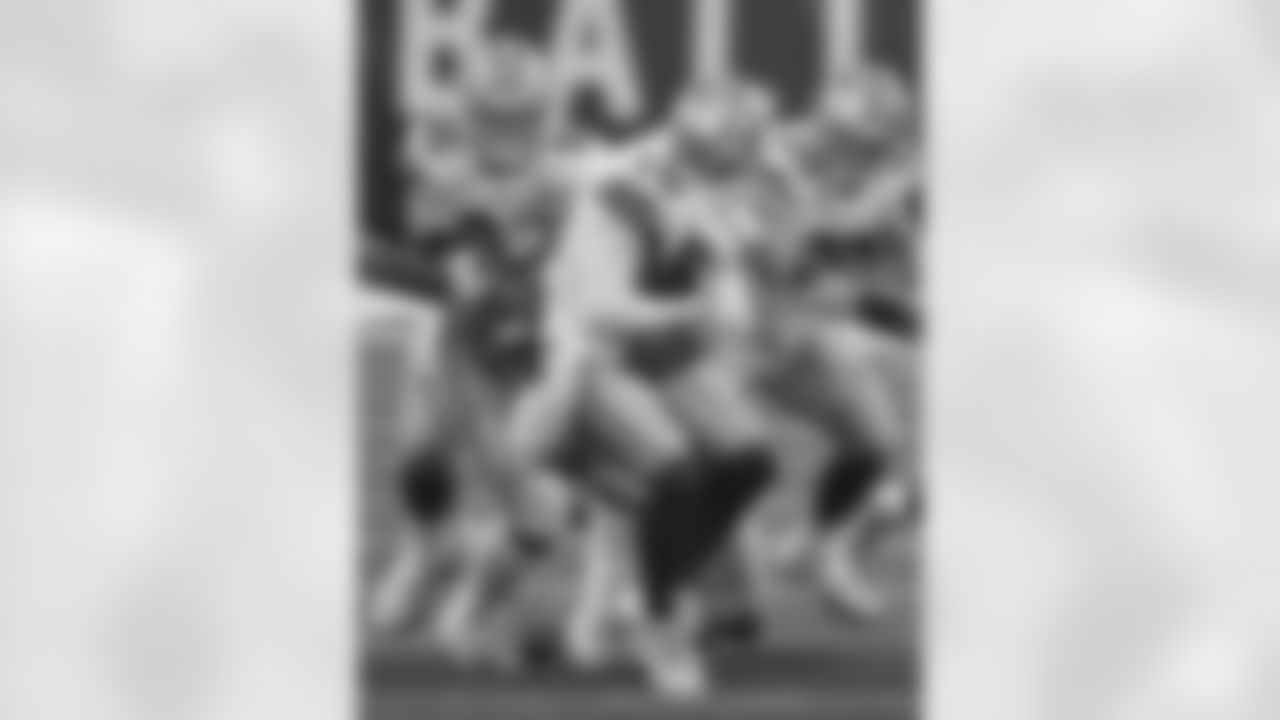
New York Giants defensive end Leonard Williams (99) sacks Dallas Cowboys quarterback Andy Dalton (14) during a week 17 regular season football game at MetLife Stadium on January 3, 2021 in East Rutherford, New Jersey
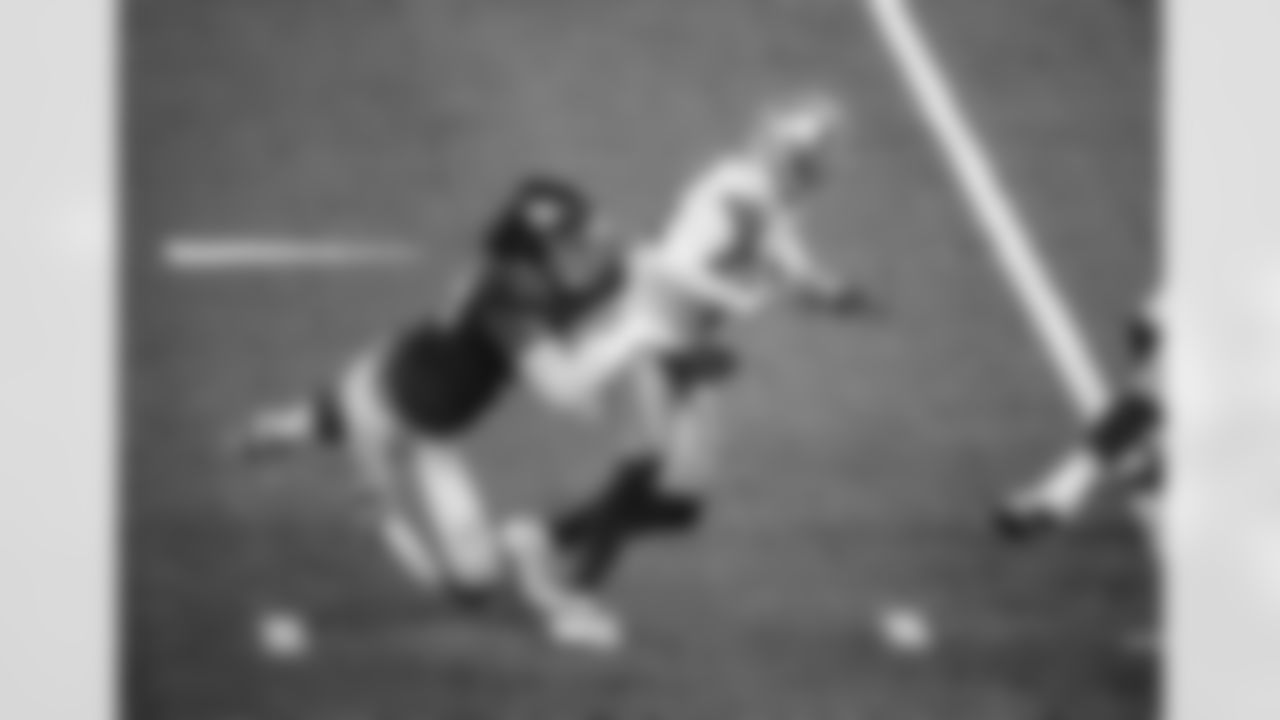
EAST RUTHERFORD, NJ - JANUARY 03: The New York Giants take on the Dallas Cowboys at Metlife Stadium on January 3, 2021 in East Rutherford, New Jersey. (Ben Solomon/New York Giants)
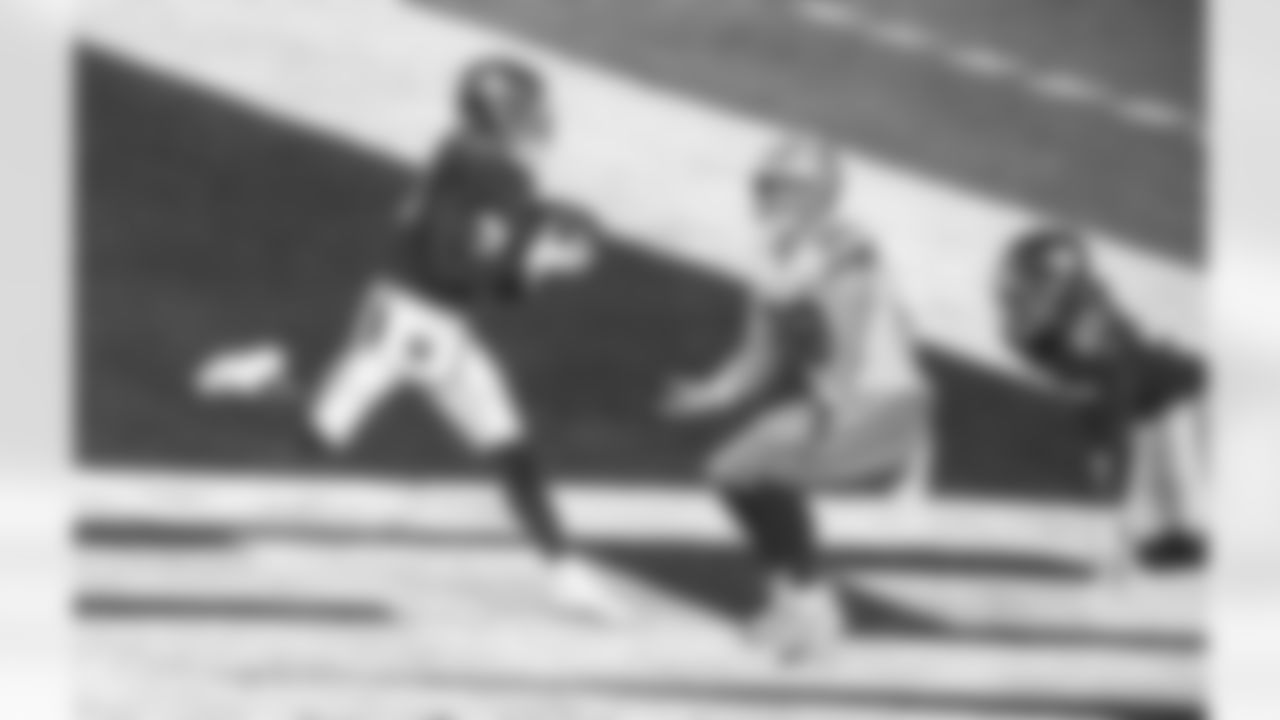
EAST RUTHERFORD, NJ - JANUARY 03: The New York Giants take on the Dallas Cowboys at Metlife Stadium on January 3, 2021 in East Rutherford, New Jersey. (Ben Solomon/New York Giants)
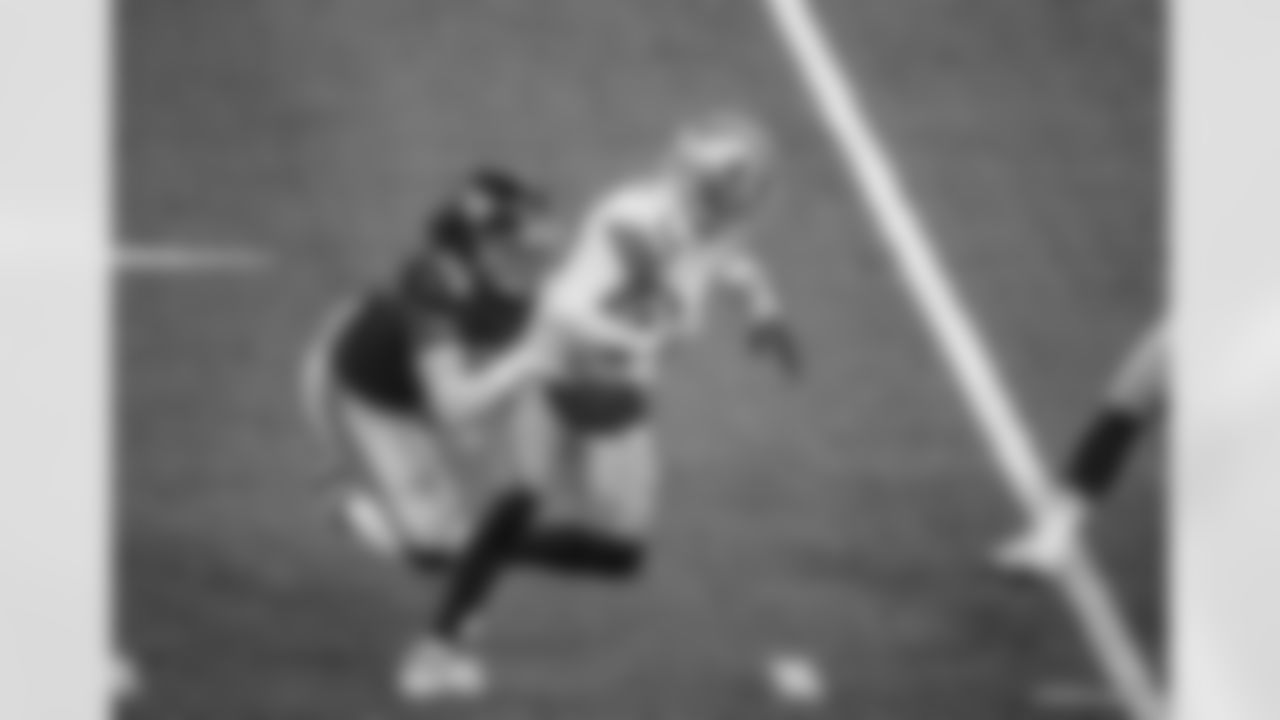
EAST RUTHERFORD, NJ - JANUARY 03: The New York Giants take on the Dallas Cowboys at Metlife Stadium on January 3, 2021 in East Rutherford, New Jersey. (Ben Solomon/New York Giants)
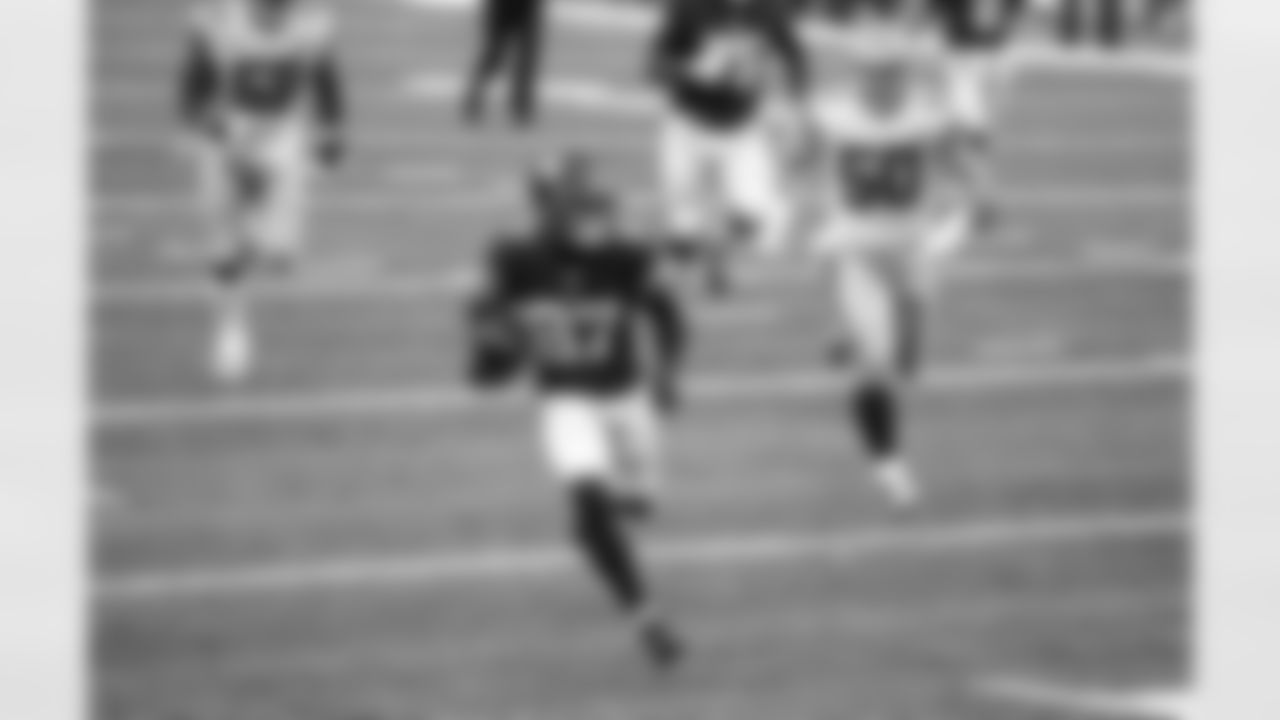
EAST RUTHERFORD, NJ - JANUARY 03: The New York Giants take on the Dallas Cowboys at Metlife Stadium on January 3, 2021 in East Rutherford, New Jersey. (Ben Solomon/New York Giants)
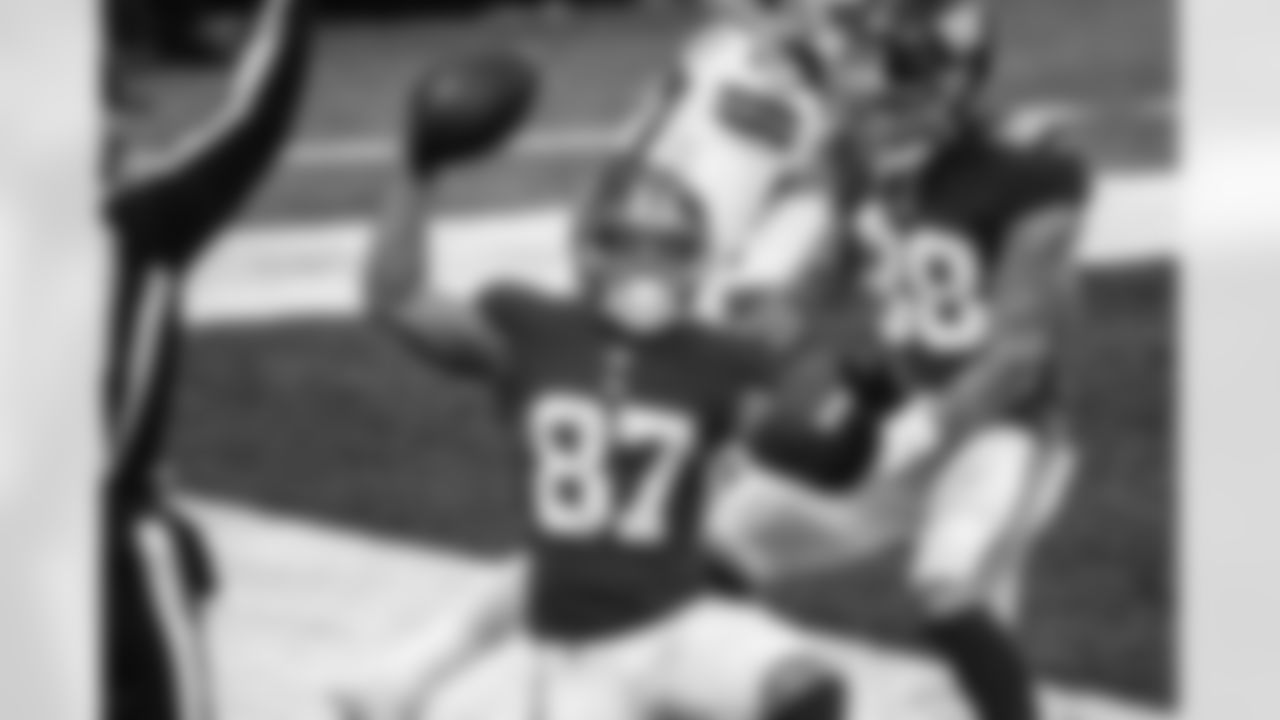
EAST RUTHERFORD, NJ - JANUARY 03: The New York Giants take on the Dallas Cowboys at Metlife Stadium on January 3, 2021 in East Rutherford, New Jersey. (Ben Solomon/New York Giants)
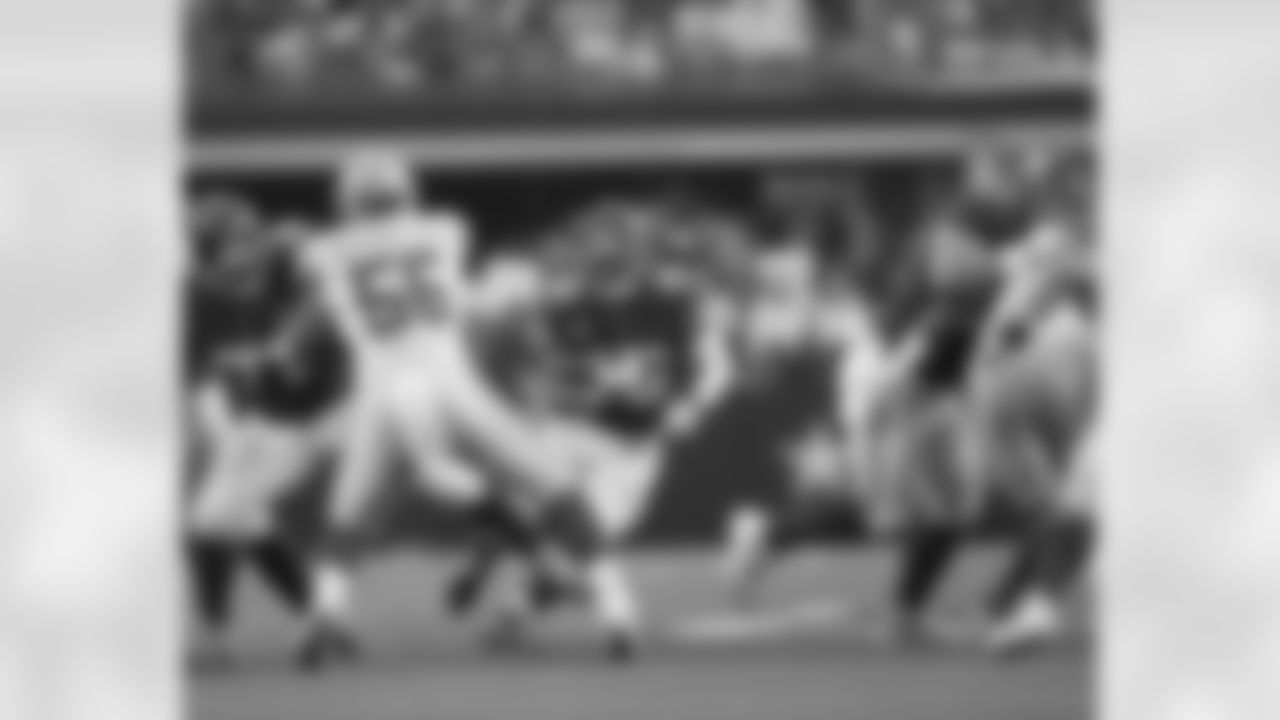
New York Giants running back Saquon Barkley (26) during a week 5 game against the Dallas Cowboys in Arlington, Texas on Sunday October 10th, 2021,
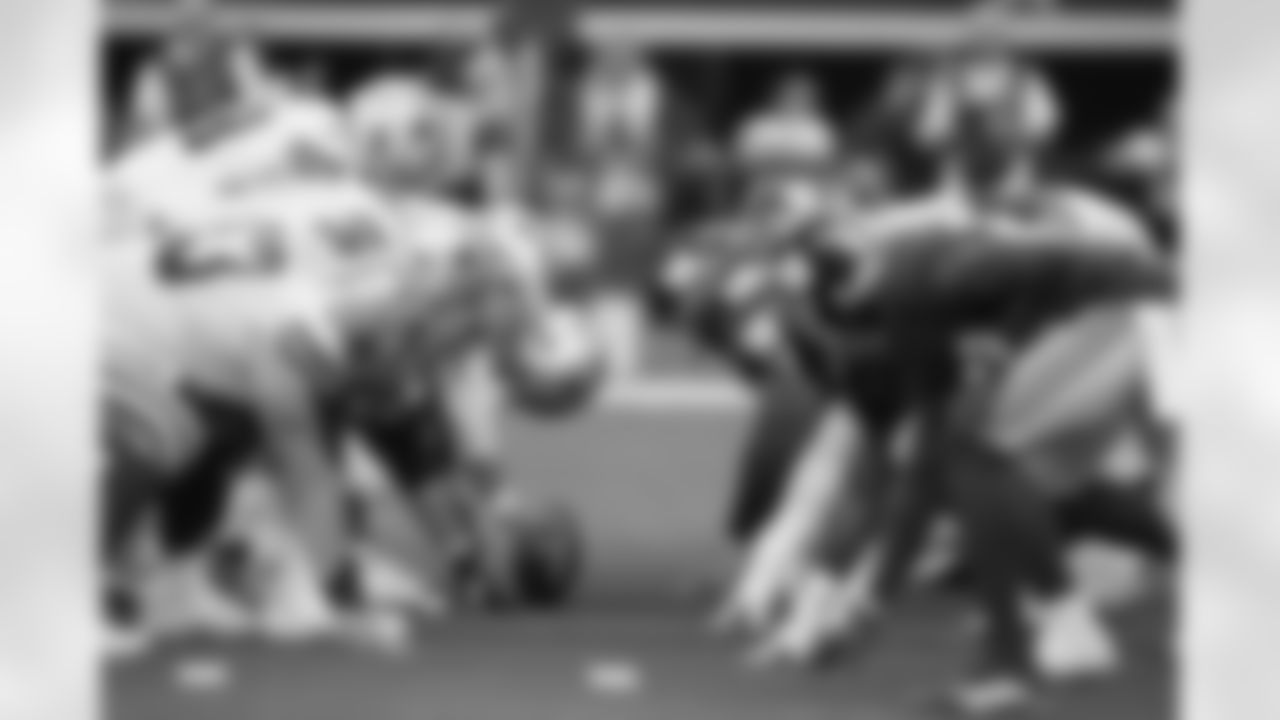
A look down the line of scrimmage as the New York Giants take on the Dallas Cowboys during a week 5 game in Arlington, Texas on Sunday October 10th, 2021,
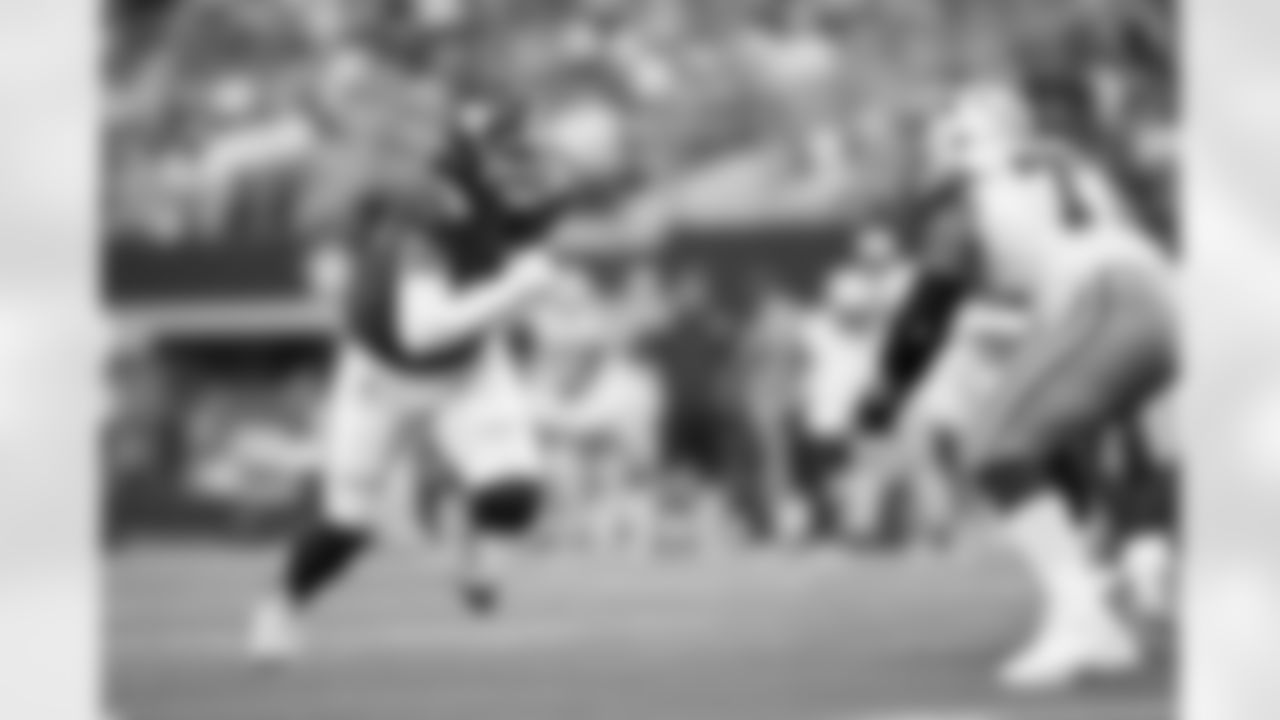
Leonard Williams (99)
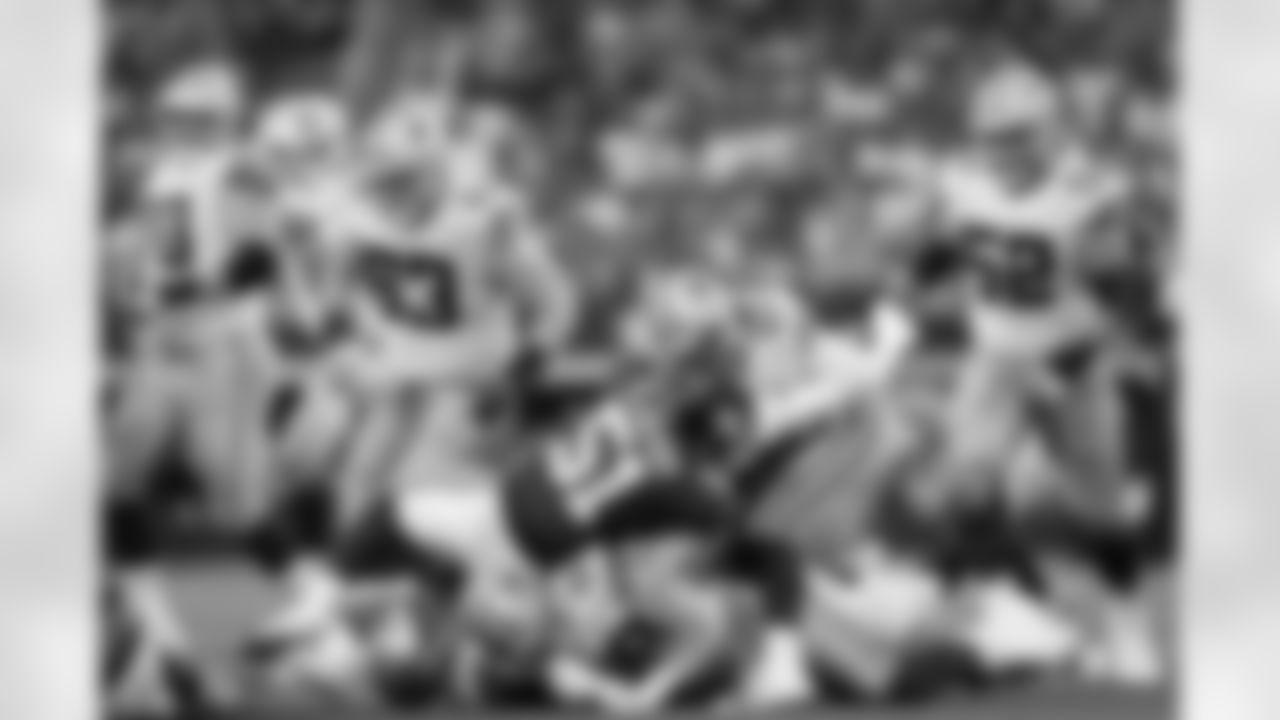
Azeez Ojulari (51)
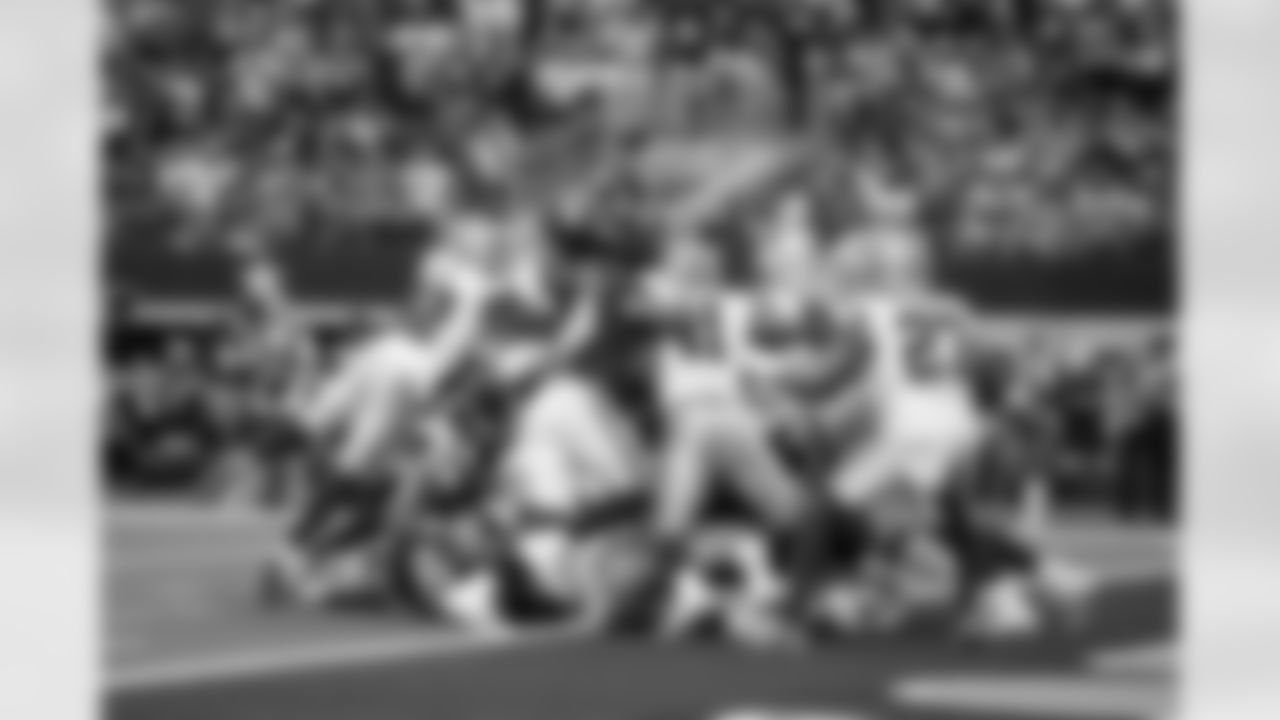
Devontae Booker (28)
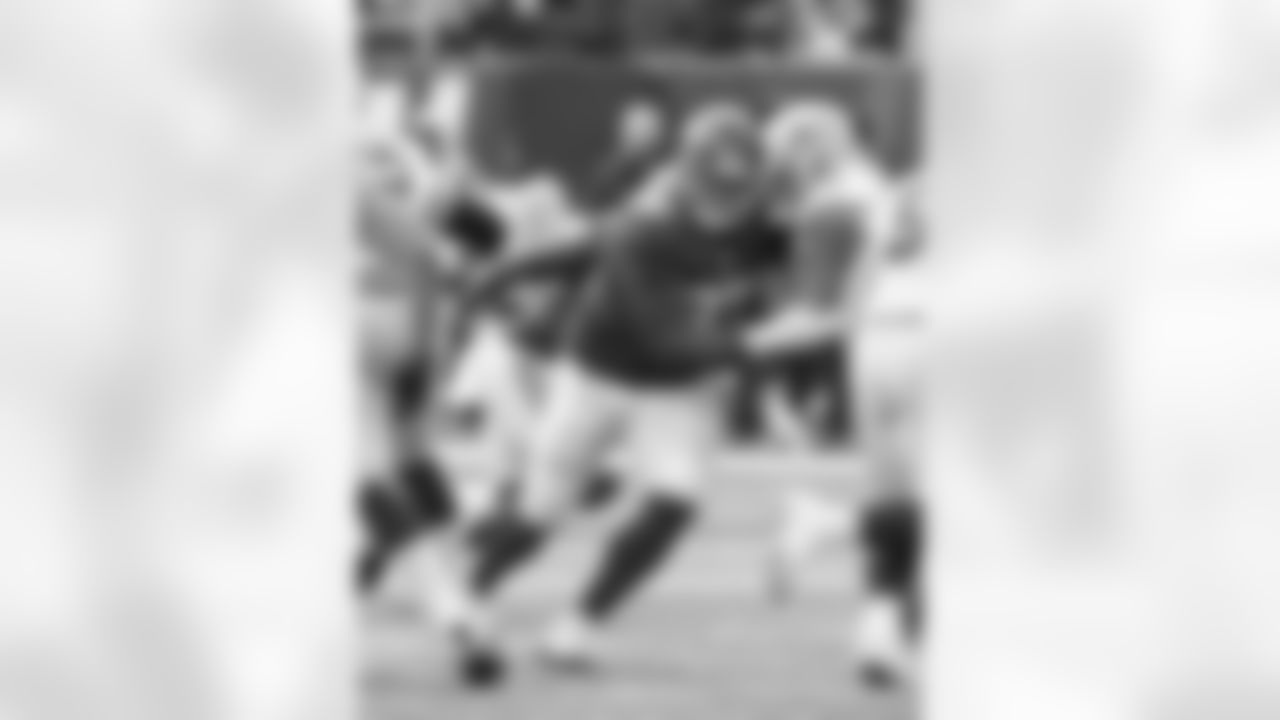
New York Giants defensive tackle Dexter Lawrence (97) during a week 15 football game against the Dallas Cowboys on Sunday December 19th, 2021 in East Rutherford, New Jersey
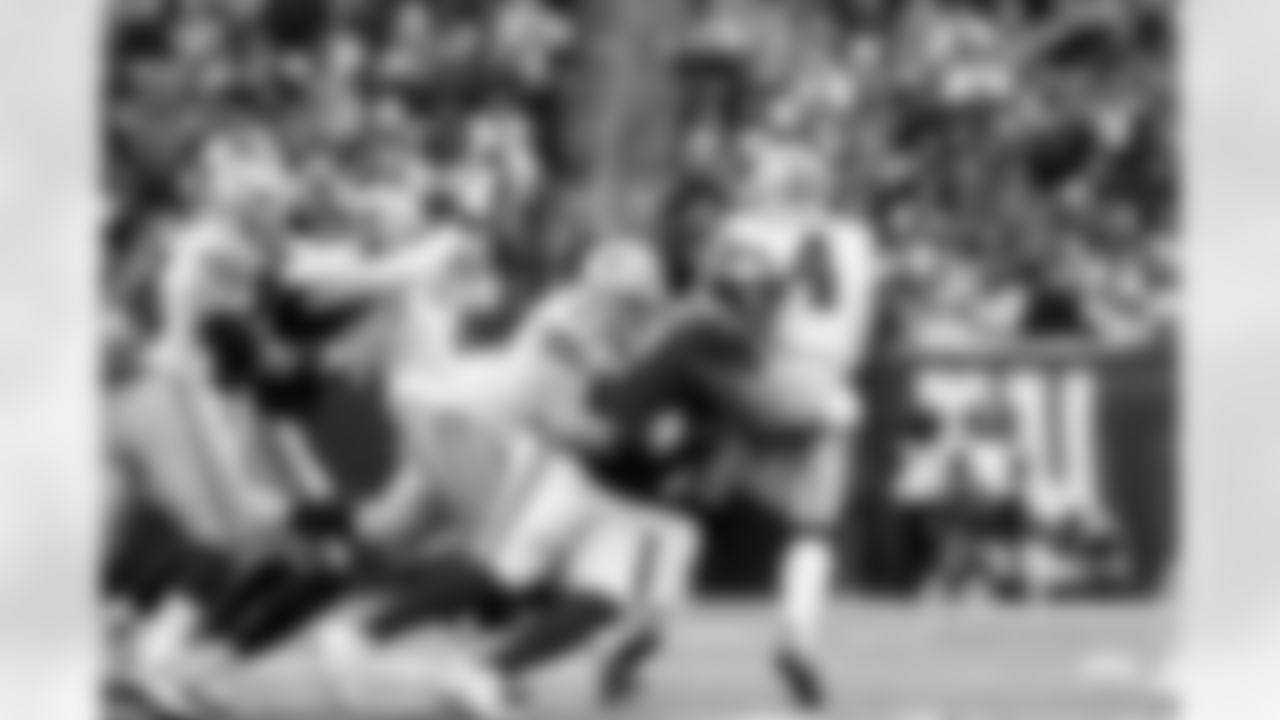
Dexter Lawrence (97)
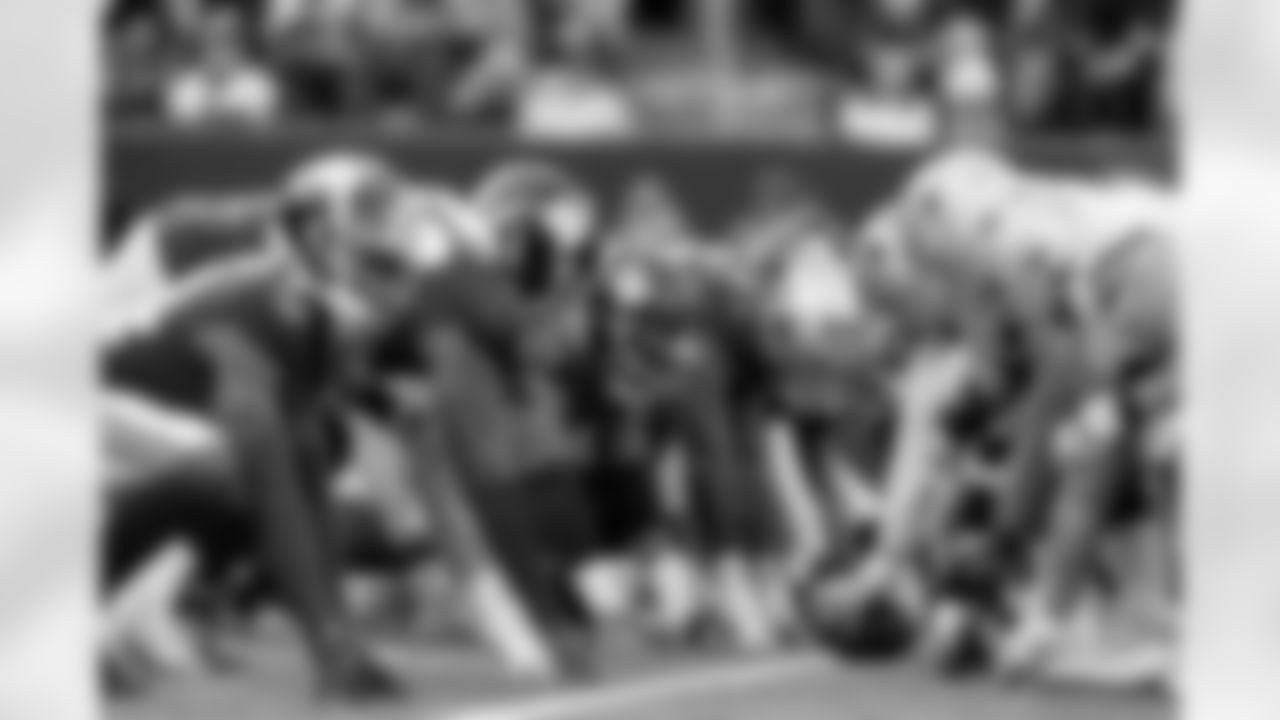
Danny Shelton (75)
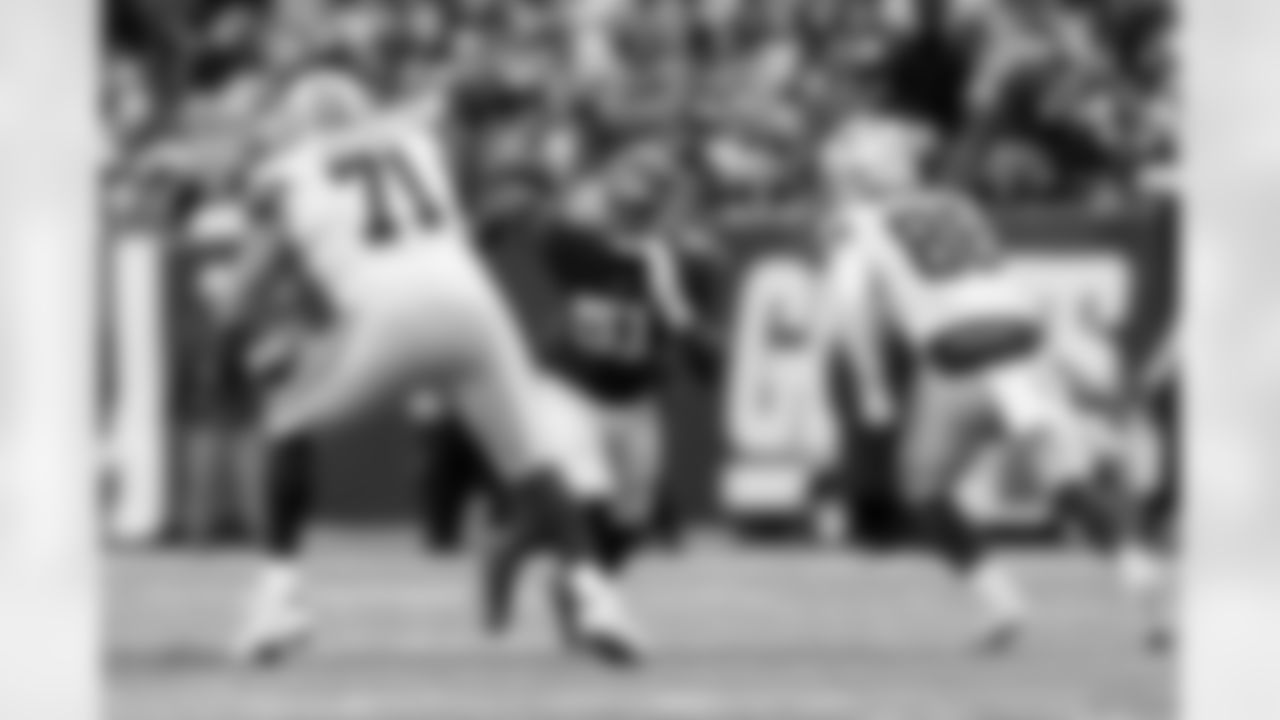
Azeez Ojulari (51)
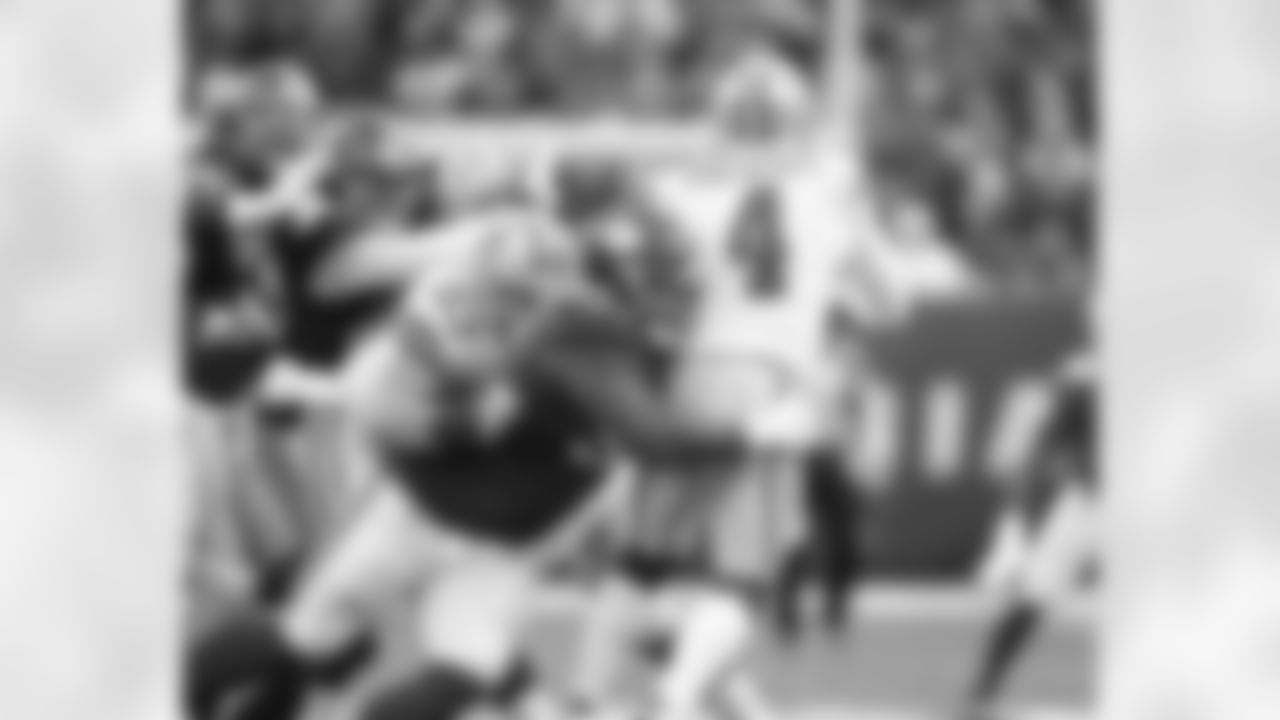
New York Giants defensive tackle Dexter Lawrence (97) during a week 15 football game against the Dallas Cowboys on Sunday December 19th, 2021 in East Rutherford, New Jersey
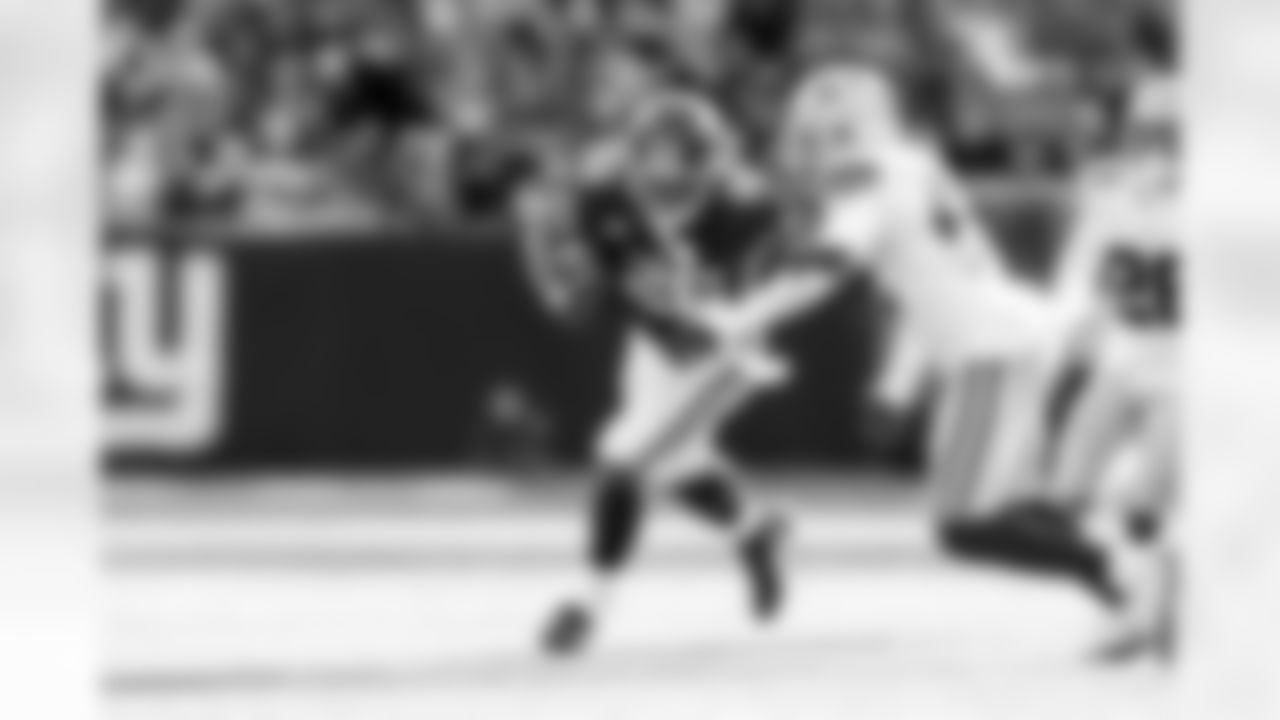
Saquon Barkley (26)
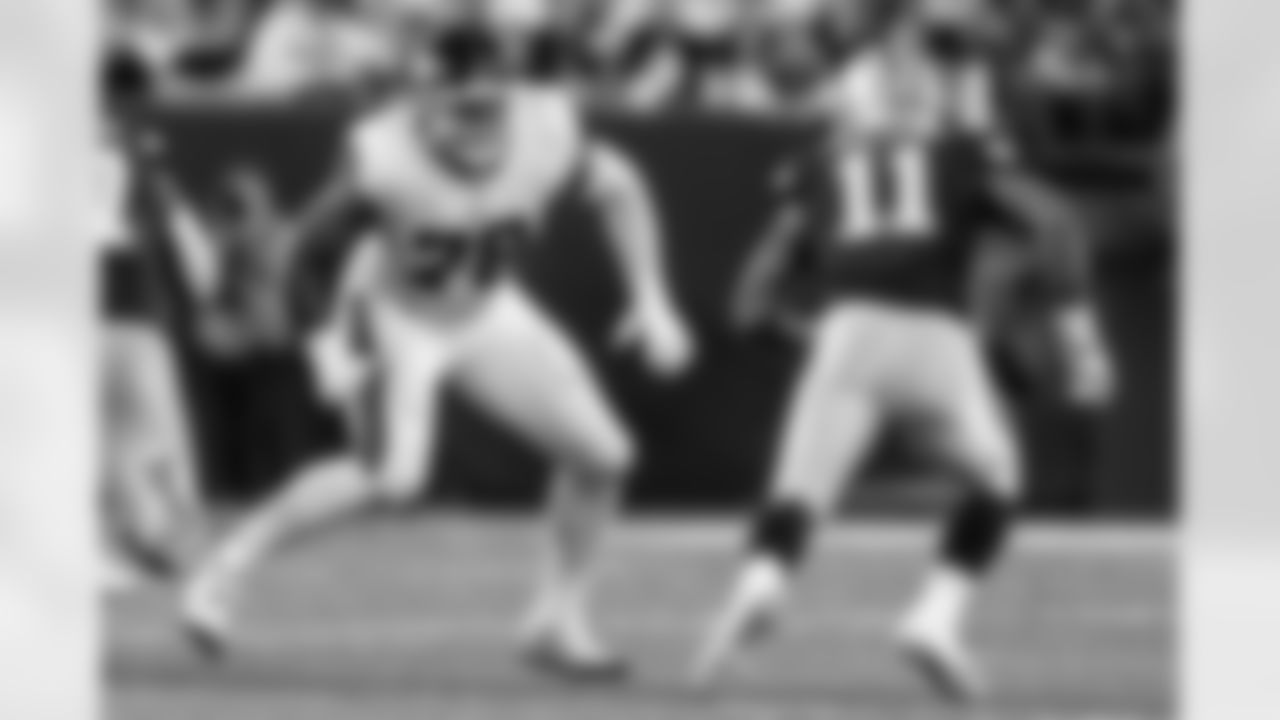
Ben Bredeson (68), Andrew Thomas (78)
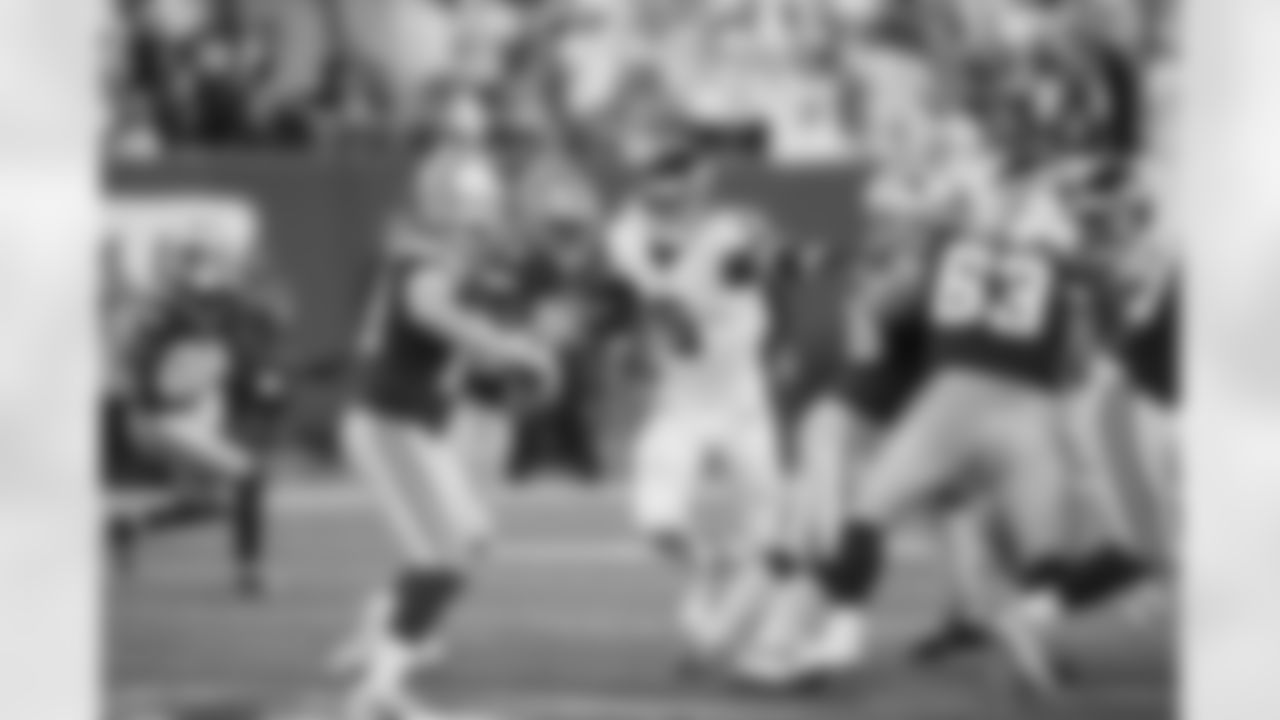
New York Giants defensive end Kayvon Thibodeaux (5) during a Monday Night football game against the Dallas Cowboys on Monday September 26, 2022 in East Rutherford, New Jersey (Evan Pinkus/NY Giants)
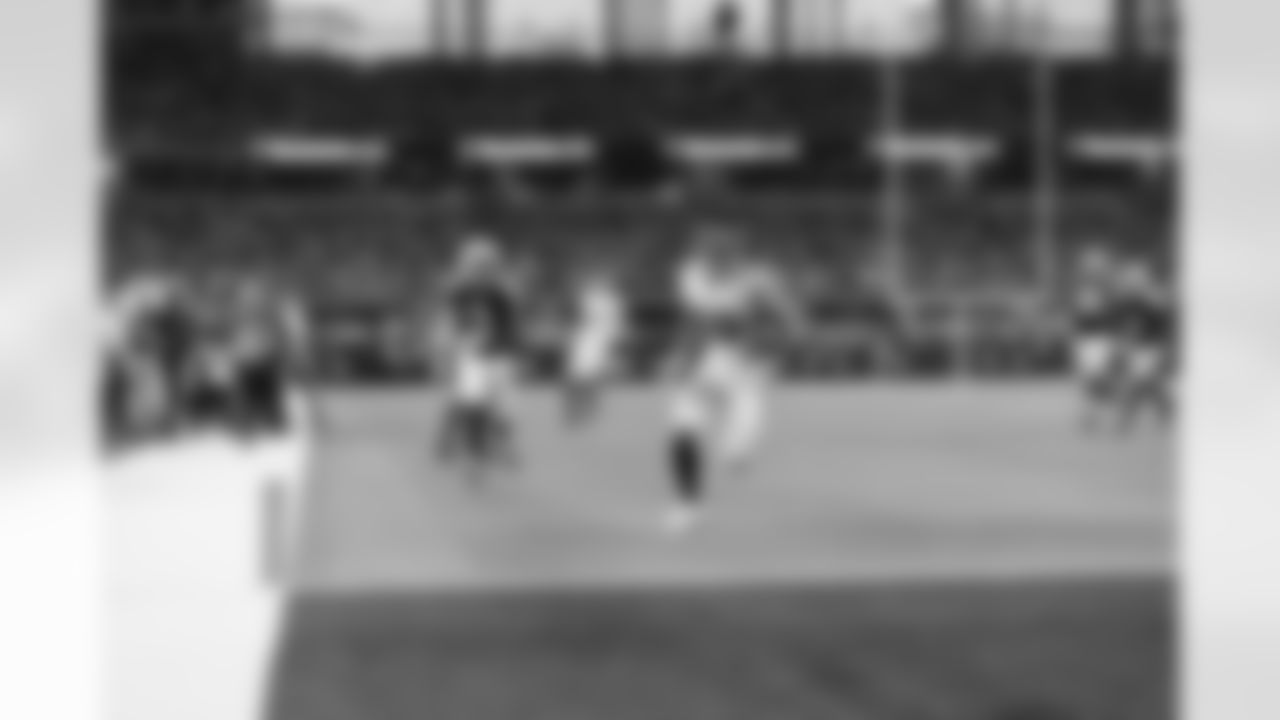
Isaiah Hodgins (18)

Kayvon Thibodeaux (5)
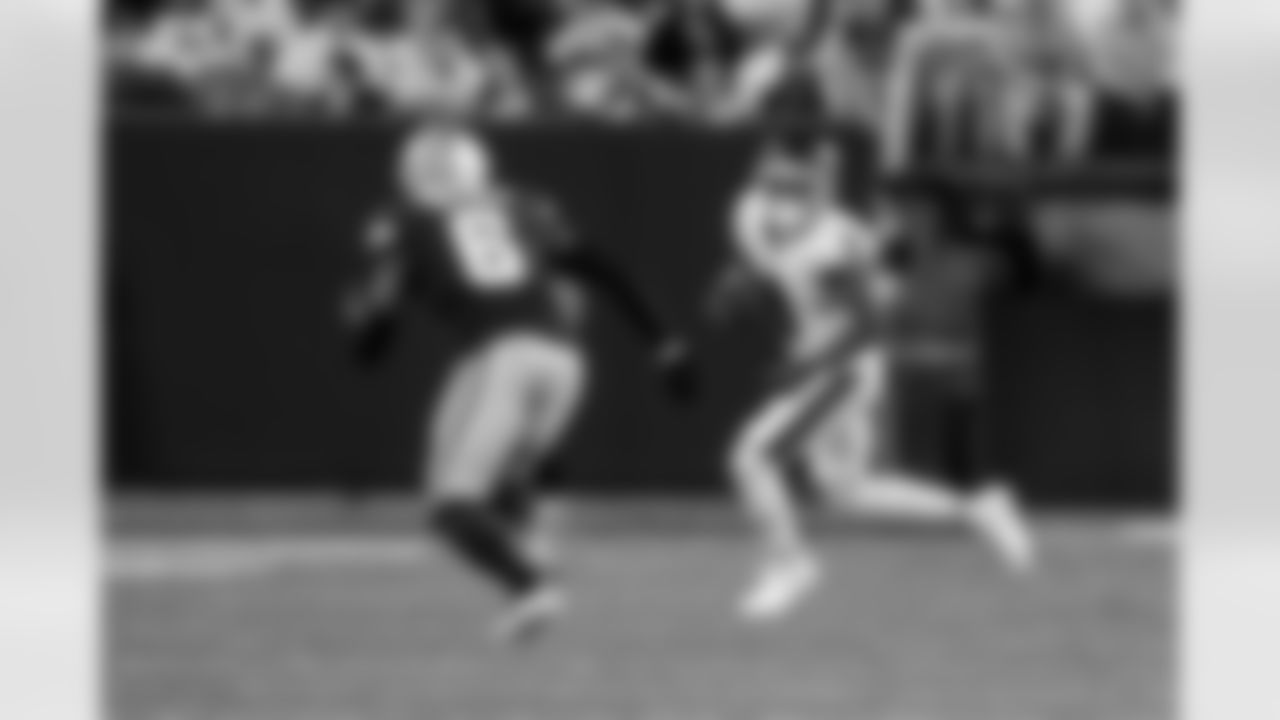
Sterling Shepard (3)
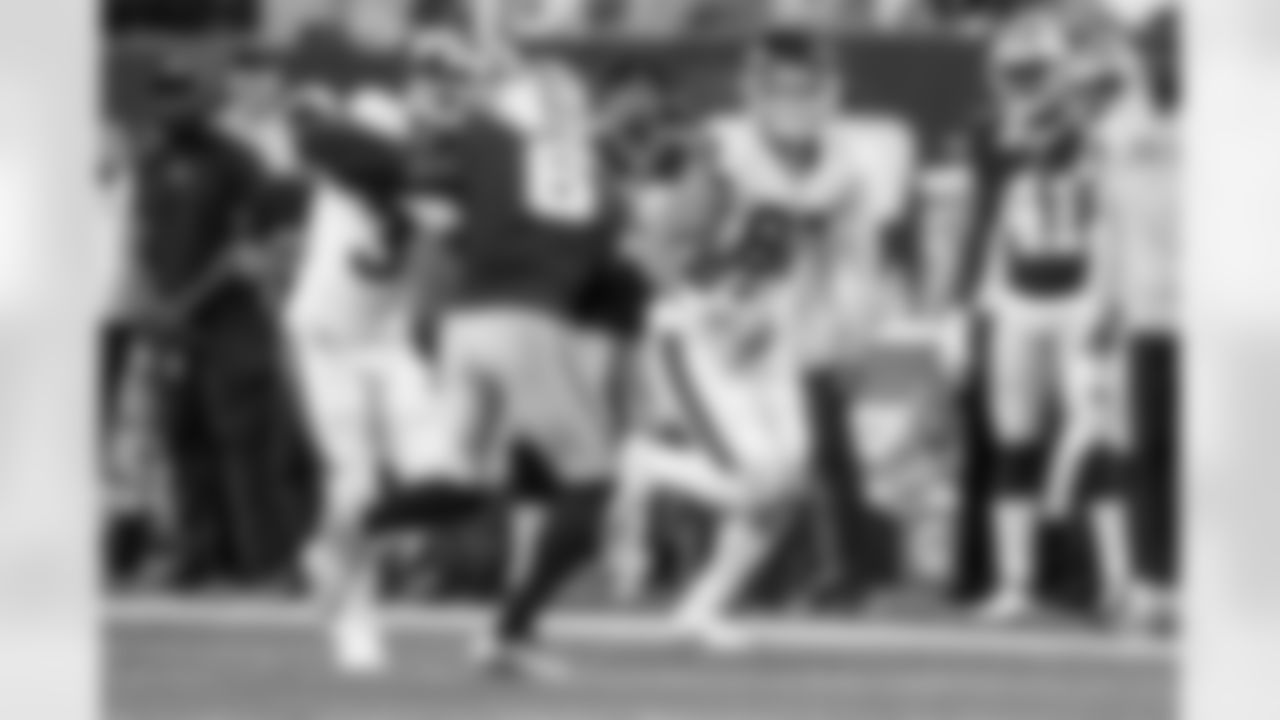
Daniel Bellinger (82)
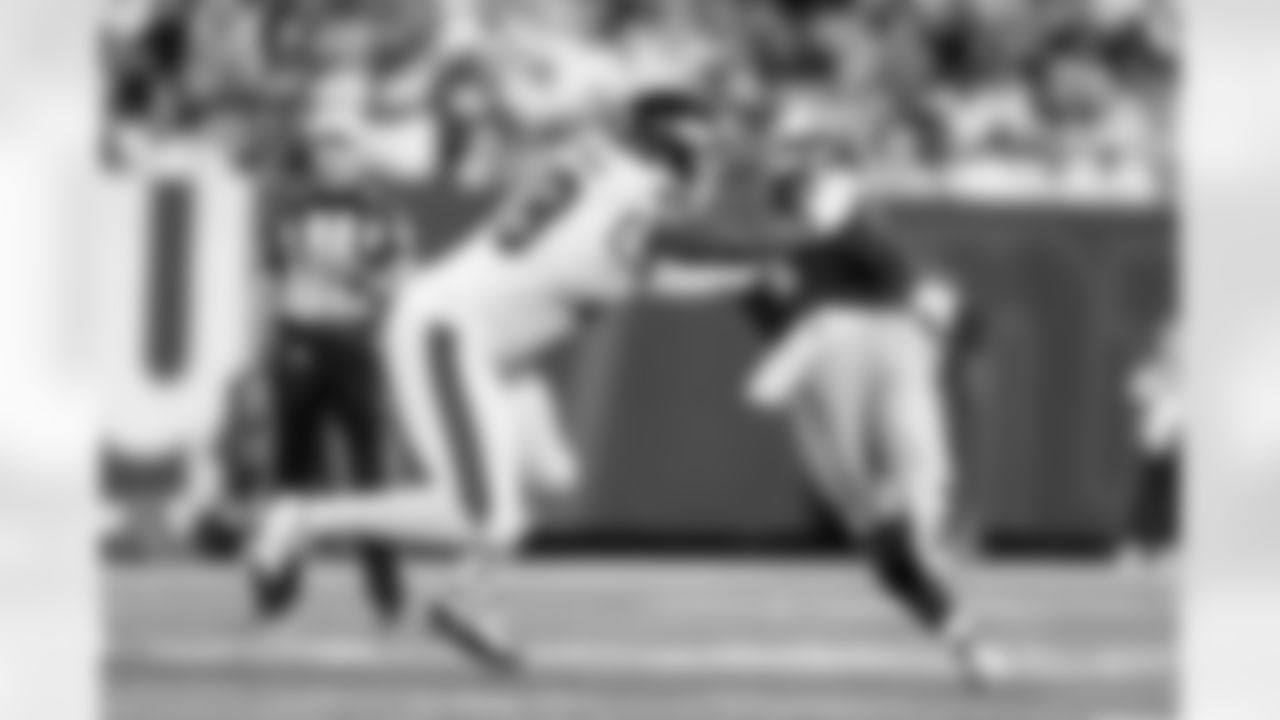
Andrew Thomas (78)
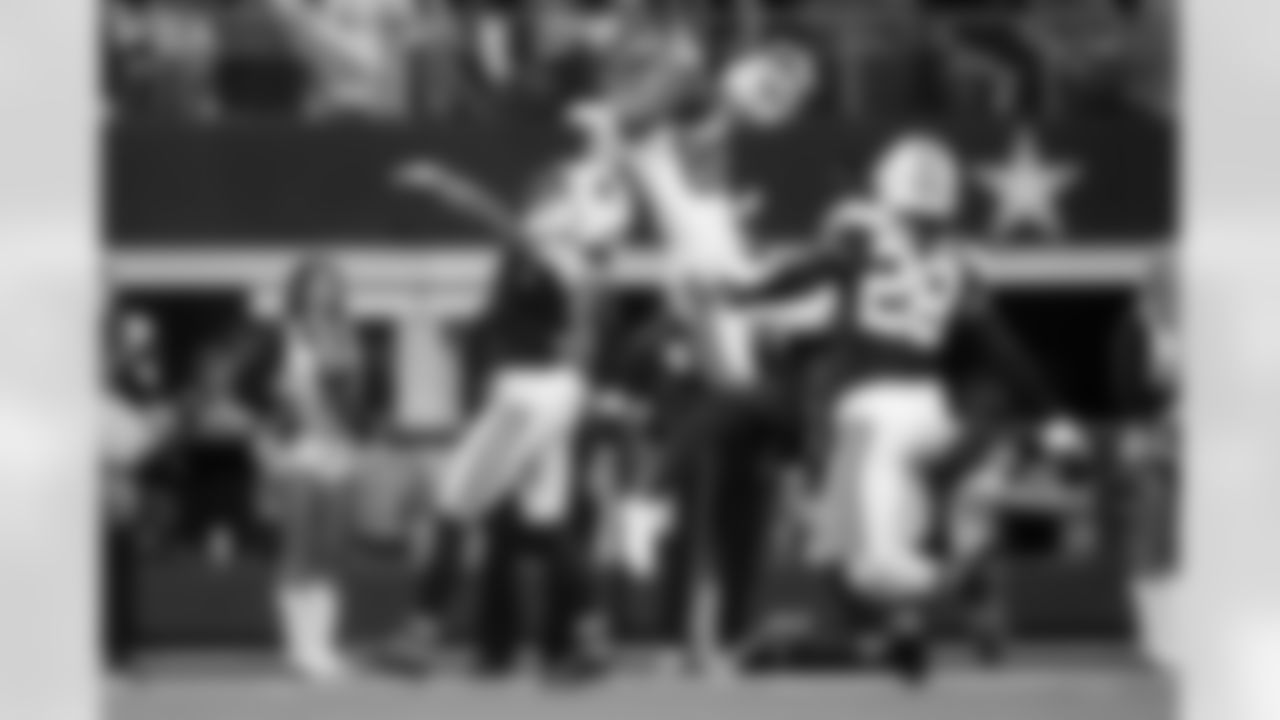
Darius Slayton (86)
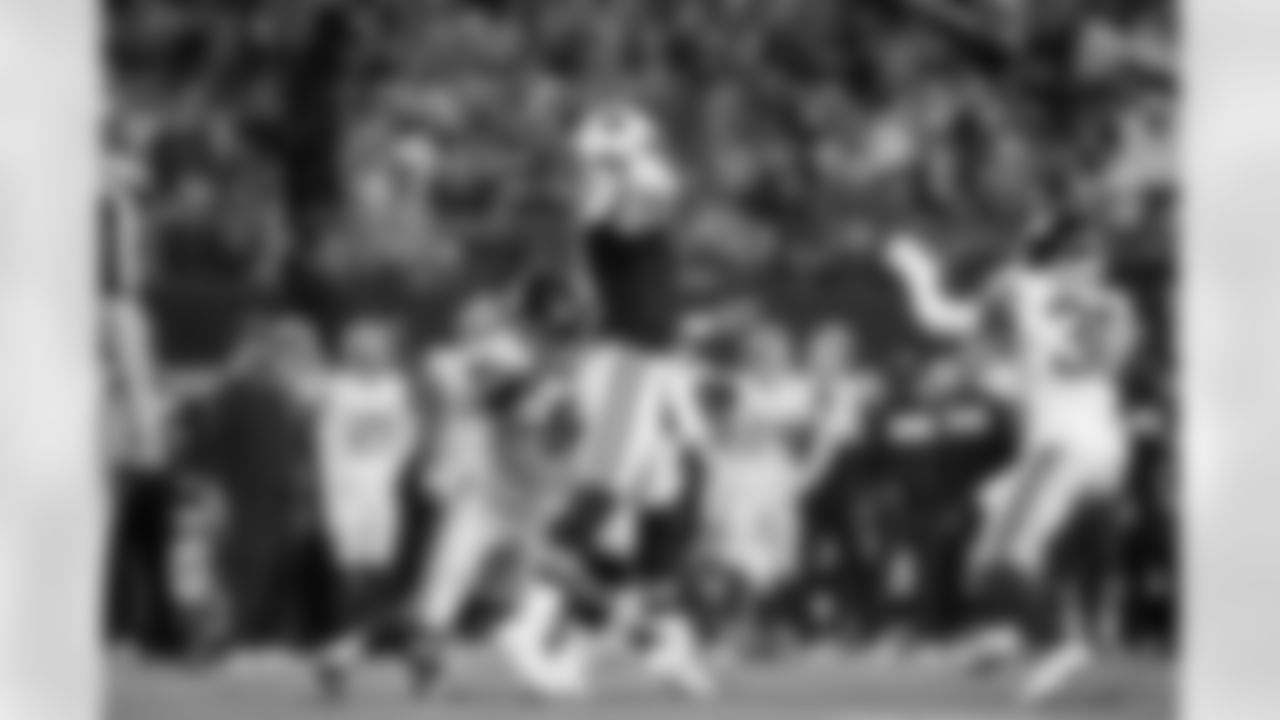
Kayvon Thibodeaux (5)
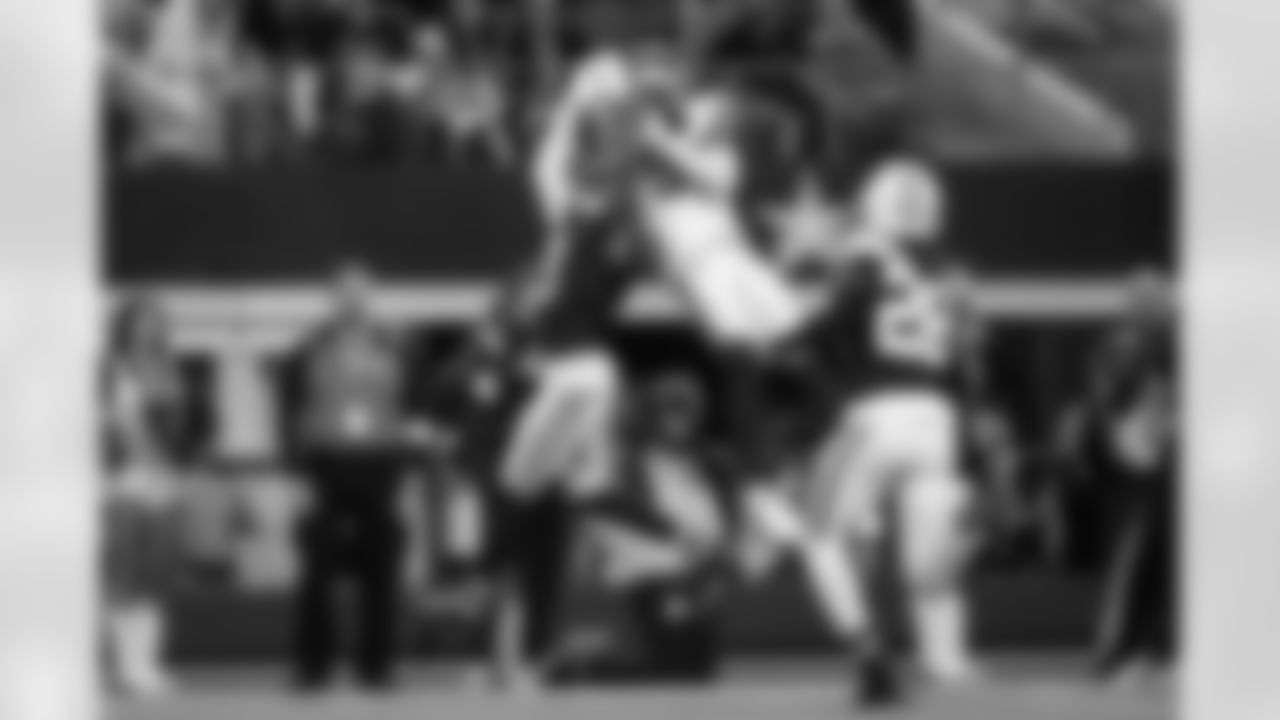
Darius Slayton (86)
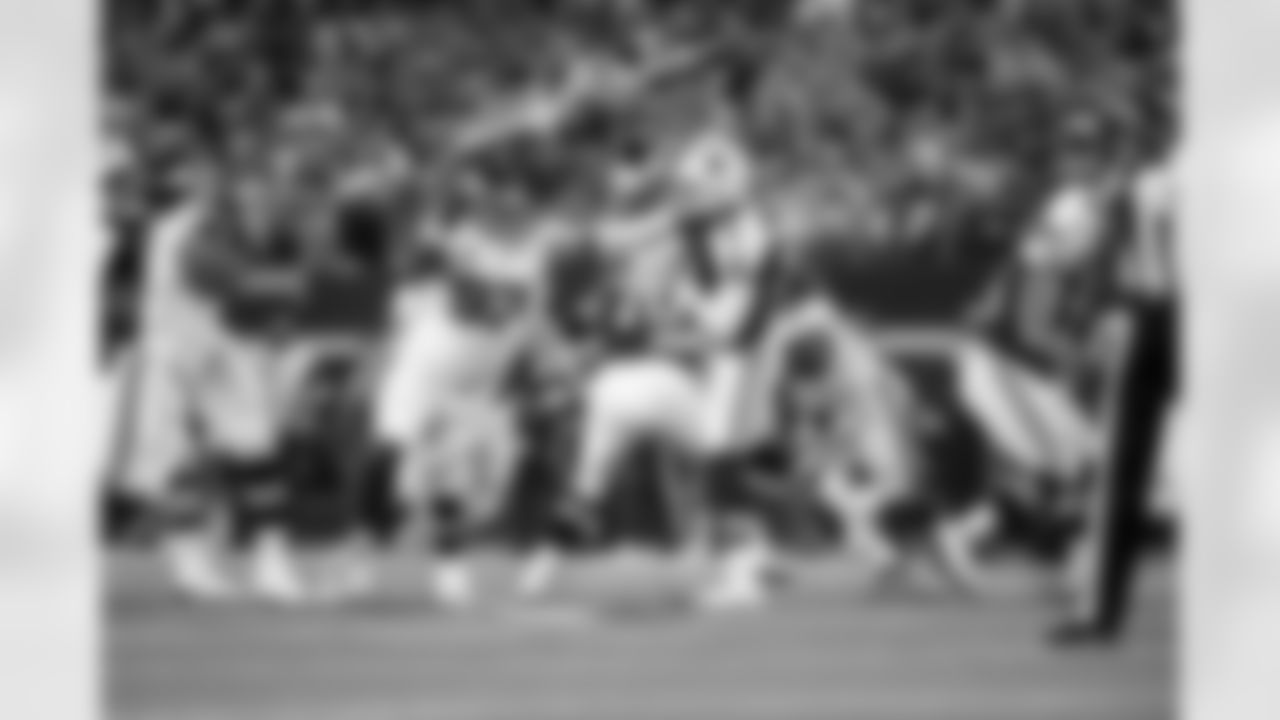
Dexter Lawrence (97)
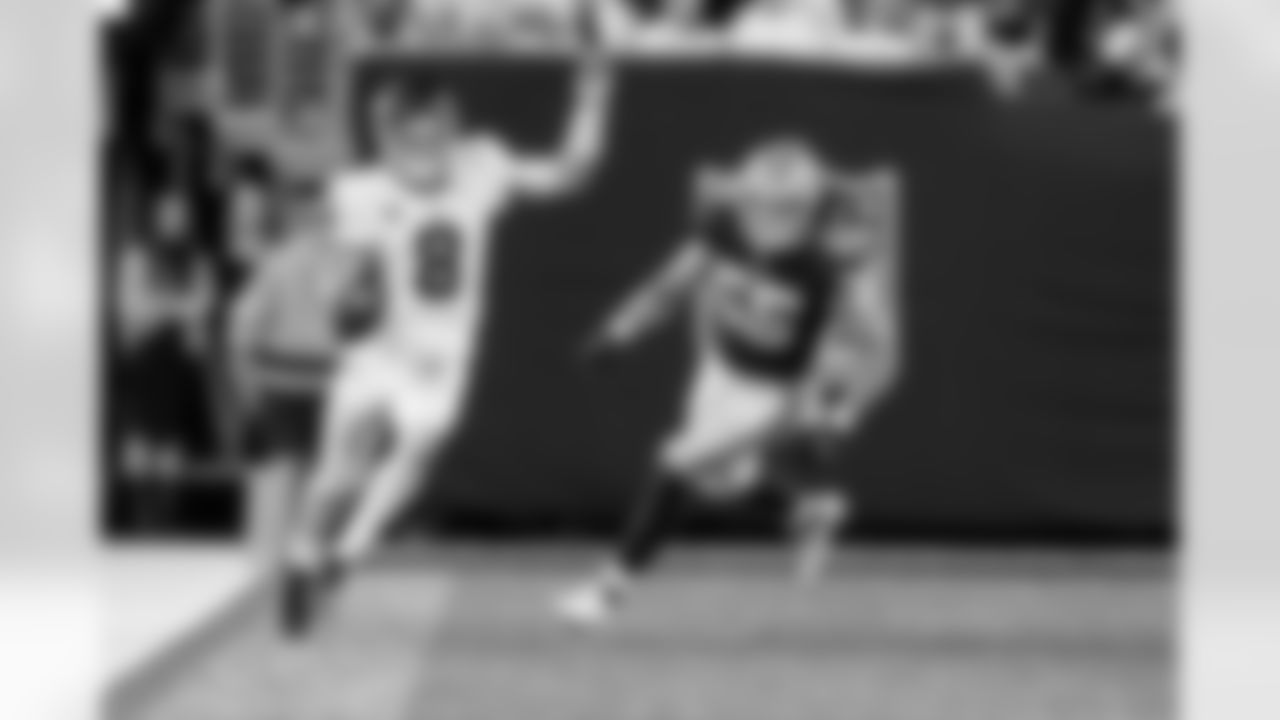
Daniel Jones (8)
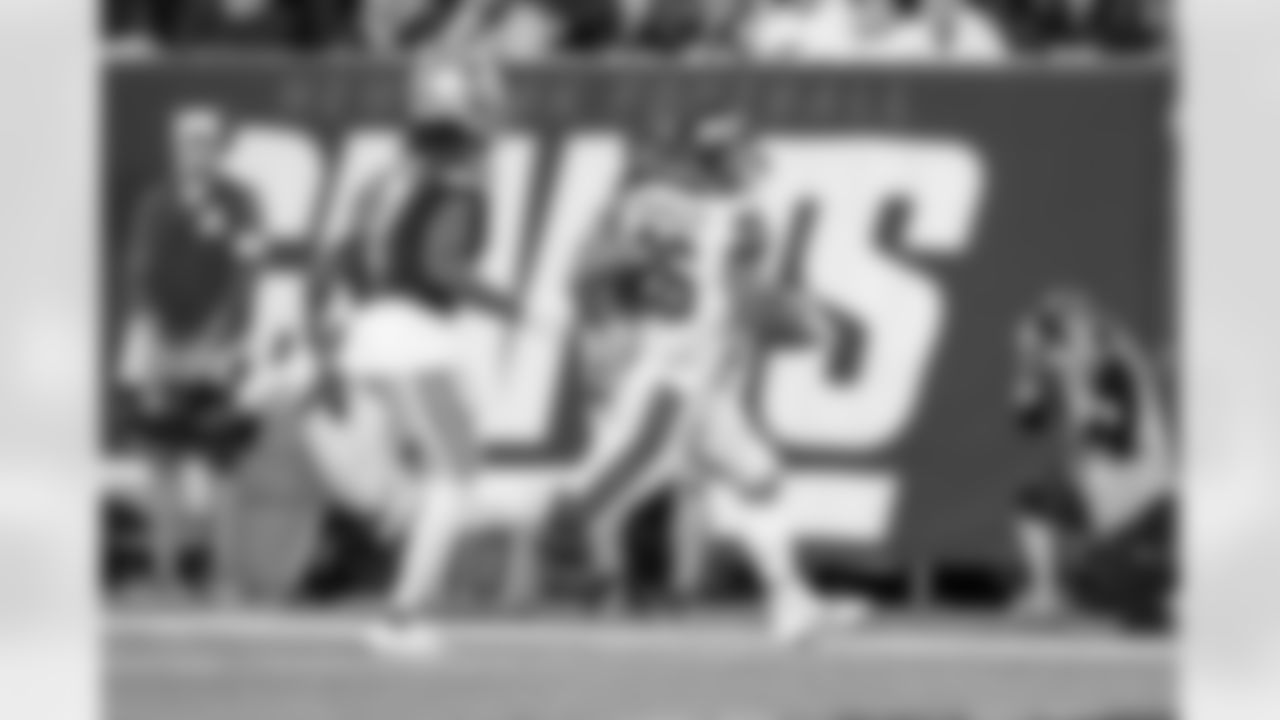
Saquon Barkley (26)
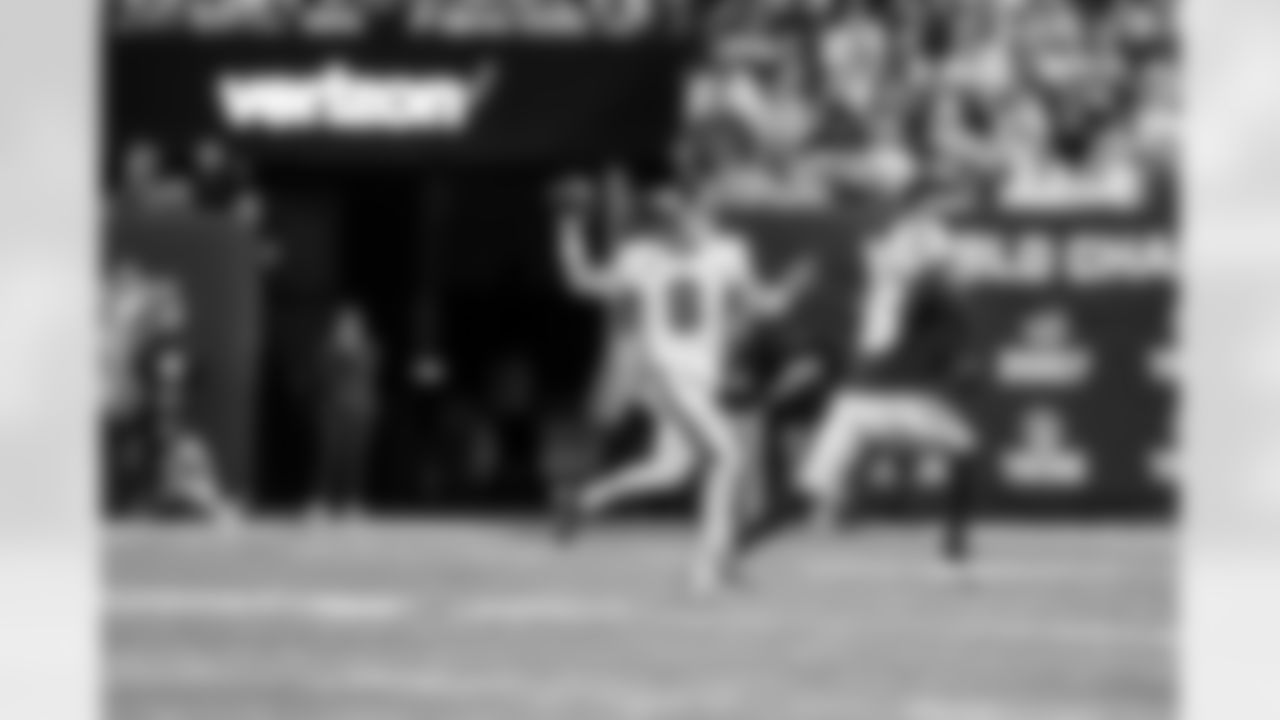
Daniel Jones (8)
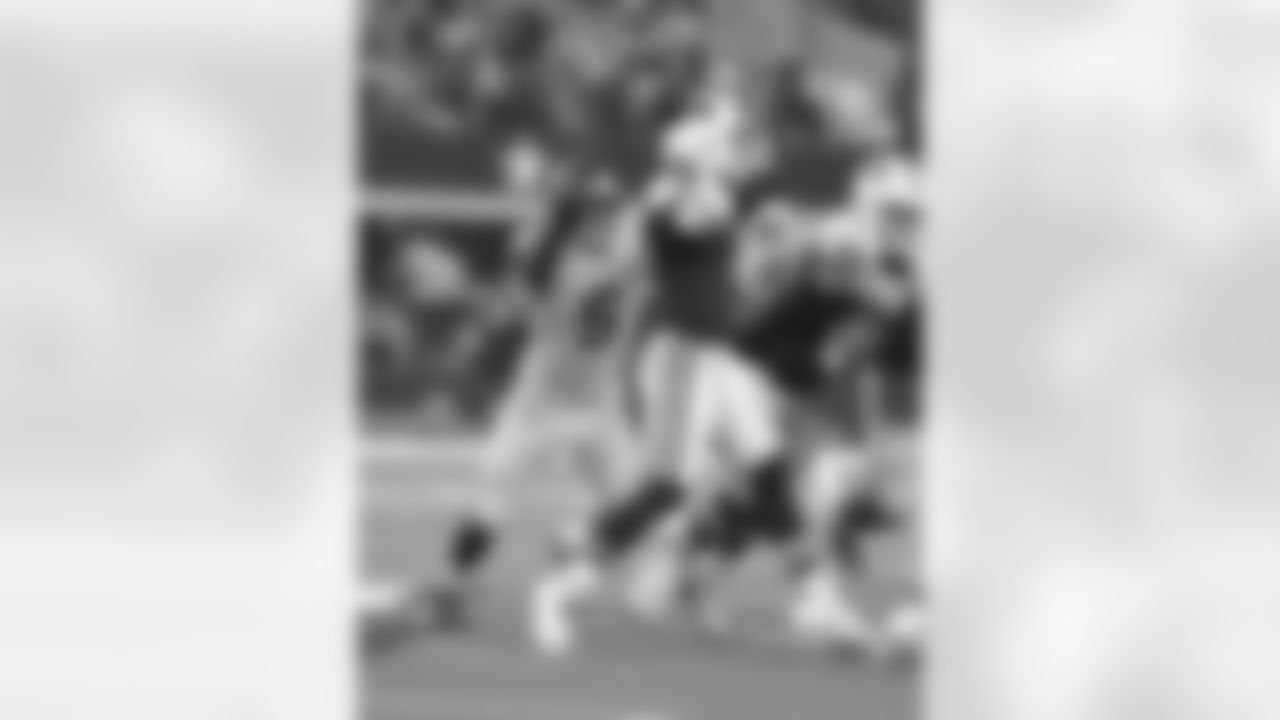
New York Giants defensive end Kayvon Thibodeaux (5) during a NFL football game against the Dallas Cowboys on Thursday November 24, 2022 in Arlington, Texas (Evan Pinkus\New York Giants )
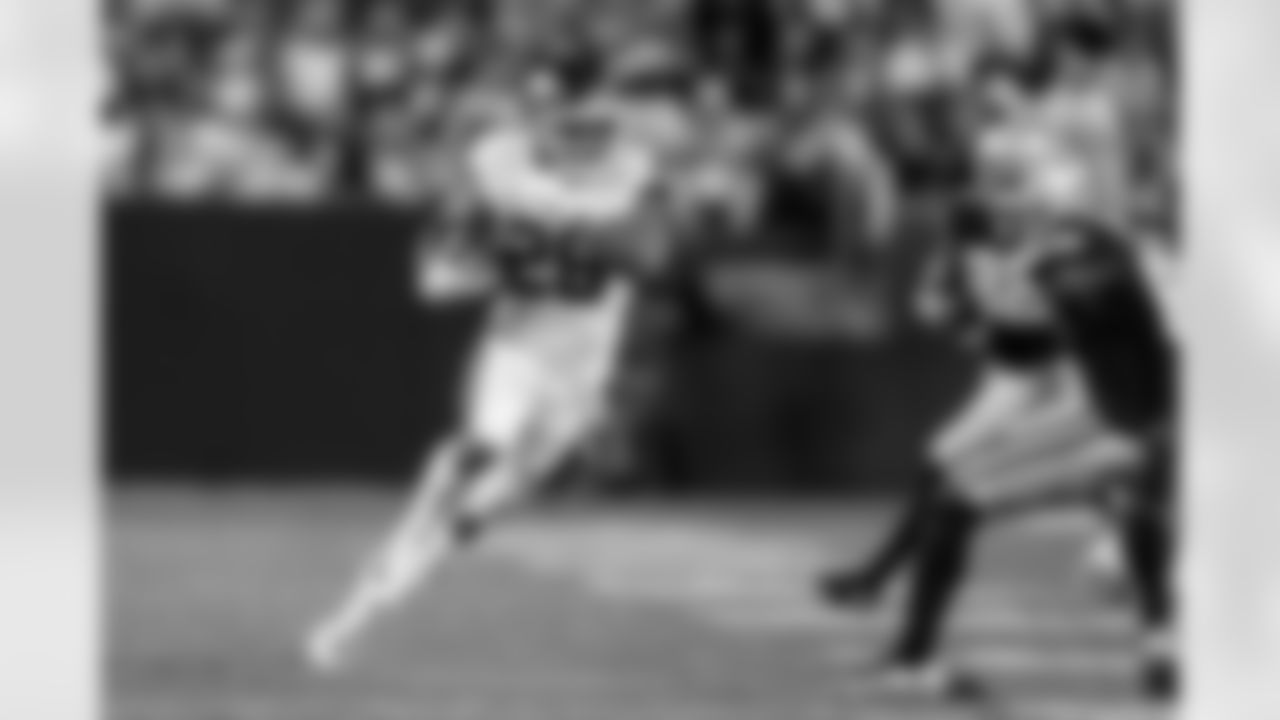
Saquon Barkley (26)
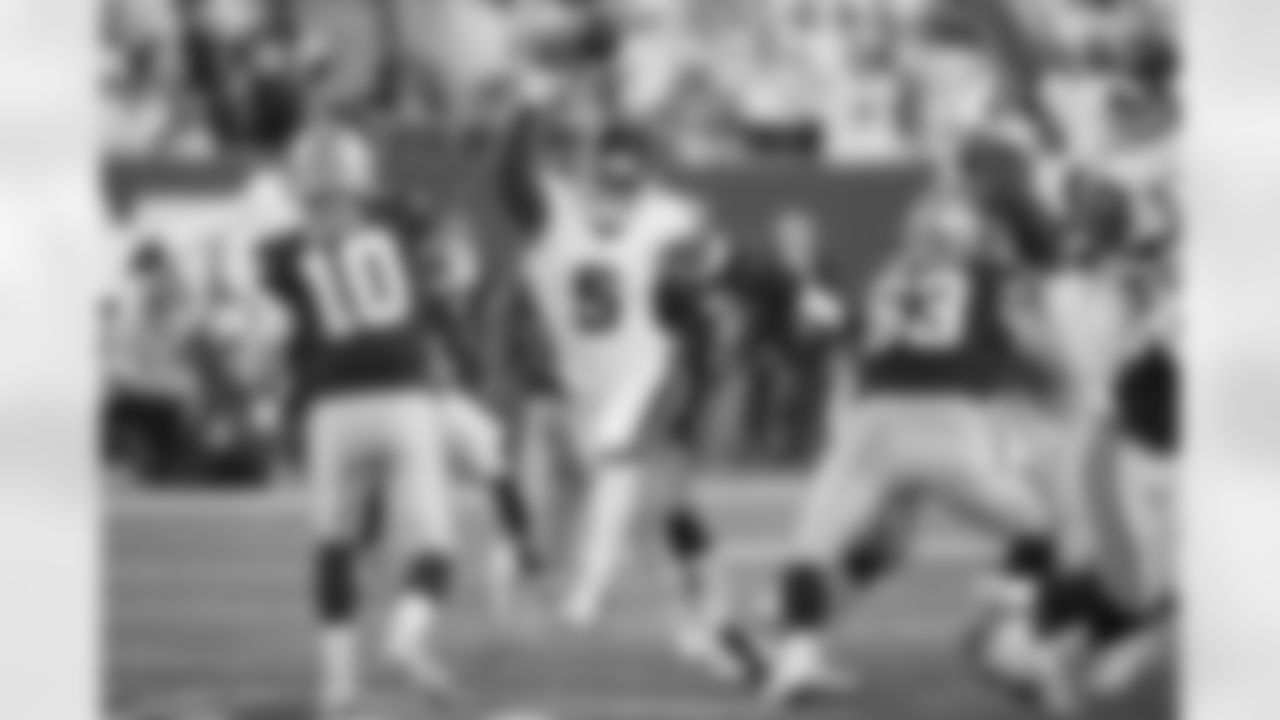
New York Giants defensive end Kayvon Thibodeaux (5) during a Monday Night football game against the Dallas Cowboys on Monday September 26, 2022 in East Rutherford, New Jersey (Evan Pinkus/NY Giants)
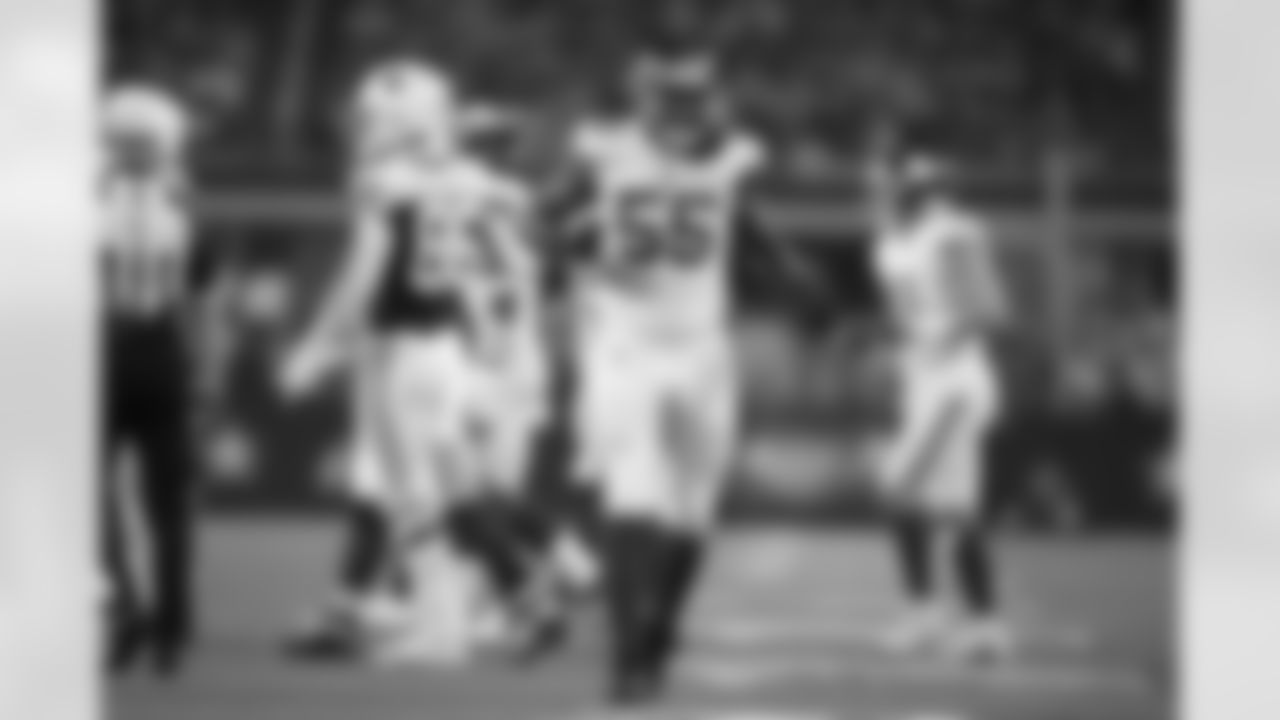
New York Giants linebacker Jihad Ward (55) celebrates a tackle during a NFL football game against the Dallas Cowboys on Thursday November 24, 2022 in Arlington, Texas (Evan Pinkus\New York Giants )

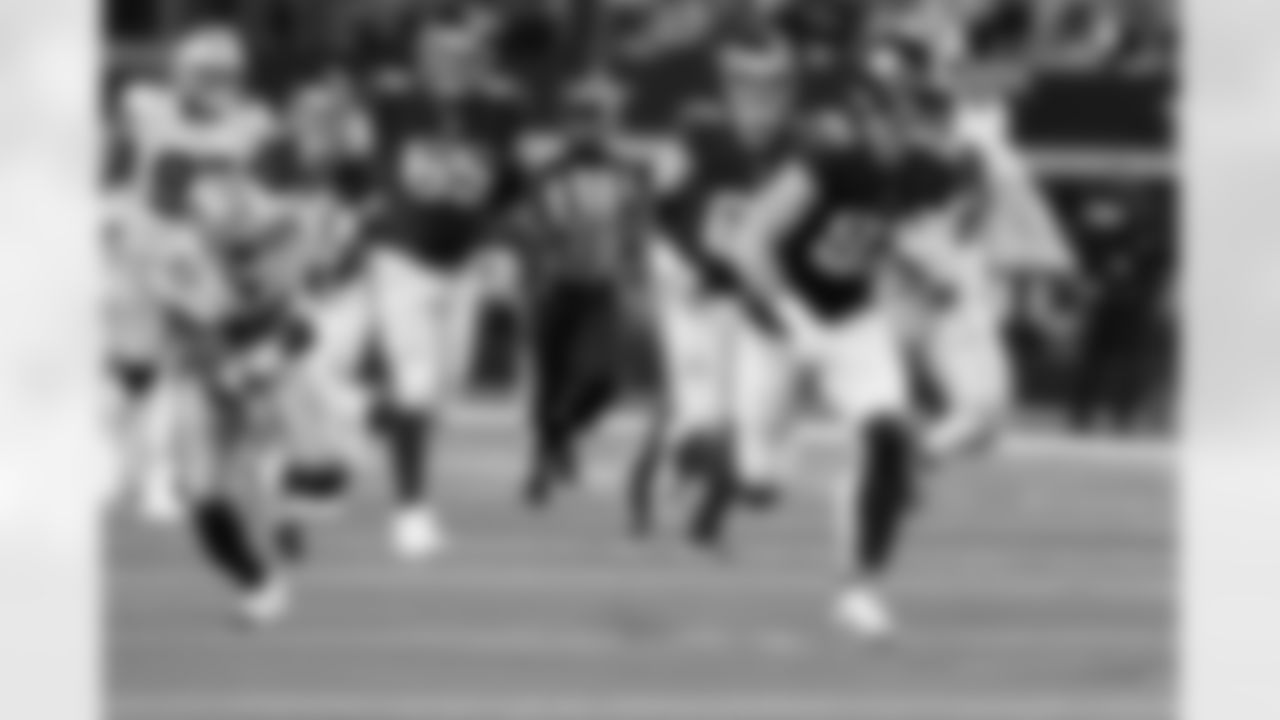
TE Daniel Bellinger (82)

Queen Latifah sings the National Anthem before a week 1 NFL football game against the Dallas Cowboys, Sunday, September 10, 2023 in East Rutherford, NJ. (Evan Pinkus / New York Giants)
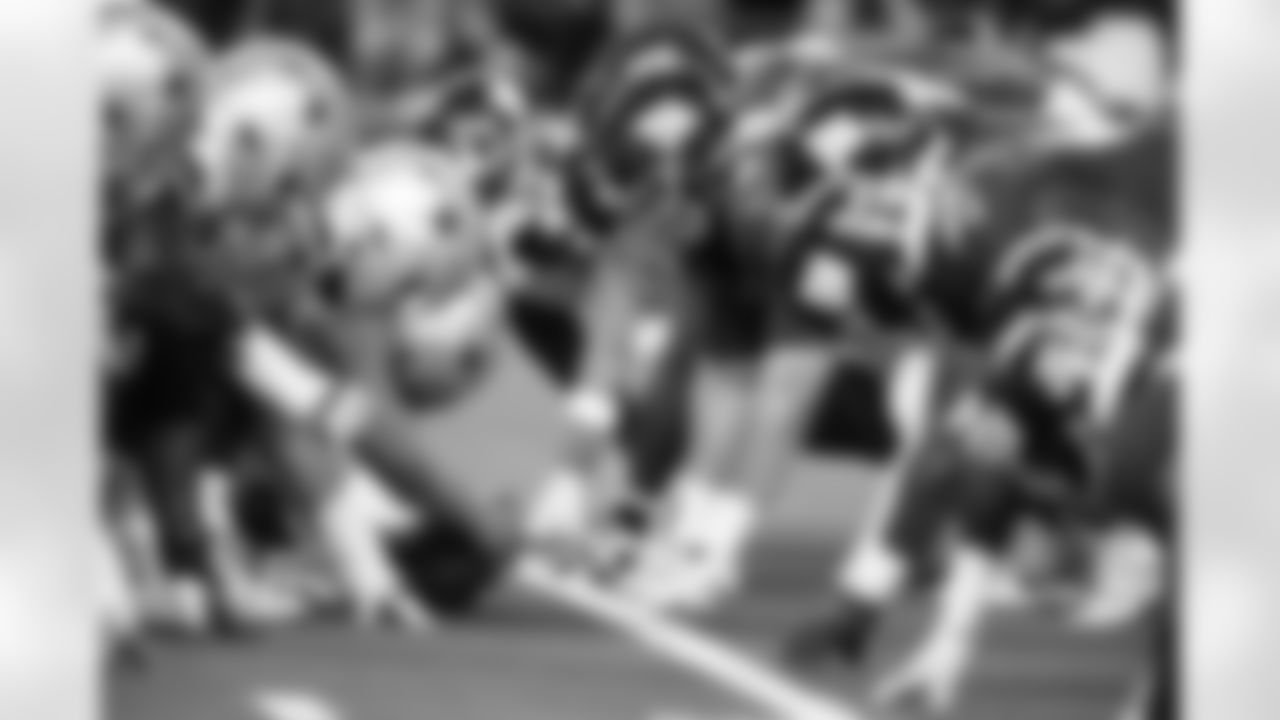
A look down the line of scrimmage during a week 10 NFL football game against the Dallas Cowboys, Sunday, November 12, 2023 in Arlington, Texas. (Evan Pinkus / New York Giants)
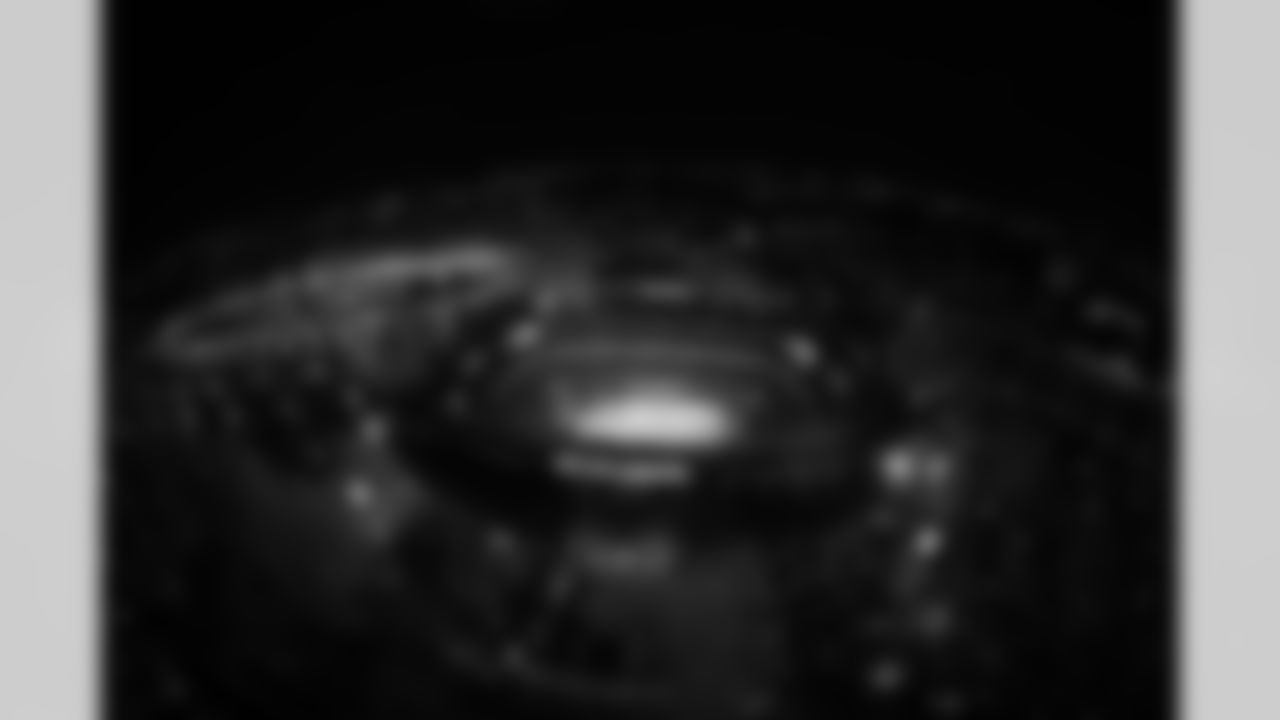
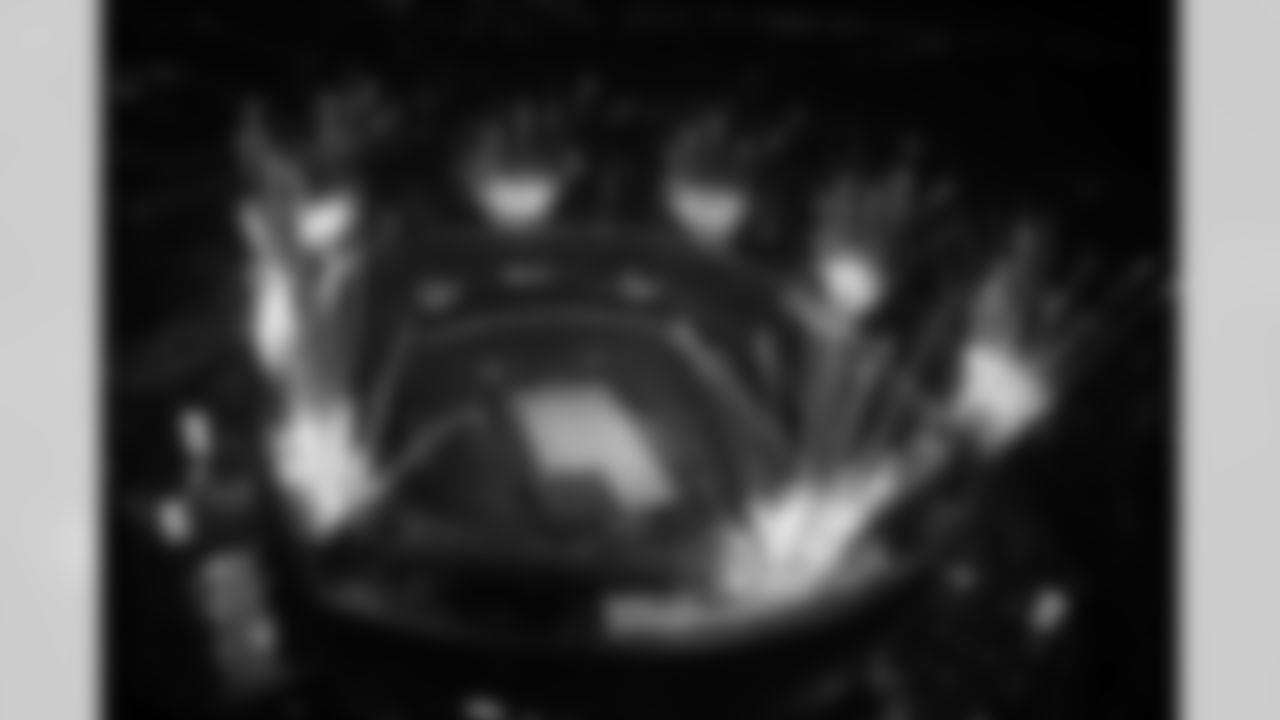

New York Giants defensive tackle Dexter Lawrence II (97) before a week 10 NFL football game against the Dallas Cowboys, Sunday, November 12, 2023 in Arlington, Texas. (Evan Pinkus / New York Giants)

NYPD, FDNY,PAPD before a week 1 NFL football game against the Dallas Cowboys, Sunday, September 10, 2023 in East Rutherford, NJ. (Evan Pinkus / New York Giants)
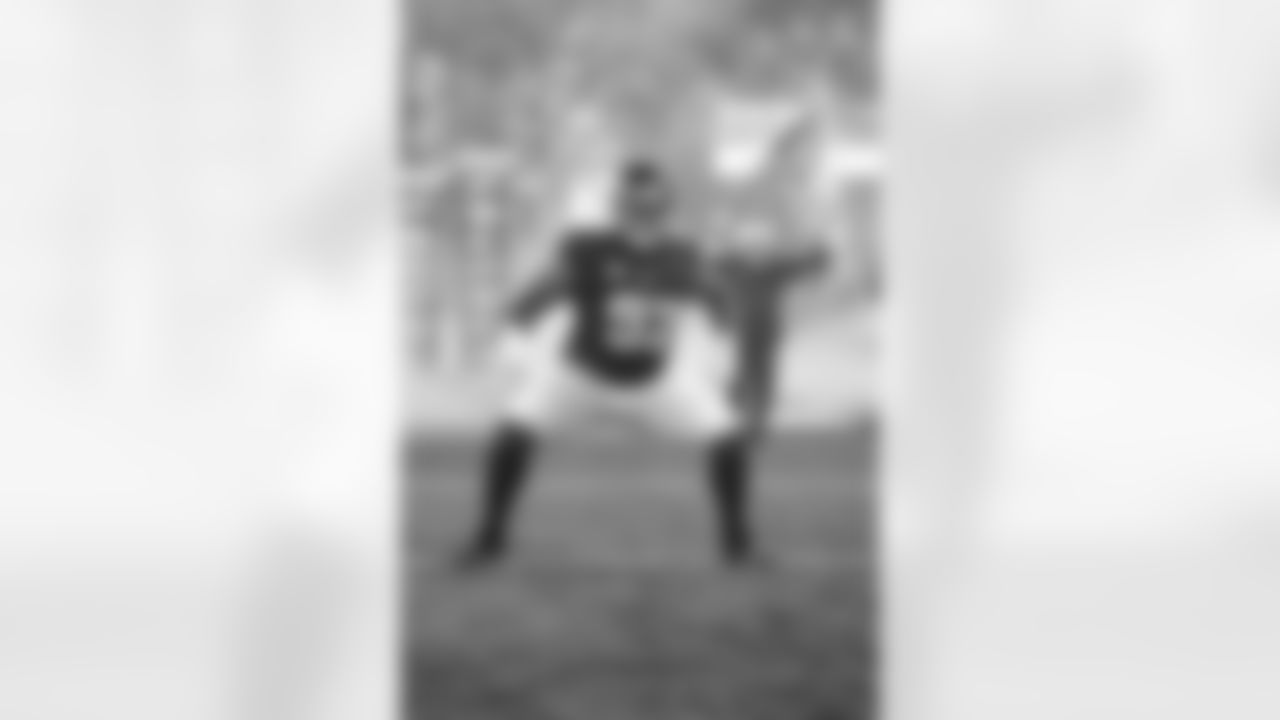
New York Giants defensive tackle Dexter Lawrence II (97) before a week 1 NFL football game against the Dallas Cowboys, Sunday, September 10, 2023 in East Rutherford, NJ. (Evan Pinkus / New York Giants)

S Dane Belton (24)

S Tyler Nubin (31)
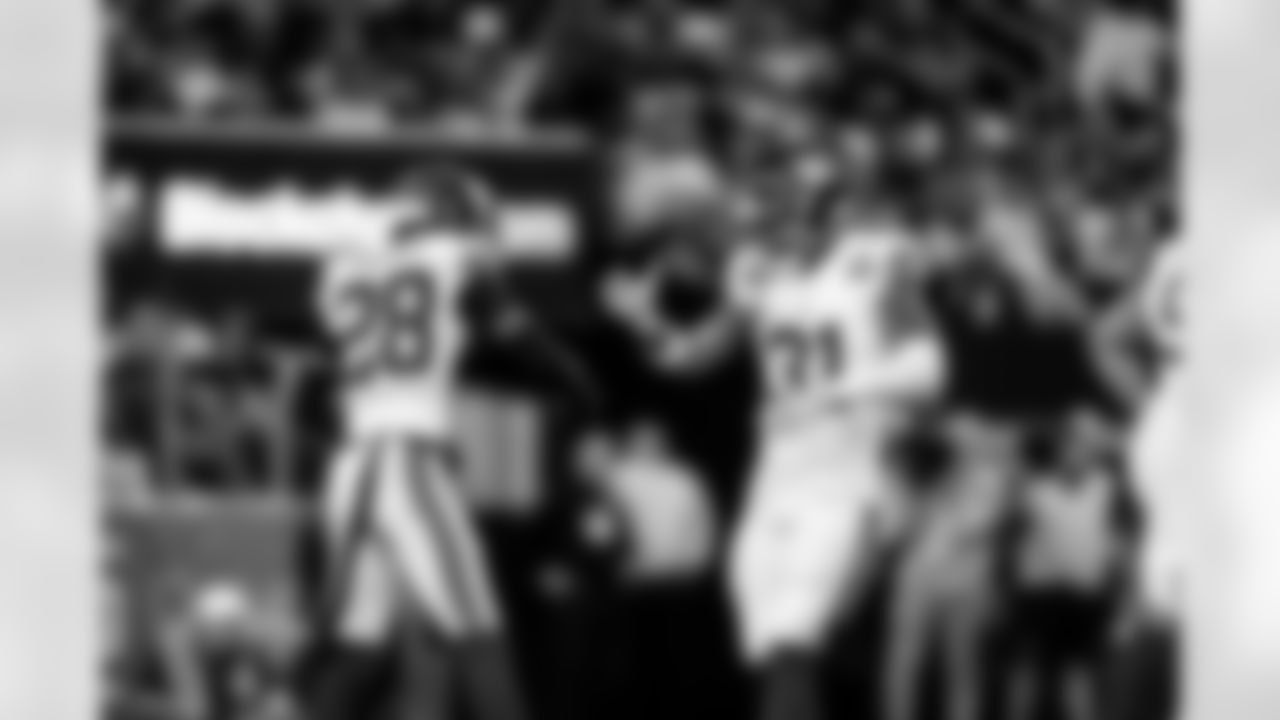
CB Cor'Dale Flott (28), S Tyler Nubin (31)

OLB Kayvon Thibodeaux (5)
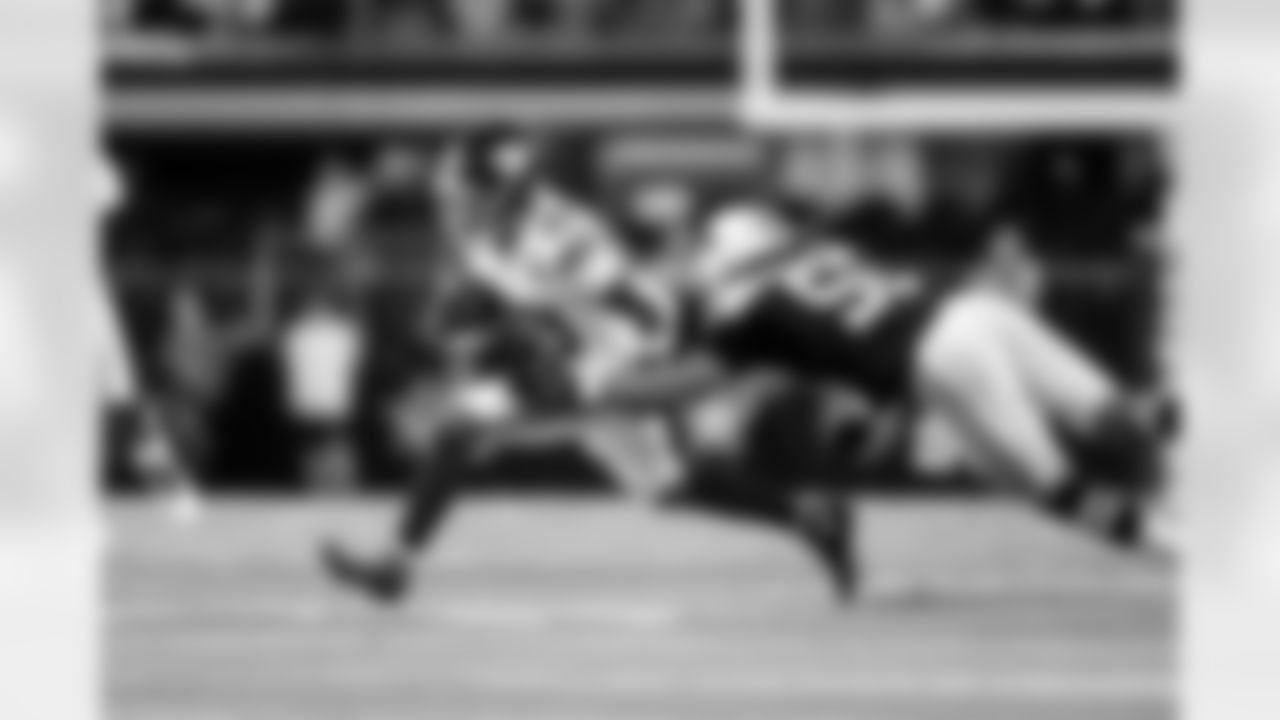
RB Tyrone Tracy Jr. (29)
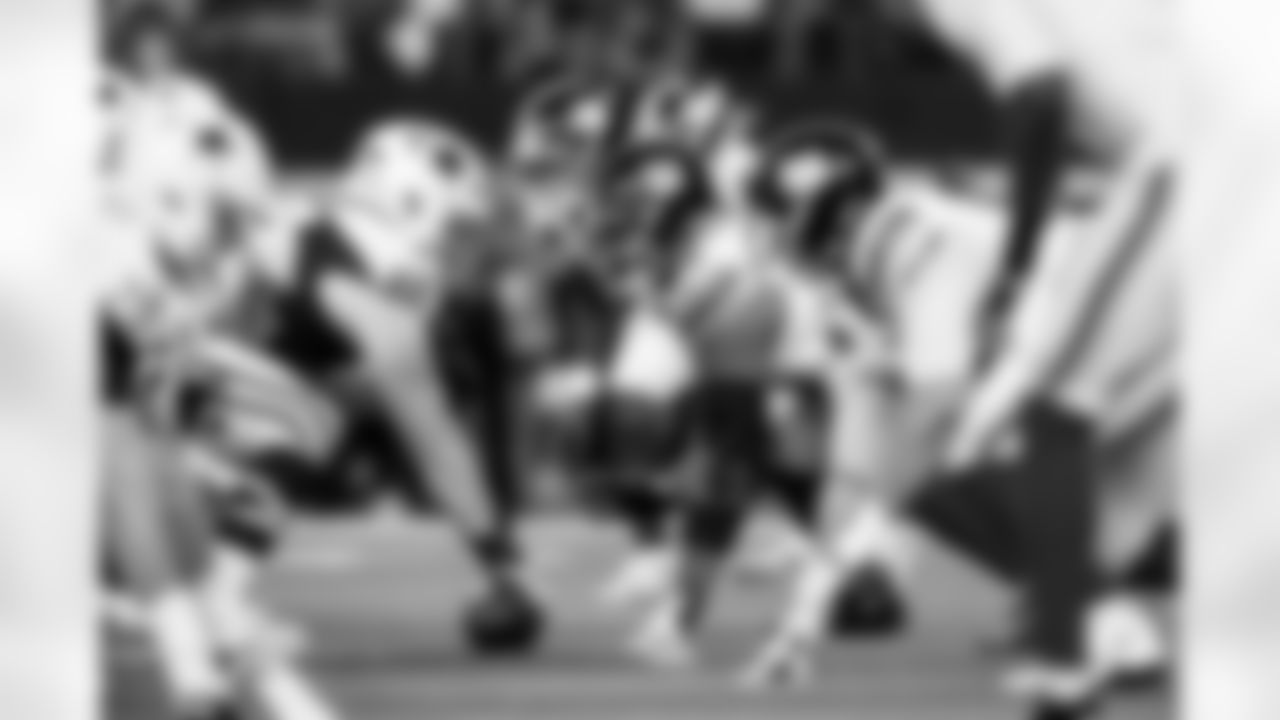
DT Jordon Riley (95)

WR Malik Nabers (1)
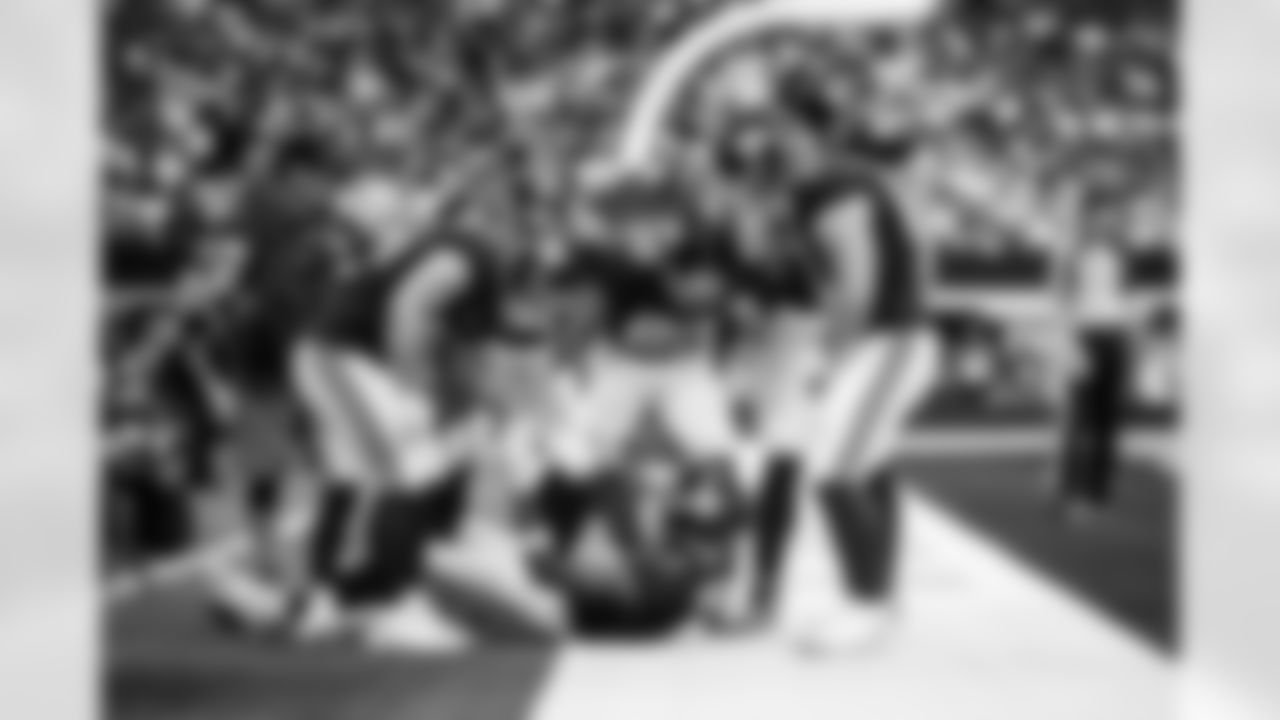
WR Malik Nabers (1)
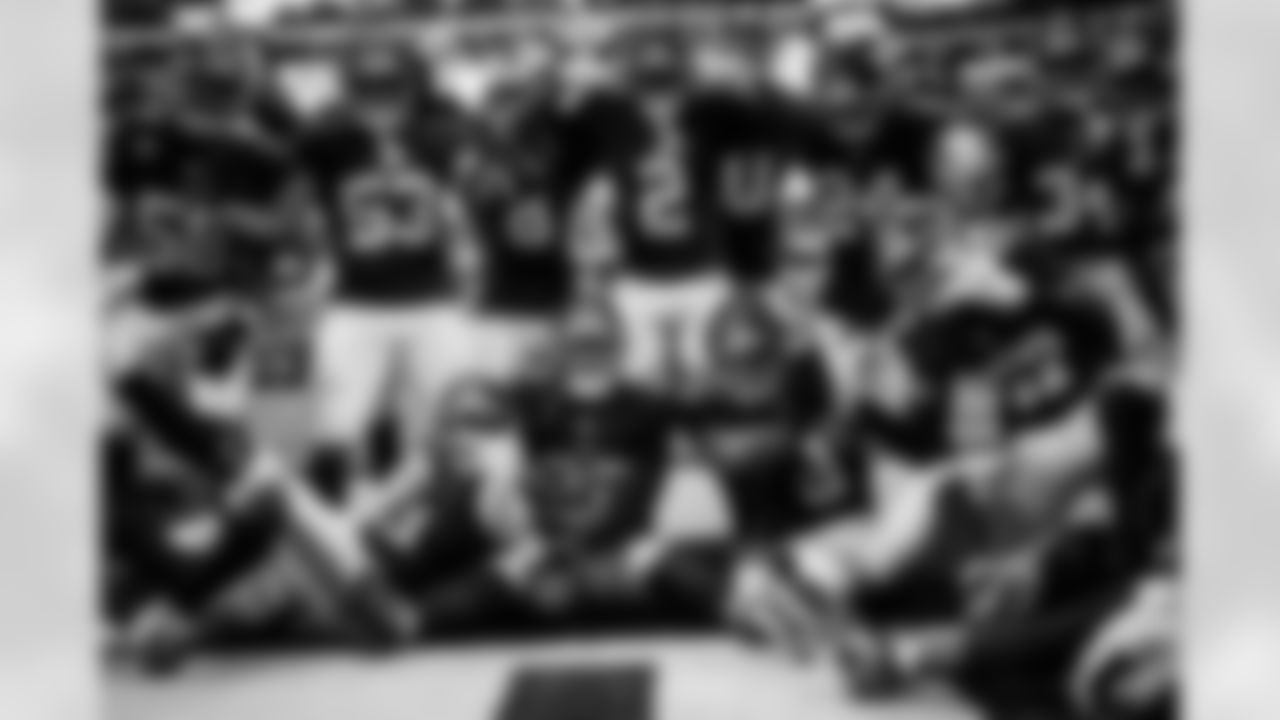
ILB Bobby Okereke (58) ILB Darius Muasau (53) S Jevón Holland (8) CB Deonte Banks (2) S Dane Belton (24) OLB Kayvon Thibodeaux (5) OLB Abdul Carter (51) DL Chauncey Golston (57) CB Dru Phillips (22)
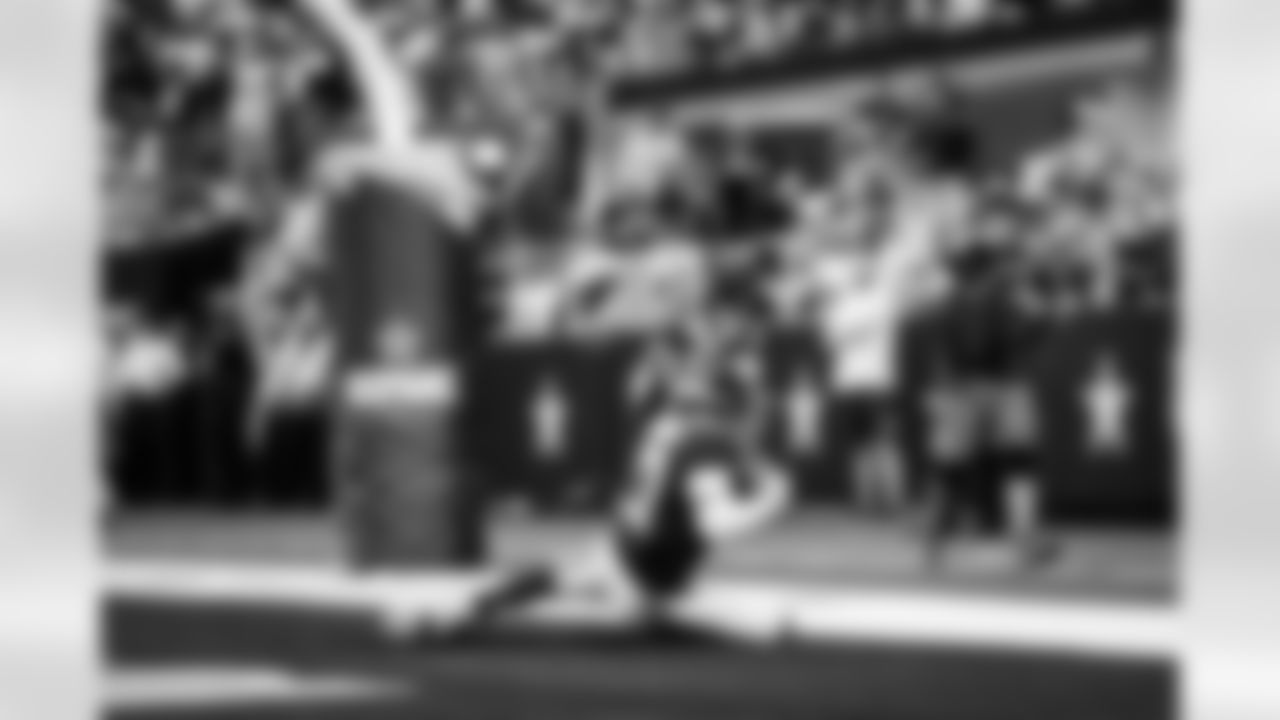
WR Wan'Dale Robinson (17)
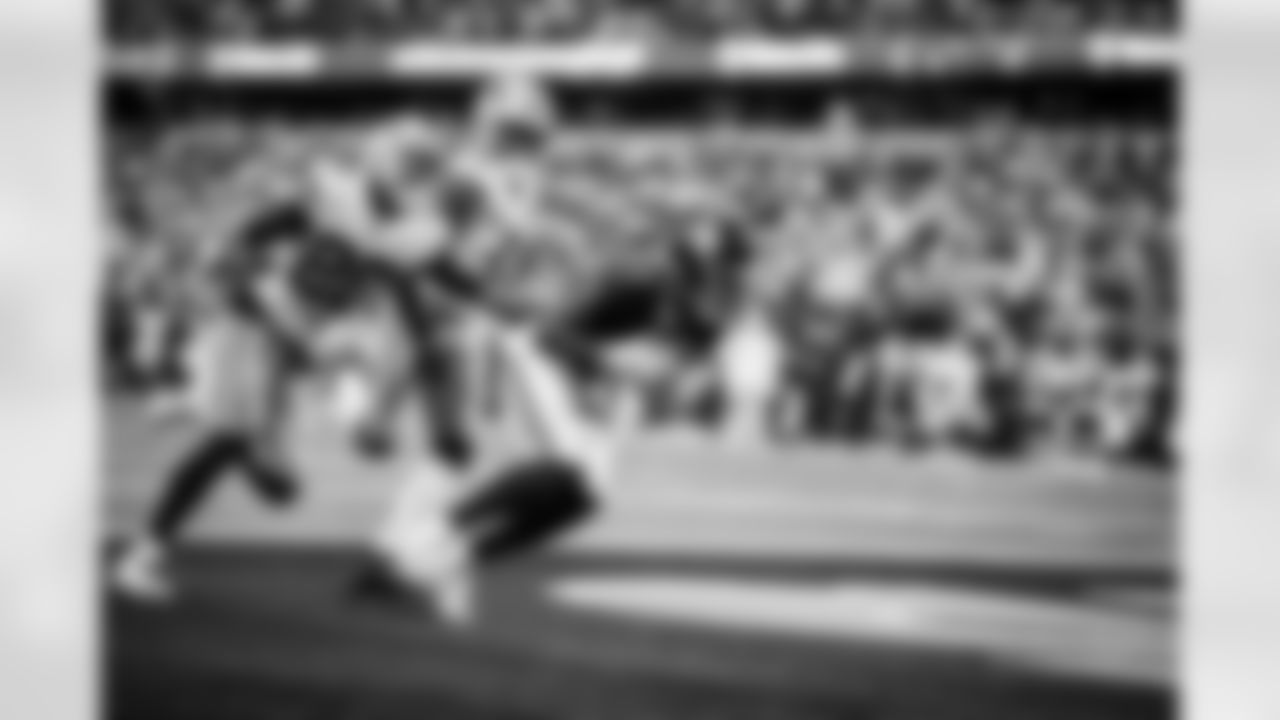
WR Malik Nabers (1)

QB Russell Wilson (3)
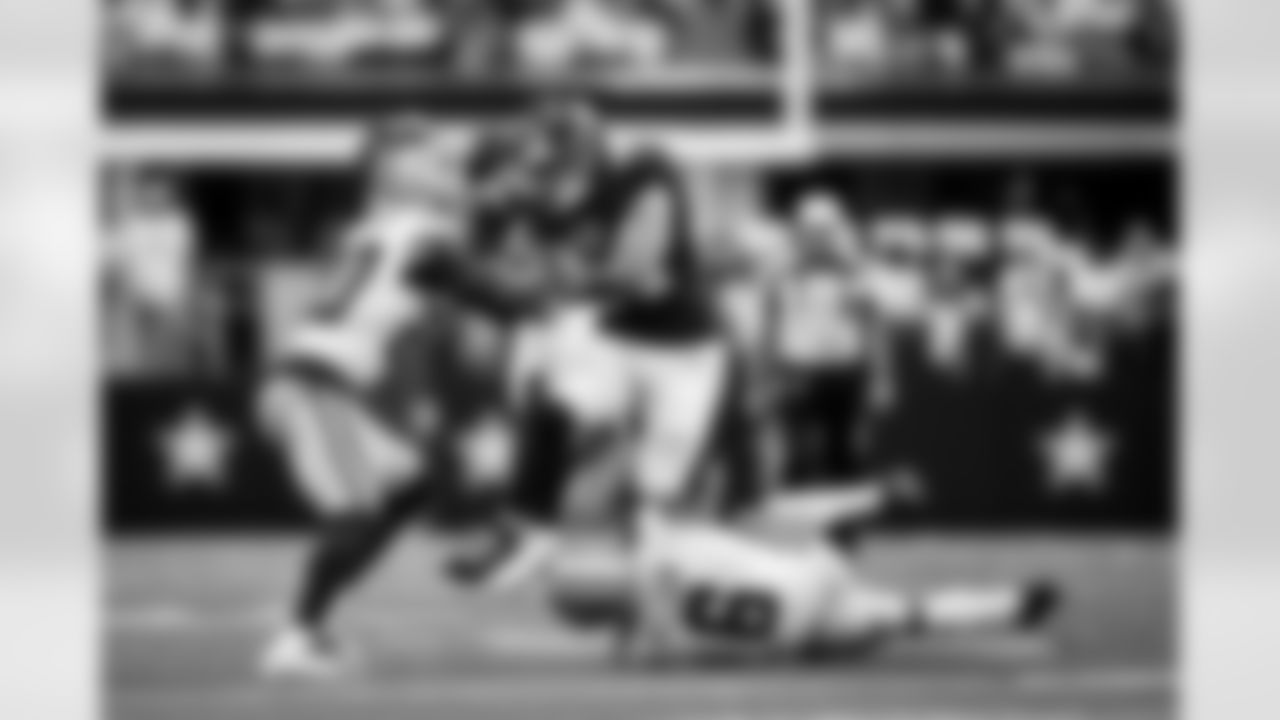
RB Cam Skattebo (44)
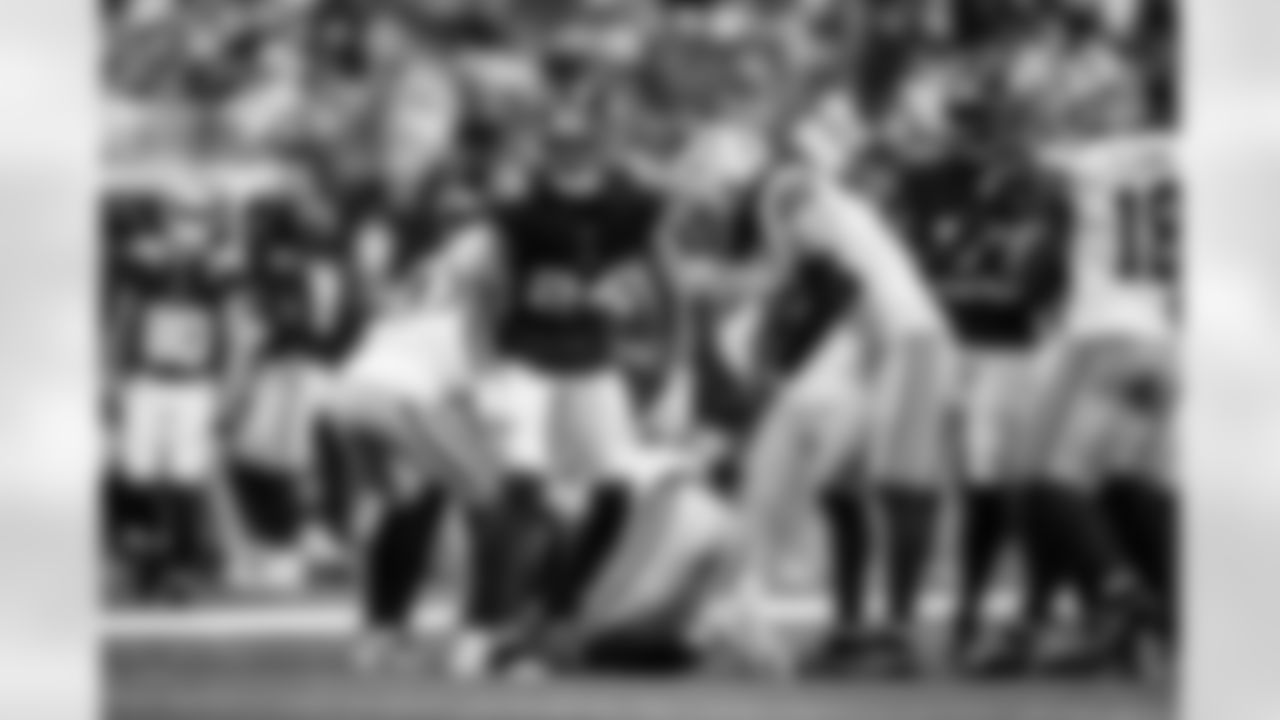
S Dane Belton (24)
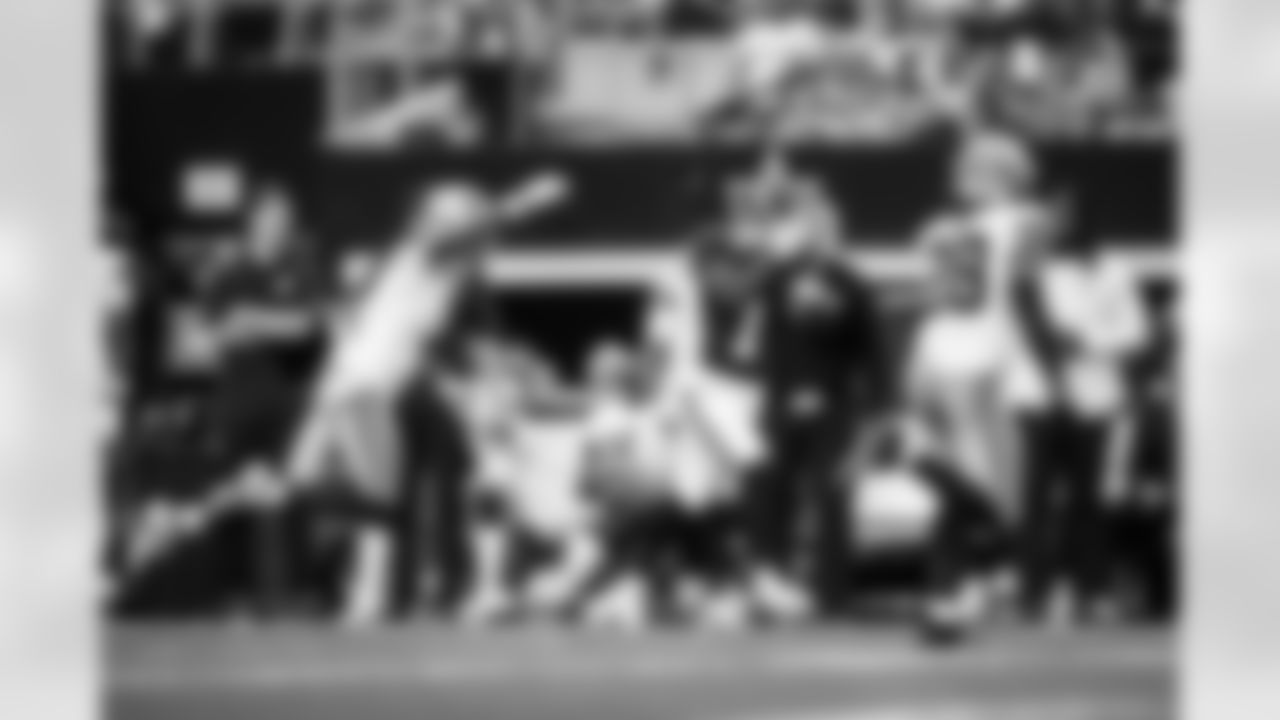
WR Malik Nabers (1)
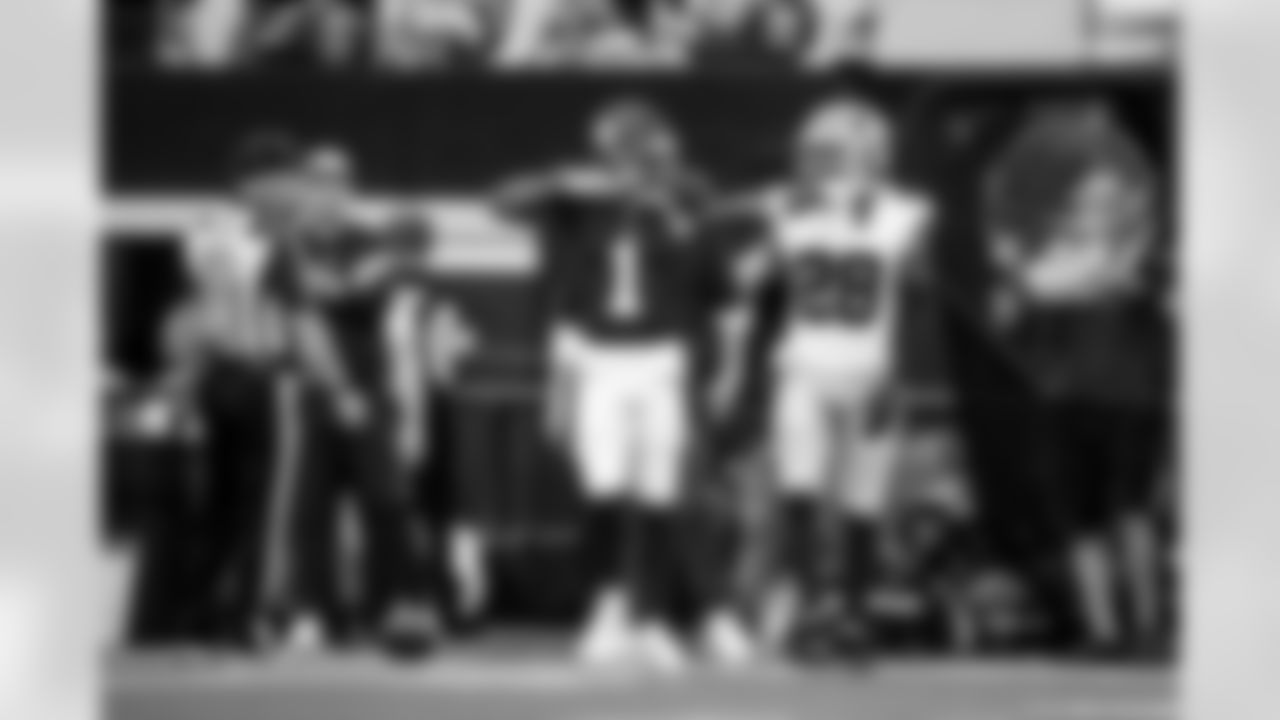
WR Malik Nabers (1)
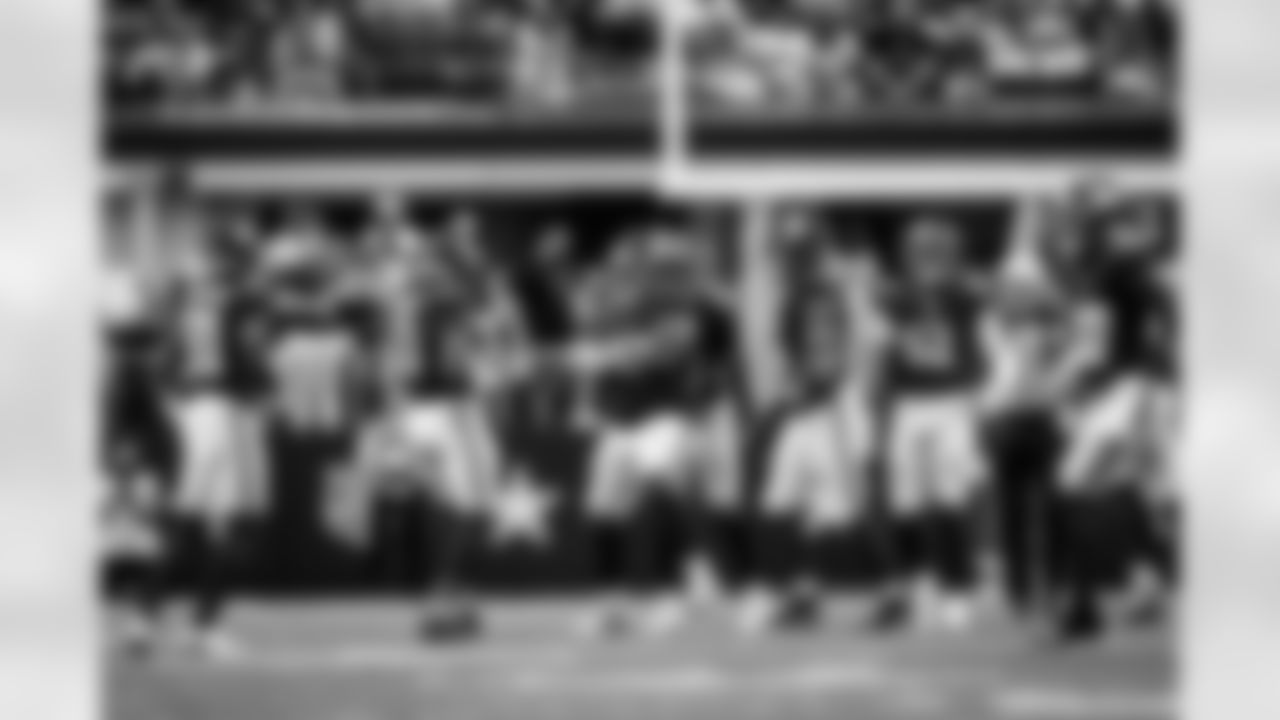
T Reid Holskey (67)
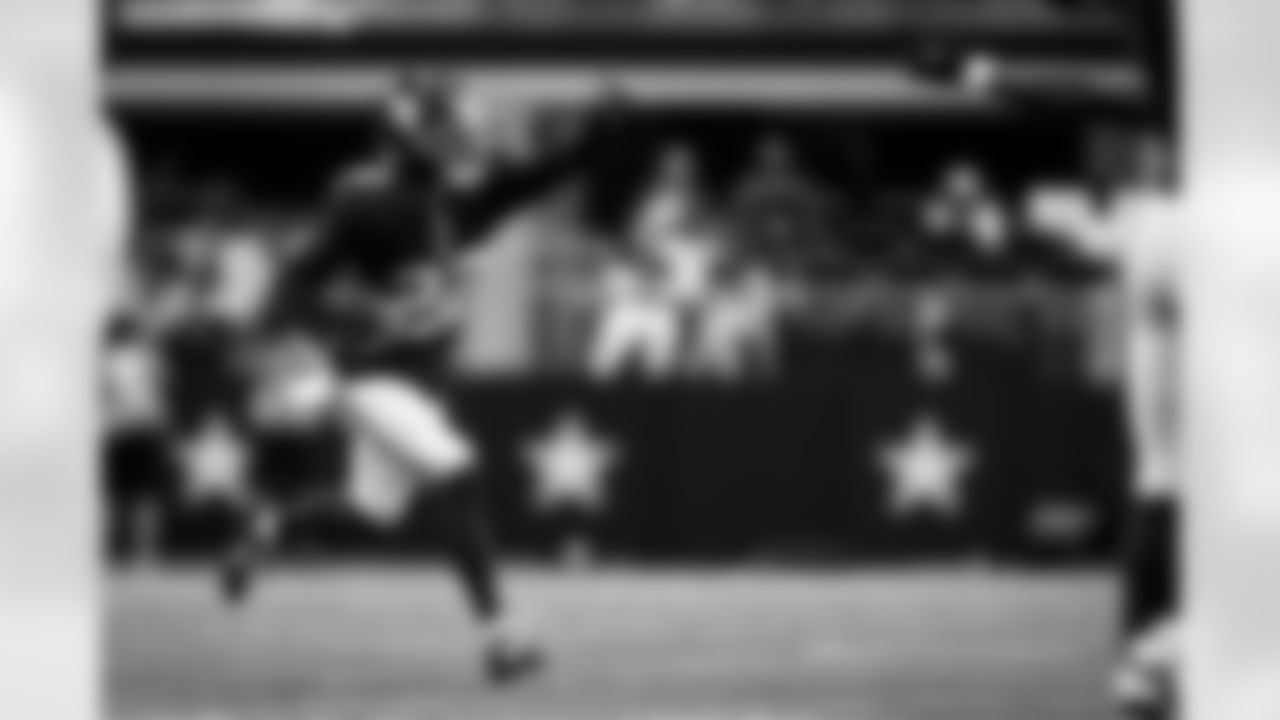
CB Dru Phillips (22)
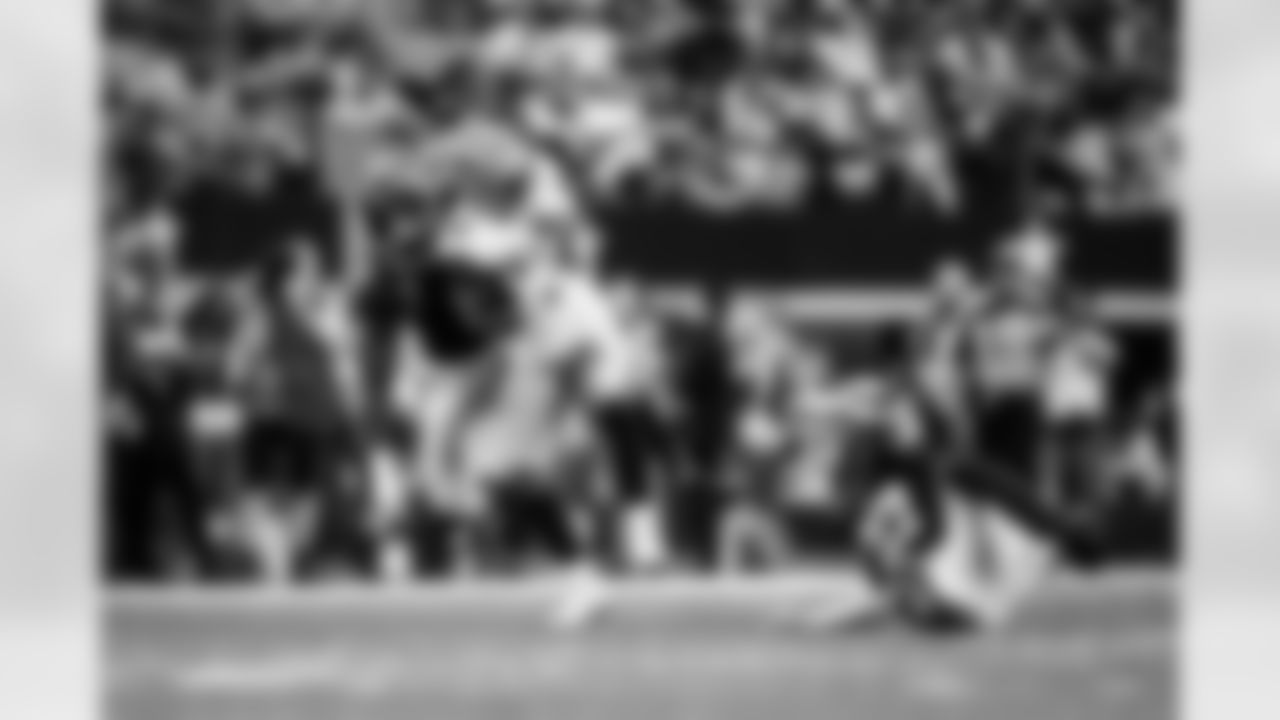
OLB Brian Burns (0)
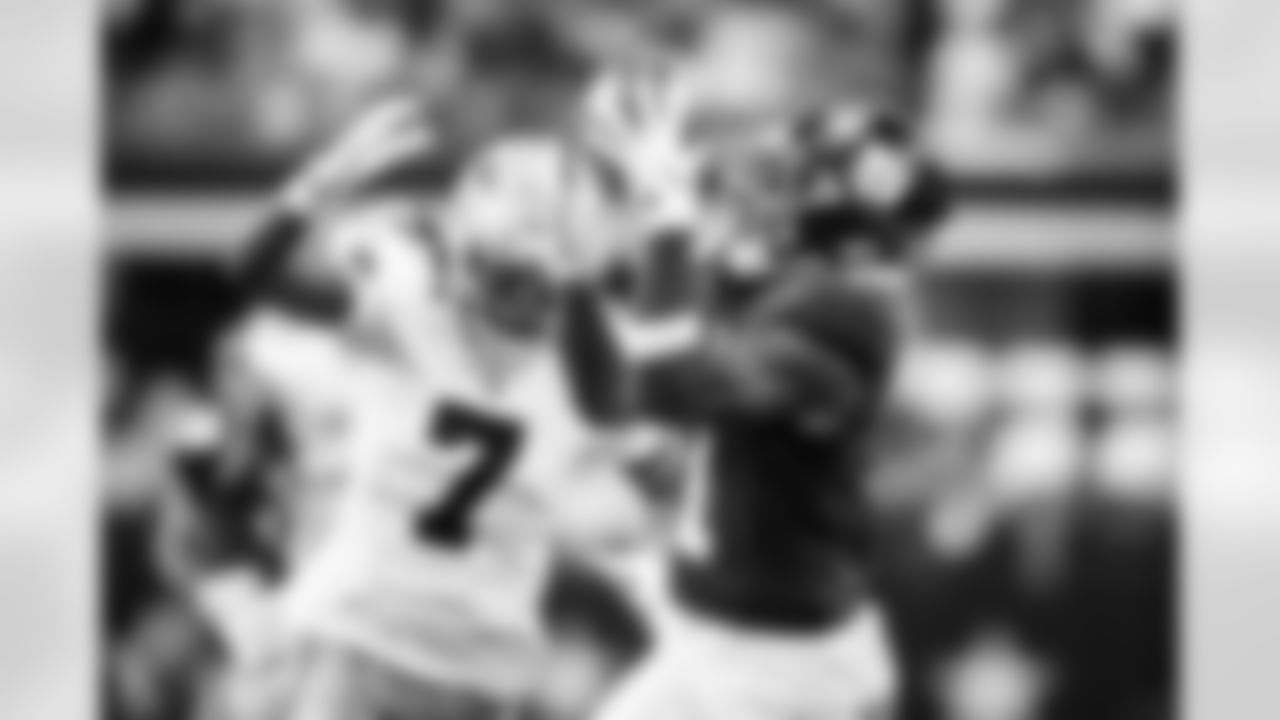
WR Malik Nabers (1)
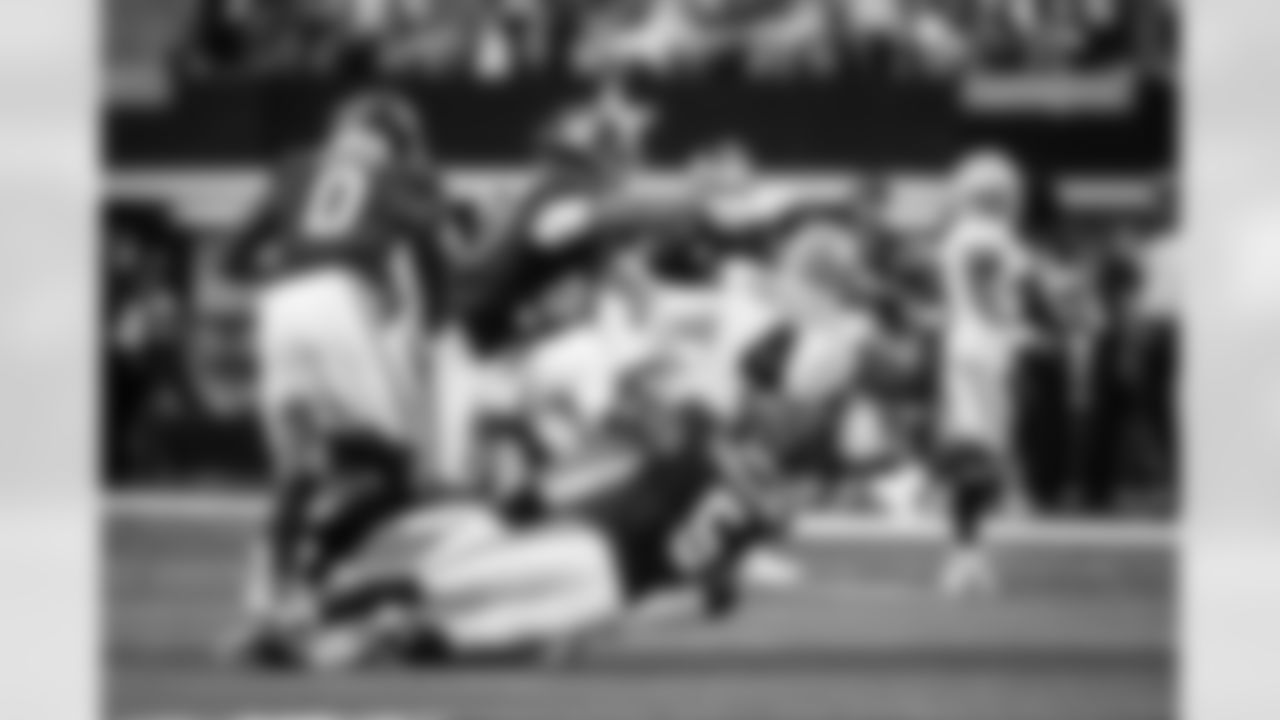
OLB Kayvon Thibodeaux (5)
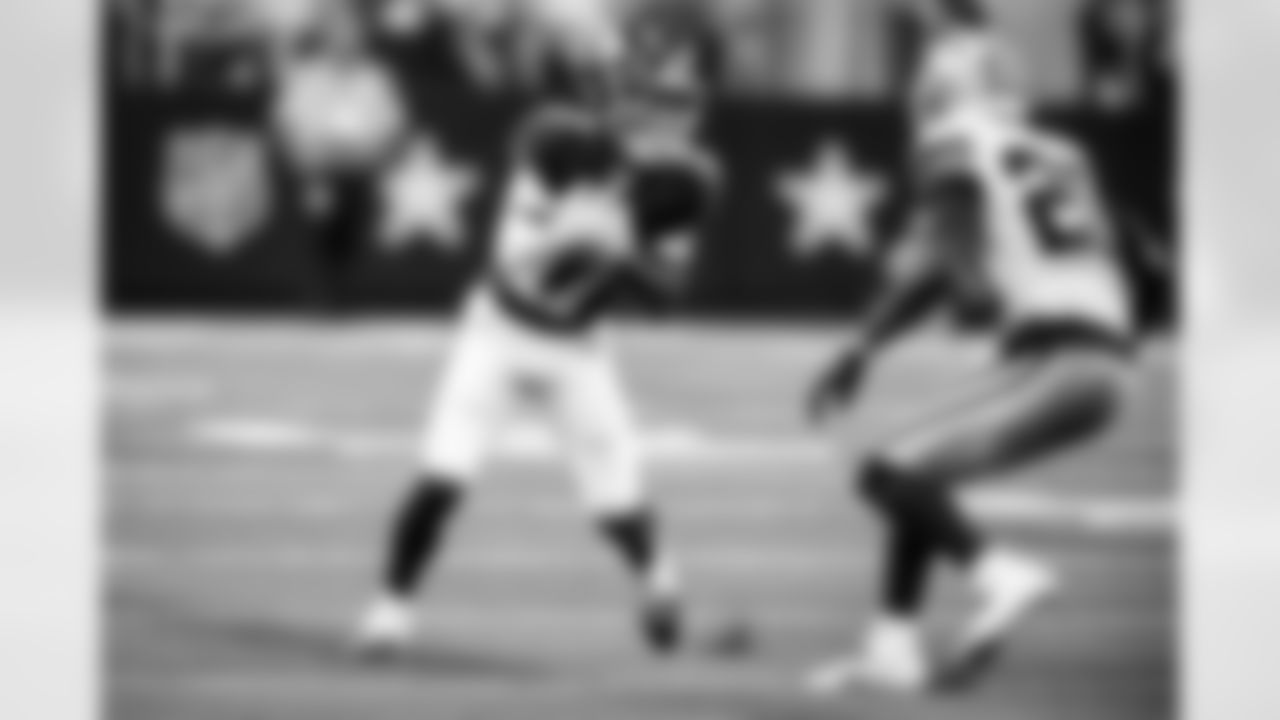
WR Wan'Dale Robinson (17)
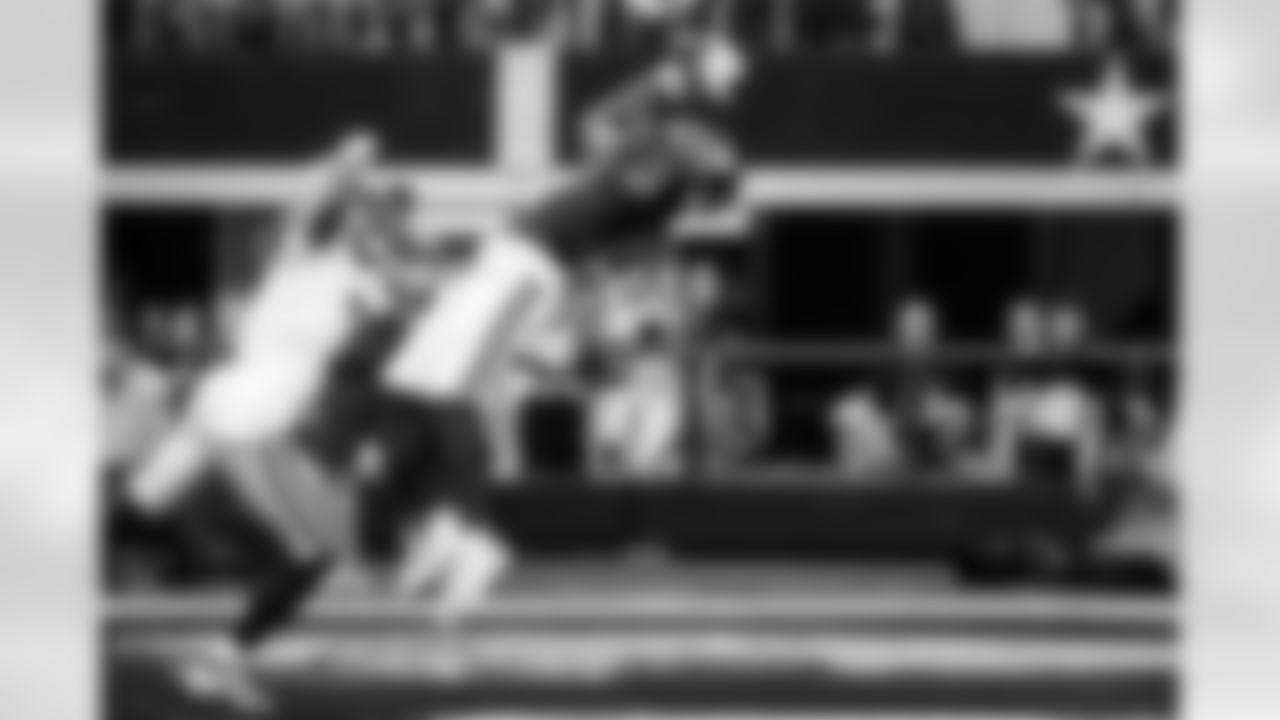
WR Malik Nabers (1)
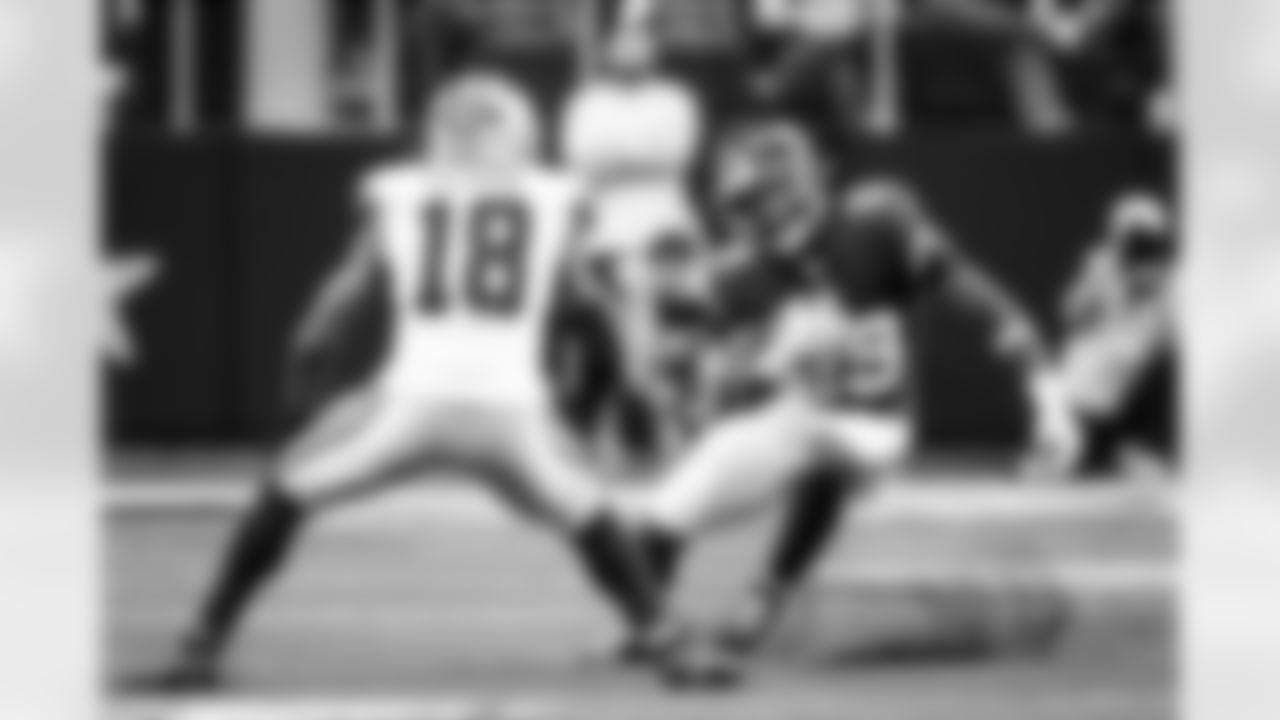
RB Tyrone Tracy Jr. (29)
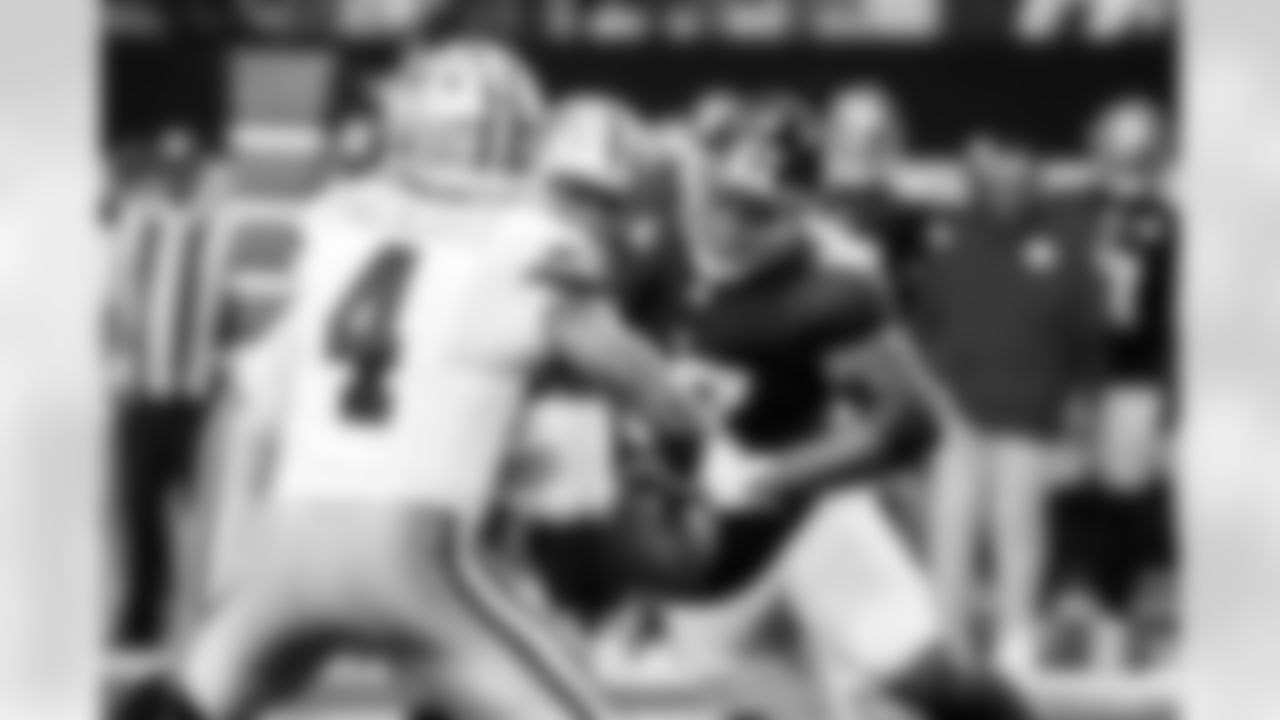
DL Dexter Lawrence II (97)














